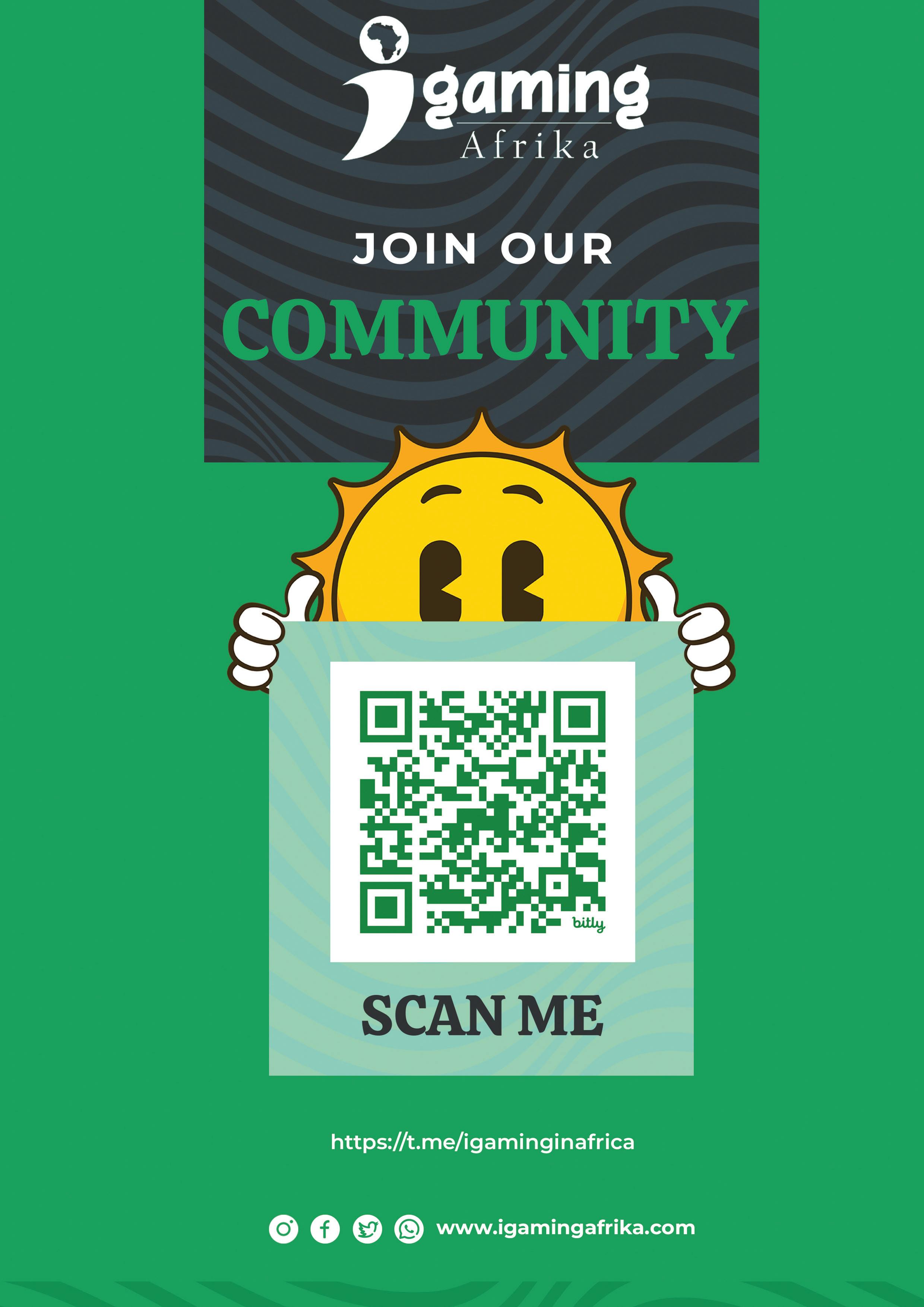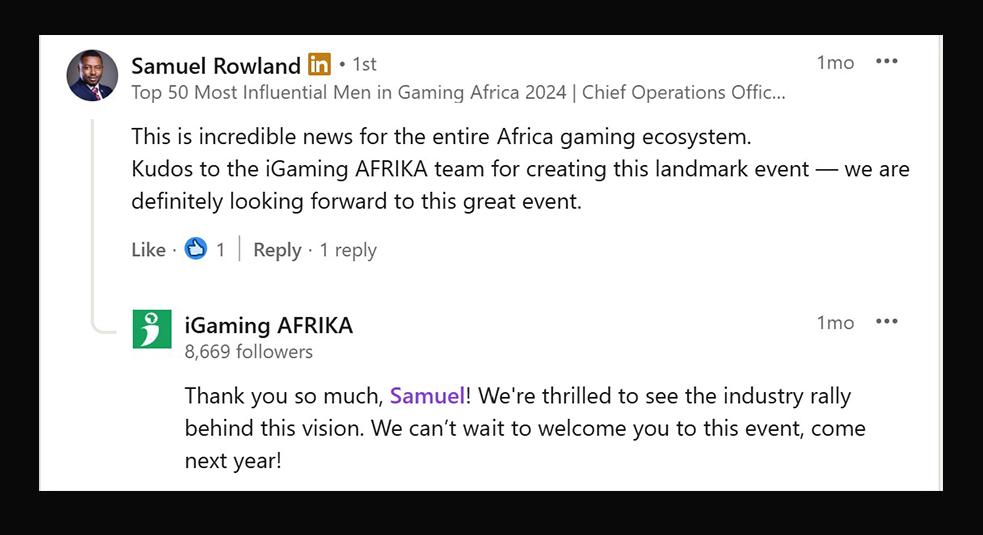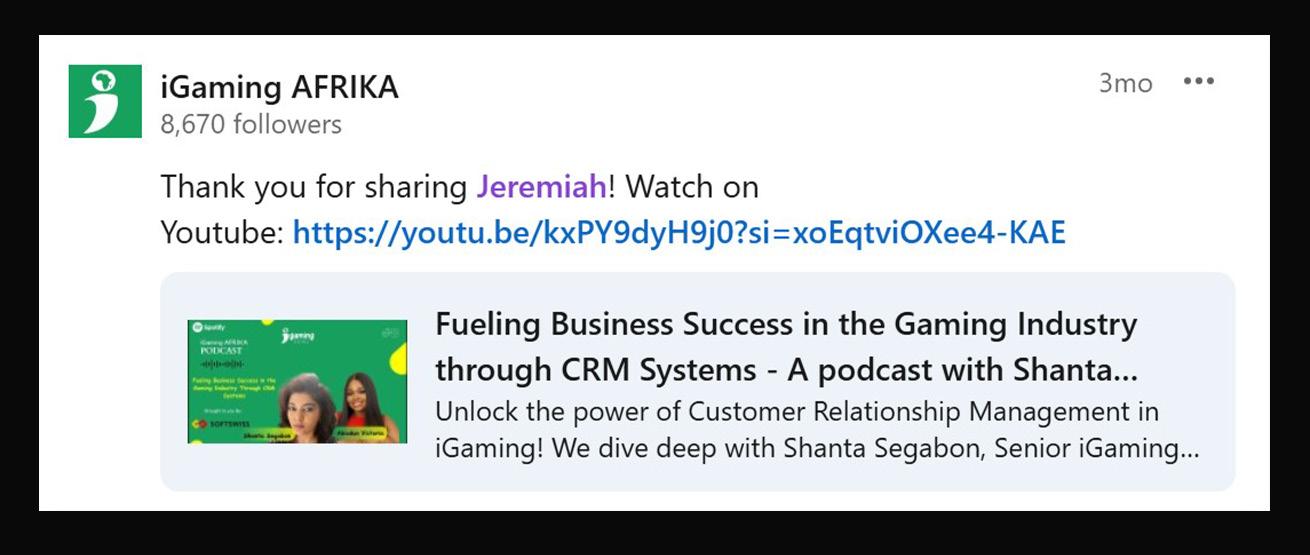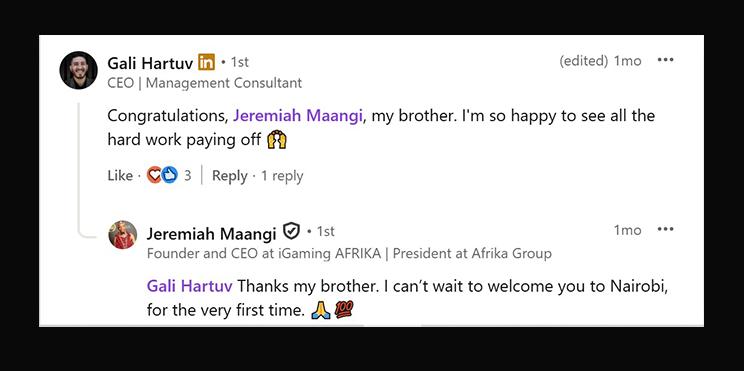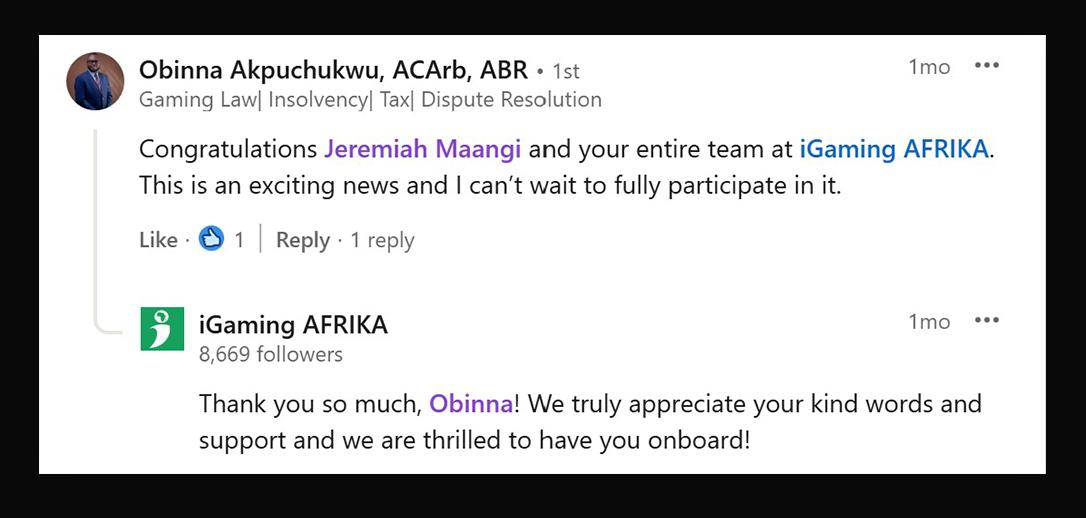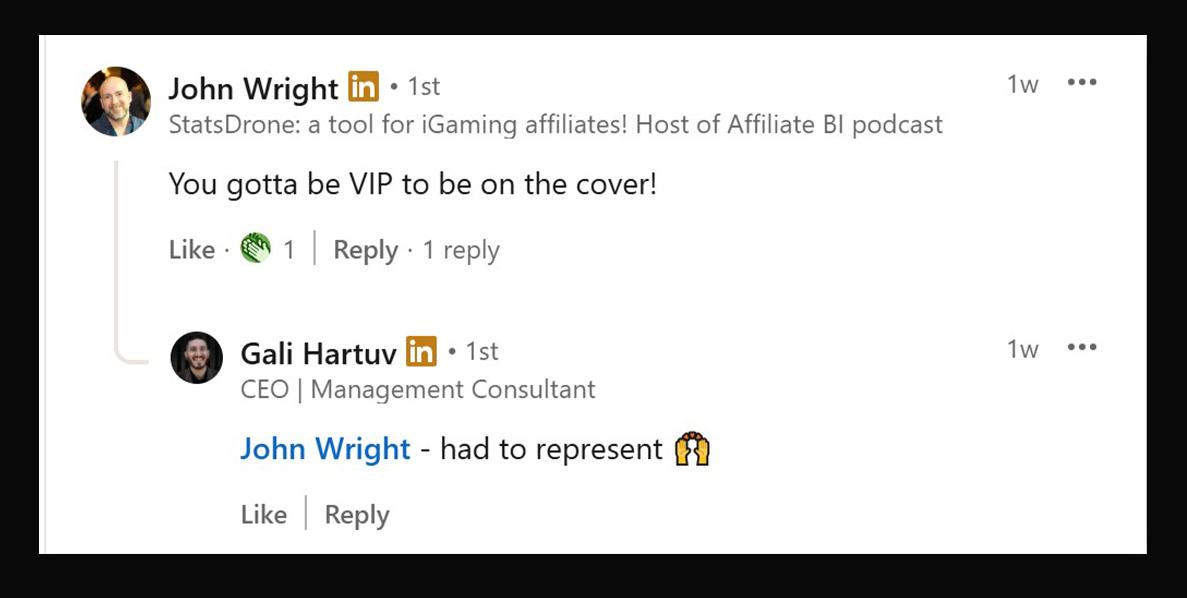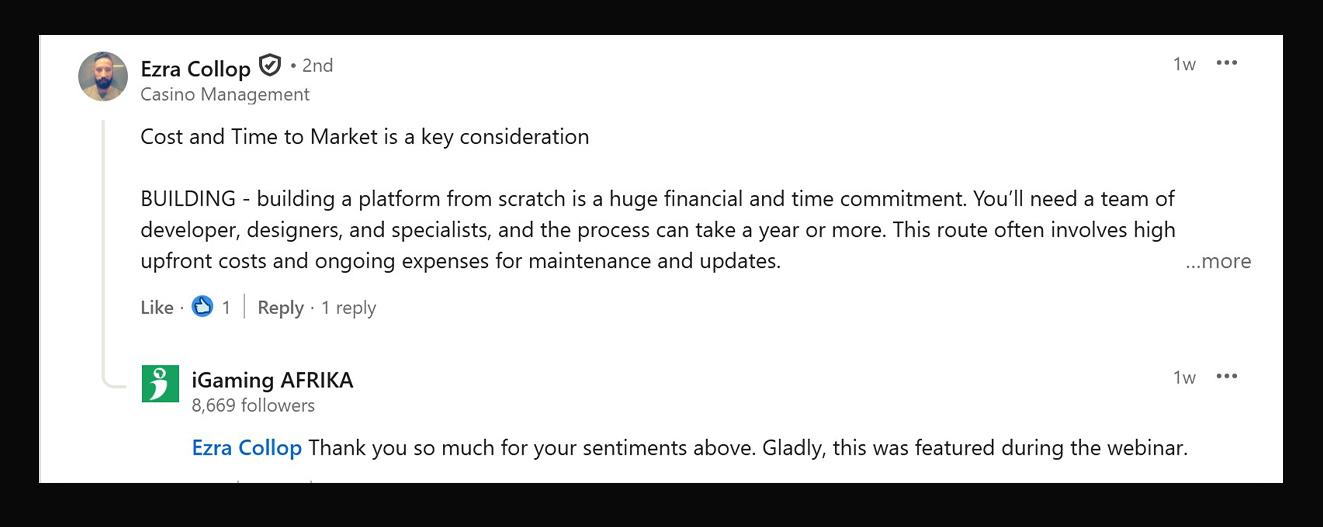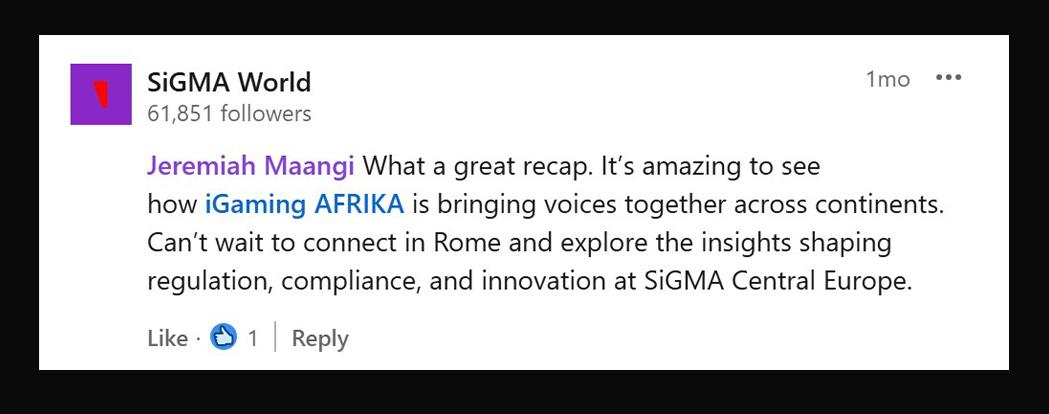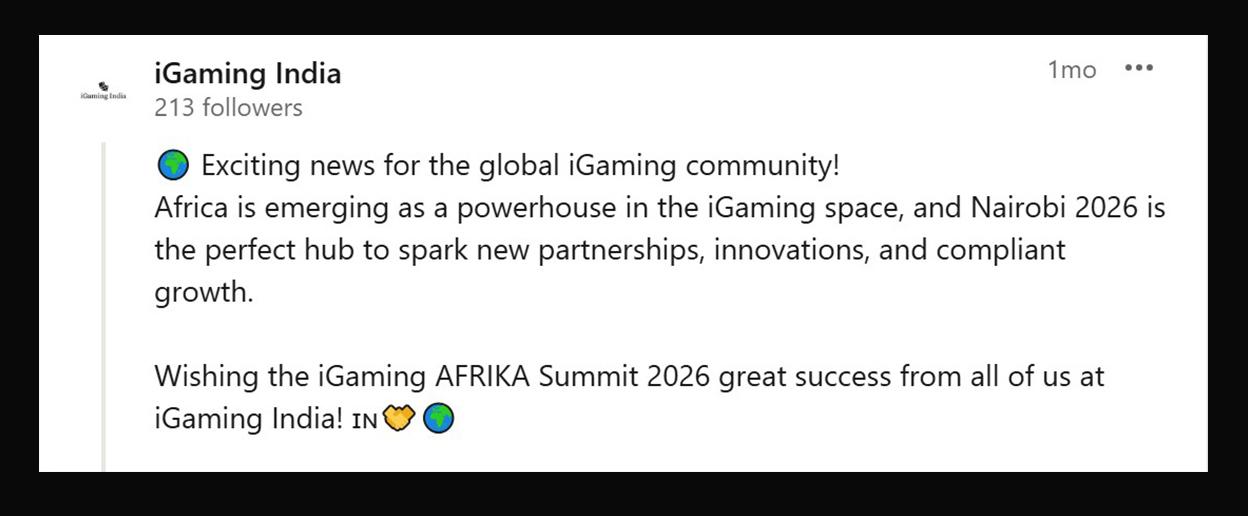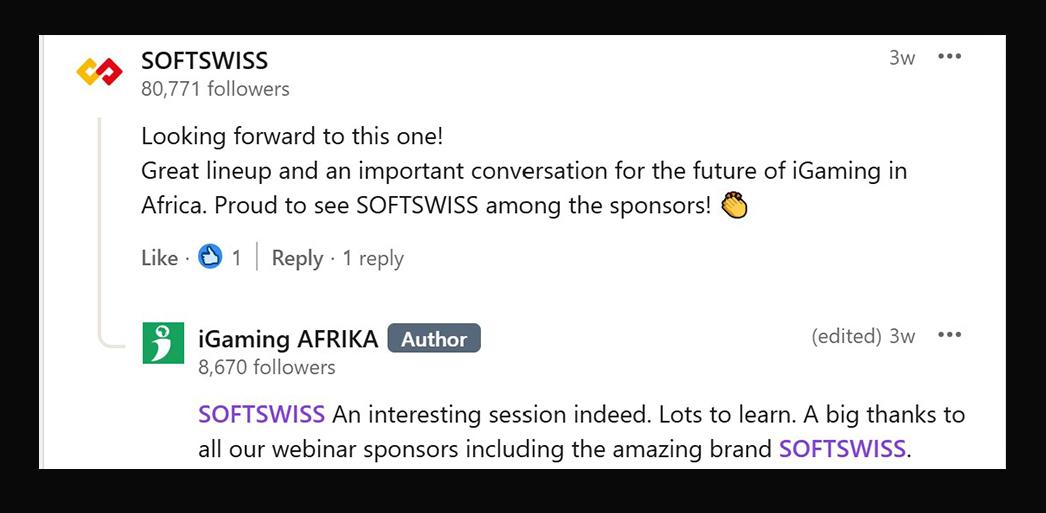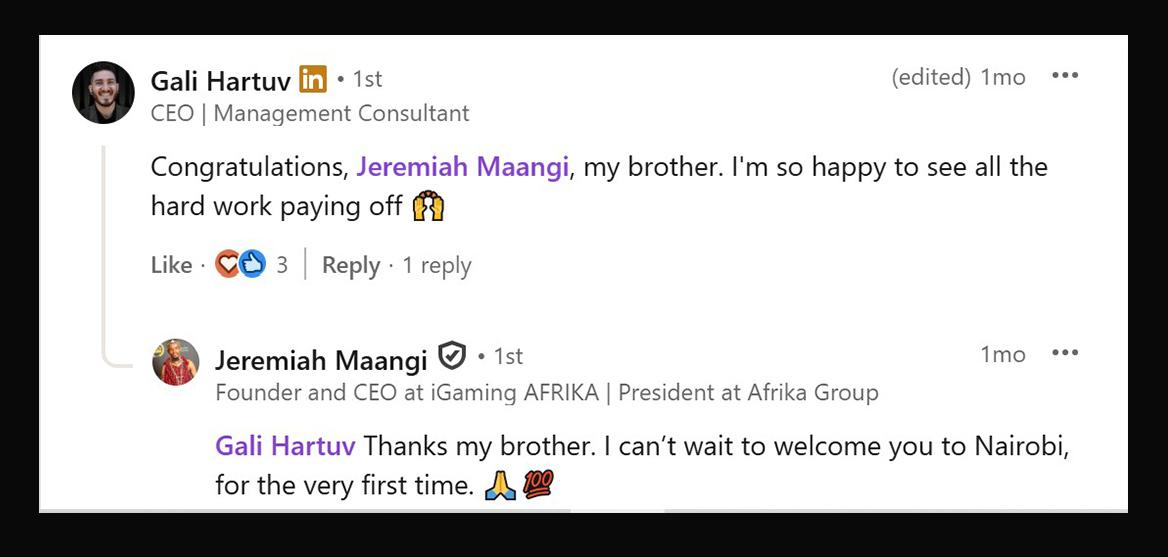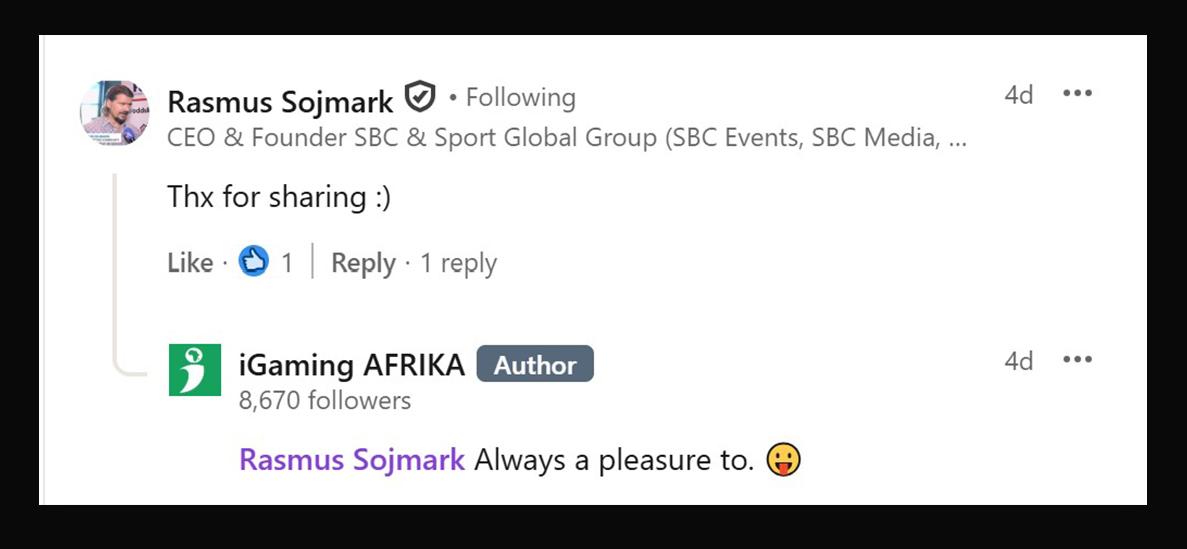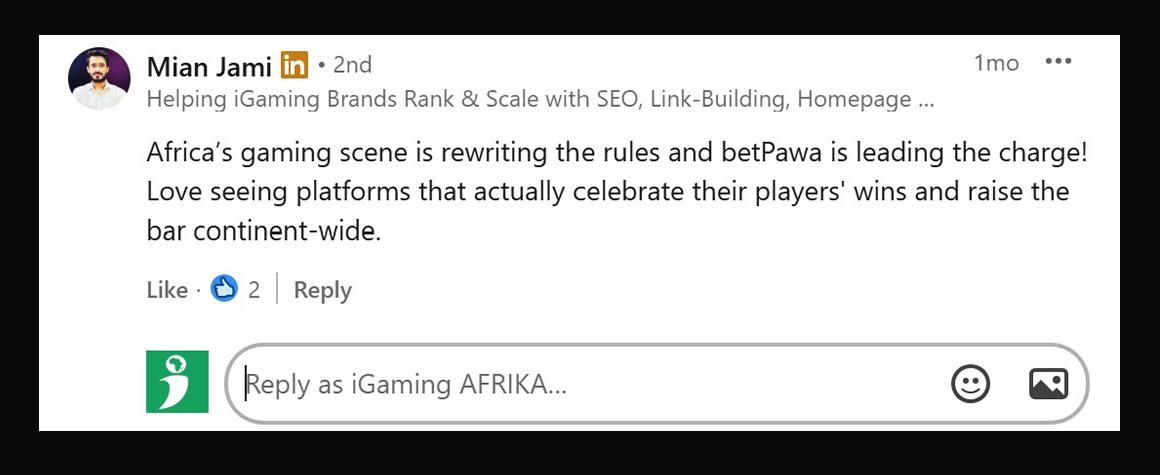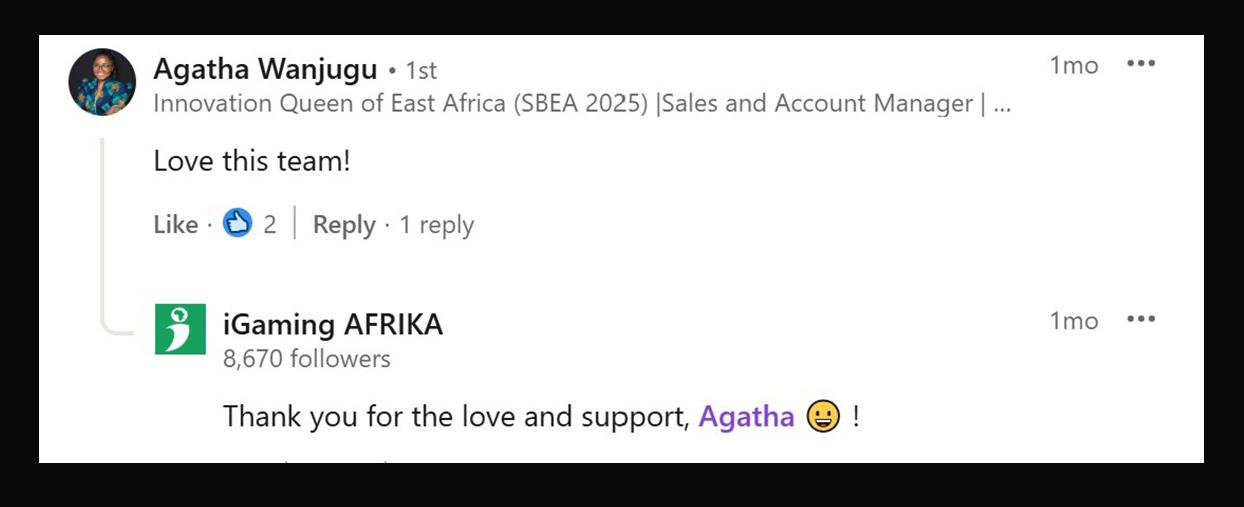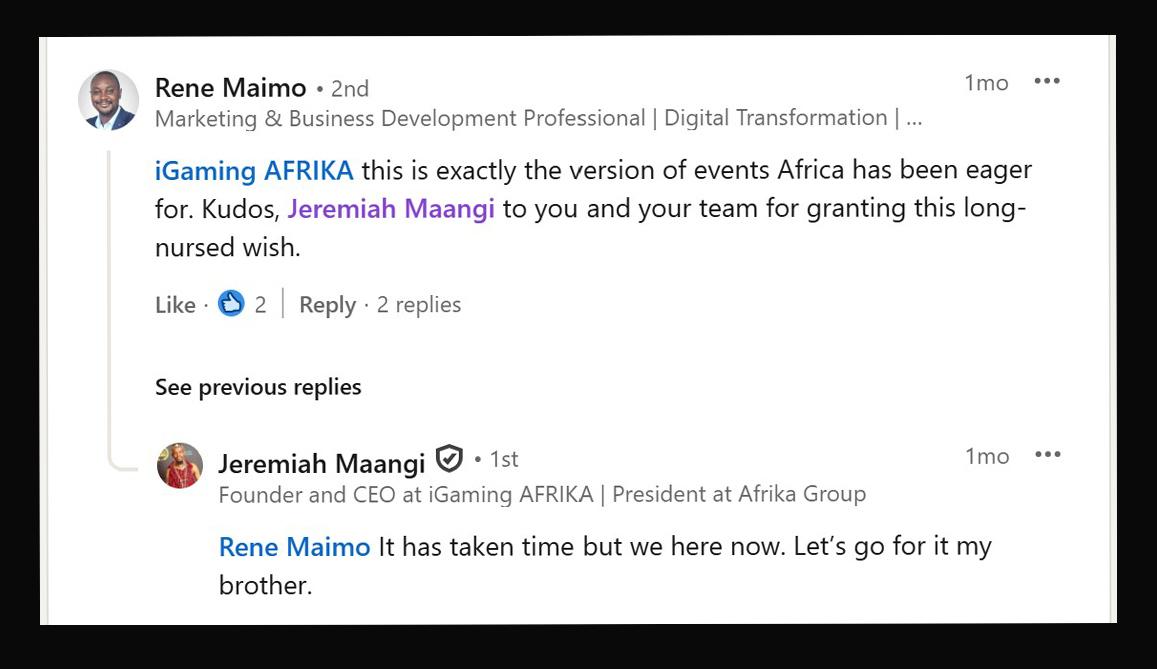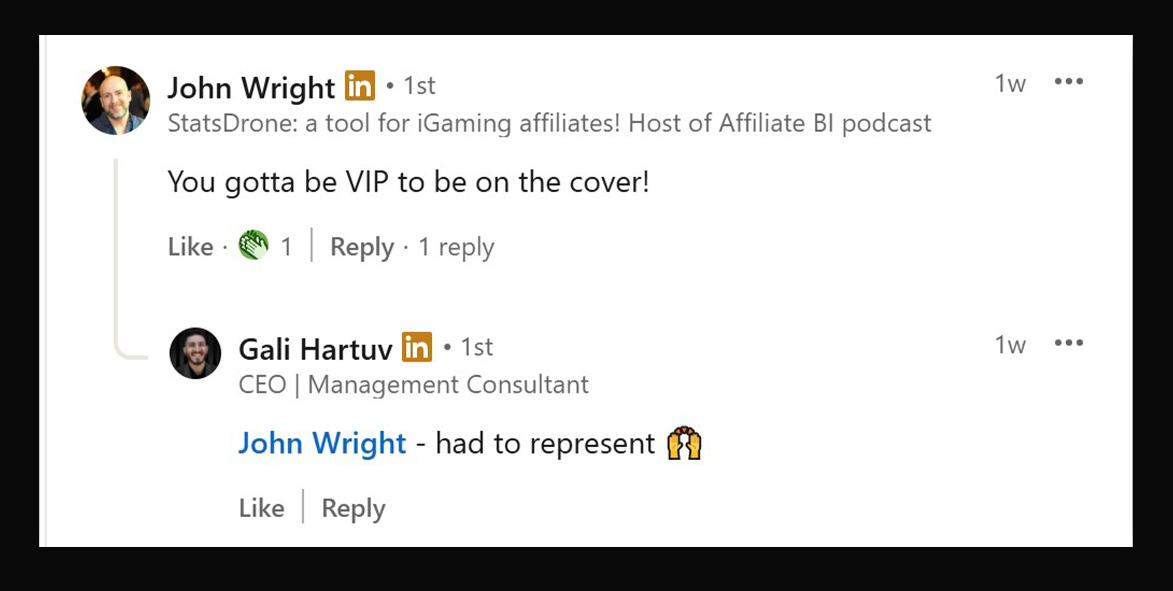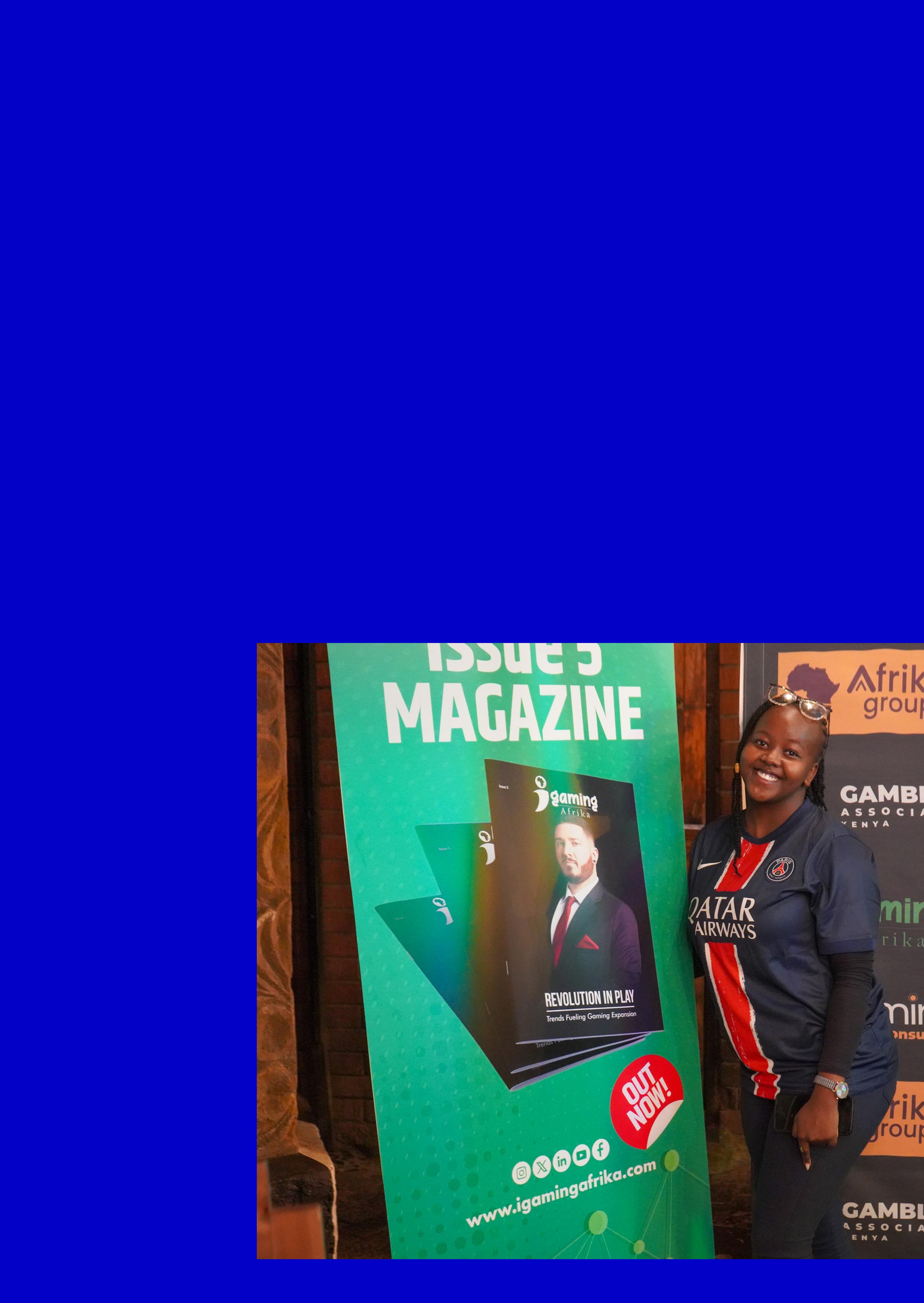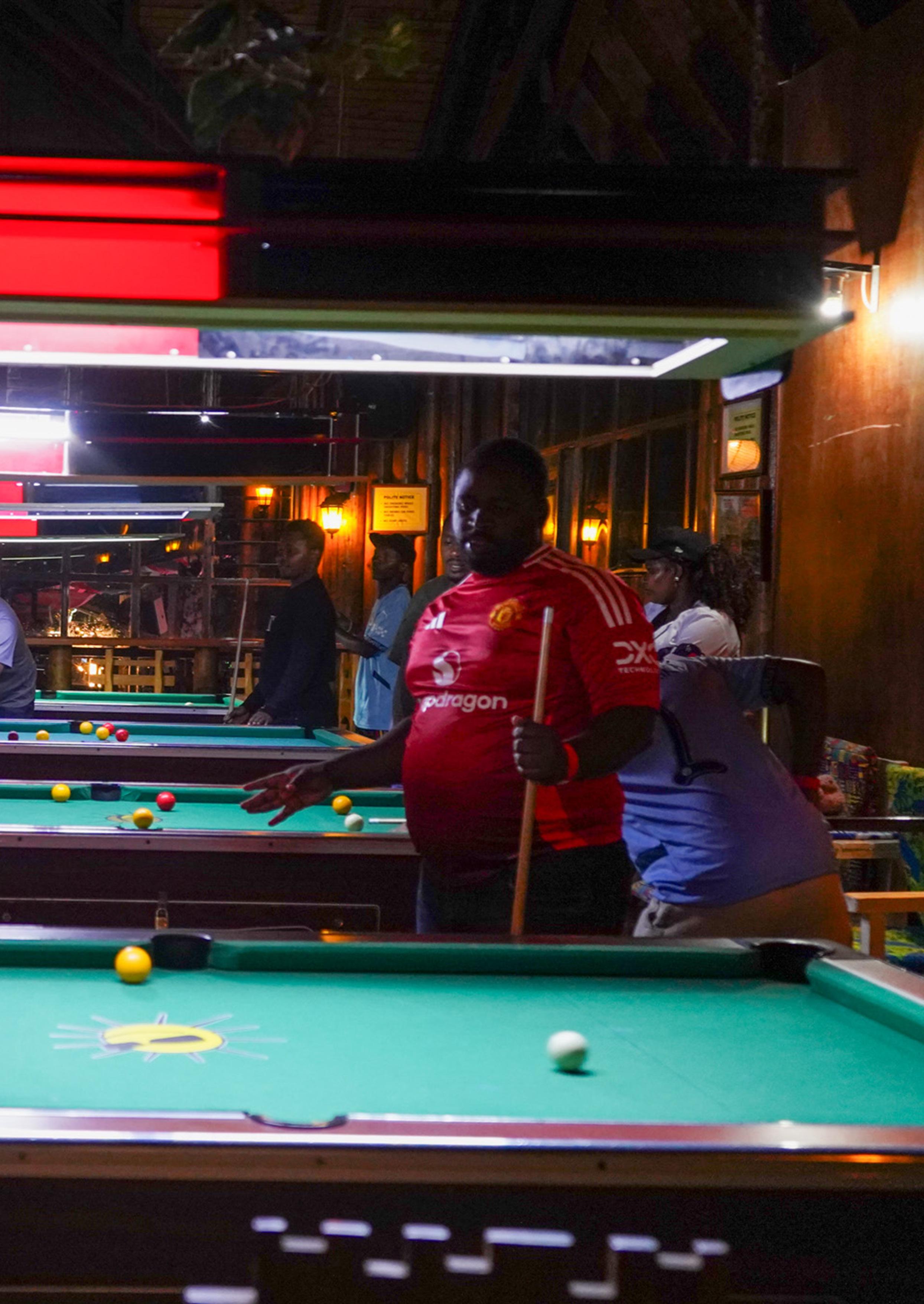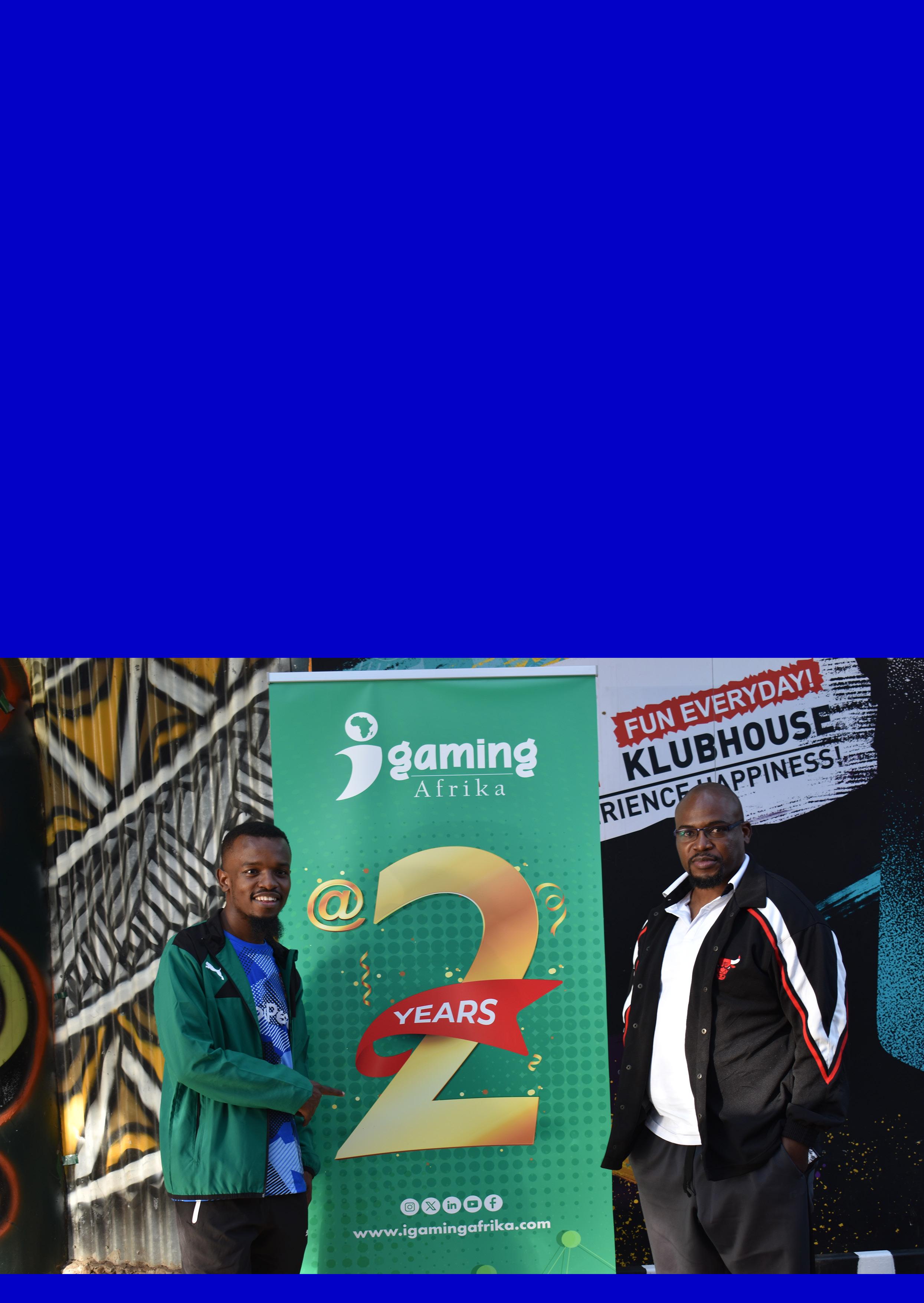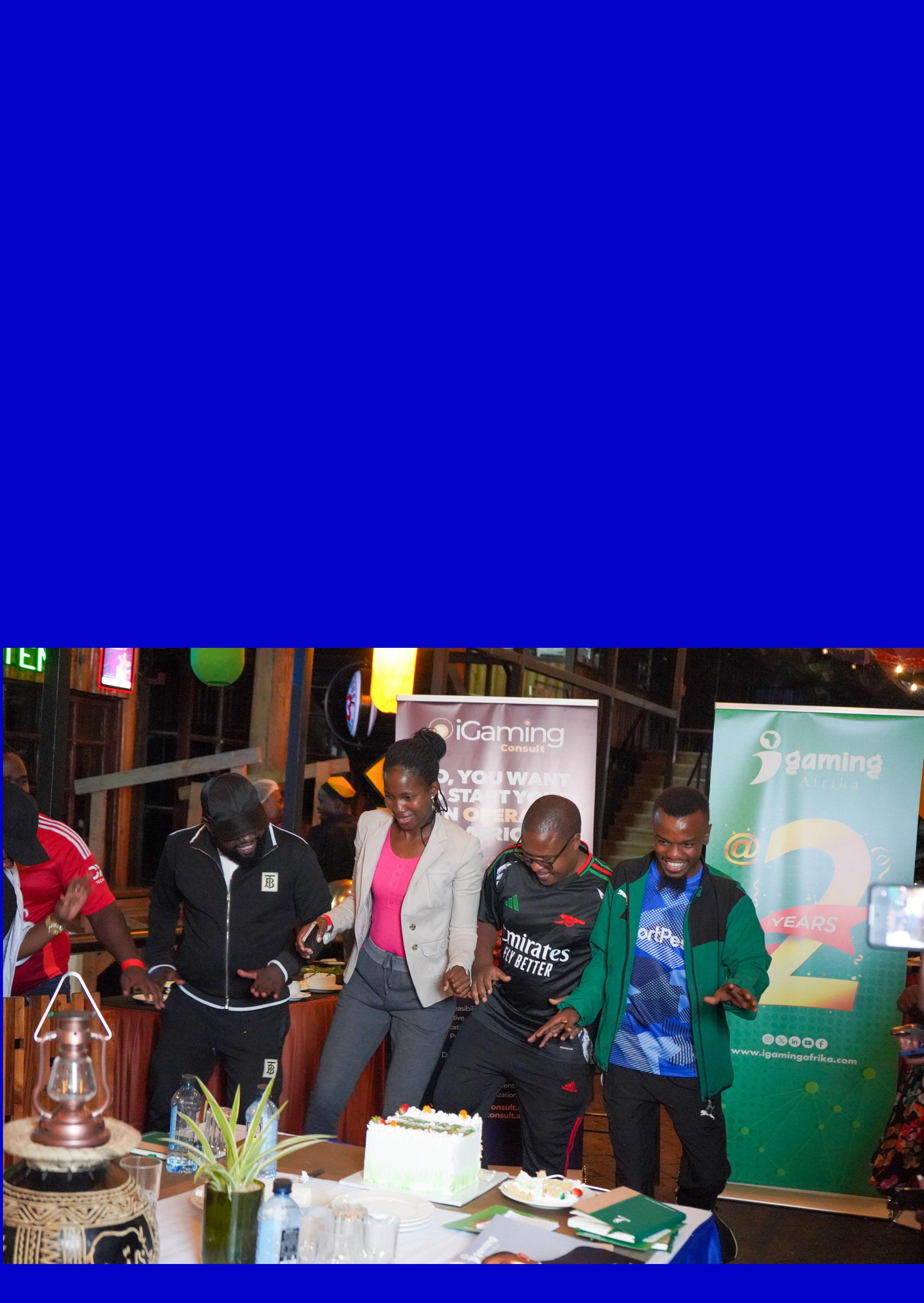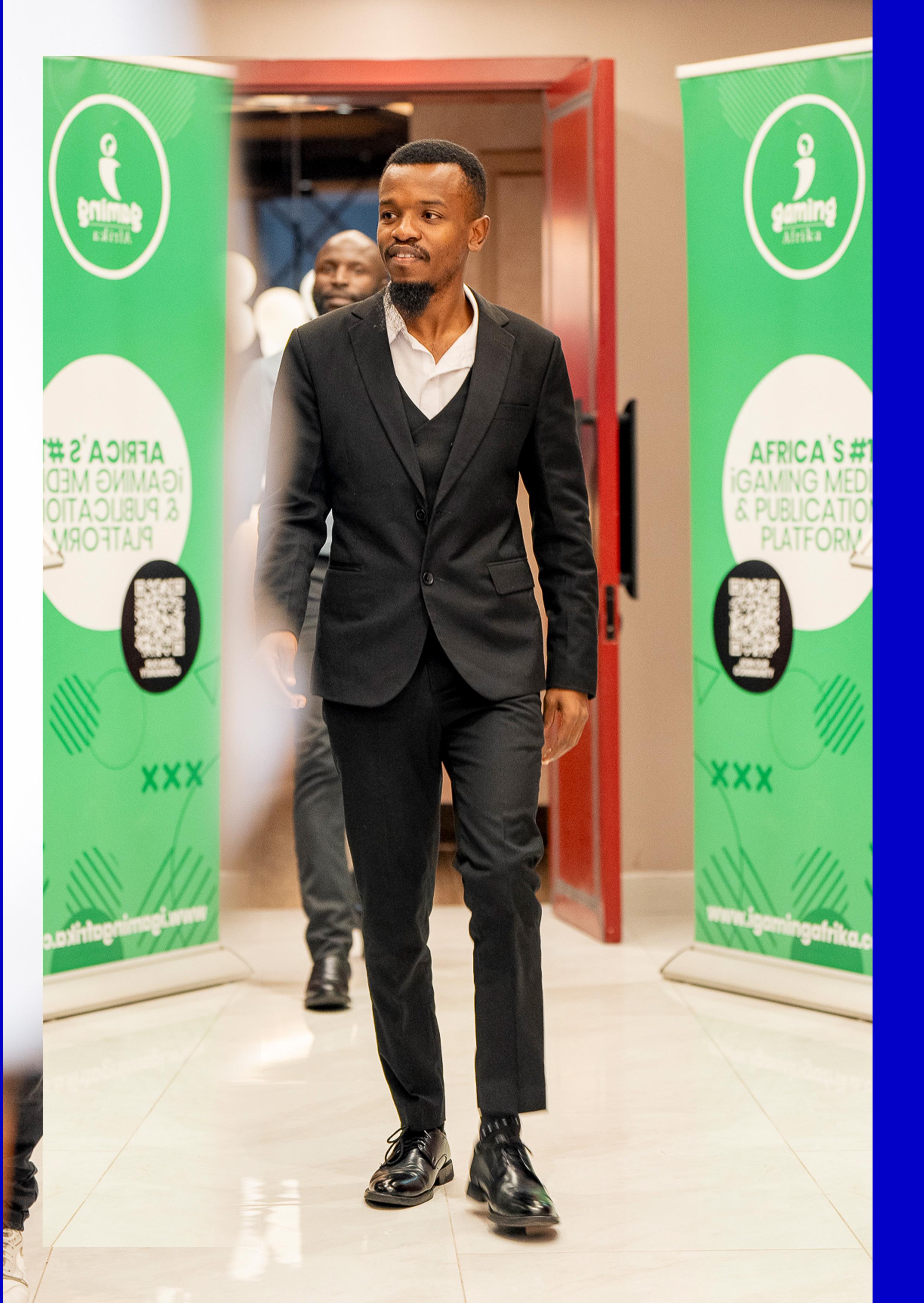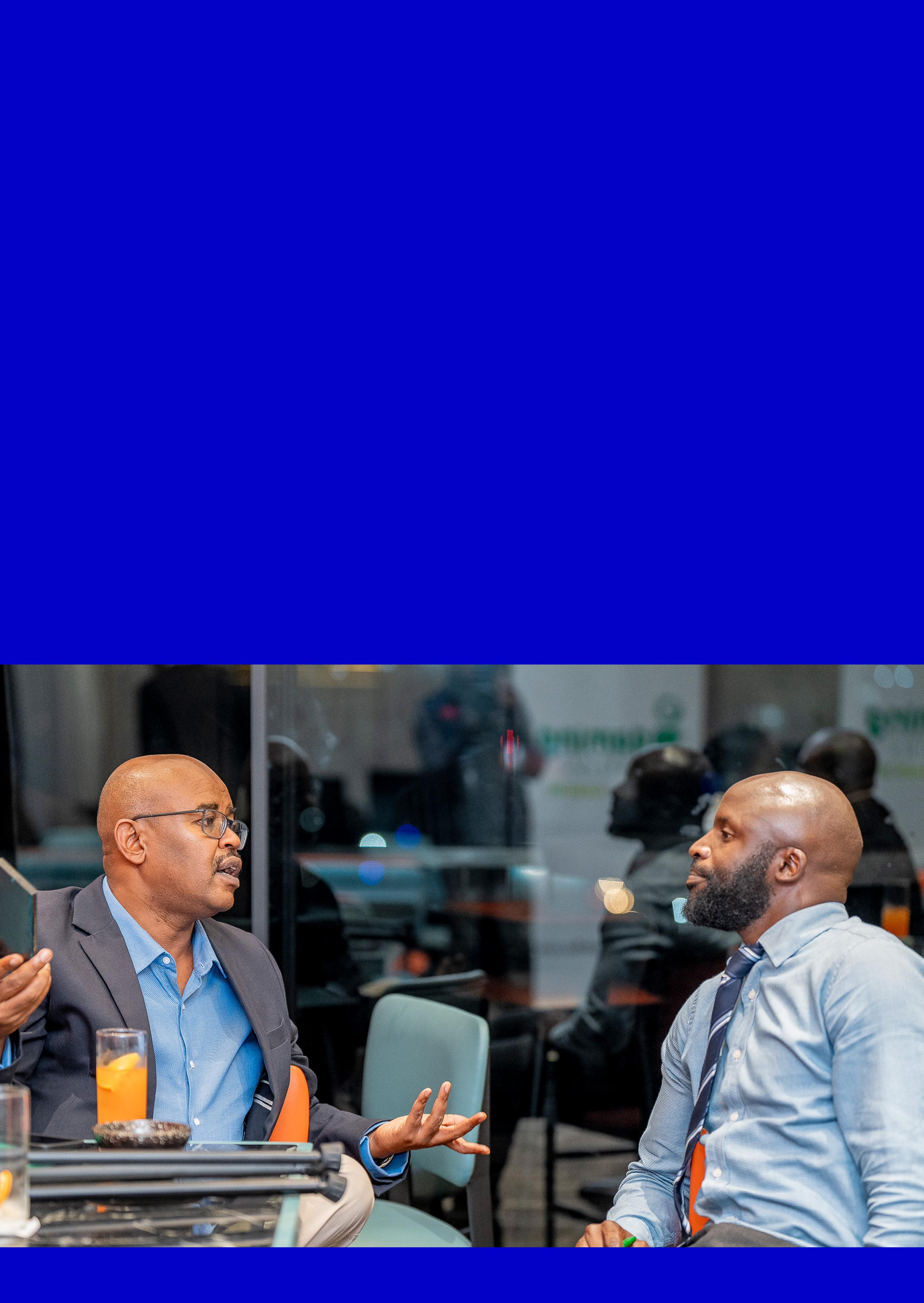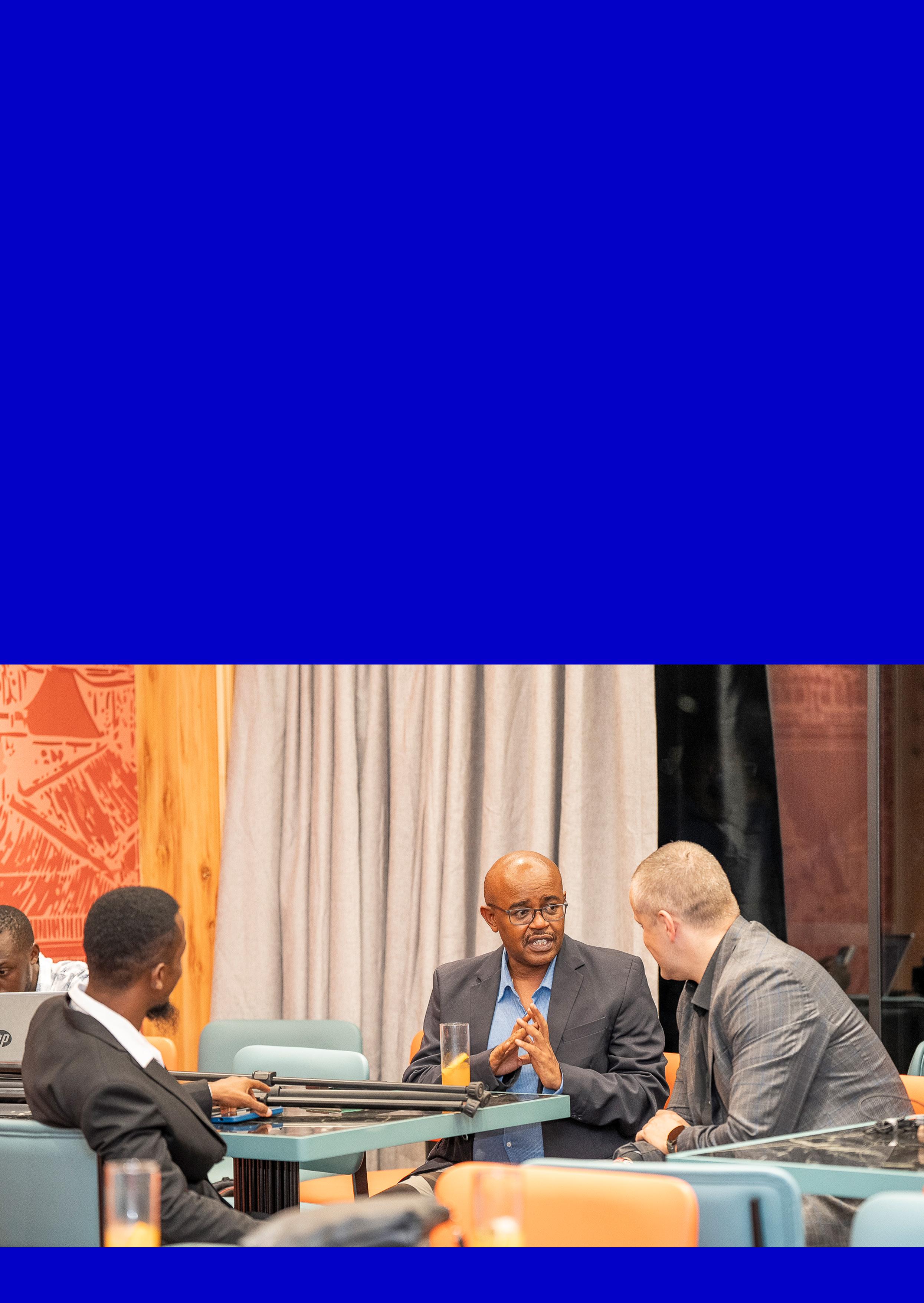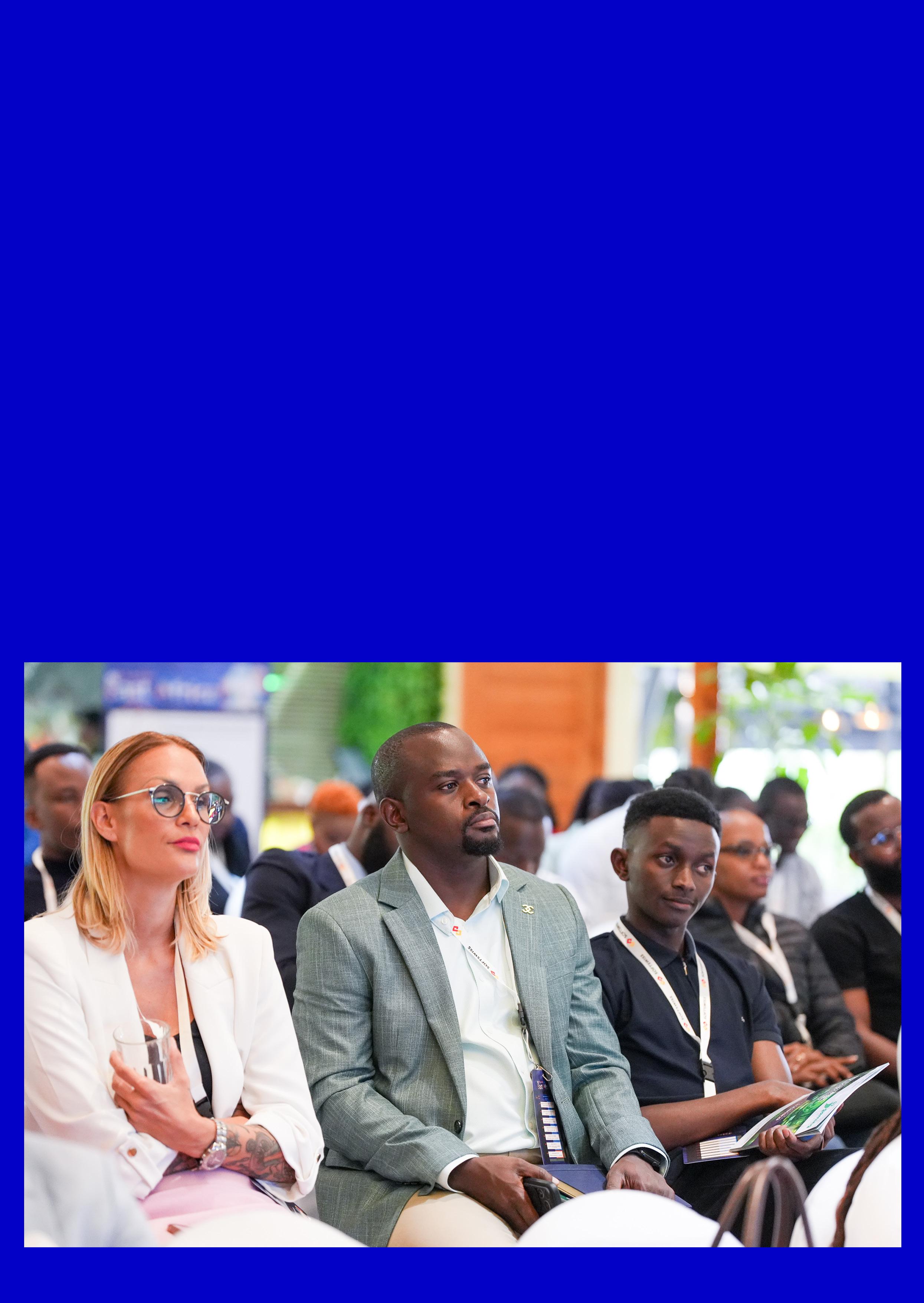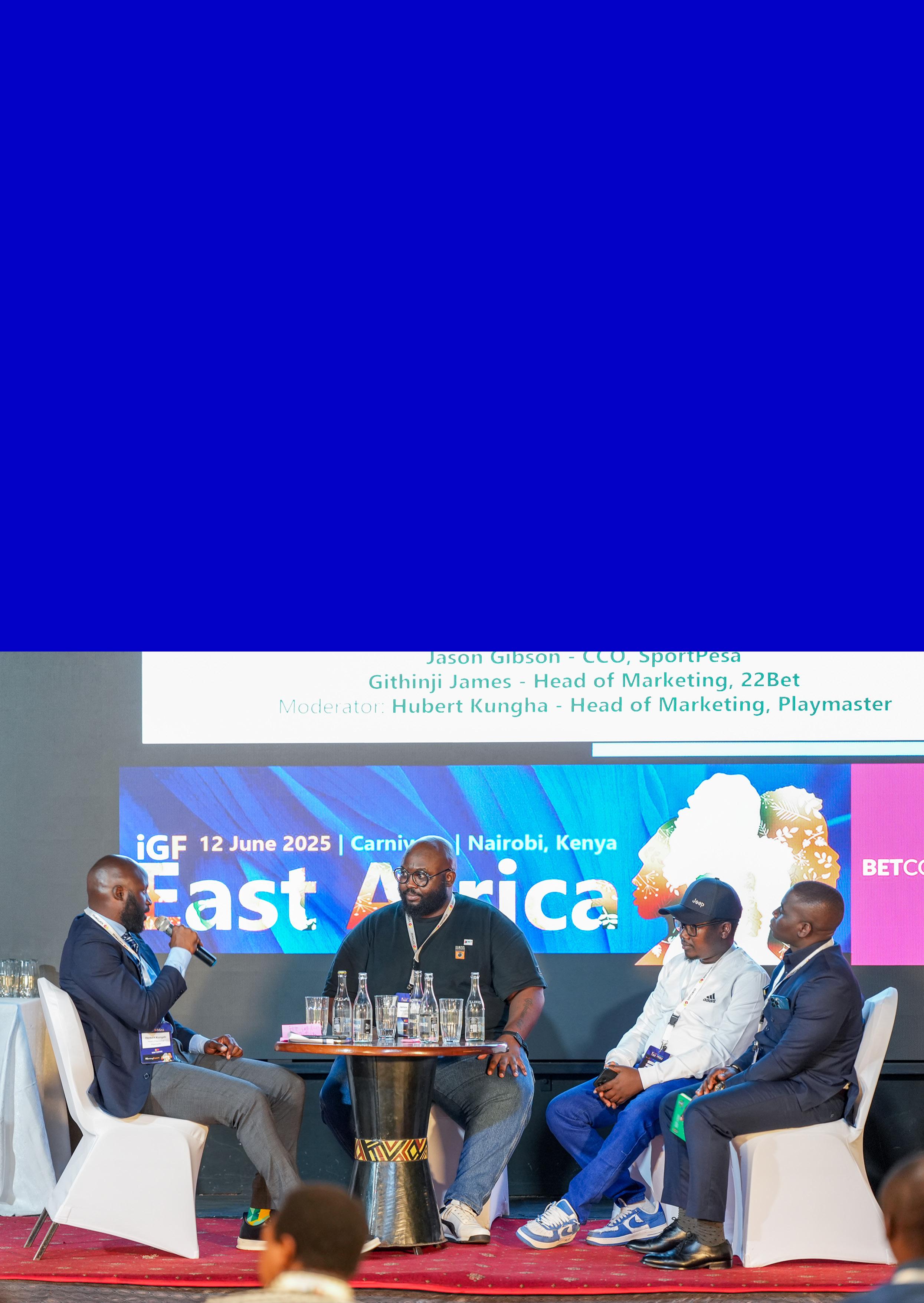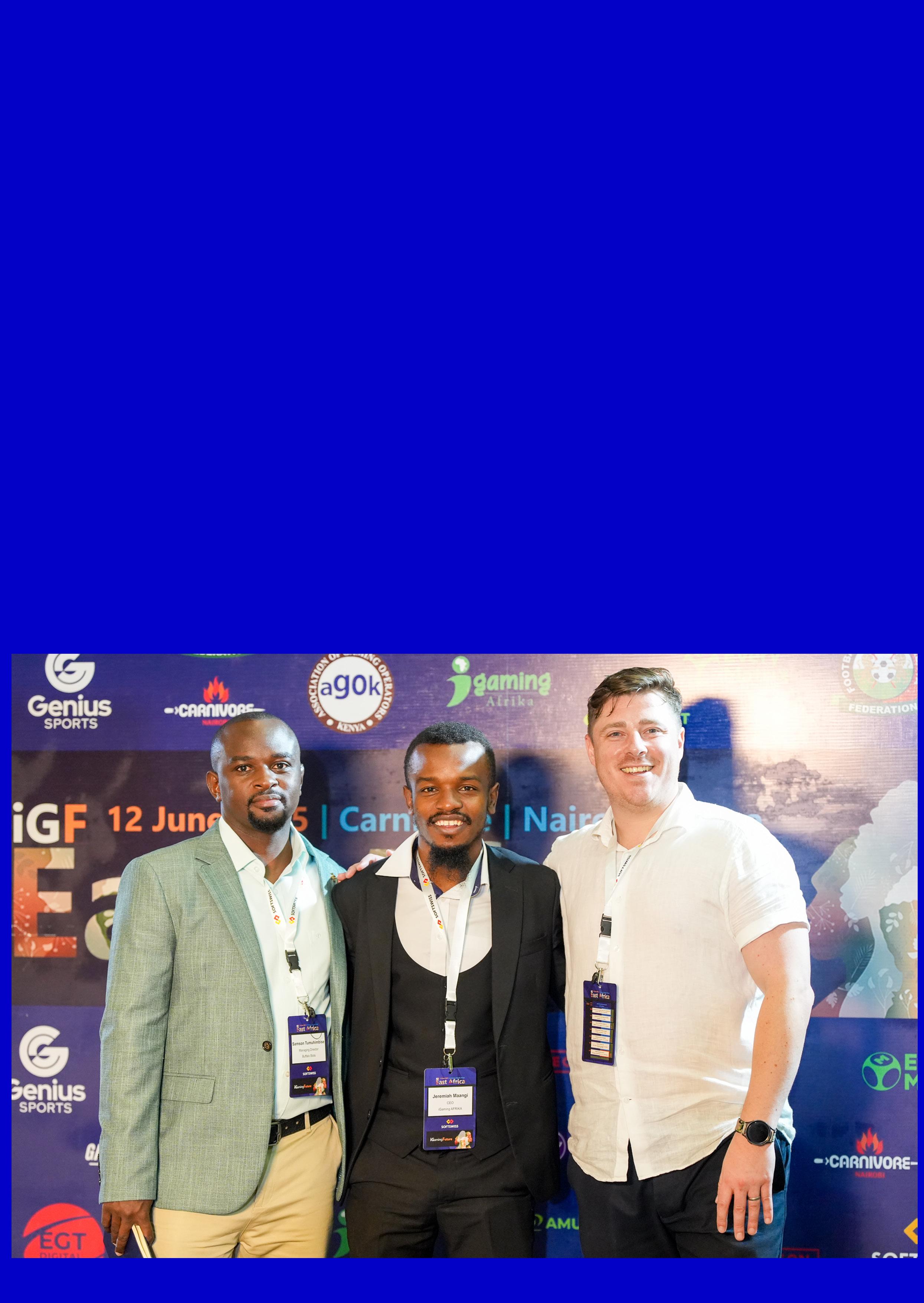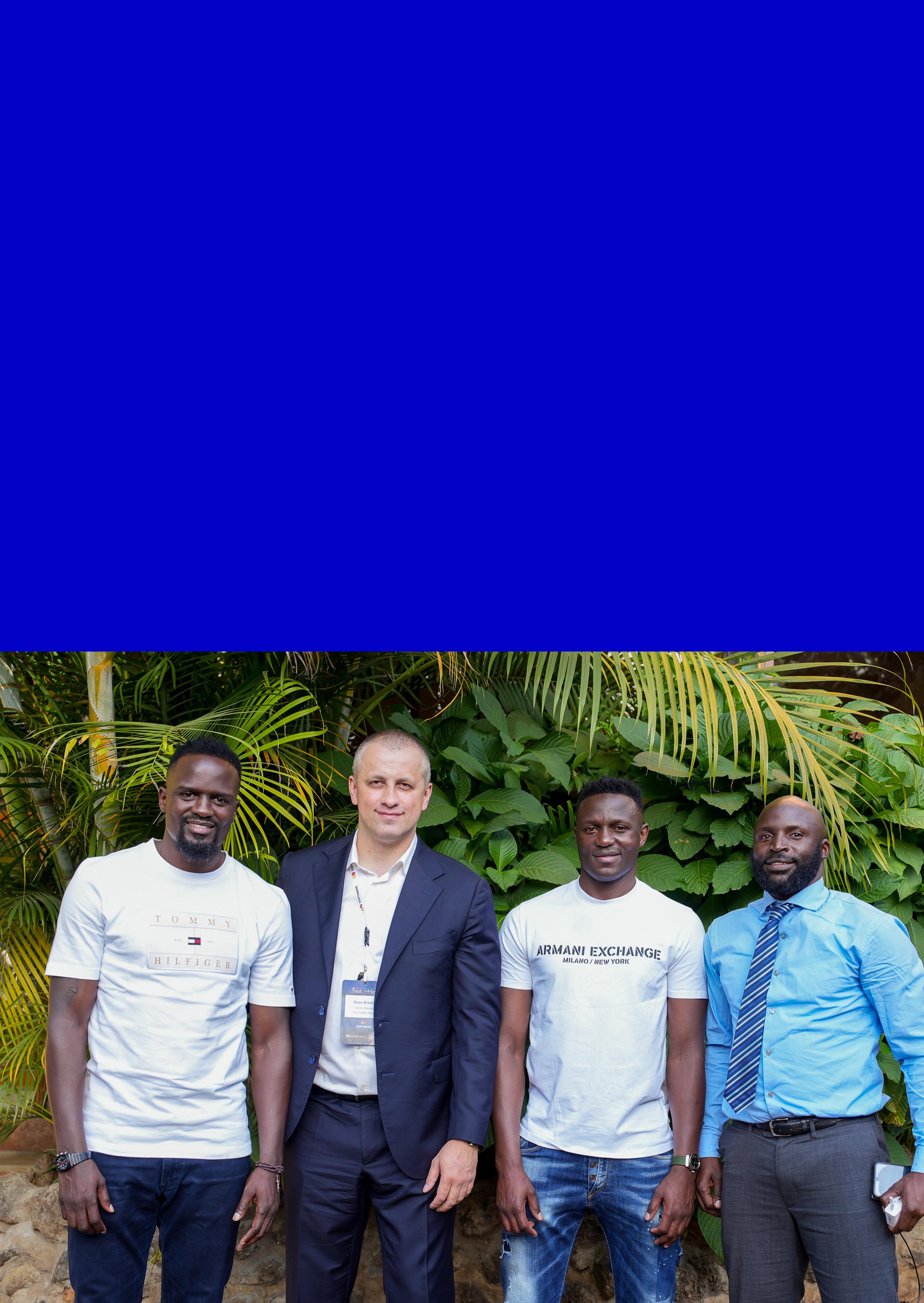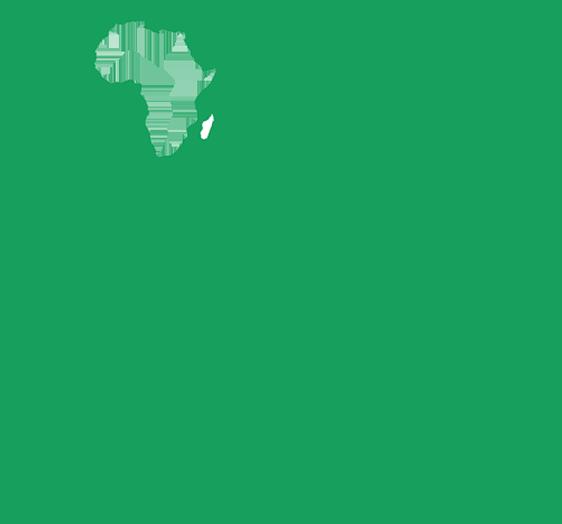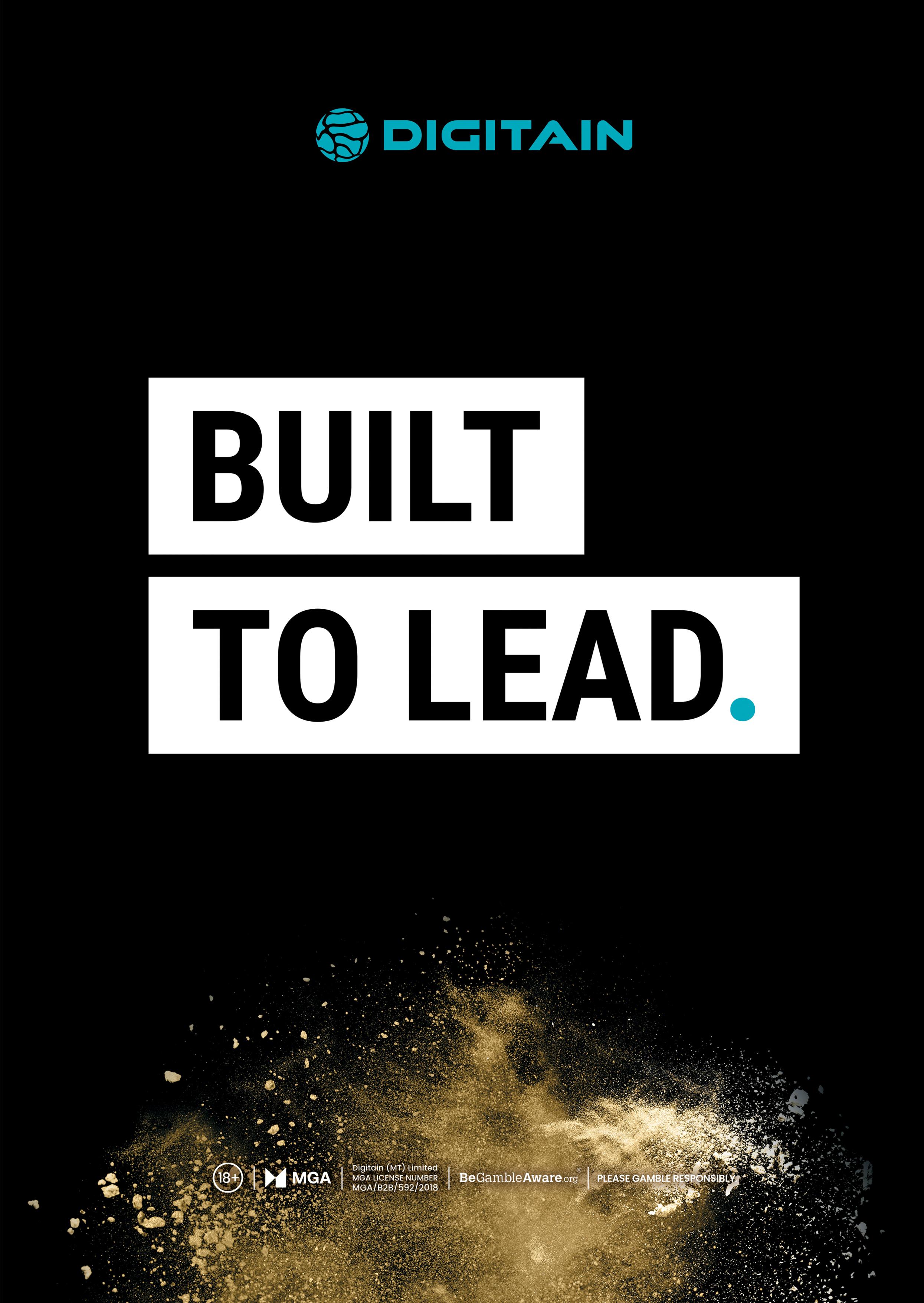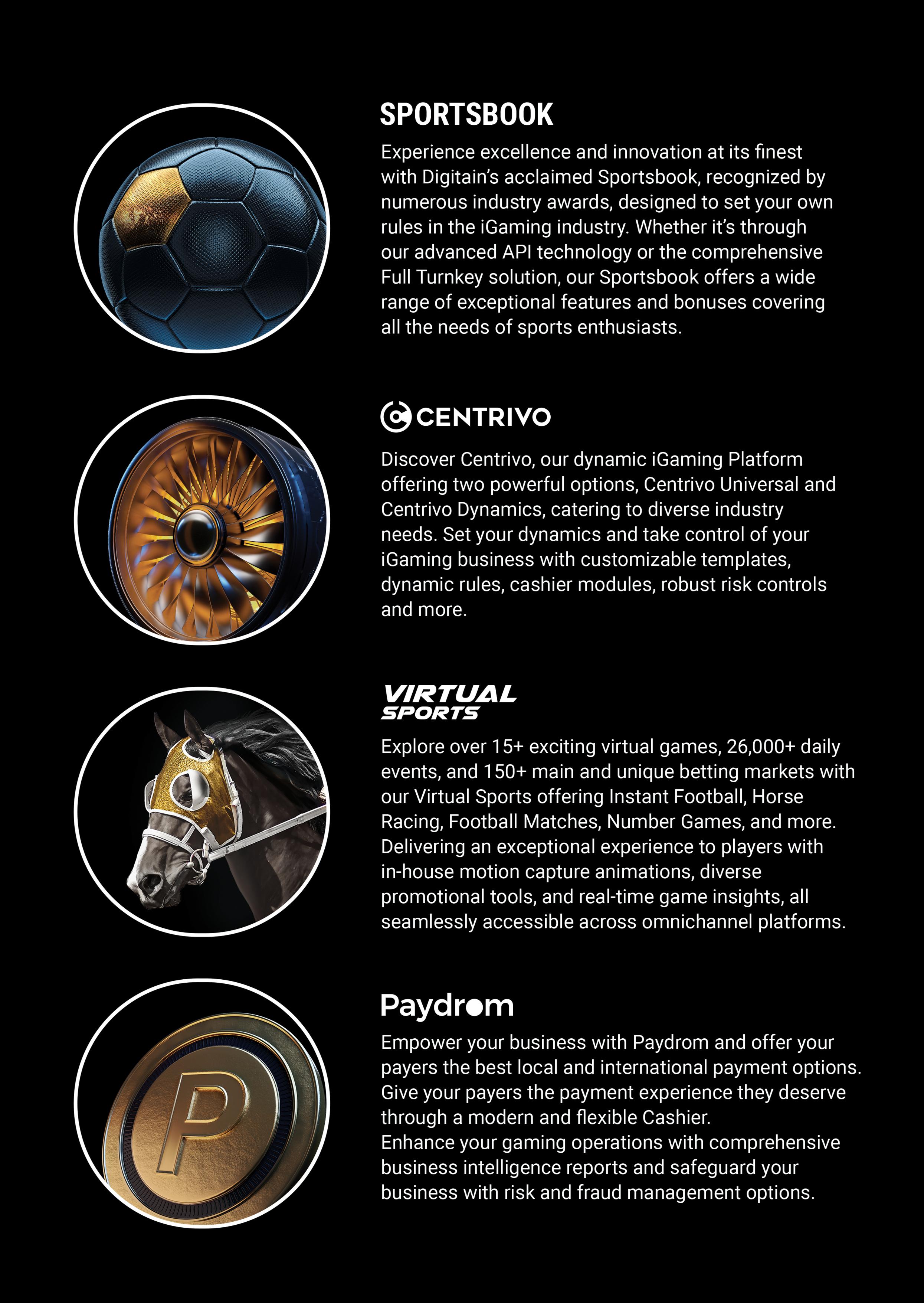STAKING ON TECH
Shaping the Future of Play







Africa’s iGaming landscape is in the midst of a remarkable transformation. With mobile penetration at record highs, internet connectivity strengthening, and a digitally fluent, youthful population eager for new experiences, the continent is fast becoming one of the most exciting frontiers for gaming. This issue brings together clearly attributed data and expert perspectives to unpack the forces shaping this evolution.
The numbers tell a powerful story. Africa’s gaming industry was valued at $1.8 billion in 2024, reflecting a 12.4% year-on-year growth (Mordor Intelligence). More than 90% of this revenue comes from mobile gaming, a natural outcome in a region where mobile remains the primary gateway to services. By 2025, Africa recorded 855 million mobile connections and over 1 billion active SIM cards, underscoring the continent’s mobile-first culture. At the same time, digital infrastructure is advancing: the IFC’s $100 million investment in 2024 to expand data centres across Ethiopia, Uganda, Angola, and Mozambique signals a new era of scalable, reliable connectivity.
But Africa’s greatest asset is its people. With over 60% of its population under 25 (UN, 2023), Africa is the world’s youngest continent. This generation is tech-savvy, entertainment-driven, and hungry for culturally relevant digital experiences. Together, mobile adoption, improved infrastructure, and youthful energy are not just fuelling growth, they are reshaping the very foundations of iGaming across the continent. This was the central theme of the recent iGaming AFRIKA webinar, where industry leaders explored Africa’s most promising markets.
In this issue’s cover story, we feature tech entrepreneur Artur Harutyunyan, founder of BetFounders, who shares his journey from social gaming to building scalable iGaming platforms for Africa. He highlights how data-driven strategies, AI-powered engagement, and culturally rooted storytelling are redefining player experiences, even as regulatory, infrastructure, and payment challenges demand innovative solutions.
As you turn these pages, you’ll encounter a blend of hard data, local perspectives, and bold visions for iGaming’s future in Africa. Our aim is to illuminate opportunities, address challenges, and celebrate the diverse voices driving this fast-evolving industry.
We invite you to dive in. Each article offers a unique lens, whether on market dynamics, technology innovations, regulation, or storytelling, together painting a comprehensive picture of Africa’s dynamic iGaming journey.

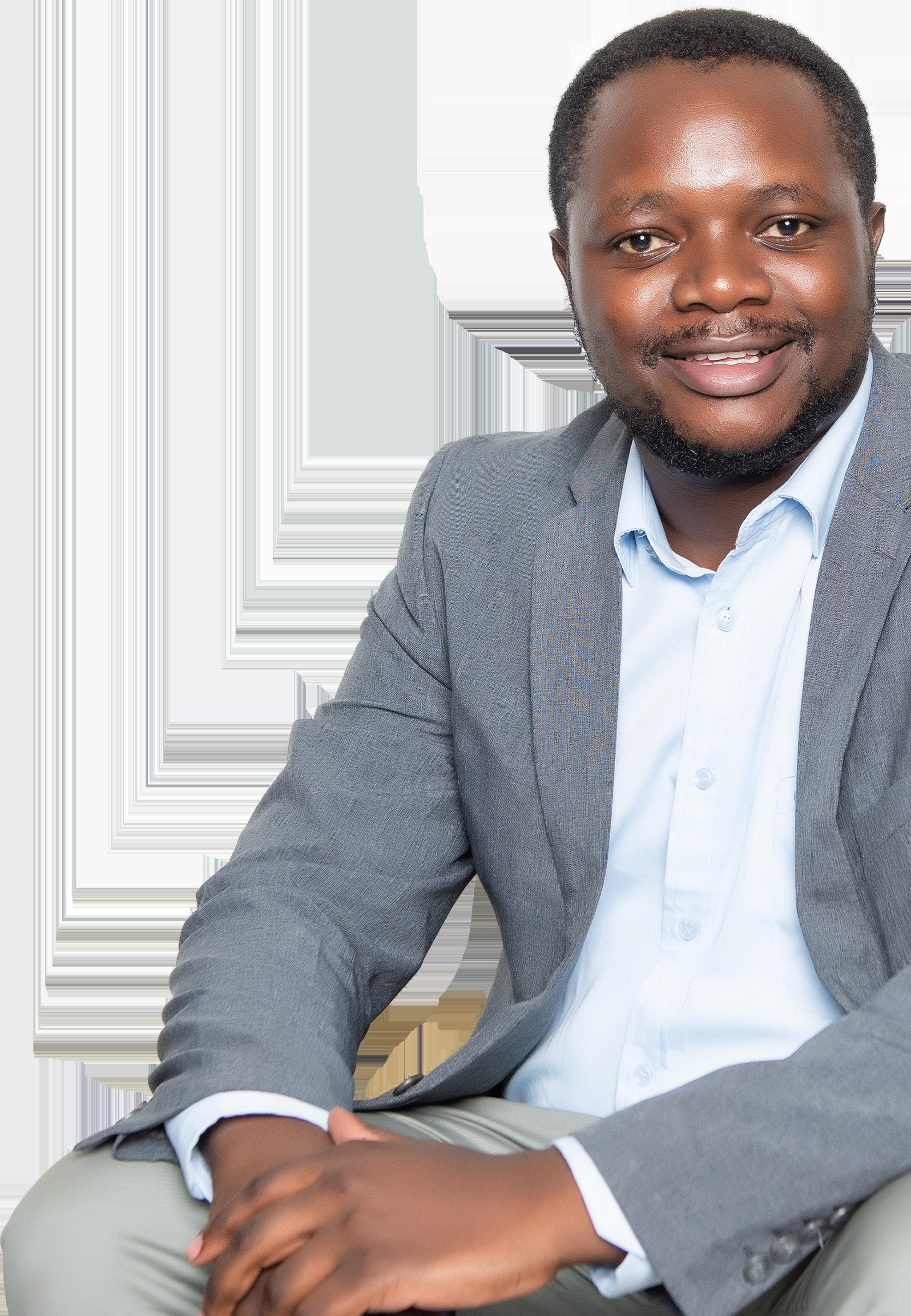


Africa Gaming Expo: Elevating Africa’s Gaming Industry to Global Standards
In this discussion, Charles Ekundayo, CEO of Africa Gaming Expo Limited, shares the vision, challenges, and opportunities driving AGE’s mission to unite industry stakeholders, foster innovation, and create a truly Pan-African platform that will shape the future of gaming on the continent.
From Account Management to Market Leadership: Agatha Wanjugu’s Journey to Success
In this piece, Agatha Wanjugu, Sales and Account Manager at QTech Games, explores her career growth, passion for innovation and her role in shaping QTech’s expansion across East Africa
Building Trust in Uganda’s Gaming Scene: The Vision and Journey of Nasif K. Balinda
Nasif K. Balinda, Editor-in-Chief, Gaming Port Uganda, shares his journey, the inspiration behind Gaming Port, and his vision for the future of Africa’s iGaming industry.
Betting on the Future: Building an Esports Betting Ecosystem from the Ground Up
In an exclusive with iGaming AFRIKA, Marek Suchar, Managing Director and Co-founder of Oddin.gg, shares how eSims could be the continent’s breakthrough product, why localisation is the key to long-term success, and what African operators can learn from the most mature esports markets around the globe.
iGaming AFRIKA Summit 2026
In this article, we unpack the true significance of the iGaming AFRIKA Summit (iGA Summit), exploring how the summit fosters collaboration across Africa’s fragmented markets, champions responsible gaming and regulatory harmonization, drives tech-led innovation, and empowers the next generation of iGaming leaders with the tools and connections to thrive.
68

77
85 96 119
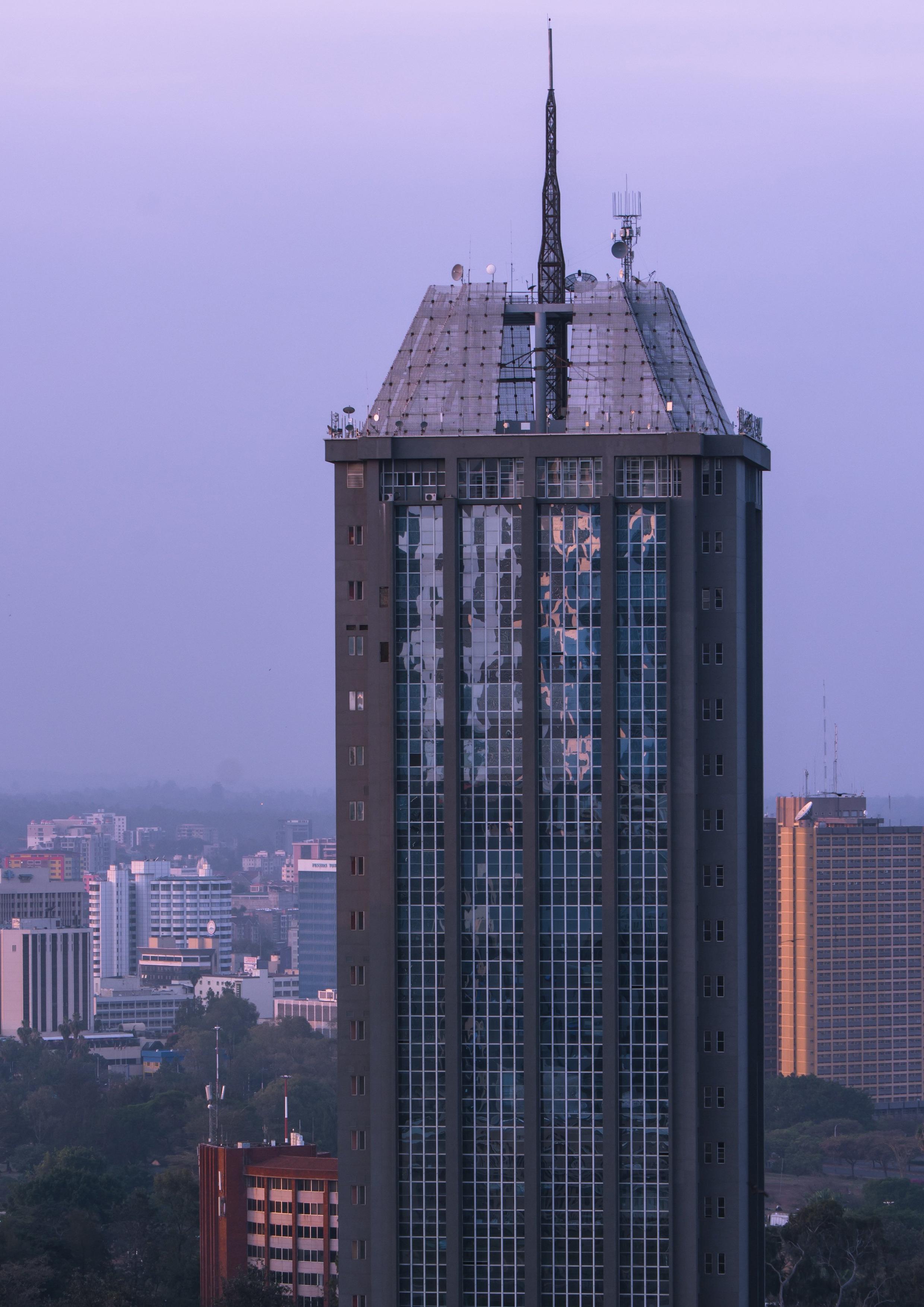


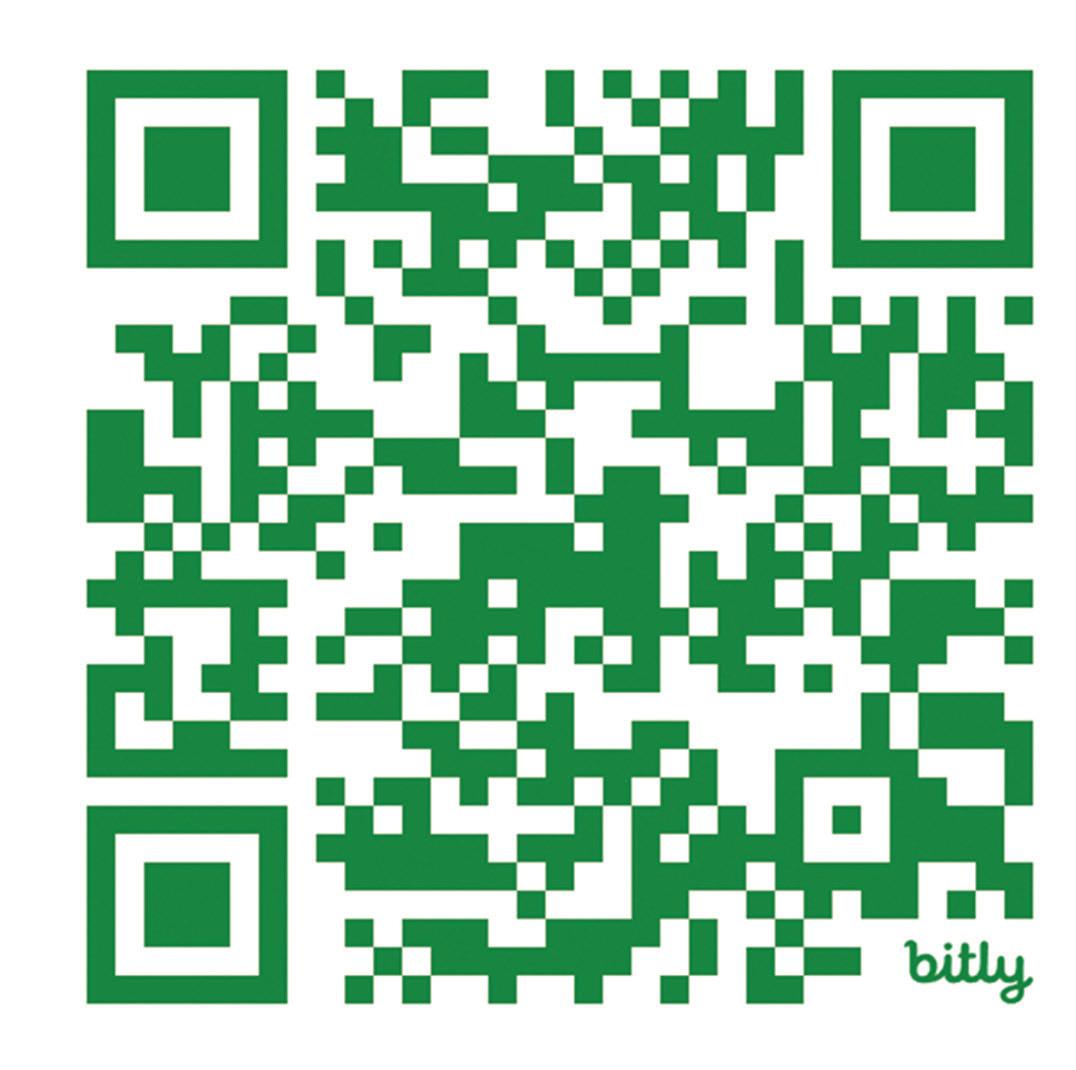



As we navigate the rapidly evolving landscape of the African gaming industry, it becomes increasingly clear that traditional marketing methods are no longer sufficient to capture the attention of our dynamic and youthful market. Gone are the days when operators relied solely on mainstream media, outdoor advertising and costly digital advertising campaigns that often yielded unpredictable results amidst intense competition.
Africa is undeniably the continent of the youth. With approximately 60% of our population under the age of 25 and the rise of Gen Z's digital natives who are highly tech-savvy, there exists a tremendous opportunity for gaming operators to rethink their customer acquisition strategies.
This is where performance-based affiliate marketing steps in as a game-changer. By adopting this strategy, operators can not only significantly reduce their marketing budgets but also enhance transparency and performance tracking. Affiliate marketing leverages the influence of content creators, bloggers, and social media personalities to reach targeted audiences authentically and effectively.
In an environment where competition is fierce and marketing budgets are under constant scrutiny, affiliate marketing offers a cost-efficient alternative that aligns perfectly with the preferences of our young, digital-first population. I encourage all industry players to explore and invest in this promising avenue, because the success of our industry depends on it.
Jeremiah Maangi CEO, iGaming AFRIKA



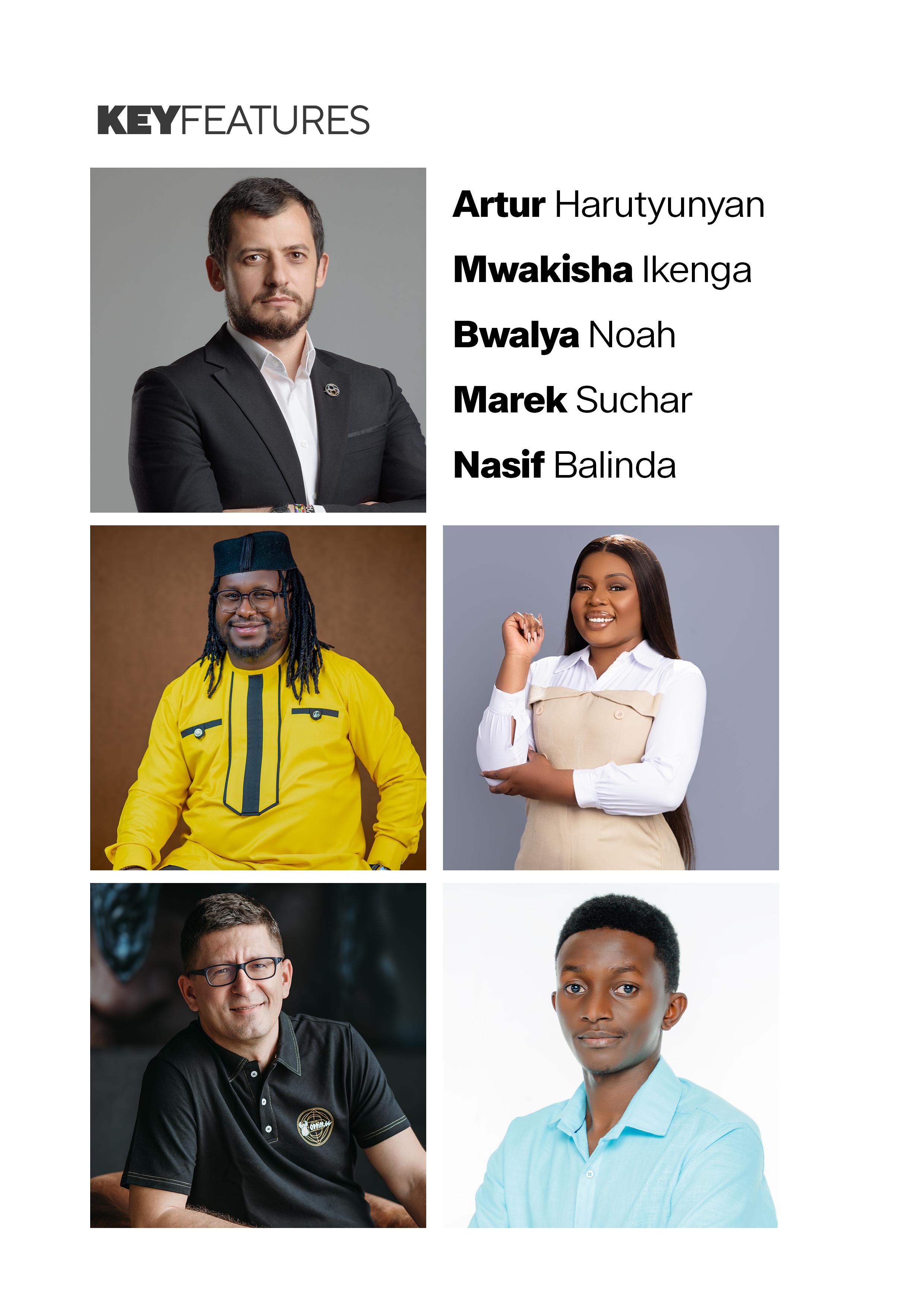
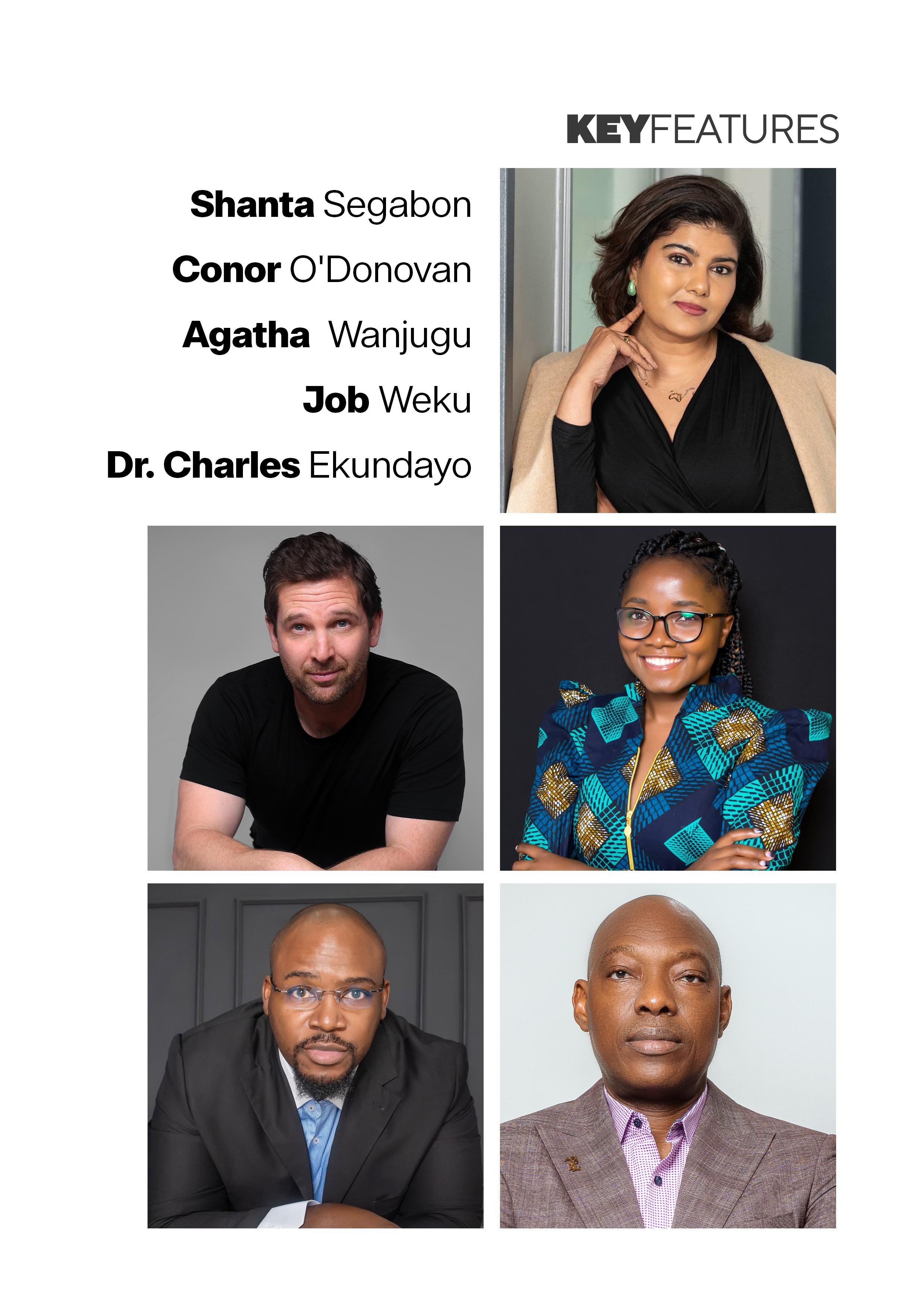

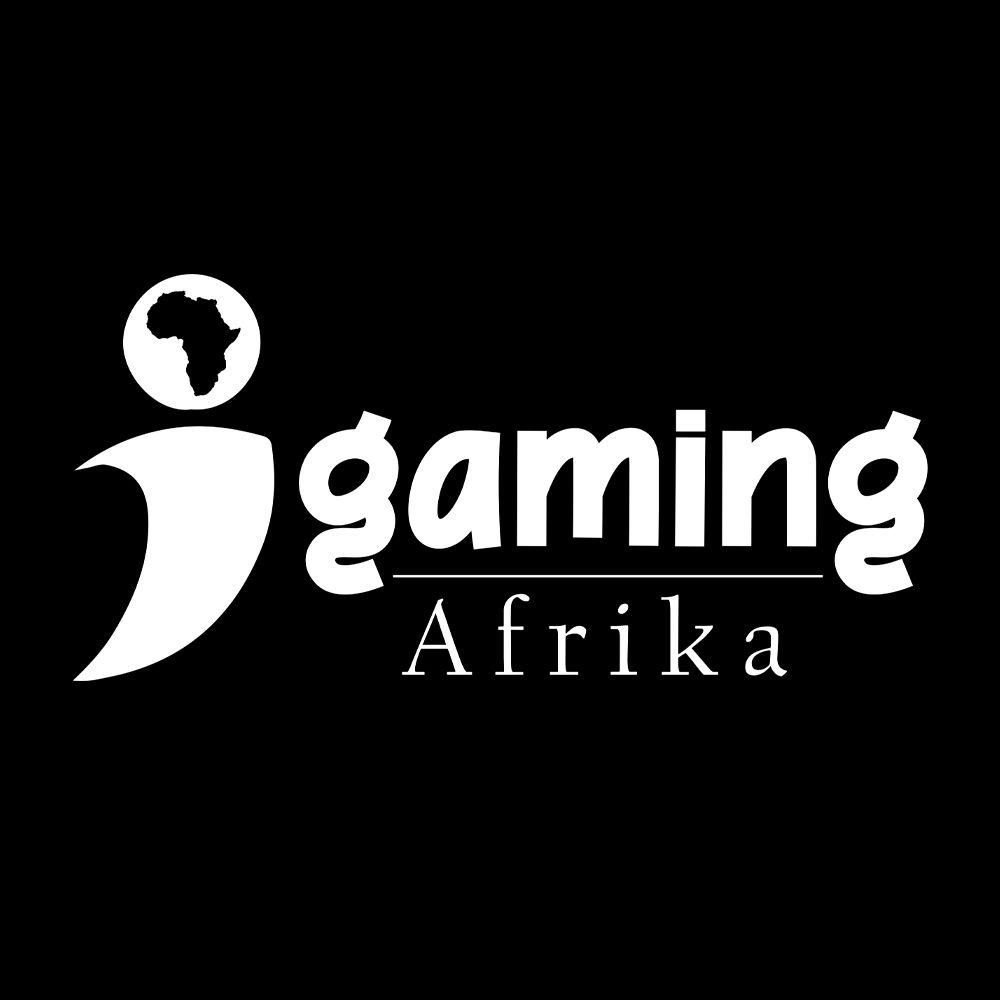

“



In Africa’s fast-evolving iGaming sector, no two markets are the same, and few know this better than Bwalya Noah, Southern and Eastern Africa Regional Manager for New Markets & Campaigns at betPawa. With hands-on experience launching in diverse regulatory and cultural landscapes, Bwalya has mastered the art of balancing localised strategies with a consistent brand promise. In this conversation, she shares insights on market readiness, the role of mobile money, collaborating with regulators, and why responsible gaming is just as critical as growth in shaping the industry’s future.
Could you please introduce yourself and what you do?
I am Bwalya Noah, and I work at betPawa as Regional Manager for Southern and Eastern Africa, focusing on New Markets & Campaigns. I’ve spent years navigating Africa’s dynamic iGaming landscape, launching in diverse markets and tailoring our approach to meet local realities. At the heart of my work is a belief that sustainable growth in this industry comes from trust, cultural understanding, and a commitment to doing things the right way.
You lead New Markets & Campaigns across both Southern and Eastern Africa, regions that differ in regulation, infrastructure, and customer behaviour. How do you tailor your expansion strategy to reflect these local nuances while keeping a consistent brand promise?
Successfully leading new markets and campaign initiatives across Southern and Eastern Africa necessitates a balanced dual approach. This involves integrating localisation efforts with a consistent brand promise. Given the diverse regulatory landscapes, varying infrastructure maturity, and distinct customer preferences within these regions, a thorough understanding of these nuances is paramount to any expansion strategy.
Looking at both mature and emerging markets under your leadership, what are some early signs you watch for to gauge whether a new market is ready for entry?
Market entry readiness hinges on a clear and stable regulatory environment, significant market size and growth potential (indicated by consumer interest and online engagement), and robust infrastructure like reliable payment systems, high internet penetration, and widespread smartphone usage. Local partnerships with banks and telecom companies also signal market openness. Furthermore, understanding cultural acceptance and social attitudes is vital for addressing responsible gaming and identifying opportunities. Monitoring the competitive landscape also provides valuable insights into differentiation. Finally, local expertise is essential for navigating specific regulatory and cultural differences.
What role do mobile money and digital wallets play in the success of iGaming platforms across Africa?
Mobile money and digital wallets play a vital role in the success of African iGaming platforms by offering secure and accessible transactions where traditional banking is lacking. Helping in bridging the gap between the banked and unbanked populations, building trust through real-time payments, boosting customer onboarding, and fostering industry growth and sustainability.
Katika sekta ya iGaming inayokua kwa kasi barani Afrika, hakuna masoko mawili yanayofanana, na ni wachache wanaofahamu hili vyema kuliko Bwalya Noah, Meneja wa Kanda ya Kusini na Mashariki mwa Afrika kwa Masoko na Kampeni Mpya katika betPawa. Kwa kuanzishwa kwa uzoefu katika nyanja mbalimbali za udhibiti na kitamaduni, Bwalya amebobea katika sanaa ya kusawazisha mikakati iliyojanibishwa na ahadi thabiti ya chapa. Katika mazungumzo haya, anashiriki maarifa juu ya utayari wa soko, jukumu la pesa za rununu, kushirikiana na wadhibiti, na kwa nini michezo ya kubahatisha inayowajibika ni muhimu sawa na ukuaji katika kuunda mustakabali wa tasnia.
Tafadhali unaweza kujitambulisha na unachofanya?
Mimi ni Bwalya Noah, na ninafanya kazi katika betPawa kama Meneja wa Kanda ya Kusini na Mashariki mwa Afrika, nikizingatia Masoko na Kampeni Mpya. Nimetumia miaka mingi kuvinjari mandhari ya Afrika ya iGaming, nikizindua katika masoko mbalimbali na kurekebisha mbinu yetu ili kukidhi hali halisi ya ndani. Kiini cha kazi yangu ni imani kwamba ukuaji endelevu katika tasnia hii unatokana na uaminifu, uelewa wa kitamaduni, na kujitolea kufanya mambo kwa njia ifaayo.
Unaongoza Masoko na Kampeni Mpya kote Kusini na Mashariki mwa Afrika, maeneo ambayo yanatofautiana katika udhibiti, miundombinu na tabia ya wateja. Je, unapangaje mkakati wako wa upanuzi ili kuakisi mambo haya ya ndani huku ukiweka ahadi thabiti ya chapa?
Kuongoza kwa mafanikio masoko mapya na mipango ya kampeni kote Kusini na Mashariki mwa Afrika kunahitaji mbinu mbili zenye uwiano. Hii inahusisha kuunganisha juhudi za ujanibishaji na ahadi thabiti ya chapa. Kwa kuzingatia mandhari mbalimbali za udhibiti, ukomavu tofauti wa miundombinu, na mapendeleo tofauti ya wateja ndani ya maeneo haya, kuelewa kwa kina tofauti hizi ni jambo la msingi kwa mkaklati wowote wa upanuzi.
Ukiangalia masoko yaliyokomaa na yanayoibukia chini ya uongozi wako, ni baadhi ya ishara gani za mapema unazotazama ili kupima kama soko jipya liko tayari kuingia?
Utayari wa kuingia sokoni unategemea mazingira yaliyo wazi na thabiti ya udhibiti, ukubwa wa soko na uwezekano wa ukuaji (unaoonyeshwa na maslahi ya watumiaji na ushirikishwaji wa mtandaoni), na miundombinu thabiti kama vile mifumo ya malipo inayotegemewa, upenyaji wa juu wa intaneti na matumizi mengi ya simu mahiri. Ushirikiano wa ndani na benki na kampuni za mawasiliano pia huashiria uwazi wa soko. Zaidi ya hayo, kuelewa kukubalika kwa kitamaduni na mitazamo ya kijamii ni muhimu kwa kushughulikia michezo ya kubahatisha inayowajibika na kutambua fursa. Kufuatilia mazingira ya ushindani pia hutoa maarifa muhimu katika upambanuzi. Hatimaye, utaalamu wa ndani ni muhimu kwa kuabiri tofauti mahususi za udhibiti na kitamaduni.
Pesa za rununu na pochi za kidijitali zina jukumu gani katika mafanikio ya majukwaa ya iGaming kote barani Afrika?
Pesa za rununu na pochi za kidijitali zina jukumu muhimu katika mafanikio ya mifumo ya Kiafrika ya iGaming kwa kutoa miamala salama na inayofikika pale ambapo huduma za benki za kitamaduni hazipo. Kusaidia katika kuziba pengo kati ya watu walio benki na wasio na benki, kujenga uaminifu kupitia malipo ya wakati halisi, kuongeza uingiaji wa wateja, na kukuza ukuaji na uendelevu wa tasnia.

How can regulators and operators work better together to protect players without stifling growth?
Through collaboration, regulators and operators can co-create responsible gaming frameworks. Regulators play a vital role in protecting players, ensuring fair play, and generating sustainable tax revenue for the country. However, when taxation or compliance costs are set too high, licensedoperators struggle to remain competitive. This creates a gap that unlicensed or grey market operators exploit, offering players lower odds orbonuses that regulated companies cannot match.
High taxation can unintentionally push betting activity into the grey market, as licensed operators struggle to remain competitive. When players migrate to unregulated platforms, regulators lose visibility, player protections are weakened, and tax revenue declines. The solution is a balanced tax andlicensing framework that allows regulated operators to thrive while delivering steady revenue to the state. This approach strengthenscompliance, keeps players within a safe environment, and ensures long-term sustainability of the industry. Clear and flexible regulation leads tolong-term success and happy customers.
What’s one big myth about the African gaming market that you often find yourself correcting?
Africa is not a single market; each country has distinct regulatory, economic, technological, and cultural conditions. Therefore, success requires highly localised strategies instead of broad assumptions.
While many operators chase mature, high-volume markets, you’ve consistently invested in developing regions like Lesotho and Mozambique. Why take that route, and how has it shaped betPawa’s regional advantage?
Expanding into new markets offers significant growth potential and a chance to broaden our customer base. We understand that each market is unique, especially regarding marketing strategies. To avoid self-reference bias, we tailor product offerings to specific target markets. betPawa is proud of its expansion efforts and is committed to increasing brand visibility.
Most operators are in the business to make money. However, they need to know the impact of gambling on society. What are some of the things you are doing at betPawa to ensure there is a balance between profitability and responsible gaming?
At betPawa, our operations are built on a foundation of strict adherence to regulatory standards across all markets. We are deeply committed to fostering responsible gaming, a principle reflected in all our communications and activities. This dedication extends to our Corporate Social Responsibility (CSR) initiatives and past sponsorships, which are designed to deliver tangible benefits to local communities such as the “locker room bonus.” Within betPawa’s business operations, sports development in Africa holds significant importance. We are deeply committed to fostering the growth of sports across the continent through the locker room bonus initiative. Our objective is to empower players and teams by directly acknowledging their diligent efforts and commitment.
A core aspect of our commitment to responsible betting is the strict enforcement of an 18+ age restriction. This emphasis on responsible gaming is consistently integrated into all our marketing and messaging. Furthermore, we empower our major winners with expert-led financial literacy training through our Financial Empowerment Programme. This ensures that their winnings have a lasting impact beyond the immediate celebration, reinforcing their understanding that with betPawa, they are part of a responsible community.
Je, wasimamizi na waendeshaji wanaweza kufanya kazi vizuri zaidi pamoja ili kulinda wachezaji bila kukwaza ukuaji?
Kupitia ushirikiano, wasimamizi na waendeshaji wanaweza kuunda mifumo inayowajibika ya michezo ya kubahatisha. Wadhibiti wana jukumu muhimu katika kulinda wachezaji, kuhakikisha usawa, na kuzalisha mapato endelevu ya kodi kwa nchi. Hata hivyo, wakati gharama za ushuru au gharama za utiifu zimewekwa juu sana, waendeshaji wenye leseni wanajitahidi kubaki washindani. Hii inaunda pengo ambalo wasio na leseni au waendeshaji wa soko la kiharamu hutumia, kuwapa wachezaji uwezekano wa chini au mafao ambayo makampuni yaliyodhibitiwa hayawezi kufanana.
Ushuru wa juu unaweza kusukuma shughuli za kamari bila kukusudia kwenye soko haramu,huku waendeshaji wenye leseni wakijitahidi kubaki washindani. Wakati wachezaji wanahama kwa majukwaa yasiyodhibitiwa, wadhibiti hupoteza mwonekano, ulinzi wa wachezaji hudhoofika, na mapato ya kodi kupungua. Suluhisho ni ushuru wa usawa na mfumo wa leseni unaoruhusu waendeshaji waliodhibitiwa kustawi huku wakileta mapato ya kutosha kwa serikali. Mbinu hii inaimarisha kufuata, kuwaweka wachezaji katika mazingira salama, na kuhakikisha uendelevu wa muda mrefu wa tasnia. Udhibiti wazi na unaobadilika husababisha mafanikio ya muda mrefu na wateja wenye furaha.
Ni imani potofu gani kubwa kuhusu soko la michezo ya kubahatisha barani Afrika ambayo mara nyingi hujikuta ukirekebisha?
Afrika sio soko moja; kila nchi ina hali tofauti za udhibiti, kiuchumi, kiteknolojia na kitamaduni. Kwa hivyo, mafanikio yanahitaji mikakati iliyolengwa kikamilifu badala ya dhahania pana.
Wakati waendeshaji wengi wanatafuta masoko yaliyokomaa, yenye viwango vya juu, umewekeza mara kwa mara katika mikoa inayoendelea kama Lesotho na Msumbiji. Kwa nini uchukue njia hiyo, na imeundaje faida ya kikanda ya betPawa?
Kupanuka katika masoko mapya kunatoa uwezekano mkubwa wa ukuaji na nafasi ya kupanua wigo wa wateja wetu. Tunaelewa kuwa kila soko ni la kipekee, haswa kuhusu mikakati ya uuzaji. Ili kuepuka upendeleo wa kujirejelea, tunarekebisha matoleo ya bidhaa kulingana na masoko lengwa mahususi. betPawa inajivunia juhudi zake za upanuzi na imejitolea kuongeza mwonekano wa chapa.
Waendeshaji wengi wako kwenye biashara ili kupata pesa. Hata hivyo, wanahitaji kujua athari za kucheza kamari katika jamii. Je, ni baadhi ya mambo gani unayofanya kwenye betPawa ili kuhakikisha kuna uwiano kati ya faida na uchezaji wa kuwajibika?
Katika betPawa, shughuli zetu zimejengwa juu ya msingi wa ufuasi mkali wa viwango vya udhibiti katika masoko yote. Tumejitolea sana kukuza michezo ya kubahatisha inayowajibika, kanuni inayojitokeza katika mawasiliano yetu yote na shughuli zetu. Kujitolea kwetu kunaenea katika juhudi zetu za Uwajibikaji wa Kijamii wa Kampuni (CSR) na udhamini wa zamani, ambao umeundwa kutoa faida halisi kwa jamii za hapa kama vile "Locker room bonus". Ndani ya shughuli za biashara za betPawa, michezo maendeleo barani Afrika yana umuhimu mkubwa. Tumejitolea kwa dhati kukuza ukuaji wa michezo barani kote kupiti mpango wa locker room bonus. Lengo letu ni kuwawezesha wachezaji na timu kwa kutambua moja kwa moja juhudi zao za bidii na kujitolea.
Sehemu kuu ya kujitolea kwetu kwa kubashiri kwa uwajibikaji ni utekelezaji mkali wa kikomo cha umri wa miaka 18+. Msisitizo huu juu ya michezo ya kubahatisha kwa uwajibikaji unajumuishwa kwa njia thabiti katika masoko yetu yote na ujumbe. Zaidi ya hayo, tunawapa washindi wetu wakuu mafunzo ya ufahamu wa kifedha yanayoongozwa na wataalamu kupitia Mpango wetu wa Uwezeshaji wa Kifedha. Hii inahakikisha kwamba ushindi wao una athari ya kudumu zaidi ya sherehe ya mara moja, ikisisitiza ufahamu wao kwamba na betPawa, wao ni sehemu ya jamii inayowajibika.







Blockchain and cryptocurrency are no longer just buzzwords—they are shaping industries across the globe, and iGaming in Africa is no exception. With a background spanning traditional banking and leading roles at Binance, Trust Wallet, Bitget, and now MEXC, Mwakisha Ikenga has been at the forefront of driving crypto adoption across the continent. In this conversation with iGaming AFRIKA , he explores Bitcoin’s role in iGaming, the opportunities crypto creates for seamless gaming experiences, and how blockchain technology can enhance transparency, trust, and financial inclusion in Africa’s fast-evolving digital betting landscape.
Could you briefly introduce yourself and what you do?
My name is Mwakisha Ikenga. I'm a blockchain expert in Africa. I'm a blockchain growth specialist in Africa, and I mainly focus on centralised exchanges. Professionally, before blockchain, I worked in the banking industry as part of some local banks. I've worked with several banks, but I left the traditional banking industry to join the blockchain space and help it grow. I've worked with several companies, including Binance as the Growth Lead in the East Africa, and Trust Wallet for the African growth. Trust Wallet helped open doors for me in the African market. I later moved to Bitget, focusing on the peer-to-peer product. Currently, I’m the African growth lead for the fiat department at MEXC.
Could you explain what Bitcoin is and provide some insights into its role within the iGaming space?
Bitcoin is the first digital asset, the first cryptocurrency, launched in 2009. Bitcoin is not just a currency; it is also a technology. The introduction of Bitcoin opened the door to blockchain technology, which initially wasn’t called blockchain; it was referred to as a timestamp. The technology later became known as blockchain because transactions are bundled into blocks that form a chain in the database. Bitcoin, as the first currency and the “king” of blockchain and cryptocurrency, opened the door for this entire technology and helped inspire many innovations, including many other blockchains that came after Bitcoin. Bitcoin has gained a lot of traction. Today, Bitcoin’s market capitalisation and price are high. It’s the leading digital asset, and this year we’ve seen significant developments: ETFs approved by the US government and a growing regulatory framework around crypto, yet adoption continues to rise. Bitcoin is trading near its all-time high; the current all-time high is around $123,000, and I’m curious to see how far it can go.
How does cryptocurrency integration enhance user experience, especially in an industry like iGaming, which is still relatively new to it, particularly in Africa?
Cryptocurrency is a very interesting subject, and its importance lies in redefining finance. We can move funds from one person to another through a process called peer-to-peer (P2P) globally, without restrictions or intermediaries blocking the transactions. For the gaming industry, including iGaming, this means players can participate globally without jurisdictional constraints. All that’s needed is crypto assets in a wallet linked to the platform, and players can use those assets to play. Whether you’re using Bitcoin, Ethereum, or stablecoins like USDT, you can participate easily.
Blockchain na cryptocurrency si maneno tu ya matangazo tena—yanaunda sekta kote ulimwenguni, na iGaming barani Afrika haibaguliwi. Akiwa na historia katika benki za kiasili na kushika nyadhifa za uongozi katika Binance, Trust Wallet, Bitget, na sasa MEXC, Mwakisha Ikenga amekuwa mstari wa mbele katika kuendesha matumizi ya crypto barani. Katika mazungumzo haya na iGaming AFRIKA , anachambua kwa kina jukumu la Bitcoin katika iGaming, fursa ambazo crypto inazalisha kwa uzoefu wa michezo usio na mshono, na jinsi teknolojia ya blockchain inaweza kuimarisha uwazi, kuaminika, na ushirikishwaji wa kifedha katika mazingira ya kubashiri ya kidijitali yanayobadilika haraka barani Afrika.
Je, unaweza kujitambulisha kwa kifupi na kile unachofanya?
Jina langu ni Mwakisha Ikenga. Mimi ni mtaalamu wa blockchain barani Afrika. Mimi ni mtaalamu wa ukuaji wa blockchain barani Afrika, na ninazingatia hasa ubadilishanaji wa kati. Kitaalamu, kabla ya blockchain, nilifanya kazi katika sekta ya benki kama sehemu ya baadhi ya benki za hapa. Nimefanya kazi na benki kadhaa, lakini niliacha sekta ya benki za jadi kujiunga na nafasi ya blockchain na kusaidia kukua kwake. Nimefanya kazi na kampuni kadhaa, ikiwa ni pamoja na Binance kama Kiongozi wa Ukuaji katika Afrika Mashariki, na Trust Wallet kwa ukuaji wa Afrika. Trust Wallet ilisaidia kufungua milango kwangu katika soko la Afrika. Baadaye nilihamia Bitget, nikizingatia bidhaa za mtu kwa mtu. Hivi sasa, mimi ni kiongozi wa ukuaji wa Afrika kwa idara ya fiat katika MEXC.
Je, unaweza kuelezea Bitcoin ni nini na kutoa ufahamu kuhusu jukumu lake ndani ya nafasi ya iGaming?
Bitcoin ni mali ya kwanza ya kidijitali, cryptocurrency ya kwanza, iliyozinduliwa mwaka 2009. Bitcoin si sarafu tu; pia ni teknolojia. Utambulisho wa Bitcoin ulifungua mlango kwa teknolojia ya blockchain, ambayo awali haikuitwa blockchain; ilirejelewa kama alama ya muda. Teknolojia hiyo baadaye ilijulikana kama blockchain kwa sababu muamala unakusanywa katika vizuizi vinavyounda mnyororo katika hifadhidata. Bitcoin, kama fedha ya kwanza na "mfalme" wa blockchain na cryptocurrency, ulifungua mlango kwa teknolojia hii nzima na kusaidia kuhamasisha uvumbuzi mwingi, ikiwa ni pamoja na blockchains nyingi ambazo zilitokea baada ya Bitcoin. Bitcoin imepata umaarufu mkubwa. Leo, thamani ya soko la Bitcoin na bei yake ni kubwa. Ni mali ya kidijitali inayoongoza, na mwaka huu tumeshuhudia maendeleo makubwa: ETFs zilizoidhinishwa na serikali ya Marekani na mfumo wa kanuni unaokua kuhusiana na crypto, lakini matumizi yanaendelea kuongezeka. Bitcoin inauzwa karibu na kiwango chake cha juu kabisa; kiwango cha juu kabisa cha sasa ni karibu $123,000, na ninavutiwa kuona ni mbali kiasi gani kinaweza kufika.
Jinsi gani uungwaji mkono wa cryptocurrency unavyoboresha uzoefu wa mtumiaji, hasa katika sekta kama iGaming, ambayo bado ni mpya kwake, hasa barani Afrika?
Cryptocurrency ni mada ya kuvutia sana, na umuhimu wake uko katika kufafanua fedha. Tunaweza kuhamasisha fedha kutoka kwa kupitia mchakato unaoitwa mtu kwa mtu (P2P) duniani kote, bila vizuizi au wahusika wa kati wanaozuia muamala. Kwa sekta ya michezo, ikiwa ni pamoja na iGaming, hii inamaanisha wachezaji wanaweza kushiriki kimataifa bila vizuizi vya kisheria. Kila kinachohitajika ni mali za crypto katika pochi iliyounganishwa na jukwaa, na wachezaji wanaweza kutumia mali hizo kucheza.
Africa loves gaming; people enjoy playing and winning, and participation should be accessible without unnecessary restrictions that could contribute to addiction. Providing crypto-enabled access can be a game-changer.
There has been scepticism around cryptocurrency, especially in sectors like iGaming. How would you address these concerns and encourage a more widespread acceptance?
I believe the biggest challenge is a lack of understanding of how crypto assets work. People who don't understand usually criticise a lot. Those with little knowledge who have not interacted with crypto assets are usually the harshest critics. But if people take time to understand how crypto works and how it solves real problems, they rarely criticise. Additionally, there have been scams in this space, which have affected perceptions. When bad actors appear, news stories about Bitcoin scams surface, and people associate crypto with scams. When hackers demand ransom in crypto, people link crypto to bad things, but that’s not the case. If you understand how crypto solves real-world problems, that perception changes. In gaming specifically, onboarding and off-ramping remain a challenge: converting crypto into fiat money that can be used daily. If platforms provide easy off-ramps, players can cash out winnings quickly, making them more comfortable using crypto assets.
In what ways can integrating cryptocurrencies into gaming help address key challenges associated with fiat-based deposit and withdrawal processes?
Integrating crypto into gaming is largely about partnerships and on-/off-ramp solutions. Gaming platforms should partner with fintech providers that can facilitate easy on-ramps and off-ramps. If fintechs collaborate with gaming platforms, it becomes easy for users to convert between crypto and fiat. It’s not just about having great crypto products; you also need straightforward ways to cash out profits. If users can easily buy, sell, and convert crypto and use it in daily life, they’ll feel more comfortable using it within gaming.
How does technology in the blockchain ecosystem enhance transparency and fairness in crypto betting platforms, and what challenges remain in ensuring trust and security for users?
One thing about blockchain, which has made it a mind-boggling technology, is that anyone can view the transactions on a public blockchain. This means every transaction can be traced, and every decision made on the blockchain can be viewed by any party across the globe. This means every transaction can be traced, and every decision made on the blockchain can be viewed by any party across the globe. For example, when decisions are made on a gaming platform, and if the gaming is truly decentralised, anyone can see the participating addresses or wallets that are winning and how they won. That information is open to everyone, and this transparency makes these platforms much more secure. Additionally, blockchain’s security comes from its distributed, decentralised nature. There is no single point of failure, and no one node can make a decision on behalf of the rest; consensus is required, and everyone can view and verify the results. This transparency builds a great deal of trust for gaming platforms.
What role do mobile wallets and fintech integrations play in facilitating seamless crypto transactions for African users?
Mobile wallets help users significantly. Many users store their assets in wallets that can be decentralised and support multiple chains. If a game or platform runs on a certain blockchain, these wallets become critical because a user can connect the platform to their decentralised wallet and participate without moving funds from their wallet. It’s easy for users to see that their funds remain secure while playing. They can still transfer value from their wallet to a centralised exchange to convert it into local fiat currencies. Centralised wallets play an important role in gaming because they enable users to participate without actually moving funds out of their wallets.
Iwe unatumia Bitcoin, Ethereum, au stablecoins kama USDT, unaweza kushiriki kwa urahisi. Afrika inapenda michezo; watu wanapenda kucheza na kushinda, na ushiriki unapaswa kuwa rahisi bila vizuizi visivyo vya lazima ambavyo vinaweza kuchangia uraibu. Kutoa ufikiaji wa crypto kunaweza kuwa na mabadiliko makubwa.
Kumekuwa na mashaka kuhusu cryptocurrency, hasa katika sekta kama iGaming. Je, ungeweza vipi kushughulikia wasiwasi huu na kuhamasisha kukubalika zaidi?
Nadhani changamoto kubwa ni ukosefu wa uelewa wa jinsi mali za crypto zinavyofanya kazi. Watu ambao hawana uelewa mara nyingi hukosoa sana. Wale wenye maarifa kidogo ambao hawajawahi kuingiliana na mali za crypto mara nyingi ndio wakosoaji wakali zaidi. Lakini ikiwa watu watachukua muda kuelewa jinsi crypto inavyofanya kazi na jinsi inavyoshughulikia matatizo halisi, mara nyingi hawatakosoa. Aidha, kumekuwa na udanganyifu katika eneo hili, ambao umekatisha tamaa mitazamo. Wakati wahalifu wabaya wanapojitokeza, habari kuhusu udanganyifu wa Bitcoin huibuka, na watu huunganisha crypto na udanganyifu. Wakati wadukuzi wanadai fidia kwa crypto, watu huunganisha crypto na mambo mabaya, lakini si hivyo. Ikiwa unaelewa jinsi crypto inavyoshughulikia matatizo halisi, mtazamo huo hubadilika. Katika michezo hasa, kuingiza na kutoa bado ni changamoto: kubadilisha crypto kuwa pesa za fiat ambazo zinaweza kutumika kila siku. Ikiwa majukwaa yatatoa njia rahisi za kutoa, wachezaji wanaweza kutoa ushindi wao haraka, na kuwafanya wajisikie vizuri zaidi kutumia mali za crypto.
Ni njia zipi zinazoweza kusaidia kuingiza cryptocurrencies katika michezo kukabiliana na changamoto kuu zinazohusiana na michakato ya amana na kutoa zinazotegemea fiat?
Kuunganisha crypto katika michezo ya kubahatisha kunahusu kwa kiwango kikubwa ushirikiano na suluhu za kuingiza/kuondoa. Majukwaa ya michezo yanapaswa kushirikiana na watoa huduma za fintech ambao wanaweza kuwezesha njia rahisi za kuingiza na kuondoa. Ikiwa fintechs zitashirikiana na majukwaa ya michezo, itakuwa rahisi kwa watumiaji kubadilisha kati ya crypto na fiat. Si tu kuhusu kuwa na bidhaa bora za crypto; unahitaji pia njia rahisi za kutoa faida. Ikiwa watumiaji wanaweza kununua, kuuza, na kubadilisha crypto kwa urahisi na kuitumia katika maisha ya kila siku, watakuwa na hisia nzuri zaidi ya kuitumia ndani ya michezo. Teknolojia katika mfumo wa blockchain inaboresha vipi uwazi na haki katika majukwaa ya kubashiri crypto, na ni changamoto zipi zinazobaki katika kuhakikisha uaminifu na usalama kwa watumiaji?
Jambo moja kuhusu blockchain, ambalo limelifanya kuwa teknolojia ya kushangaza, ni kwamba mtu yeyote anaweza kuona muamala kwenye blockchain ya umma. Hii ina maana kwamba kila muamala unaweza kufuatiliwa, na kila uamuzi uliofanywa kwenye blockchain unaweza kuonekana na upande wowote duniani. Hii ina maana kwamba kila muamala unaweza kufuatiliwa, na kila uamuzi uliofanywa kwenye blockchain unaweza kuonekana na upande wowote duniani. Kwa mfano, wakati maamuzi yanapofanywa kwenye jukwaa la michezo, na ikiwa michezo hiyo imegatulika kwa hakika, mtu yeyote anaweza kuona anwani au pochi zinazoshiriki ambazo zinashinda na jinsi walivyoshinda. Taarifa hiyo iko wazi kwa kila mtu, na uwazi huu unafanya majukwaa haya kuwa salama zaidi. Aidha, usalama wa blockchain unatokana na asili yake iliyosambazwa na iliyogatulika. Hakuna sehemu moja ya kushindwa, na hakuna kituo moja inayoweza kufanya uamuzi kwa niaba ya wengine; makubaliano yanahitajika, na kila mtu anaweza kuona na kuthibitisha matokeo. Uwazi huu unajenga kiwango kikubwa cha uaminifu kwa majukwaa ya michezo.
Ni jukumu gani pochi za simu na ushirikiano wa fintech katika kuwezesha muamala wa crypto bila mshono kwa watumiaji wa Kiafrika?
Pochi za simu zinawasaidia watumiaji kwa kiasi kikubwa. Watumiaji wengi huhifadhi mali zao katika pochi ambazo zinaweza gatuliwa na kuunga mkono mnyororo mbalimbali. Ikiwa mchezo au jukwaa

“Africa loves gaming; people enjoy playing and winning, and participation should be accessible without unnecessary restrictions that could contribute to addiction. Providing crypto-enabled access can be a game-changer.
How can platforms optimise onboarding processes for first-time crypto users without compromising security or compliance?
Onboarding is a complex, multi-faceted process. First, platforms should build strong communities grounded in trust. Africa is a social society; when people trust a product and feel they won’t be cheated, that trust becomes a driver of growth. People tend to share good experiences with friends, which is an effective form of organic marketing. In addition, onboarding should use localised communication that resonates culturally rather than employing foreign jargon. If the messaging feels familiar and accessible, users will engage more deeply and feel a sense of ownership over the product. This localised approach helps growth in Africa.
What best practises should crypto gaming platforms adopt to stay compliant with evolving anti-money laundering [AML] and Know Your Customer [KYC] regulations?
Regulation varies across jurisdictions, so platforms must stay informed about developments in each region. For example, Kenya is considering a comprehensive digital asset law. Being part of those discussions helps gaming platforms understand and influence local regulation. Other jurisdictions may have no regulations at all, but what I keep saying is that as you build a product, start by self-regulating. Ensure that all the users of the product can be identified. That means you’re meeting proper Kenya Know Your Customer requirements, including KYB and KYC, and ensuring that everyone onboarding the platform can be verified as an existing entity or individual.
As they do their stuff, it’s also important to know simple things like the source of income, where these funds come from. Is it borrowed from parents? Is it school fees? Once you have that, you can tell that the users who trade on this platform are students, and it is pocket money or something like that. Suppose regulations come into place and the government requests data or tries to audit what you have been doing. In that case, it becomes easy for the government to say, “okay, we can give you a licence because it shows that you have been doing proper KYC”. Other things include transaction monitoring; this is adopted by many exchanges globally and many crypto companies. They do a lot of transaction monitoring by ensuring that every transaction coming to the exchange is checked and valued, and any transaction that is beyond normal user behaviour is flagged and, if possible, investigated. So those kinds of behaviours need to be checked, and being abreast with the anti-money laundering policies of every jurisdiction is important, as is counter-terrorist financing, so that it can be easier for these platforms to exist in a space.
Education and awareness seem to be the key drivers for adoption. What would be the most effective strategies to promote this in Africa?
I think user education is something we can't avoid, and there are many ways to approach it. Number one is having products that people can easily understand or use. In the blockchain space, you realise that there's a lot of crypto jargon being used, and when it comes to user education, you need to avoid that kind of jargon because people don't want to understand how blockchain works. People don't necessarily want to know what this technology is all about, but they want to know how they can make money with this platform, how they can solve their daily problems, and how they can change their lives by using this particular product.
linafanya kazi kwenye blockchain fulani, hizi pochi zinakuwa muhimu kwa sababu mtumiaji anaweza kuunganisha jukwaa na pochi yake iliyogatuliwa na kushiriki bila kuhamasisha fedha kutoka kwenye pochi yake. Ni rahisi kwa watumiaji kuona kwamba fedha zao zinabaki salama wanapocheza. Wanaweza bado kuhamasisha thamani kutoka kwenye pochi zao hadi kwenye ubadilishaji wa kati ili kubadilisha kuwa sarafu za fiat za ndani. Pochi za kati zina jukumu muhimu katika michezo kwa sababu zinawawezesha watumiaji kushiriki bila kuhamasisha fedha kutoka kwenye pochi zao.
Jinsi gani majukwaa yanaweza kuboresha mchakato wa kujiunga kwa watumiaji wapya wa crypto bila kuathiri usalama au kufuata sheria?
Kujiunga ni mchakato mgumu, wenye nyuso nyingi. Kwanza, majukwaa yanapaswa kujenga jamii imara zinazotegemea uaminifu. Afrika ni jamii ya kijamii; wakati watu wanaamini bidhaa na kuhisi hawatapewa udanganyifu, uaminifu huo unakuwa kichocheo cha ukuaji. Watu huwa wanashiriki uzoefu mzuri na marafiki, ambayo ni aina bora ya masoko ya kikaboni. Zaidi ya hayo, kujiunga kunapaswa kutumia mawasiliano ya ndani yanayoendana na tamaduni badala ya kutumia lugha za kigeni. Ikiwa ujumbe unajisikia kuwa wa kawaida na unapatikana, watumiaji watahusika kwa kina zaidi na kuhisi umiliki juu ya bidhaa hiyo. Njia hii ya ndani inasaidia ukuaji barani Afrika.
Ni mazoea gani bora ambayo majukwaa ya michezo ya crypto yanapaswa kuyakubali ili kubaki kufuata sheria zinazobadilika za kupambana na fedha haramu [AML] na Kujua Mteja Wako [KYC]?
Kanuni zinatofautiana kati ya maeneo, hivyo majukwaa yanapaswa kuwa na taarifa kuhusu maendeleo katika kila eneo. Kwa mfano, Kenya inafikiria sheria kamili ya mali za kidijitali. Kuwa sehemu ya majadiliano hayo husaidia majukwaa ya michezo kuelewa na kuathiri kanuni za ndani. Maeneo mengine huenda visiwe na kanuni kabisa, lakini ninachoendelea kusisitiza ni kwamba unapobuni bidhaa, anza kwa kujidhibiti mwenyewe. Hakikisha kwamba watumiaji wote wa bidhaa wanaweza kutambulika. Hii inamaanisha unakidhi mahitaji sahihi ya Kujua Mteja Wako nchini Kenya, ikiwa ni pamoja na KYB na KYC, na kuhakikisha kwamba kila mtu anayejumuika kwenye jukwaa anaweza kuthibitishwa kama shiriika au mtu aliyekuwepo.
Wakati wanapofanya mambo yao, pia ni muhimu kujua mambo rahisi kama chanzo cha mapato, fedha hizi zinatoka wapi. Je, ni mkopo kutoka kwa wazazi? Je, ni ada za shule? Mara tu unapo kuwa na hiyo, unaweza kusema kwamba watumiaji wanaofanya biashara kwenye jukwaa hili ni wanafunzi, na ni pesa za mfukoni au kitu kama hicho. Ikiwa kanuni zitakuja na serikali inahitaji data au inajaribu kukagua kile ulichokuwa ukifanya. Katika hali hiyo, inakuwa rahisi kwa serikali kusema, "sawa, tunaweza kukupa leseni kwa sababu inaonyesha kwamba umekuwa ukifanya KYC sahihi". Mambo mengine ni pamoja na ufuatiliaji wa muamala; hii inakubaliwa na mabadilishano mengi duniani kote na kampuni nyingi za crypto. Wanafanya ufuatiliaji wa muamala kwa kuhakikisha kwamba kila muamala unaokuja kwenye ubadilishaji unakaguliwa na kuthaminishwa, na muamala wowote ambao uko nje ya tabia ya kawaida ya mtumiaji unaripotiwa na, ikiwa inawezekana, kuchunguzwa. Hivyo, tabia hizo zinapaswa kukaguliwa, na kuwa na taarifa kuhusu sera za kupambana na fedha haramu za kila eneo ni muhimu, kama ni kupambana na ufadhili wa kigaidi, ili iwe rahisi kwa majukwaa haya kuwepo katika nafasi hiyo.
Elimu na uelewa vinaonekana kuwa vichocheo vikuu vya mapokezi. Ni mikakati gani yenye ufanisi zaidi ya kukuza hili barani Afrika?
Nadhani elimu ya mtumiaji ni kitu ambacho hatuwezi kukwepa, na kuna njia nyingi za kukabiliana na hilo. Nambari moja ni kuwa na bidhaa ambazo watu wanaweza kuelewa au kutumia kwa urahisi. Katika sekta ya blockchain, unagundua kwamba kuna lugha nyingi za crypto zinazotumika, na linapokuja suala la elimu ya mtumiaji, unahitaji kuepuka aina hiyo ya lugha kwa sababu watu hawataki kuelewa jinsi blockchain inavyofanya kazi. Watu hawalazimiki kutaka kujua teknolojia hii inahusu nini kwa undani, lakini wanataka kujua jinsi wanaweza kupata pesa na jukwaa hili, jinsi wanaweza kutatua matatizo yao ya kila siku, na jinsi wanaweza kubadilisha maisha yao kwa kutumia bidhaa hii maalum.
Mwakisha Ikenga Blockchain ExpertinAfrica
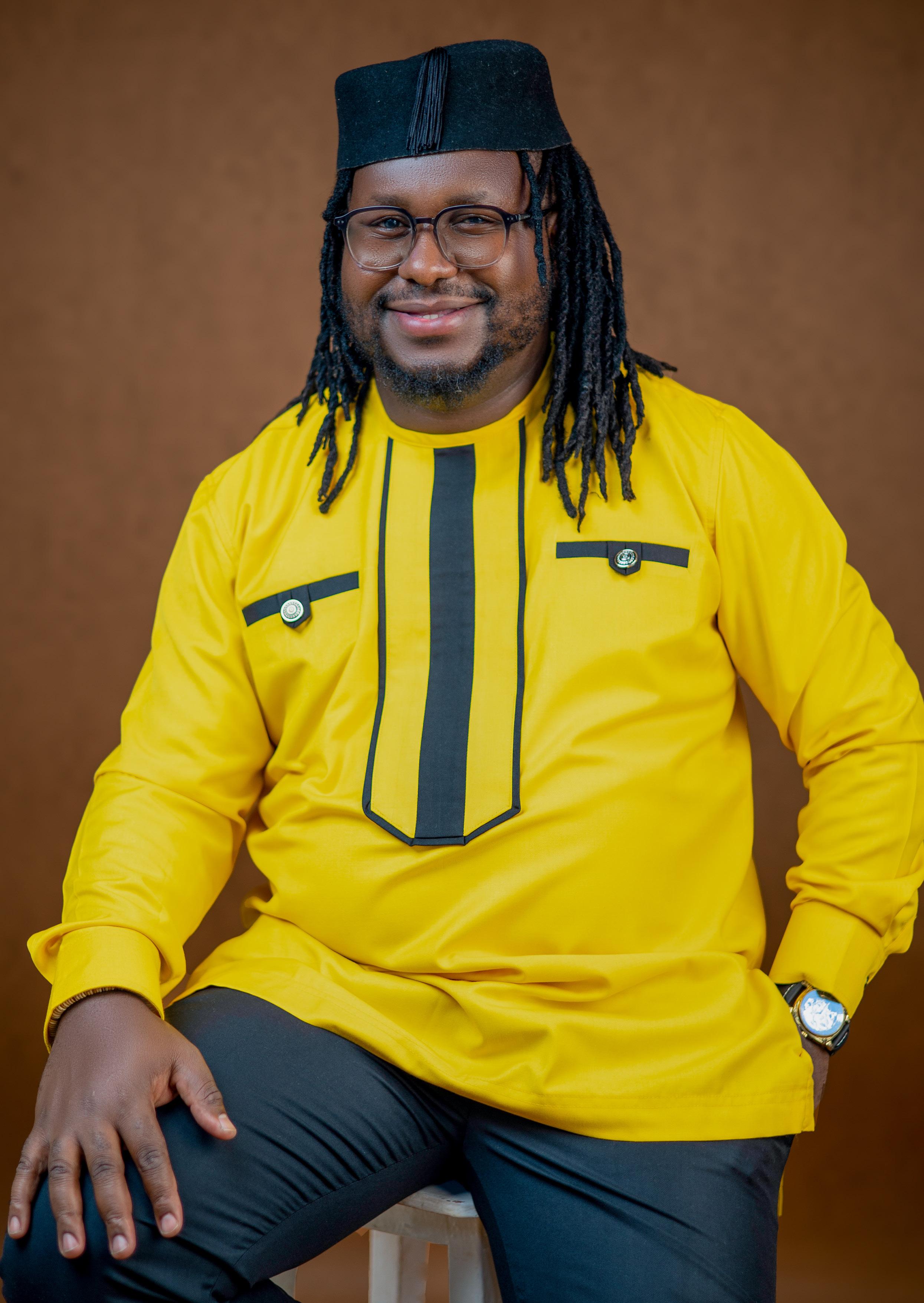

So, user education can be delivered in different avenues to reach the masses, such as online education or online newbie walkthroughs demonstrating step by step how a product works online. Offline events also play a key role in helping users connect with the people behind a platform. Additionally, what’s become common is that many exchanges use influencers or key opinion leaders (KOLs). If you help them understand a product very well, they can explain it to their communities and show how the product works; by tokenizing or enumerating it, it becomes easier for them to reach the masses. Some traditional methods, including out-of-home advertisements and local television, can help reach non-digital audiences. In Africa, the population is large, and predominantly young, and much is already digitalized, so you should reach them through platforms they understand most.
What advantages could emerge if crypto betting platforms are granted operational freedom across Africa?
I think the advantages would be major. When users can feel confident that they can play a game and win fairly, with transparency for everyone, we create a new source of income for young people and help them understand that they can achieve something from these games. Moreover, when gaming platforms have room to grow, it becomes easier for these avenues to build the entire ecosystem. What we’re looking at is the blockchain and crypto ecosystem in Africa. If many players come on board, it helps expand this digital frontier, and we can grow a whole ecosystem with each participant contributing to the community. In the end, the goal is to grow the entire blockchain space.
What trends are you observing in behaviour and preference of African gamblers using cryptocurrency and how are these trends shaping the future of online betting on the continent?
Honestly, I haven’t been very keen on monitoring user behaviour in online gambling or online betting, especially in crypto. What I do know is that the youth in Africa are extremely curious, and they love the normal gaming experience. If we compare traditional gaming metrics with those in crypto gaming, the behaviour tends to be the same.
Which African countries are showing the most momentum in crypto gaming adoption, and what is driving that growth?
Of course, Nigeria will be the leading country. Nigeria has a lot of potential; the young people there are amazing and always curious, ready to take on new challenges. Kenya typically follows Nigeria for similar reasons. Kenya has more advantages for launching a product: strong infrastructure, high internet speeds, tech-savvy youths, and ease of collaboration with people who understand technology. In Kenya, onboarding and offboarding methods, along with a friendlier and more accommodating regulatory environment, also help. With the proposed crypto bills, it will become even easier for companies to grow locally.
What emerging technologies in the blockchain ecosystem do you think could revolutionise the crypto betting industry over the next five years?
Artificial intelligence is here, and with it comes a lot of interest because AI holds enormous potential. AI could transform these games, especially when combined with blockchain technology, making things truly groundbreaking. I also see big data as important for studying user behaviour and tailoring gaming products to individual users.
Hivyo, elimu ya mtumiaji inaweza kutolewa katika njia tofauti ili kufikia umma, kama vile elimu wa mtandaoni au mwongozo wa mtandaoni kwa wapya unaoonyesha hatua kwa hatua jinsi bidhaa inavyofanya kazi mtandaoni. Matukio ya nje ya mtandao pia yana jukumu muhimu katika kusaidia watumiaji kuungana na watu nyuma ya jukwaa. Zaidi ya hayo, kile ambacho kimekuwa cha kawaida ni kwamba ubadilishaji mengi hutumia washawishi au viongozi wa maoni muhimu (KOLs). Ukiwasaidia kuelewa bidhaa vizuri, wanaweza kuelezea kwa jamii zao na kuonyesha jinsi bidhaa inavyofanya kazi; kwa kuitokenisha au kuhesabu, inakuwa rahisi kwao kufikia umma. Njia zingine za jadi, ikiwa ni pamoja na matangazo ya nje ya nyumba na televisheni za ndani, zinaweza kusaidia kufikia hadhira zisizo za kidijitali. Barani Afrika, idadi ya watu ni kubwa, na hasa vijana, na mengi tayari yamewekwa kidijitali, hivyo unapaswa kuwafikia kupitia majukwaa wanayoelewa zaidi.
Ni faida gani zinaweza kuibuka ikiwa majukwaa ya kubashiri ya crypto yatapewa uhuru wa kufanya kazi kote Afrika?
Nadhani faida zitakuwa kubwa. Wakati watumiaji wanahisi kujiamini kwamba wanaweza kucheza mchezo na kushinda kwa haki, na uwazi kwa kila mtu, tunaunda chanzo kipya cha mapato kwa vijana na kuwasaidia kuelewa kwamba wanaweza kufanikisha kitu kutoka kwa michezo hii. Zaidi ya hayo, wakati majukwaa ya michezo yana nafasi ya kukua, inakuwa rahisi kwa njia hizi kujenga mfumo mzima. Tunachokiona ni mfumo wa blockchain na crypto barani Afrika. Ikiwa wachezaji wengi watajiunga, inasaidia kupanua mipaka hii ya kidijitali, na tunaweza kukuza mfumo mzima huku kila mshiriki akichangia kwa jamii. Mwishowe, lengo ni kukuza nafasi nzima ya blockchain.
Ni mwenendo gani unayoona katika tabia na upendeleo wa kamari za Kiafrika zinazotumia cryptocurrency na mwenendo huu unaunda vipi mustakabali wa kubashiri mtandaoni kwenye bara hili?
Kwa kweli, sijakuwa na hamu kubwa ya kufuatilia tabia za watumiaji katika kamari mtandaoni au kubashiri mtandaoni, hasa katika crypto. Ninachojua ni kwamba vijana barani Afrika wana hamu kubwa, na wanapenda uzoefu wa kawaida wa michezo. Ikiwa tutalinganisha vipimo vya michezo ya jadi na vile vya michezo ya crypto, tabia huwa sawa.
Ni nchi zipi za Kiafrika zinaonyesha kasi kubwa katika kukubali michezo ya crypto, na nini kinachochochea ukuaji huo?
Bila shaka, Nigeria itakuwa nchi inayoongoza. Nigeria ina uwezo mkubwa; vijana huko ni wa kushangaza na daima wanavutiwa, tayari kukabiliana na changamoto mpya. Kenya kawaida inafuata Nigeria kwa sababu zinazofanana. Kenya ina faida zaidi za kuzindua bidhaa: miundombinu imara, intaneti ya kasi ya juu, vijana wanaelewa teknolojia, na urahisi wa ushirikiano na watu wanaoelewa teknolojia. Nchini Kenya, mbinu za kujiunga na kuondoka, pamoja na mazingira ya udhibiti yanayofaa na yanayokaribisha, pia yanasaidia. Kwa muswada wa crypto uliopendekezwa, itakuwa rahisi zaidi kwa kampuni kukua ndani ya nchi.
Ni teknolojia zipi zinazotokea katika mfumo wa blockchain unadhani zinaweza kuleta mapinduzi katika sekta ya kubashiri ya crypto katika miaka mitano ijayo?
Akili bandia iko hapa, na pamoja nayo kuna hamu kubwa kwa sababu AI ina uwezo mkubwa. AI inaweza kubadilisha michezo hii, hasa inapounganishwa na teknolojia ya blockchain, na kufanya mambo kuwa ya kipekee. Pia naona data kubwa kama muhimu kwa ajili ya kujifunza tabia za watumiaji na kubinafsisha bidhaa za michezo kwa watumiaji binafsi.
Those with little knowledge who have not interacted with crypto assets are usually the harshest critics. But if people take time to understand how crypto works and how it solves real problems, they rarely criticise.






With Africa’s gaming industry evolving at an unprecedented pace, conversations around technology, payments, and innovation are more relevant than ever. In this exclusive feature, iGaming AFRIKA Magazine sat down with Conor O'Donovan, Africa Partner at Tekkorp Capital and a seasoned leader in the African gaming space, to explore the rise of cryptocurrencies in iGaming, the challenges and opportunities they present, and what the next decade could mean for both players and operators across the continent.
Could you briefly introduce yourself and what you do?
Sure. I’ve been working in gaming across Africa for close to a decade now. I started as an operator, running multi-territory gaming brands, and over time transitioned into the investment side. These days, I back early-stage ventures in gaming, tech and payments with both capital and hands-on support, while also rolling out a few projects of my own. I also lead the African strategy at Tekkorp Capital, one of the top M&A firms in the global gaming space. We’re working on some pretty exciting deals there - but that’s a story for another day.
What’s clear is I’ve never been more bullish on Africa. The growth is crazy, the tech is moving fast, and the market is maturing in ways that are hard to ignore. A few years ago, the industry looked at me sideways when I talked about African gaming and payments; now everyone wants to hear all about it!
How has the adoption of cryptocurrencies transformed the gaming industry?
I’ll be honest, two years ago, I hadn’t considered crypto in the context of African gaming. I saw it more as a tool for repatriation and cross-border payments - useful, but peripheral. That has changed fast, and my eyes are open. It’s now one of the most exciting areas I’m involved in, and like anything in this space, once you see the direction it’s moving, you lean in.
Crypto hasn’t transformed gaming globally, and is still early in Africa, but it’s starting to unlock real change. It solves practical problems: payment friction, banking delays, and onboarding barriers that fiat systems just don’t handle well.
For players, it means fast payments, and without condoning it, it’s also a way to quietly bank winnings in places where gambling is taxed or tightly monitored. For operators, it’s leaner, faster, and gives more control over how funds move across borders. That alone is a huge shift.
It hasn’t flipped the industry yet, but in Africa, I wouldn’t be surprised if it leapfrogs ahead, just like mobile money did
Huku tasnia ya michezo ya kubahatisha barani Afrika ikiendelea kwa kasi isiyo na kifani, mazungumzo kuhusu teknolojia, malipo na uvumbuzi yanafaa zaidi kuliko hapo awali. Katika kipengele hiki cha kipekee, Jarida la iGaming AFRIKA lilikutana na Conor O'Donovan, Mshirika wa Afrika katika Tekkorp Capital na kiongozi mahiri katika nafasi ya michezo ya Kiafrika, ili kuchunguza ongezeko la sarafu za siri katika iGaming, changamoto na fursa wanazowasilisha, na kile ambacho muongo ujao unaweza kumaanisha kwa wachezaji na waendeshaji katika bara zima.
naweza kujitambulisha kwa ufupi na unachofanya?
Bila shaka. Nimekuwa nikifanya kazi katika michezo ya kubahatisha barani Afrika kwa karibu muongo mmoja sasa. Nilianza kama mwendeshaji, nikiendesha chapa za maeneo mengi ya michezo ya kubahatisha, na baada ya muda nikahamia upande wa uwekezaji. Siku hizi, ninarudisha ubia wa hatua za awali katika michezo ya kubahatisha, teknolojia na malipo kwa mtaji na usaidizi wa moja kwa moja, huku pia nikizindua miradi yangu michache. Pia ninaongoza mkakati wa Kiafrika katika Tekkorp Capital, mojawapo ya makampuni ya juu ya M&A katika nafasi ya kimataifa ya michezo ya kubahatisha. Tunafanyia kazi ofa kadhaa za kusisimua huko - lakini hiyo ni hadithi ya siku nyingine.
Kilicho wazi ni kwamba sijawahi kuwa na msimamo zaidi juu ya Afrika. Ukuaji ni wa ajabu, teknolojia inasonga haraka, na soko linakua kwa njia ambazo ni ngumu kupuuza. Miaka michache iliyopita, tasnia hii ilinitazama pembeni nilipozungumza kuhusu michezo ya kubahatisha ya Kiafrika na malipo; sasa kila mtu anataka kusikia yote kuhusu hilo!
Je, kupitishwa kwa fedha za siri kumebadilishaje tasnia ya michezo ya kubahatisha?
Nitakuwa mkweli, miaka miwili iliyopita, sikuwa nimezingatia crypto katika muktadha wa michezo ya kubahatisha ya Kiafrika. Niliiona zaidi kama zana ya kurudisha nyumbani na malipo ya kuvuka mpaka - muhimu, lakini ya pembeni. Hiyo imebadilika haraka, na macho yangu yamefunguliwa. Sasa ni mojawapo ya maeneo ya kusisimua zaidi ninayohusika, na kama kitu chochote katika nafasi hii, mara tu unapoona mwelekeo inaposonga, unaegemea.
Crypto haijabadilisha michezo ya kubahatisha duniani kote, na bado mapema barani Afrika, lakini inaanza kuleta mabadiliko ya kweli. Husuluhisha matatizo ya kiutendaji: msuguano wa malipo, ucheleweshaji wa benki, na vizuizi vya kuingia ndani ambavyo mifumo ya fiat haishughulikii vyema.
Kwa wachezaji, inamaanisha malipo ya haraka, na bila kuiunga mkono, pia ni njia ya kupata ushindi wa benki kwa utulivu katika maeneo ambapo kamari hutozwa ushuru au kufuatiliwa kwa karibu. Kwa waendeshaji, ni nyembamba, haraka, na inatoa udhibiti zaidi juu ya jinsi pesa zinavyovuka mipaka. Hiyo pekee ni mabadiliko makubwa.


“Crypto hasn’t transformed gaming globally, and is still early in Africa, but it’s starting to unlock real change. It solves practical problems: payment friction, banking delays, and onboarding barriers that fiat systems just don’t handle well.



How does cryptocurrency integration enhance user experience, especially in an industry like iGaming, which is still relatively new to it, particularly in Africa?
Crypto improves UX in many ways that matter, especially for African players who are mobile-first and expect speed and low KYC intrusion. Mobile money is already relatively frictionless in much of Africa, fast, familiar, and widely trusted. But even with MoMo, deposits can go missing, reversals get messy, and crypto cuts all of that out and is cheaper.
It also gives an edge in certain segments, VIPs looking for privacy, or cross-border users navigating conversion costs and capital controls. In markets like Nigeria and South Africa, where cards are more common, crypto offers a clear alternative with better speed, lower cost, less friction, and more discretion.
Players notice the difference. Retention tends to be higher once the product UX matches. It’s early, and not every market has deep crypto; but for the right players, it’s a smoother, smarter experience
What advantages could emerge if crypto betting platforms are granted operational freedom across Africa?
It depends on who you ask. For players, fewer restrictions, smoother access and more options. For tax authorities, there’s potential downside and little upside. For regulators, the framework isn’t consistent, and innovation is outpacing policy. For licensed local operators, taxation creates an uneven playing field. And for offshore operators, Crypto is built for them. It fits the model perfectly, borderless, fast, discreet. And the more accepted it becomes, the more it plays to their strengths.
What trends are you observing in the behaviour and preference of African Gamblers using cryptocurrency, and how are these trends shaping the future of online betting on the continent?
The crypto player in Africa tends to be young, tech-savvy, and already active in digital spaces, Telegram groups, online forums, sometimes even small-scale trading. Some funds come from remittances, some are speculative, and some aren’t fully about tax avoidance, but increasingly, they’re used to place bets, move money, and cash out fast.
Stablecoins like USDT dominate, and most of the action is happening in the big markets: Nigeria, Kenya, South Africa, with some momentum in Ghana, Ethiopia, and parts of North Africa. It’s still skewed toward VIPs and serious bettors for now, but that’s changing.
Trust is still a big issue for African players; nobody wants to get burned, and many crypto offshore sites aren’t regulated in any real sense. That makes people cautious. For now, many stick with bigger, recognisable brands, but this will change with homegrown sites. It comes down to localisation: if a platform doesn’t match local expectations for login, payments, and UX, players won’t stay, crypto or not.
In what ways can integrating cryptocurrencies into gaming help address key challenges associated with fiat-based deposit and withdrawal processes?
You have to look at cards and mobile money separately. MoMo, for instance, works well in most places, but it’s not perfect; fees can be high (especially for operators), infrastructure can be clunky, and it’s not always reliable. Cards and bank transfers are expensive, and many players don’t want to link their banking to a gaming site. Crypto offers a clean alternative: fast, cheap, discreet, and scalable. For players trying to access global platforms with better odds or user experience, it removes a lot of the friction, no intermediaries, no layers of cost.
For operators, it’s a huge win. FX and repatriation are pain points; local billing and global payout can be expensive. Crypto makes that whole flow a lot more efficient.
Je, ujumuishaji wa sarafu-fiche huboreshaje uzoefu wa mtumiaji, hasa katika tasnia kama iGaming, ambayo bado ni mpya kwake, haswa barani Afrika?
Crypto inaboresha UX kwa njia nyingi ambazo ni muhimu, haswa kwa wachezaji wa Kiafrika ambao ni wa kwanza kutumia simu na wanatarajia kasi na uvamizi wa chini wa KYC. Pesa za rununu tayari hazina msuguano katika sehemu kubwa ya Afrika, haraka, zinajulikana, na zinaaminika kote. Lakini hata ukiwa na MoMo, amana zinaweza kupotea, mabadiliko yanaharibika, na crypto inapunguza yote hayo na ni nafuu.
Pia inatoa makali katika vipande fulani, VIP wanaotafuta faragha, au watumiaji wa mipakani wanaotumia gharama za ubadilishaji na udhibiti wa mtaji. Katika masoko kama Nigeria na Afrika Kusini, ambapo kadi zinapatikana zaidi, crypto hutoa mbadala wazi na kasi bora, gharama ya chini, msuguano mdogo, na busara zaidi.
Wachezaji wanaona tofauti. Uhifadhi huwa juu mara tu bidhaa ya UX inalingana. Ni mapema, na si kila soko lina crypto kirefu; lakini kwa wachezaji wanaofaa, ni uzoefu laini na nadhifu zaidi.
Ni faida gani zinaweza kujitokeza ikiwa majukwaa ya kamari ya crypto yatapewa uhuru wa kufanya kazi kote Afrika?
Inategemea unauliza nani. Kwa wachezaji, vikwazo vichache, ufikiaji rahisi na chaguo zaidi. Kwa mamlaka ya ushuru, kuna uwezekano wa upande wa chini na juu kidogo. Kwa vidhibiti, mfumo haulingani, na uvumbuzi ni sera inayopita kasi. Kwa waendeshaji wa ndani wenye leseni, ushuru huunda uwanja usio sawa. Na kwa waendeshaji wa pwani, Crypto imejengwa kwao. Inafaa mfano kikamilifu, usio na mipaka, haraka, wenye busara. Na jinsi inavyokubalika zaidi, ndivyo inavyocheza kwa nguvu zao.
Je, ni mienendo gani unayozingatia katika tabia na mapendeleo ya Wacheza Kamari wa Kiafrika wanaotumia sarafu ya cryptocurrency, na je mitindo hii inachagiza vipi mustakabali wa kamari ya mtandaoni katika bara hili?
Mchezaji wa crypto barani Afrika mara nyingi huwa mchanga, mwenye ujuzi wa teknolojia, na tayari anafanya kazi katika nafasi za kidijitali, vikundi vya Telegram, vikao vya mtandaoni, wakati mwingine hata biashara ndogo ndogo. Pesa zingine hutoka kwa pesa zinazotumwa na wengine, zingine ni za kubahatisha, na zingine hazihusu kabisa kukwepa kodi, lakini zaidi, hutumiwa kuweka dau, kuhamisha pesa na kutoa pesa haraka.
Stablecoins kama USDT hutawala, na hatua nyingi zinafanyika katika masoko makubwa: Nigeria, Kenya, Afrika Kusini, na kasi fulani nchini Ghana, Ethiopia, na sehemu za Afrika Kaskazini. Bado inaegemea upande wa VIP na wadau wakubwa kwa sasa, lakini hiyo inabadilika.
Kuaminiana bado ni suala kubwa kwa wachezaji wa Kiafrika; hakuna mtu anataka kuchomwa moto, na tovuti nyingi za crypto offshore hazijadhibitiwa kwa maana yoyote halisi. Hiyo huwafanya watu kuwa waangalifu. Kwa sasa, wengi hushikamana na chapa kubwa, zinazotambulika, lakini hii itabadilika na tovuti za nyumbani.
Inakuja kwa ujanibishaji: ikiwa mfumo haulingani na matarajio ya ndani ya kuingia, malipo, na UX, wachezaji hawatasalia, crypto au la.
Ni kwa njia gani kujumuisha sarafu za siri katika michezo ya kubahatisha kunaweza kusaidia kushughulikia changamoto muhimu zinazohusiana na kuweka na kutoa pesa kwa msingi wa fiat?
Lazima uangalie kadi na pesa za rununu kando kando. MoMo, kwa mfano, inafanya kazi vizuri katika sehemu nyingi, lakini si kamilifu; ada inaweza kuwa ya juu (hasa kwa waendeshaji), miundombinu inaweza kuwa ngumu, na sio ya kuaminika kila wakati. Kadi na uhamisho wa benki ni ghali, na wachezaji wengi hawataki kuunganisha benki zao kwenye tovuti ya michezo ya kubahatisha.
Crypto inatoa mbadala safi: haraka, nafuu, busara, na inayoweza kupanuliwa. Kwa wachezaji wanaojaribu kufikia majukwaa ya kimataifa yenye uwezekano bora au uzoefu wa mtumiaji, huondoa msuguano mwingi, hakuna vipatanishi, hakuna tabaka za gharama.
What are some of the common myths or misconceptions about crypto gaming that you think people should start rethinking?
A few that come up all the time. First, crypto gaming is very risky. The reality, there have been some scam operators, but it is the serious tech-driven operators that are driving this, seeing a huge opportunity and are ready to invest
Second, it’s unregulated. That’s a lazy take. It might not be regulated everywhere, but proper structures are being built, legal entities, compliance and KYC, often ahead of regulators.
And finally, the idea that African players won’t adapt to crypto. That’s just not true anymore. The shift is happening faster than people think. Players in Nigeria, Kenya, and other markets are already deep into stablecoins, trading, tipping, and using crypto wallets. Liquidity varies by market, but the notion that crypto is “too early” for Africa is starting to look outdated.
Looking ahead, 5-10 years, what do you think the future of crypto would look like?
I wish I knew! I’d know exactly where to put my money. There are many moving parts. It’s clear crypto is heading towards mass adoption. Over time, it’ll become, if not the default rail, a major one, something people use rather than something they talk about. And it’s not just crypto in isolation, it’s the convergence of AI, automation, blockchain, better infrastructure, and even Starlink, which will accelerate this shift.
Regulation will follow, especially in Africa, where many systems are disconnected or under-resourced; enforcement will be reactive. Governments will eventually try to tax or regulate it, but that’ll depend on whether regulation tech and monitoring tools can catch up.
I think liquidity does remain a massive hurdle. In cash-heavy economies or places where shadow currencies dominate, converting into crypto can be expensive and complicated. That friction won’t disappear overnight, and it’s why some markets will move faster than others.
But five years is a long time, ten years is another world. The countries that evolve with it will benefit. The ones that don’t, they’ll get left behind.
I won’t pretend to know exactly where it’s all going. But I’d be very surprised if crypto isn’t just fully normalised by then – And if it is not, then I would fear Africa gets left behind in what is going to be an accelerated global pace of development in AI and everything it converges with.
Je, ni hadithi zipi zisizo sahihi au imani potofu kuhusu mchezo wa kubahatisha wa crypto ambao unafikiri watu wanapaswa kuanza kufikiria upya?
Chache ambao huja kila wakati. Kwanza, michezo ya kubahatisha ya crypto ni hatari sana. Ukweli, kumekuwa na waendeshaji kashfa, lakini ni waendeshaji wakubwa wanaoendeshwa na teknolojia ambao wanaendesha hii, wakiona fursa kubwa na wako tayari kuwekeza.
Pili, haijadhibitiwa. Huo ni uvivu. Huenda isidhibitiwe kila mahali, lakini miundo inayofaa inajengwa, huluki za kisheria, utiifu na KYC, mara nyingi mbele ya wadhibiti.
Hatimaye, wazo kwamba wachezaji wa Kiafrika hawatazoea matumizi ya crypto. Hiyo si kweli tena. Mabadiliko yanafanyika haraka kuliko watu wanavyofikiria. Wachezaji nchini Nigeria, Kenya, na masoko mengine tayari wanajitumbukiza kwenye matumizi ya sarafu dhabiti, biashara, tipping na kutumia pochi za crypto. Likuiditi inatofautiana kulingana na soko, lakini dhana kwamba crypto ni "mapema sana" kwa Afrika inaanza kuonekana kuwa ya zamani.
Kuangalia mbele, miaka 5-10, unadhani mustakabali wa crypto utakuwaje?
Laiti ningejua! Ningejua kabisa ni wapi pa kuweka pesa zangu. Kuna sehemu nyingi zinazohamia. Ni wazi kwamba crypto inaelekea kukubalika kwa wingi. Baada ya muda, itakuwa, ikiwa sio reli ya msingi, kuu, kitu ambacho watu hutumia badala ya kitu wanachozungumza. Na sio tu crypto katika kutengwa, ni muunganisho wa AI, otomatiki, blockchain, miundombinu bora, na hata Starlink, ambayo itaharakisha mabadiliko haya.
Udhibiti utafuata, haswa katika Afrika, ambapo mifumo mingi haijaunganishwa au ina rasilimali chache; utekelezaji utakuwa tendaji. Serikali hatimaye itajaribu kuitoza au kuidhibiti, lakini hiyo itategemea ikiwa teknolojia ya udhibiti na zana za ufuatiliaji zinaweza kupatikana.
Nadhani likuiditi unabaki kuwa kikwazo kikubwa. Katika uchumi wa fedha taslimu au mahali ambapo sarafu za kivuli zinatawala, kubadilisha kuwa crypto inaweza kuwa ghali na ngumu. Msuguano huo hautatoweka mara moja, na ndiyo sababu masoko mengine yatasonga haraka kuliko mengine.
Lakini miaka mitano ni muda mrefu, miaka kumi ni ulimwengu mwingine. Nchi zinazoendelea nazo zitafaidika. Wale wasiofanya hivyo, wataachwa nyuma.
Sitajifanya kujua hasa wapi kila kitu kinaenda. Lakini nitaweza kushangazwa sana ikiwa crypto haitakuwa imekawaidishwa kabisa kufikia wakati huo - Na ikiwa haitakuwa hivyo, basi nitahofia Afrika itakosa nafasi katika kile kitakachokuwa kasi ya maendeleo ya kimataifa katika AI na kila kitu kinachoungana nacho.



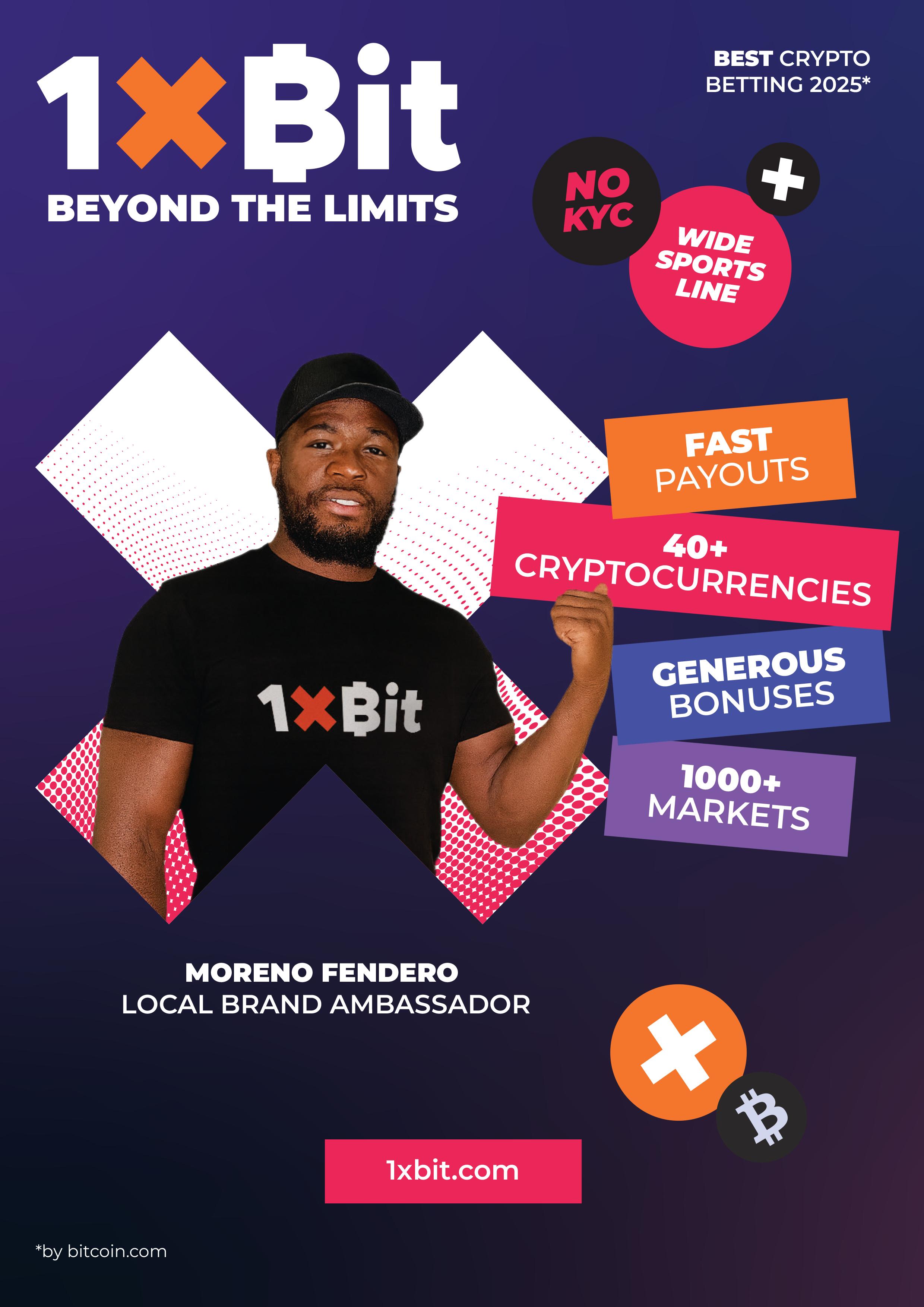
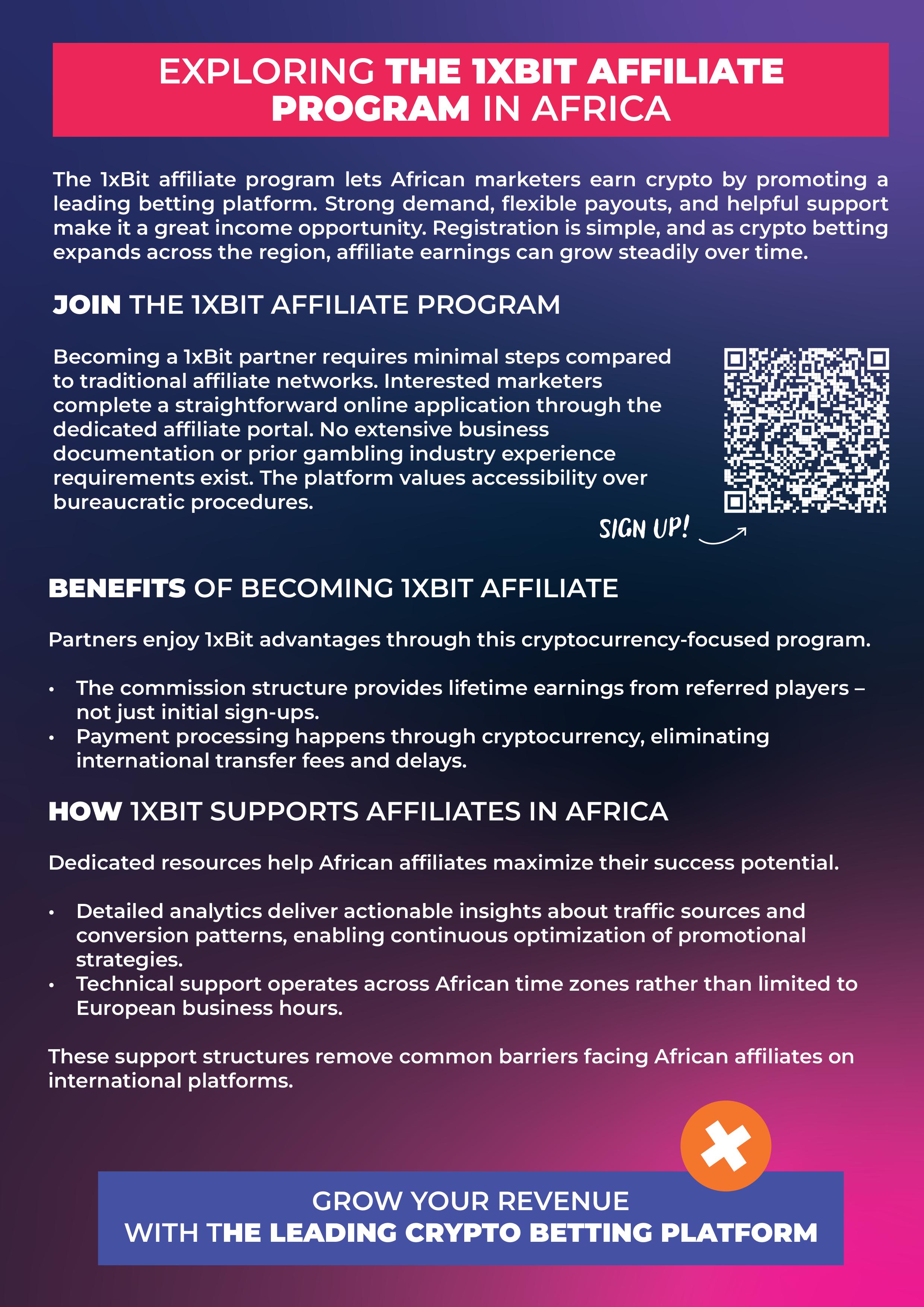

Shanta Segabon
Senior iGaming Conversion & Retention Strategist, Game Plan Consulting
In the ever-evolving iGaming industry, success depends on more than flashy games and aggressive acquisition campaigns; it’s about understanding, engaging, and retaining players through strategic Customer Relationship Management (CRM). Speaking with iGaming AFRIKA Magazine, CRM expert Shanta Segabon draws on 17 years of experience across African and European markets to reveal why many operators are leaving money on the table, the misconceptions that plague CRM in gaming, and how a shift toward player-centric strategies can transform retention rates and revenue. From tailored engagement and lifecycle management to the role of AI and gamification, Shanta offers a masterclass in building relationships that keep players loyal long after the first deposit.
Katika tasnia ya iGaming inayoendelea kubadilika, mafanikio yanategemea zaidi ya michezo ya kuvutia na kampeni kali za kupata watu; inahusu kuelewa, kushirikisha, na kudumisha wachezaji kupitia Usimamizi wa Uhusiano wa Wateja wa kimkakati (CRM). Akizungumza na gazeti la iGaming AFRIKA, mtaalamu wa CRM Shanta Segabon anatumia uzoefu wa miaka 17 katika soko la Afrika na Ulaya ili kufichua ni kwa nini waendeshaji wengi wanaacha pesa mezani, maoni potofu ambayo yanakumba CRM katika michezo ya kubahatisha, na jinsi mabadiliko kuelekea mikakati inayolenga wachezaji inaweza kubadilisha viwango vya kubaki na mapato. Kuanzia ushirikishwaji ulioboreshwa na usimamizi wa mzunguko wa maisha hadi jukumu la AI na uchezaji kamari, Shanta inatoa daraja bora katika kujenga mahusiano ambayo huwaweka wachezaji waaminifu muda mrefu baada ya amana ya kwanza.
Can you tell us a bit about how you got into the gaming industry and how the journey is so far?
Sure. I started my iGaming career seventeen years ago in Johannesburg and worked there for six and a half years before moving to Europe, still in CRM. While in Europe, I worked for a number of major operators, where I gained experience, from all angles, from a technology perspective, working with different teams and cultures, and working with different tools, especially on the gamification and engagement side of things, within the European market.
So, that was a great learning curve for me. And then a couple of years ago, I came back to South Africa, where I saw this huge need for CRM done better, within the South African and especially within the African market.
If you were to define CRM, specifically within the gambling context, how would you define it? And what is one thing most people do not understand about CRM in gaming?
CRM, firstly, stands for Customer Relationship Management, and that extends from the beginning of the player funnel right through to individual or personalised, VIP-level customer relationships. The idea of CRM is to communicate in terms of content and timing, in terms of rewards, is to communicate to players as if you were communicating to them on a one-to-one level.
If you took, let us say, two markets at opposite ends of the world, Australia and the US. If you had US Players and Australian or New Zealand players in your database, the idea is to communicate to those two groups of people, who may be playing different products. One group may be playing casino, and the other may be sports bettors at different times because they are in different time zones. With communication that is tailored to the language, the value level that these players are at, and what engages them the best in terms of rewards or your loyalty program.
There are so many complexities to CRM, but in a nutshell, it's all about communicating to a huge base of players as if you were communicating to them one-on-one. Then the other question was What is the biggest misconception about CRM? The biggest misconception about CRM is that it is all about email campaigns. It is about mass marketing and not tailoring your content or your communication to where in the world players are, which time zones they play in, the language they speak, or the types of rewards and bonuses that keep them engaged and retained.
If you were to discuss the player's life cycle from the first point of engagement to VIP handling and locking in the players to continually engage the platform, how would you discuss that?
Firstly, something I learned while working in Europe with European operators is that there was a major shift around twelve, ten years ago, and many Swedish companies did player engagement a lot better than the rest of the world. We began viewing engagement as a precursor to retention. And coming from a company in South Africa, we did a lot of buying. We would send the player an offer; there was no way of engaging the player.
Unaweza kutuambia kidogo jinsi ulivyoingia kwenye tasnia ya michezo ya kubahatisha na jinsi safari ilivyo hadi sasa?
Hakika. Nilianza taaluma yangu ya iGaming miaka kumi na saba iliyopita huko Johannesburg na nilifanya kazi huko kwa miaka sita na nusu kabla ya kuhamia Ulaya, bado nikiwa CRM. Nikiwa Ulaya, nilifanya kazi kwa idadi ya waendeshaji wakuu, ambapo nilipata uzoefu, kutoka pande zote, kutoka kwa mtazamo wa teknolojia, kufanya kazi na timu na tamaduni tofauti, na kufanya kazi kwa zana tofauti, hasa katika upande wa gamification na ushiriki wa mambo, ndani ya soko la Ulaya. Kwa hivyo, hiyo ilikuwa njia nzuri ya kujifunza kwangu. Na kisha miaka michache iliyopita, nilirudi Afrika Kusini, ambapo niliona hitaji hili kubwa la CRM likifanywa vizuri zaidi, ndani ya Afrika Kusini na haswa ndani ya soko la Afrika.
Ikiwa ungefafanua CRM, haswa ndani ya muktadha wa kamari, ungeifafanuaje? Na ni jambo gani moja ambalo watu wengi hawaelewi kuhusu CRM katika michezo ya kubahatisha?
CRM, kwanza, inasimamia usimamizi wa uhusiano wa mteja, na hiyo inaenea kutoka mwanzo wa chembechembe za mchezaji hadi kwa uhusiano wa kibinafsi au wa kibinafsi, wa kiwango cha VIP. Wazo la CRM ni kuwasiliana kulingana na maudhui na muda, kulingana na zawadi, ni kuwasiliana na wachezaji kana kwamba unawasiliana nao kwa kiwango cha mtu-mmoja.
Ikiwa ulichukua, tuseme, masoko mawili katika ncha tofauti za dunia, Australia na Marekani. Ikiwa ulikuwa na Wachezaji wa Marekani na wachezaji wa Australia au New Zealand kwenye hifadhidata yako, wazo ni kuwasiliana na makundi hayo mawili ya watu, ambao wanaweza kuwa wanacheza bidhaa tofauti. Kundi moja linaweza kuwa linacheza kasino, na lingine linaweza kuwa wadau wa michezo kwa nyakati tofauti kwa sababu wako katika maeneo tofauti ya saa. Kwa mawasiliano ambayo yanalengwa kulingana na lugha, kiwango cha thamani ambacho wachezaji hawa wapo, na kinachowashirikisha vyema katika masuala ya zawadi au mpango wako wa uaminifu.
Kuna matatizo mengi kwa CRM, lakini kwa ufupi, yote ni kuhusu kuwasiliana na wachezaji wengi kana kwamba unawasiliana nao moja kwa moja. Kisha swali lingine lilikuwa Je, ni dhana potofu gani kubwa kuhusu CRM? Dhana kubwa potofu kuhusu CRM ni kwamba yote ni kuhusu kampeni za barua pepe. Ni kuhusu utangazaji wa watu wengi na kutorekebisha maudhui yako au mawasiliano yako kulingana na mahali wachezaji duniani walipo, saa za eneo wanazocheza, lugha wanayozungumza, au aina za zawadi na bonasi zinazowafanya wajishughulishe na kuwadumisha.
Ikiwa ungejadili mzunguko wa maisha ya mchezaji kutoka hatua ya kwanza ya uchumba hadi kushughulikia na kuwafungia wachezaji VIP ili kuendelea kuhusisha jukwaa, ungejadilije hilo?
Kwanza, jambo nililojifunza nilipokuwa nikifanya kazi barani Ulaya na waendeshaji wa Kizungu ni kwamba kulikuwa na mabadiliko makubwa karibu miaka kumi au kumi na mbili iliyopita, na kampuni nyingi za Uswidi zilifanya ushirikiano wa wachezaji vizuri zaidi kuliko sehemu nyingine za dunia. Tulianza kuona ushirikiano kama kiashiria cha kudumu. Na tukitoka katika kampuni nchini Afrika Kusini, tulifanya manunuzi mengi. Tungetumia mchezaji ofa; hakukuwa na njia ya kumhusisha mchezaji.
The offers were simple “buy this, get that,” and we did not engage the player with any content or gamification or tools. And many of the Swedish gaming companies did that much better. What you saw was that an increase in engagement leads to an increase in revenue and player retention, which is the objective. But more importantly, it keeps your brand top of mind for players who may be active on multiple operators. If you engage your players as opposed to having a transactional relationship with them, what it does is it keeps your brand top of mind every time the player thinks about gambling or playing online, because you have treated the player a lot differently than some of the other operators.
That is how you distinguish your business or your brand from the rest of the brands out there by really giving the player that individual experience. And part of that, while it seems very simple, is so often overlooked. That is the custom life cycle, and what that means is, if we put ourselves in the player's shoes, how do we treat the player from the very onset, from the point of registration up to the player becoming a VIP, and whether the player's dropped off at multiple points in that relationship, and how we've brought the player back. In addition, this is important, and I think it is sometimes overlooked. If we speak about how we engage the player as an example: a player arrives, registers and may make a first or second deposit. But how are we treating that player differently from players who have been with us for months or even years? That treatment of new players has to be different. If you go into a store as a new customer at a high-end luxury retailer, you would be treated differently from an existing customer. You would be introduced to the product and might be given a tour of the store along with information on the best-selling products. An older, familiar customer would receive different treatment. So, we need to think about it in those terms.
As a new player signing up to a new brand, how should I engage this new player differently from a player who has been with the brand for a while? How do I turn this new player into a regularly active customer, and, inevitably, how do I encourage them to deposit more so that they can become a VIP? This is directly linked to revenue. There is a common misconception that CRM has no intrinsic link to revenue, but there is a clear connection between how well or how poorly we execute CRM and our revenue at the end of the day. If we retain more new players upfront, it means we push more players into our retention funnel where they deposit more and are active more frequently. Ultimately, it means we push more players into the VIP funnel, the ideal scenario.
However, what often happens is that we do not treat new players differently, and they have a bad experience at the casino or sportsbook and disappear. We have spent, and there is an acquisition cost for that player who has come in; they may have made one or two deposits, which does not cover our acquisition costs, so you can see how that affects revenue. From what I’ve learned, especially when you consider the flow for players and the team building around CRM, whatever structure is built around CRM shows that engaging players should not be transactional. It is very important to focus on existing players rather than relying solely on acquiring new players every time. If there are no structures in place, even the cost of acquisition cannot be recovered, and the cycle repeats, which ultimately does not benefit the brand.
Can you discuss the possible impact lost in value caused by poor life cycle management, which CRM can adjust?
I think the answer is quite simple and short: if there is no customer life-cycle management, and we're not even considering evaluating player value or engaging players with offers based on their value, we're talking about a very basic approach to life-cycle management. If that is not done and we do not have a good CRM team in place, one that is passionate and curious, we will see the operator bleeding money because we are spending, yet not retaining those players. I’ve seen potentially hundreds of thousands of dollars in acquisition costs that are not recouped because those players aren’t retained. The big problem in Africa is that many operators are so focused on acquisition and driving players into the funnel, but not on keeping them in the retention funnel.
Ofa zilikuwa rahisi "nunua hii, pata ile," na hatukuwahi kumhusisha mchezaji kwa maudhui yoyote au michezo au zana. Na kampuni nyingi za michezo za Uswidi zilifanya hivyo vizuri zaidi. Kile ulichokiona ni kwamba kuongezeka kwa ushirikiano kunasababisha kuongezeka kwa mapato na kudumu kwa wachezaji, ambayo ndiyo lengo. Lakini muhimu zaidi, inahakikisha chapa yako inakumbukwa na wachezaji ambao wanaweza kuwa na shughuli katika waendeshaji wengi. Ikiwa unawashirikisha wachezaji wako badala ya kuwa na uhusiano wa kibiashara nao, kile kinachofanyika ni kwamba inahakikisha chapa yako inakumbukwa kila wakati mchezaji anapofikiria kamari au kucheza mtandaoni, kwa sababu umemchukulia mchezaji tofauti sana na baadhi ya waendeshaji wengine.
Hivyo ndivyo unavyotofautisha biashara yako au chapa yako na chapa nyinginezo kwa kumpa mchezaji hiyo uzoefu wa kipekee. Na sehemu ya hiyo, ingawa inaonekana rahisi sana, mara nyingi inapuuziliwa mbali. Hiyo ndiyo mzunguko wa maisha wa kawaida, na maana yake ni, ikiwa tunaweka wenyewe katika viatu vya mchezaji, tunamchukulia mchezaji vipi tangu mwanzo, kutoka hatua ya usajili hadi mchezaji kuwa VIP, na ikiwa mchezaji amekatishwa tamaa katika hatua nyingi katika uhusiano huo, na jinsi tulivyomrudisha mchezaji.
Zaidi ya hayo, hii ni muhimu, na nadhani mara nyingine inapuuziliwa mbali. Tukizungumzia jinsi tunavyomshirikisha mchezaji kama mfano: mchezaji anafika, anajiandikisha na anaweza kufanya amana ya kwanza au ya pili. Lakini tunamchukulia vipi mchezaji huyo tofauti na wachezaji ambao wamekuwa nasi kwa miezi au hata miaka? Matibabu ya wachezaji wapya lazima yawe tofauti. Ikiwa unaingia kwenye duka kama mteja mpya katika muuzaji wa kifahari, utachukuliwa tofauti na mteja wa zamani. Utatambulishwa kwa bidhaa na unaweza kupewa ziara ya duka pamoja na taarifa kuhusu bidhaa zinazouzwa zaidi. Mteja wa zamani, anayejulikana, atapata matibabu tofauti. Hivyo, tunahitaji kufikiria kuhusu hilo kwa njia hizo.
Kama mchezaji mpya anayejisajili kwachapa mpya, ni vipi ninapaswa kumshirikisha mchezaji huyu mpya tofauti na mchezaji ambaye amekuwa na chapa hiyo kwa muda? Ni vipi ninavyoweza kumgeuza mchezaji huyu mpya kuwa mteja anayefanya kazi mara kwa mara, na, bila shaka, ni vipi ninavyoweza kuwahamasisha kuweka zaidi ili waweze kuwa VIP? Hii inahusiana moja kwa moja na mapato. Kuna dhana potofu kwamba CRM haina uhusiano wa ndani na mapato, lakini kuna uhusiano wazi kati ya jinsi tunavyotekeleza CRM vizuri au vibaya na mapato yetu mwishoni mwa siku. Ikiwa tunawashikilia wachezaji wapya zaidi mapema, inamaanisha tunawasukuma wachezaji zaidi katika funnel yetu ya kudumu ambapo wanaweka zaidi na wanakuwa na shughuli mara kwa mara. Mwishowe, inamaanisha tunawasukuma wachezaji zaidi katika faneli ya VIP, hali bora.
Hata hivyo, kile kinachotokea mara nyingi ni kwamba hatuwatendei wachezaji wapya kwa namna tofauti, na wana uzoefu mbaya katika kasino au sportsbook na kutoweka. Tumetumia, na kuna gharama ya kupata mchezaji huyo ambaye ameingia; wanaweza kuwa wamefanya amana moja au mbili, ambazo hazifunika gharama zetu za kupata, hivyo unaweza kuona jinsi hiyo inavyoathiri mapato. Kutokana na kile nilichojifunza, hasa unapozingatia mtiririko wa wachezaji na timu inayojengwa kuzunguka CRM, muundo wowote uliojengwa kuzunguka CRM unaonyesha kwamba kuwashirikisha wachezaji hakupaswi kuwa wa kibiashara. Ni muhimu sana kuzingatia wachezaji waliopo.badala ya kutegemea tu kupata wachezaji wapya kila wakati. Ikiwa hakuna muundo wowote uliopo, hata gharama ya kupata haiwezi kurejeshwa, na mzunguko unarudiwa, ambayo hatimaye haifaidishi chapa.
Je, unaweza kujadili athari zinazoweza kupotea kutokana na usimamizi mbaya wa mzunguko wa maisha, ambao CRM inaweza kurekebisha?
Nadhani jibu ni rahisi na fupi: ikiwa hakuna usimamizi wa mzunguko wa maisha ya wateja, na hata hatufikirii kutathmini thamani ya mchezaji au kuwashirikisha wachezaji kwa ofa kulingana na thamani yao, tunazungumzia njia ya msingi sana ya usimamizi wa mzunguko wa maisha. Ikiwa hiyo haifanyiki na hatuna timu nzuri ya CRM, ambayo ina shauku na udadisi, tutaona mwendeshaji akipoteza pesa kwa sababu tunatumia, lakini hatuhifadhi wachezaji hao. Nimeona
Beyond product and the platform itself, what would you say makes a good brand in this space?
I started out my career at the company now known as Betway, and they have done a good job of it. From the get-go, they have always understood the importance of CRM and customer retention, arguably as important as new player acquisition. CRM and retention are often treated as afterthoughts by many operators. So let us spend millions on acquisition and getting players into the funnel, but CRM and retention are left behind. Sometimes it is too late because you are losing and bleeding players who could potentially have been valuable.
CRM, Betway, and companies in Europe like Unibet and some other Swedish brands do a good job of customer retention. They keep players active, and their messaging is tailored to where the player is within the customer life cycle, which is imperative to how well we retain a player. When you are speaking to a new player, the content you send is very different from what you would send to a VIP or to someone reactivating an old player. We must think about new players differently from how we communicate with active players or players who are dropping off in their activity levels. That is important and sometimes overlooked. But CRM is about tailoring the messages, bonuses, and rewards to where players are in the customer life cycle.
How would you say African operators could shift from this brand - centered to player - centered decision-making process in their operation system?
Number one is to hire the right people. You need a team, or a single custodian, in place who will serve as the custodian of a player-centric methodology. You also need someone within the organization to own that initiative and drive it consistently, because the product department or CS and other departments will continue with their own priorities. It is up to the CRM custodian to continually push how integrated CRM is across the business.
When the product team is developing a new feature, or when the CRM team is speaking to players, they should be driving a unified message that comes from CRM. I find that a common problem in the African market is the lack of alignment between the CRM department (or CS) and the product team, leading to everyone pursuing their own priorities. As a result, we neglect a unified, player-centric view of the customer.
To reiterate, the first priority for any operator looking to set up the CRM function is to have the right people in place, ideally a dedicated team or individual who will drive the importance of CRM throughout the business.
Can you share with us a real-world example of a time CRM improved performance for a gaming operator you worked with?
We did something to get more players in, or whatever the case was. I’ve worked for a US-facing sportsbook-focused brand, where a big revenue driver was the NFL. At the end of the season, you have the big Super Bowl. To increase revenue, we saw a solid lift, roughly 7–10%. Our approach was to allow players to place early bets. Traditionally, players would come in at the last minute on Saturdays to bet on the NFL final. We began taking bets earlier, starting on Wednesday instead of Saturday morning.
Additionally, we offered the majority of sportsbook players free spins on a casino game during halftime. While they were watching the Super Bowl, they received free spins. This approach helped in the long run because after the Super Bowl there’s a down season when sportsbook players often disappear for a few months before the new season starts. By engaging players who would ordinarily focus on sportsbook with casino free spins, we saw a portion of these players start betting on casinos. As you know, the casino product is always available, there is no off-season. So, these players got used to playing casino with the free spins, and after the NFL season ended, they returned to bet on casinos. This reduced the rate of player lapsing and increased retention among players who would have otherwise disappeared for several months before the next season.
Shida kubwa barani Afrika ni kwamba waendeshaji wengi wanazingatia sana kupata na kupeleka wachezaji kwenye mchakato, lakini si kwenye kuhifadhi katika mchakato wa uhifadhi. Wachezaji si waaminifu isipokuwa uwape sababu ya kuwa waaminifu. Hivyo, ikiwa wachezaji hawashirikishwi na hakuna juhudi za uhifadhi, watahamia kwenye chapa inayofuata na kucheza pale. Ikiwa watatendewa vile vile, wanaweza kuhamia chapa ya tatu. Katika mazingira yenye ushindani kama iGaming, tunahitaji kuweka mguu wetu mzuri mbele, na kuwashirikisha wachezaji wakati wote wa mzunguko wa maisha ya mteja ili tuweze kuwahifadhi na kuongeza thamani tunayopata kutoka kwa wachezaji hawa.
Zaidi ya bidhaa na jukwaa lenyewe, ungeweza kusema nini kinachofanya chapa nzuri katika nafasi hii?
Nilianza kazi yangu katika kampuni inayojulikana sasa kama Betway, na wamefanya kazi nzuri ya hiyo. Tangu mwanzo, wamekuwa wakielewa umuhimu wa CRM na uhifadhi wa wateja, bila shaka ni muhimu kama kupata wachezaji wapya. CRM na uhifadhi mara nyingi huchukuliwa kama jambo la kufikiria baadaye na waendeshaji wengi. Hivyo tuweze kutumia mamilioni kwenye kupata na kupeleka wachezaji kwenye mchakato, lakini CRM na uhifadhi vimeachwa nyuma. Wakati mwingine umechelewa sana kwa sababu unapoteza na kupunguza wachezaji ambao wanaweza kuwa na thamani.
CRM, Betway, na kampuni za Ulaya kama Unibet na baadhi ya chapa nyingine za Uswidi hufanya kazi nzuri ya uhifadhi wa wateja. Wanawafanya wachezaji kuwa hai, na ujumbe wao umeandaliwa kulingana na mahali ambapo mchezaji yuko ndani ya mzunguko wa maisha ya mteja, ambayo ni muhimu kwa jinsi tunavyohifadhi mchezaji. Unapozungumza na mchezaji mpya, maudhui unayotuma ni tofauti sana na yale unayoweza kutuma kwa VIP au kwa mtu anayerejesha mchezaji wa zamani. Lazima tufikirie kuhusu wachezaji wapya tofauti na jinsi tunavyowasiliana na wachezaji hai au wachezaji ambao wanashuka katika viwango vyao vya shughuli. Hiyo ni muhimu na wakati mwingine inapuuziliwa mbali. Lakini CRM ni kuhusu kuandaa ujumbe, bonasi, na tuzo kwa mahali ambapo wachezaji wako katika mzunguko wa maisha ya mteja.
Ungeweza kusema vipi waendeshaji wa Kiafrika wanaweza kubadilisha kutoka kwenye mchakato wa maamuzi unaozingatia chapa hadi mchakato unaozingatia wachezaji katika mfumo wao wa operesheni?
Kwanza kabisa ni kuajiri watu sahihi. Unahitaji timu, au mtunza mmoja, aliye katika nafasi ambaye atakuwa mtunza wa mbinu inayozingatia wachezaji. Unahitaji pia mtu ndani ya shirika kumiliki juhudi hiyo na kuendesha kwa uthabiti, kwa sababu idara ya bidhaa au CS na idara nyingine zitendelea na vipaumbele vyao wenyewe. Ni jukumu la mtunza wa CRM kuendelea kusukuma jinsi CRM ilivyojumuishwa katika biashara.
Wakati timu ya bidhaa inaunda kipengele kipya, au wakati timu ya CRM inazungumza na wachezaji, wanapaswa kuendesha ujumbe mmoja uliofanywa kutoka kwa CRM. Nakutana na tatizo la kawaida katika soko la Kiafrika ni ukosefu wa usawa kati ya idara ya CRM (au CS) na timu ya bidhaa, ikisababisha kila mtu kufuata vipaumbele vyao wenyewe. Kama matokeo, tunapuuzilia mbali mtazamo mmoja, unaozingatia wachezaji wa wateja.
Ili kusisitiza, kipaumbele cha kwanza kwa waendeshaji wowote wanaotaka kuanzisha kazi ya CRM ni kuwa na watu sahihi katika nafasi, kwa njia bora timu au mtu mmoja ambaye atashughulikia umuhimu wa CRM katika biashara.
Je, unaweza kushiriki nasi mfano halisi wa wakati CRM ilipoboresha utendaji wa opereta wa michezo uliyefanya kazi nao?
Tulifanya kitu ili kupata wachezaji zaidi, au chochote kilichokuwa. Nimefanya kazi kwa chapa inayolenga soko la Marekani, ambapo dereva mkubwa wa mapato ilikuwa NFL. Mwishoni mwa msimu, una Super Bowl kubwa. Ili kuongeza mapato, tuliona ongezeko kubwa, takriban 7–10%. Njia yetu ilikuwa kuruhusu wachezaji kuweka mabashiri mapema. Kawaida, wachezaji wangeingia dakika za mwisho Jumamosi kuweka mabashiri kwenye michuano ya amwisho ya NFL. Tulianza kuchukua mabashiri mapema, kuanzia Jumatano badala ya asubuhi ya Jumamosi.
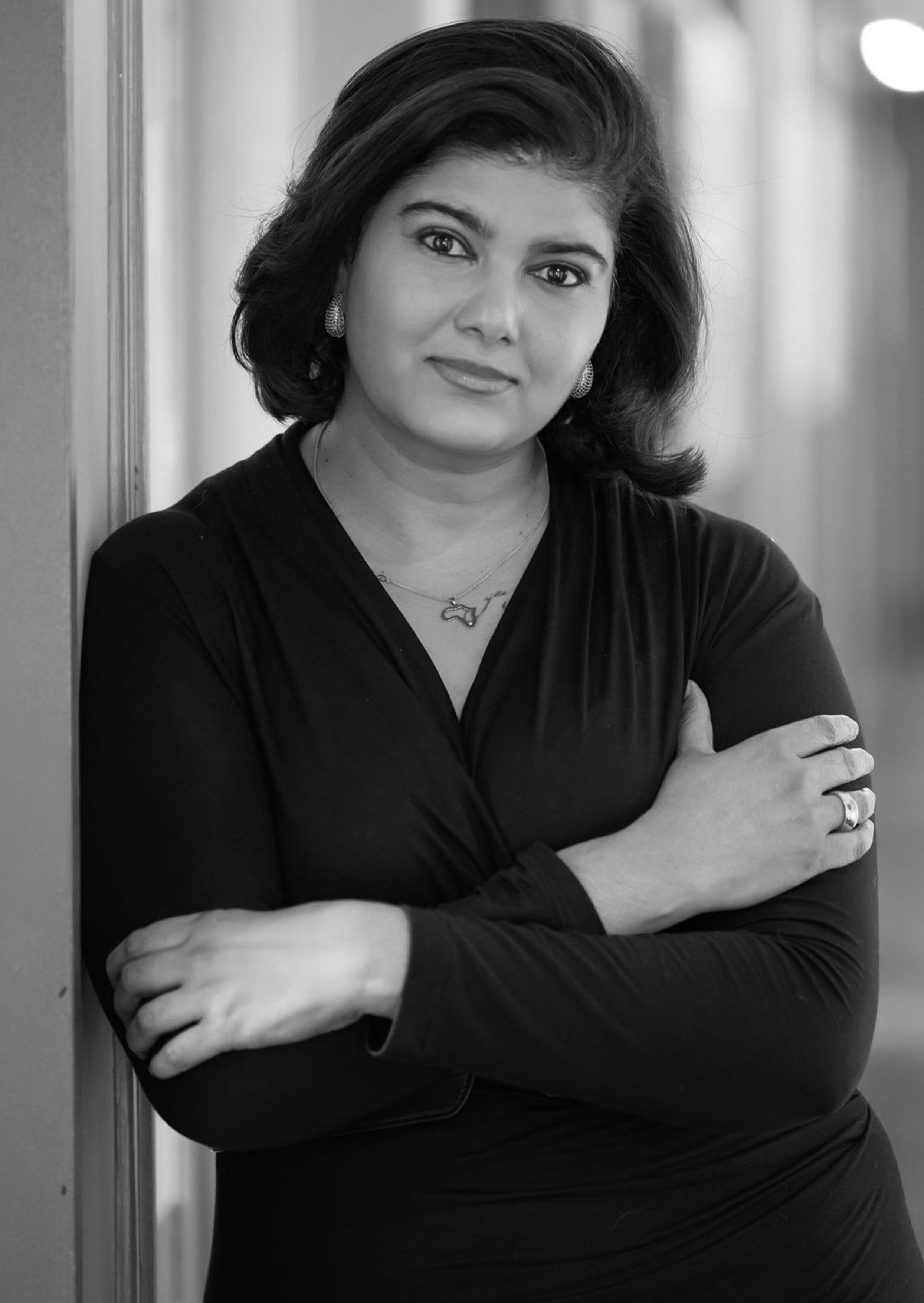

“The big problem in Africa is that many operators are so focused on acquisition and driving players into the funnel, but not on keeping them in the retention funnel. Players are not loyal unless you give them a reason to be. So, if players are not engaged and there are no retention efforts, they will move on to the next brand and play there.
With technologies on the rise, especially with AI changing how things are done across several industries, how has this changed or affected CRM strategies?
There has been a lot of change, and I think people are often sceptical about using AI. But after seventeen years in the industry, I can say the industry is very dynamic, and a big part of that is the rapid advancement of technology in CRM. We have CRM tools like Optimove or Smartco, along with gamification tools that help keep players engaged, and the technology is always evolving.
As we better understand player behaviour, we can adapt the technology we use, and AI is no exception. We need to embrace AI, as it can enhance the types of promotions we run and the content we send to specific segments of players, helping to keep them more engaged. AI also assists with segmentation and predicting future value of players. Many CRM tools offer add-ons that assess churn risk, looking at individual play activity. Rather than sending offers to everyone who hasn’t been active in the last month, AI can tailor offers to individuals who are likely to churn—delivering targeted incentives to those players.
What AI and machine learning teach us is to tailor offers, bonuses, and rewards based on actual player activity. For example, if you play every weekend, that’s your baseline; if someone else plays every two to three days, that’s a different pattern. Machine learning helps us understand these distinct behaviours within our database and tailor offers accordingly.
You have mentioned how important client interaction is and being able to value each client individually. What kind of tools do you use, and would you recommend for CRM Strategies especially in African Gaming Markets?
There are a number of tools out there, some of which have been developed specifically for the iGaming industry and are quite capable. Tools range from simple ones that allow you to upload a CSV segment, attach an email, and send it out to your players, to Rolls-Royce level solutions that do all the thinking for you. The choice really depends on your budget.
Some tools that encompass gamification allow you to set up missions to engage your players. A good example is Discovery Health in South Africa, which operates a loyalty program. A gamification tool I like is Smartico, where you can set up missions to encourage players to engage. For example, players can earn points by simple actions like confirming their email address or verifying their phone number. The advantages are twofold: players accumulate points, and with enough points they can claim bigger prizes, such as a hundred free spins or a large deposit match offer. At the same time, you’re setting up bite-sized missions to keep players coming back and engaging with your brand, without it feeling forced.
In today’s mobile-centric world, these missions can be accessed via the app, allowing players to complete tasks on the go, similar to how Emirates uses loyalty points and milestones to unlock benefits. I consider this an excellent engagement tool for gathering information and driving ongoing interaction. I strongly recommend Smartico.
Zaidi ya hayo, tulitolea wachezaji wengi wa sportsbook mizunguko ya bure kwenye mchezo wa kasino wakati wa nusu muda.Wakati walipokuwa wakitazama Super Bowl, walipokea mizunguko ya bure. Njia hii ilisaidia kwa muda mrefu kwa sababu baada ya Super Bowl kuna msimu wa chini ambapo wachezaji wa sportsbook mara nyingi hupotea kwa miezi michache kabla ya msimu mpya kuanza. Kwa kuwashirikisha wachezaji ambao kwa kawaida wangejikita kwenye sportsbook kwa mizunguko ya bure ya kasino, tuliona sehemu ya wachezaji hawa wakianza kubashiri kwenye kasino. Kama unavyojua, bidhaa ya kasino inapatikana kila wakati, hakuna msimu wa kupumzika. Hivyo, wachezaji hawa walizoea kucheza kasino kwa mizunguko ya bure, na baada ya msimu wa NFL kumalizika, walirudi kubashiri kwenye kasino. Hii ilipunguza kiwango cha wachezaji kuondoka na kuongeza uhifadhi kati ya wachezaji ambao vinginevyo wangeondoka kwa miezi kadhaa kabla ya msimu ujao.
Kwa teknolojia kuongezeka, hasa na AI ikibadilisha jinsi mambo yanavyofanywa katika sekta kadhaa, je, hii imebadilisha au kuathiri mikakati ya CRM?
Kumekuwa na mabadiliko mengi, na nadhani watu mara nyingi wanashuku kuhusu kutumia AI. Lakini baada ya miaka kumi na saba katika sekta, naweza kusema sekta ni ya kubadilika sana, na sehemu kubwa ya hilo ni maendeleo ya haraka ya teknolojia katika CRM. Tuna zana za CRM kama Optimove au Smartco, pamoja na zana za gamification ambazo husaidia kuwashikilia wachezaji, na teknolojia inazidi kubadilika.
Tunapoboresha kuelewa tabia za wachezaji, tunaweza kubadilisha teknolojia tunayotumia, na AI si tofauti. Tunahitaji kukumbatia AI, kwani inaweza kuboresha aina za matangazo tunayofanya na maudhui tunayowatuma kwa sehemu maalum za wachezaji, kusaidia kuwafanya wawe na ushirikiano zaidi. AI pia husaidia katika kugawanya na kutabiri thamani ya baadaye ya wachezaji. Zana nyingi za CRM zinatoa nyongeza zinazokadiria hatari ya kuondoka, zikichunguza shughuli za kucheza za mtu binafsi. Badala ya kutuma ofa kwa kila mtu ambaye hajakuwa hai katika mwezi uliopita, AI inaweza kubinafsisha ofa kwa watu ambao wanaweza kuondoka—ikitoa motisha maalum kwa wachezaji hao.
Kile AI na ujifunzaji mashine kinatufundisha ni kubinafsisha ofa, bonasi, na zawadi kulingana na shughuli halisi za wachezaji. Kwa mfano, ikiwa unacheza kila wikendi, hiyo ndiyo msingi wako; ikiwa mtu mwingine anacheza kila siku mbili hadi tatu, hiyo ni tabia tofauti. Ujifunzaji wa mashine kunatusaidia kuelewa tabia hizi tofauti ndani ya hifadhidata yetu na kubinafsisha ofa ipasavyo.
Umeeleza jinsi mawasiliano na wateja yalivyo muhimu na uwezo wa kuthamini kila mteja binafsi. Ni aina gani ya zana unazotumia, na ungependa kupendekeza kwa Mikakati ya CRM hasa katika Masoko ya Kamari ya Afrika?
Kuna zana kadhaa huko nje, baadhi ya ambazo zimeandaliwa mahsusi kwa ajili ya sekta ya iGaming na zina uwezo mzuri. Zana zinatofautiana kutoka kwa zile rahisi ambazo zinakuruhusu kupakia sehemu ya CSV, kuambatanisha barua pepe, na kuituma kwa wachezaji wako, hadi suluhu za kiwango cha Rolls-Royce ambazo zinafanya kila kitu kwa niaba yako. Chaguo hilo linategemea bajeti yako.
Baadhi ya zana zinazojumuisha gamification zinakuruhusu kuweka misheni ili kuwashawishi wachezaji wako. Mfano mzuri ni Discovery Health nchini Afrika Kusini, ambayo inaendesha mpango wa uaminifu. Zana ya gamification ninayopenda ni Smartico, ambapo unaweza kuweka misheni ili kuwahamasisha wachezaji kujihusisha. Kwa mfano, wachezaji wanaweza kupata pointi kwa vitendo rahisi kama kuthibitisha anwani yao ya barua pepe au kuthibitisha nambari zao za simu. Faida ni mbili: wachezaji wanakusanya pointi, na kwa pointi za kutosha wanaweza kudai zawadi kubwa, kama mizunguko mia moja ya bure au ofa kubwa ya mechi ya amana. Wakati huo huo, unaunda misheni ndogo ndogo ili kuwafanya wachezaji warudi na kujihusisha na chapa yako, bila kujisikia kulazimishwa.
Katika ulimwengu wa sasa unaozingatia simu, misheni hizi zinaweza kufikiwa kupitia programu, ikiruhusu wachezaji kukamilisha kazi wakiwa katika harakati, sawa na jinsi Emirates inavyotumia pointi za uaminifu na hatua kufungua faida. Nadhani hii ni zana bora ya ushirikiano kwa kukusanya taarifa na kuendesha mawasiliano ya kudumu. Ninapendekeza kwa nguvu Smartico.
Optimove is another major player in the industry; they’ve been around for a while and understand iGaming player behaviour. A newer option is FastTrack, which offers gamification and real-time communication. If you have the budget for a premium CRM tool, FastTrack is worth considering.
Looking at the CRM practises you’ve mentioned, and based on your experience and level of exposure, what practises would you say are still missing or underutilised in the gambling space? And if you could talk directly to operators right now, what would you advise them to do differently?
Shanta Segabon: As I’ve mentioned before, the biggest priority is to get the right people in place who will drive the CRM strategy within the business and ensure it’s aligned with product and other teams. I have five core CRM principles that I believe every operator should consider as part of their strategy:
•Segmentation: tailor offers and communications to distinct player segments.
•Promotions: optimise what you run, where you run it (website, app, etc.), and ensure relevance.
•Reporting and KPI analysis: tie campaigns to measurable performance. Don’t just push out campaigns; monitor their impact and drop underperforming ones to optimise.
•Continuous optimisation: what works today may not work tomorrow. Constantly test and refine content, promotions, and bonus strategies.
•Reward strategy: don’t reward everyone the same. Recognise and reward the players who drive the lion’s share of revenue, rather than those who just claim bonuses without contributing financially.
In practise, you must juggle all these elements simultaneously. You can have a strong omni-channel communication strategy, but if you’re not advertising or marketing the same promotions consistently across channels (e.g., website versus CRM messages), you’ll disrupt the player experience. Consistency across touchpoints is essential.
What advice would you give to someone who would like to get into the CRM space and maybe mention what has kept you inspired?
I think CRM is a great career path for people who are passionate and enthusiastic and who want to keep pushing the boundaries. CRM, especially in iGaming, has allowed me to do that across seven different countries. There is no single book on CRM in iGaming, we’re constantly pushing boundaries, testing new ideas, and experimenting all the time. If you’re curious and passionate about customer experience and player experience, you should definitely pursue CRM in the iGaming space. Whether you’re technical or non-technical, there’s a place for you.
I started with no CRM experience, and seventeen years later I’m still at it, because I’m driven by the technology we use in iGaming and by the fact that there’s no definitive textbook on CRM in this field. There are many articles and experienced people, but it’s a space where you can genuinely grow and test your theories.
A large part of what I do with Game Plan Consulting is skill-sharing, passing knowledge to the next generation of iGaming professionals. People can always reach out to me. I’m happy to share skills and knowledge, and I’d love for more people to consider this as a career path because I believe there are numerous opportunities within iGaming.
What would you say are the biggest challenges in the industry and how can these challenges be overcome?
The biggest challenge is getting buy-in from more experienced people, and you need to prove your impact with results. In this industry, you win credibility by showing concrete outcomes: “I did X, Y, and Z, and here are the results.” I often hear people say they ran a promotion but didn’t really look at the results. The reality is, you have to live and breathe the numbers. They’re a reflection of how well the CRM team is performing and, ultimately, justify your value.
Optimove ni mchezaji mwingine mkubwa katika sekta; wamekuwepo kwa muda na wanaelewa tabia za wachezaji wa iGaming. Chaguo jipya ni FastTrack, ambayo inatoa gamification na mawasiliano ya wakati halisi. Ikiwa una bajeti ya zana ya CRM ya kiwango cha juu, FastTrack inastahili kuzingatiwa.
Kwa kuangalia mbinu za CRM ulizozitaja, na kulingana na uzoefu wako na kiwango cha ufahamu, ni mbinu gani ungeweza kusema bado zinakosekana au kutotumiwa ipasavyo katika nafasi ya kamari? Na ikiwa ungeweza kuzungumza moja kwa moja na waendeshaji sasa hivi, ungewashauri kufanya nini tofauti?
Kama nilivyosema hapo awali, kipaumbele kikubwa ni kupata watu sahihi katika nafasi ambao wataendesha mkakati wa CRM ndani ya biashara na kuhakikisha unalingana na bidhaa na timu nyingine. Nina kanuni tano kuu za CRM ambazo naamini kila mchezaji anapaswa kuzingatia kama sehemu ya mkakati wao:
•Kugawanya: kubinafsisha ofa na mawasiliano kwa sehemu tofauti za wachezaji. Matangazo: kuboresha kile unachokifanya, mahali unachokifanya (tovuti, programu, n.k.), na kuhakikisha umuhimu.
•Ripoti na uchambuzi wa KPI: ungana kampeni na utendaji unaoweza kupimwa. Usisukume tu kampeni; fuatilia athari zao na uondoe zile zisizofanya vizuri ili kuboresha.
•Uboreshaji wa kuendelea: kile kinachofanya kazi leo huenda kisifanye kazi kesho. Jaribu na uboreshe maudhui, matangazo, na mikakati ya bonasi kila wakati.
•Mkakati wa tuzo: usiwape watu wote tuzo sawa. Tambua na upeleke tuzo kwa wachezaji wanaoleta sehemu kubwa ya mapato, badala ya wale wanaodai tu bonasi bila kuchangia kifedha.
Katika mazoezi, lazima ushughulike na vipengele vyote hivi kwa wakati mmoja. Unaweza kuwa na mkakati mzuri wa mawasiliano wa omni-channel, lakini ikiwa hautangazi au kufanya masoko ya promosheni sawa kwa njia zote (k.m., tovuti dhidi ya ujumbe wa CRM), utaharibu uzoefu wa mchezaji. Uthabiti kati ya maeneo ya mawasiliano ni muhimu.
Ni ushauri gani ungeweza kumpa mtu ambaye anataka kuingia kwenye eneo la CRM na labda kutaja kile kilichokuweka ukiwa na msukumo?
Nadhani CRM ni njia nzuri ya kazi kwa watu ambao wana shauku na hamu na ambao wanataka kuendelea kusukuma mipaka. CRM, hasa katika iGaming, imeniruhusu kufanya hivyo katika nchi saba tofauti. Hakuna kitabu kimoja kuhusu CRM katika iGaming, tunasukuma mipaka kila wakati, kujaribu mawazo mapya, na kufanya majaribio kila wakati. Ikiwa una hamu na shauku kuhusu uzoefu wa mteja na uzoefu wa mchezaji, unapaswa kufuatilia CRM katika eneo la iGaming. Iwe wewe ni wa kiufundi au si wa kiufundi, kuna mahali kwako.
Nilianza bila uzoefu wa CRM, na miaka kumi na saba baadaye bado nipo, kwa sababu ninachochewa na teknolojia tunayatumia katika iGaming na kwa sababu hakuna kitabu maalum kuhusu CRM katika uwanja huu. Kuna makala nyingi nawatu wenye uzoefu, lakini ni eneo ambapo unaweza kukua kwa dhati na kujaribu nadharia zako.
Sehemu kubwa ya kile ninachofanya na Game Plan Consulting ni kushiriki ujuzi, kupitisha maarifa kwa kizazi kijacho cha wataalamu wa iGaming. Watu wanaweza kila wakati kunifikia. Niko tayari kushiriki ujuzi na maarifa, na ningependa watu wengi zaidi kufikiria hii kama njia ya kazi kwa sababu naamini kuna fursa nyingi ndani ya iGaming.
Ungeweza kusema ni changamoto zipi kubwa zaidi katika sekta na jinsi changamoto hizi zinaweza kushindwa?
Changamoto kubwa ni kupata ushirikiano kutoka kwa watu wenye uzoefu zaidi, na unahitaji kuthibitisha athari zako kwa matokeo. Katika sekta hii, unapata uaminifu kwa kuonyesha matokeo halisi: "NilifanyaX, Y, naZ, na hapa kuna matokeo." Mara nyingi nasikiawatu wakisema walifanya matangazo lakini hawakutazama matokeo kwa kweli. Ukweli ni, lazima uishi na kupumua nambari. Ni kielelezo cha jinsi timu ya CRM inavyofanya kazi na, hatimaye, kuthibitisha thamani yako. 40
So, the challenge can be overcome by generating solid metrics and evidence:
Build robust reporting and analytics to quantify impact (impressions, conversions, retention, LTV, etc.).
•Tie campaigns directly to measurable outcomes, not just activity.
•Use A/B testing and iterative optimisation to demonstrate what works.
•Communicate results clearly to stakeholders, linking CRM actions to revenue and retention.
•Maintain a data-driven mindset and be prepared to defend decisions with numbers.
In short, prove value through data, continuous testing, and transparent communication.
Looking ahead, what are some of the shifts you would like to see in the iGaming industry?
I’d like to see a shift in mindset from operators, especially CEOs and heads of departments, moving away from “we’ve always done it this way.” In an industry where regulation changes and new approaches emerge, openness to alternate methodologies is essential to growth. The goalposts are always moving, so adaptability is crucial, and leaders must be passionate about driving growth in the numbers, first-time deposits, returning customers, and VIPs.
To fuel this shift, there must be a willingness to test and try different approaches continually. For me, the challenge is maintaining the mindset of “what if we do this differently? Would it work even better?” Innovation should be a constant question, not a one-off effort. If you’re not willing to experiment, you’ll miss opportunities to improve.
In short, I’d like to see more openness to experimentation, a data-driven culture that continually tests new ideas, and leadership that prioritizes evolving strategies to drive measurable growth.

Hivyo, changamoto inaweza kushindwa kwa kuzalisha vipimo thabiti na ushahidi:
•Jenga ripoti na uchambuzi thabiti ili kupima athari (maoni, ubadilishaji, uhifadhi, LTV, n.k.).
•Unganisha kampeni moja kwa moja na matokeo yanayoweza kupimwa, si tu shughuli.
•Tumia majaribio ya A/B na uboreshaji wa kurudiwa kuonyesha kile kinachofanya kazi.
•Wasilisha matokeo kwa uwazi kwa wadau, ukihusisha vitendo vya CRM na mapato na uhifadhi.
•Hifadhi mtazamo wa data na uwe tayari kulinda maamuzi yako kwa nambari.
Kwa kifupi, thibitisha thamani kupitia data, majaribio ya kuendelea, na mawasiliano ya uwazi.
Kutazamia yajayo, ni mabadiliko gani ungetaka kuona katika sekta ya iGaming?
Ningependa kuona mabadiliko ya mtazamo kutoka kwa waendeshaji, hasa Wakurugenzi Watendaji na wakuu wa idara, wakiondoka kwenye "tumefanya hivyo kila wakati." Katika sekta ambapo kanuni zinabadilika na mbinu mpya zinatokea, ufunguo wa mbinu mbadala ni muhimu kwa ukuaji. Malengo yanaendelea kuhamasika, hivyo kubadilika ni muhimu, na viongozi lazima wawe na shauku ya kuendesha ukuaji katika nambari, amana za mara ya kwanza, wateja wanaorejea, na VIPs.
Ili kuimarisha mabadiliko haya, lazima kuwe na utayari wa kujaribu na kujaribu mbinu tofauti kila wakati. Kwangu, changamoto ni kudumisha mtazamo wa "je, ikiwa tutafanya hivi tofauti? Je, itafanya kazi hata bora?" Ubunifu unapaswa kuwa swali la kudumu, si juhudi moja. Ikiwa hauko tayari kufanya majaribio, utakosa fursa za kuboresha.
Kwa kifupi, ningependa kuona ufunguzi zaidi kwa majaribio, utamaduni unaotegemea data ambao kila wakati hujaribu mawazo mapya, na uongozi ambao unapa kipaumbele mikakati inayokua ili kuendesha ukuaji unaoweza kupimwa.

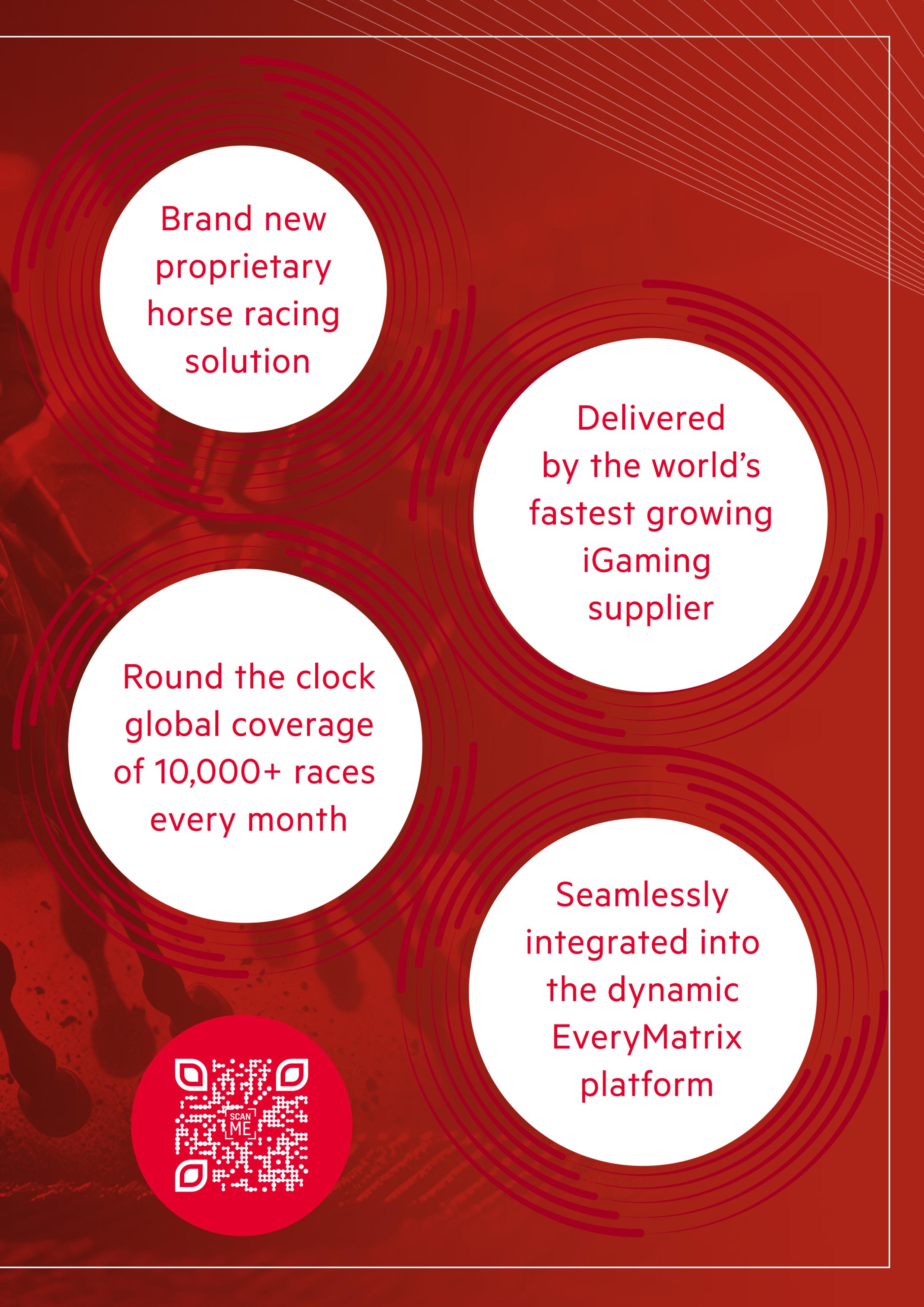
Africa’s iGaming industry is on a trajectory of explosive growth, driven by rising mobile penetration, evolving player preferences, and an appetite for localised digital experiences. During an interview with iGaming AFRIKA, Artur Harutyunyan, a tech-savvy entrepreneur and founder of BetFounders, shares his journey from social gaming to building scalable iGaming platforms tailored for Africa. He discusses how data-driven strategies, AI-powered engagement, and culturally rooted storytelling are redefining player experiences, while addressing the infrastructure, regulatory, and payment challenges shaping Africa’s dynamic iGaming landscape.
Could you provide an overview of yourself and your background?
I started my journey studying Economics and later transitioned into Technology, Business, and Digital Marketing. That combination gave me a strong foundation in understanding how companies grow and how people interact with products.
My first hands-on experience was working on social games, where I learnt a lot about player behaviour and how to build engaging experiences. Over time, this path naturally led me to the iGaming industry, particularly as I recognised the huge potential in the African market.
Today, with over 10 years of experience, I lead a growing company focused on creating smart, scalable gaming solutions. I believe in teamwork, simple ideas that work, and always putting the user first
How did you first get involved in the gaming industry?
My first steps in gaming were through social games, many of which were inspired by Armenian traditional games. We started by creating simple, culturally familiar games for local audiences. It was a great way to understand what keeps players engaged and how gameplay connects with identity and emotion.
Over time, I started noticing a gap, especially in emerging markets like Africa. There were many players, but limited access to quality online platforms. In some places, gaming was mostly offline, and online systems lacked structure, variety, or a proper user experience.
That’s when the idea formed: what if we could bring well-designed, modern iGaming platforms to regions where demand was growing but supply was still catching up? This thinking led me to enter iGaming - combining my technology and marketing background with a mission to build something new and needed.
Sekta ya iGaming ya Afrika iko katika mwelekeo wa ukuaji wa haraka, ikichochewa na kuongezeka kwa matumizi ya simu, mabadiliko ya mapendeleo ya wachezaji, na hamu ya uzoefu wa kidijitali wa ndani. Katika mahojiano na iGaming AFRIKA, Artur Harutyunyan, mjasiriamali mwenye ujuzi wa teknolojia na mwanzilishi wa BetFounders, anashiriki safari yake kutoka kwa michezo ya kijamii hadi kujenga majukwaa ya iGaming yanayoweza kupanuka yaliyoundwa kwa ajili ya Afrika. Anajadili jinsi mikakati inayoendeshwa na data, ushirikiano unaoendeshwa na AI, na hadithi zinazozingatia tamaduni zinavyobadilisha uzoefu wa wachezaji, huku akishughulikia changamoto za miundombinu, kanuni, na malipo zinazounda mandhari ya iGaming ya Afrika.
Je, unaweza kutupa muhtasari na historia yako?
Nilianza safari yangu nikisoma Uchumi na baadaye nikahamia Teknolojia, Biashara, na Masoko ya Kidijitali. Mchanganyiko huo ulinipa msingi mzuri wa kuelewa jinsi kampuni zinavyokua na jinsi watu wanavyoshirikiana na bidhaa.
Uzoefu wangu wa kwanza wa vitendo ulikuwa kazi kwenye michezo ya kijamii, ambapo nilijifunza mengi kuhusu tabia ya wachezaji na jinsi ya kujenga uzoefu wa kuvutia. Kadri muda ulivyopita, njia hii kwa asili iliniongoza katika sekta ya iGaming, hasa nilipotambua uwezo mkubwa katika soko la Afrika.
Leo, nikiwa na zaidi ya miaka 10 ya uzoefu, ninaongoza kampuni inayokua inayolenga kuunda suluhu za michezo za kisasa na zinazoweza kupanuka. Ninaamini katika ushirikiano, mawazo rahisi yanayofanya kazi, na kila wakati kuweka mtumiaji mbele.
Je, ulianza vipi kuhusika katika sekta ya michezo?
Hatua zangu za kwanza katika michezo zilikuwa kupitia michezo ya kijamii, mingi ambayo ilihamasishwa na michezo ya jadi ya Armenia. Tulianza kwa kuunda michezo rahisi, inayojulikana kimaadili kwa hadhira za ndani. Ilikuwa njia nzuri ya kuelewa ni nini kinachowafanya wachezaji wawe na ushirikiano na jinsi mchezo unavyohusiana na utambulisho na hisia.
Kadri muda ulivyopita, nilianza kuona pengo, hasa katika masoko yanayoibuka kama Afrika. Kulikuwa na wachezaji wengi, lakini upatikanaji wa majukwaa bora ya mtandaoni ulikuwa mdogo. Katika baadhi ya maeneo, michezo ilikuwa hasa ya mtandaoni, na mifumo ya mtandaoni ilikosa muundo, utofauti, au uzoefu mzuri wa mtumiaji.
Hapo ndipo wazo lilipoundwa: je, tungeweza kuleta majukwaa ya iGaming yaliyoundwa vizuri na ya kisasa katika maeneo ambapo mahitaji yalikuwa yanakua lakini ugavi ulikuwa bado unakua? Fikra hii iliniongoza kuingia katika iGaming - nikichanganya ujuzi wangu wa teknolojia na masoko na dhamira ya kujenga kitu kipya na kinachohitajika.



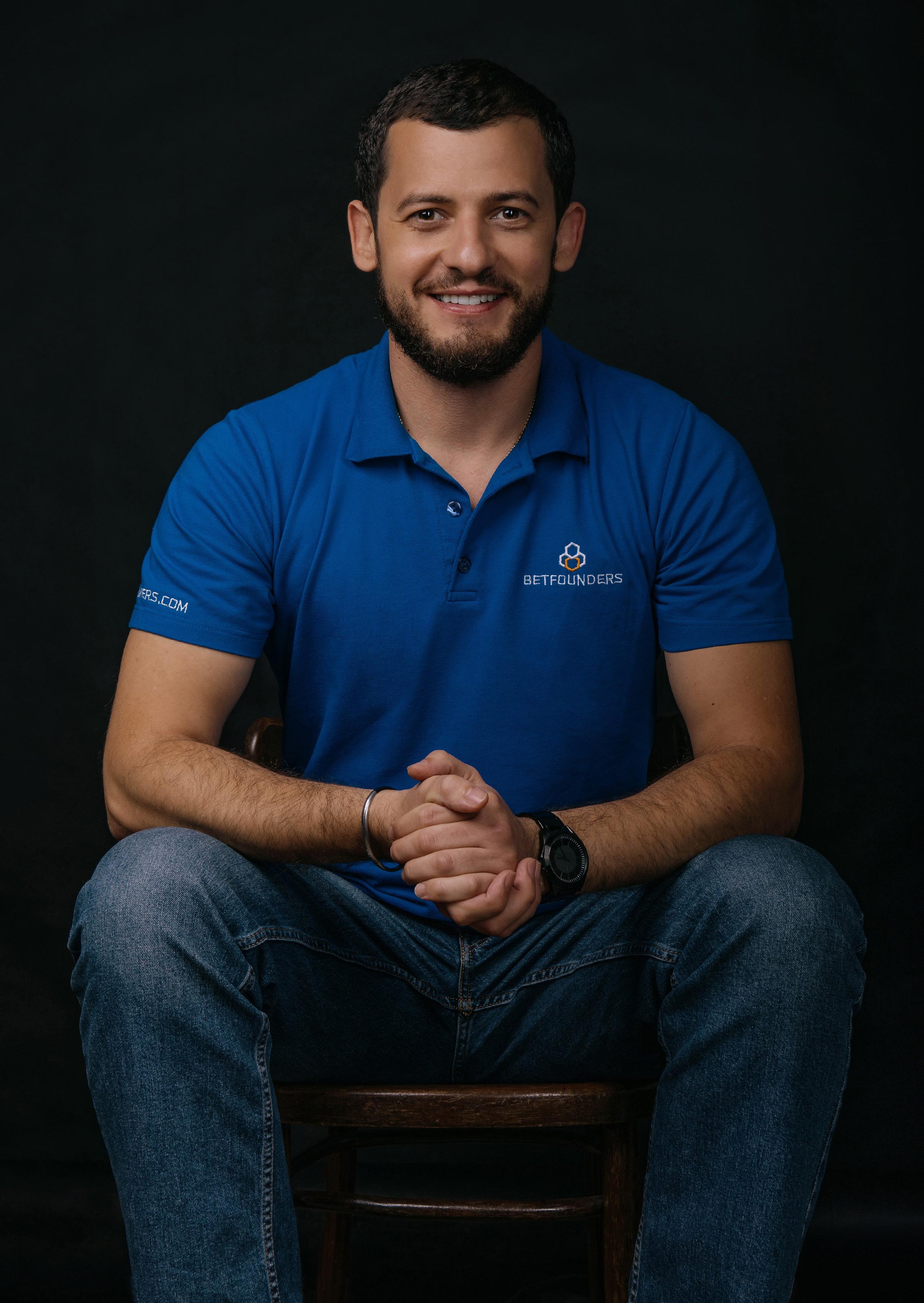
“When players see something, they emotionally connect with it, whether it's the name, the visuals, or the flow of the bonus; they're more engaged and more loyal.
With over a decade of experience in IT Management and Digital Marketing, how have these roles shaped your data-driven decision-making approach in gaming?
Coming from both tech and marketing backgrounds gave me a unique perspective. On one hand, I learnt to build scalable systems that work smoothly. On the other hand, I learnt how to understand users, test ideas quickly, and measure results.
In iGaming, this balance is crucial. We don’t make decisions based on guesswork - we follow the data. Whether it's choosing the right bonus structure or improving user flow, we look at real player behaviour, run A/B tests, and adjust quickly.
We also follow a framework I call the B/W formula, focusing on acquisition, monetisation, retention, and engagement. This helps us see the full picture and build products that grow sustainably.
Most importantly, my background has taught me that good decisions come from asking the right questions, listening to the numbers, and staying close to the user.
Since entering the fast-growing but untapped African market, what has surprised you most, and how did you navigate those unexpected challenges?
To be honest, I’m still often surprised. The African market is full of opportunity, but it also comes with unique challenges that require constant adaptation. One of the first things I noticed was that in many regions, there wasn’t a clear understanding of how a proper gaming website should work, from UX expectations to technical stability.
In addition, there are real gaps in regulation, taxation, and long-term direction. Many markets don’t have stable or well-defined gaming frameworks, and intellectual property isn’t always protected. Everything is very country-specific, which means there’s no one-size-fits-all approach.
To navigate this, we’ve had to stay flexible - adapting to each country’s needs, building strong local partnerships, and focusing on education and trust-building with both users and regulators.
From regulatory hurdles to tech limitations and payment infrastructure, which challenge proved the toughest, and how did you work to resolve them?
All of these challenges matter, but the toughest one so far has been payment infrastructure. Many regions in Africa rely heavily on mobile money, and the systems can be fragmented or unstable. At times, even basic transaction flows don’t work as expected, which directly affects user trust.
To solve this, we partnered with local fintech providers and built a flexible payment layer that can adapt to each country’s specific systems. This way, we ensure smoother deposits, faster withdrawals, and fewer failed transactions.
On the tech side, device diversity and low connectivity in some areas required us to optimise every part of the platform, keeping games light, mobile-first, and fast.
As for regulation, the main challenge is a lack of consistency. Each country has its own rules, or sometimes no clear rules at all. We navigate this by staying agile, doing country-specific research, and building compliance-ready systems that can adapt as laws evolve.
“If you want to succeed in Africa, the first thing to keep in mind is data optimisation - and by that, I mean keeping games light and internet-friendly. Many players still face limited connectivity and expensive mobile data, so your games need to load fast and run smoothly, even on basic devices.
Kwa zaidi ya muongo mmoja wa uzoefu katika Usimamizi wa IT na Masoko ya Kidijitali, majukumu haya yameathirije mtazamo wako wa kufanya maamuzi unaoendeshwa na data katika michezo?
Kuja kutoka katika nyanja za teknolojia na masoko kunanipa mtazamo wa kipekee. Kwa upande mmoja, nilijifunza kujenga mifumo inayoweza kupanuka inayofanya kazi vizuri. Kwa upande mwingine, nilijifunza jinsi ya kuelewa watumiaji, kupima mawazo haraka, na kupima matokeo.
Katika iGaming, usawa huu ni muhimu. Hatufanyi maamuzi kulingana na makisio - tunafuata data. Iwe ni kuchagua muundo sahihi wa bonasi au kuboresha mtiririko wa mtumiaji, tunaangalia tabia halisi ya wachezaji, tunafanya majaribio ya A/B, na kubadilisha haraka.
Pia tunafuata mfumo ninauita formula ya B/W, tukilenga upatikanaji, fedha, uhifadhi, na ushirikiano. Hii inatufanya tuone picha kamili na kujenga bidhaa zinazokua kwa njia endelevu.
Muhimu zaidi, historia yangu imenifundisha kwamba maamuzi mazuri yanatokana na kuuliza maswali sahihi, kusikiliza nambari, na kukaa karibu na mtumiaji.
Tangu kuingia katika soko la Afrika linalokua kwa haraka lakini halijatumika, ni nini kilichokushangaza zaidi, na ulikabiliana aje na changamoto hizo zisizotarajiwa?
Kwa kweli, bado mara nyingi nashangazwa. Soko la Afrika limejaa fursa, lakini pia linakuja na changamoto za kipekee zinazohitaji kukabiliana mara kwa mara. Mojawapo ya mambo ya kwanza niliyoyaona ni kwamba katika maeneo mengi, kulikosekana kwa ufahamu wazi wa jinsi tovuti sahihi ya michezo inavyopaswa kufanya kazi, kutoka kwa matarajio ya UX hadi uthabiti wa kiufundi.
Zaidi ya hayo, kuna pengo halisi katika kanuni, ushuru, na mwelekeo wa muda mrefu. Masoko mengi hayana mifumo thabiti au iliyoainishwa vizuri ya michezo, na mali ya akili hailindwi kila wakati. Kila kitu ni maalum kwa nchi, kumaanisha hakuna njia moja inayofaa kwa wote.
Ili kukabiliana na hili, tumelazimika kuwa rahisi - kukabiliana na mahitaji ya kila nchi, kujenga ushirikiano mzuri wa ndani, na kuzingatia elimu na kujenga uaminifu kwa watumiaji na waangalizi.
Kutoka kwa vizuizi vya kanuni hadi vikwazo vya teknolojia na miundombinu ya malipo, ni changamoto ipi iliyoonekana kuwa ngumu zaidi, na ulifanya vipi kutatua hizo?
Changamoto hizi zote zina umuhimu, lakini ile ngumu zaidi hadi sasa imekuwa miundombinu ya malipo. Mikoa mingi barani Afrika inategemea sana pesa za simu, na mifumo inaweza kuwa na vipande vidogo au isiyo thabiti. Wakati mwingine, hata mtiririko wa muamala wa msingi haufanyi kazi kama inavyotarajiwa, ambayo inadhuru moja kwa moja uaminifu wa mtumiaji.
Ili kutatua hili, tulishirikiana na watoa huduma za fintech nchini na kuunda safu ya malipo inayoweza kubadilika kulingana na mifumo mahususi ya kila nchi. Kwa njia hii, tunahakikisha amana rahisi zaidi, uondoaji wa haraka na miamala michache iliyofeli.
Kwa upande wa teknolojia, utofauti wa vifaa na muunganisho mdogo katika baadhi ya maeneo ulituhitaji kuboresha kila sehemu ya jukwaa, kuweka michezo kuwa nyepesi, simu ya kwanza na kwa haraka.
Kuhusu udhibiti, changamoto kuu ni ukosefu wa uthabiti. Kila nchi ina sheria zake, au wakati mwingine hakuna sheria wazi kabisa. Tunaangazia hili kwa kuwa wepesi, kufanya utafiti mahususi wa nchi, na kuunda mifumo iliyo tayari kufuata ambayo inaweza kubadilika kadiri sheria zinavyobadilika.

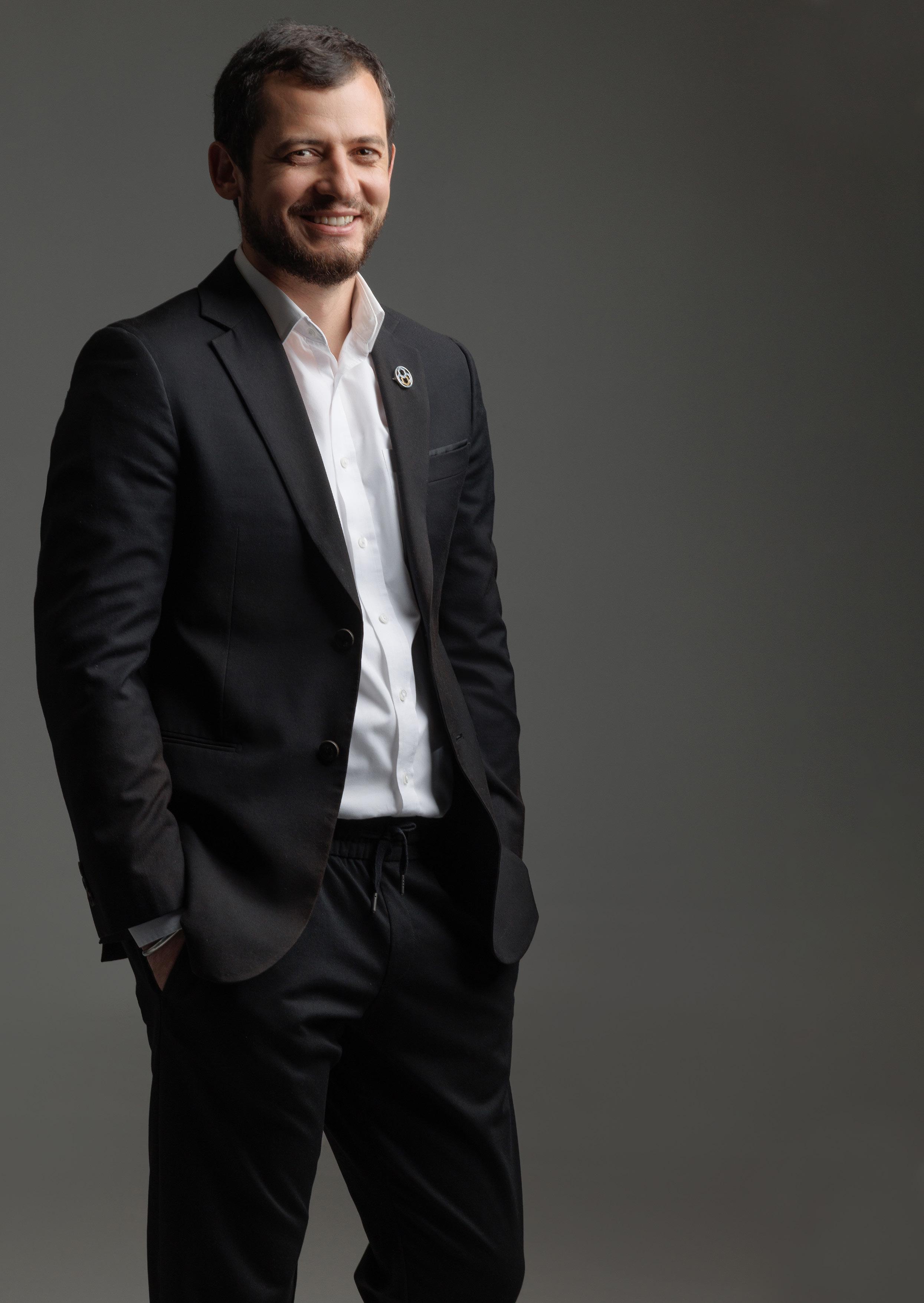
“ I believe motivation comes from ownership and clarity. Everyone on our team knows the “why” behind what we do, not just the “what.” We set clear goals, but we also give people the freedom to find creative ways to reach them.
BetFounders recently launched the Big Five. What inspired the concept behind this bonus, and could you walk us through the development journey, from initial idea to execution and especially in the context of tailoring it for the African gaming audience?
When we started working on Big Five, we didn’t just want to launch another game. We wanted to build something that truly captured the rhythm, colour, and wild spirit of the continent. The Big Five are powerful symbols across Africa, and they inspired us to create a localised system that feels exciting, familiar, and meaningful.
We trained AI models to help us create not only the bonus logic, but also the visuals from the golden savannah landscapes to the intense gaze of the leopard. Every detail was crafted to resonate with African players and offer something fresh and immersive. Big Five isn’t just a game - it’s a dynamic experience built specifically for this market.
With the launch of the “Big Five” bonus system, how do you see localised storytelling and AI-driven engagement reshaping player loyalty strategies across African iGaming markets?
Big Five taught us that localised storytelling works. When players see something, they emotionally connect with it, whether it's the name, the visuals, or the flow of the bonus; they're more engaged and more loyal.
AI played a key role in helping us shape this experience. It allowed us to generate visuals and flows that felt authentic yet dynamic. By combining technology with cultural relevance, we’ve seen a noticeable improvement in how players interact with the product. This kind of AI-powered, story-rich engagement is, in my view, the future of loyalty strategies in Africa.
What insights did you and your team gain from developing the Big Five that will influence future bonus mechanics or game design at BetFounders?
One major insight is that bold ideas grounded in local context work best. Big Five showed us that players respond not only to attractive rewards, but to games that feel like they were made for them. From AI-generated visuals to a more interactive bonus journey, we’ve seen higher engagement and return rates.
Moving forward, we’ll continue to explore how technology helps us tell better stories, faster. We will keep respecting local cultures, listening to player feedback, and pushing creativity.
Technologies like data analytics, AI, and automation are transforming iGaming. How are you leveraging these tools to enhance gameplay and improve user experience?
We see technology as a toolbox, and we use each tool where it makes the most impact. With analytics, we track how players behave - what they enjoy, when they drop off, and what keeps them engaged. This helps us adjust bonuses, game flows, and even design elements in real time.
AI has been a game-changer, especially in projects like Big Five. We used it not just for visual creation, but also for understanding patterns in user preferences. It helped us personalise experiences without overwhelming the player.
Automation allows us to scale efficiently. From real-time CRM triggers to bonus delivery and fraud checks, we rely on automated systems to ensure speed, accuracy, and efficiency, especially important when working across multiple markets.
Our goal is to use technology to make the player experience smoother, smarter, and more enjoyable.
BetFounders hivi karibuni ilizindua Big Five. Ni nini kilichochea wazo la bonasi hii, na unaweza kututembeza katika safari ya maendeleo, kutoka wazo la awali hadi utekelezaji na hasa katika muktadha wa kuirekebisha kwa ajili ya hadhira ya michezo ya Kiafrika?
Tulipoanza kufanya kazi kwenye Big Five, hatukutaka tu kuzindua mchezo mwingine. Tulitaka kuunda kitu ambacho kilinasa sana mdundo, rangi na roho mwitu ya bara hili. Big Five ni alama za nguvu kote barani Afrika, na zilituhimiza kuunda mfumo wa ujanibishaji ambao unahisi kusisimua, unaojulikana na wa maana.
Tulifunza miundo ya AI ili kutusaidia kuunda sio tu mantiki ya bonasi, lakini pia taswira kutoka kwa mandhari ya savannah ya dhahabu hadi kutazama kwa chui. Kila undani uliundwa ili kuhusisha wachezaji wa Kiafrika na kutoa kitu kipya na cha kuzama. Big Five si mchezo tu - ni uzoefu wa kuvutia ulioundwa mahususi kwa ajili ya soko hili.
Kwa kuzinduliwa kwa mfumo wa bonasi wa "Big Five", unaonaje usimulizi wa hadithi uliojanibishwa na ushirikiano unaoendeshwa na AI ukiunda upya mikakati ya uaminifu ya wachezaji katika masoko ya Afrika ya iGaming?
Big Five ilitufundisha kwamba usimulizi wa hadithi uliojanibishwa hufanya kazi. Wachezaji wanapoona kitu, wanaungana nacho kihisia, iwe ni jina, taswira, au mtiririko wa bonasi; wanajishughulisha zaidi na waaminifu zaidi.
AI ilichukua jukumu muhimu katika kutusaidia kuunda uzoefu huu. Ilituruhusu kutoa taswira na mitiririko ambayo ilihisi kuwa ya kweli lakini yenye nguvu. Kwa kuchanganya teknolojia na umuhimu wa kitamaduni, tumeona uboreshaji unaoonekana katika jinsi wachezaji wanavyoingiliana na bidhaa. Aina hii ya ushirikiano unaoendeshwa na AI, na wenye hadithi nyingi, kwa maoni yangu, ni mustakabali wa mikakati ya uaminifu barani Afrika.
Je, wewe na timu yako mlipata maarifa gani kutokana na kutengeneza Big Five ambayo yataathiri ufundi wa bonasi au muundo wa mchezo katika BetFounders?
Ufahamu mmoja mkuu ni kwamba mawazo dhabiti yanayokitwa katika muktadha wa ndani hufanya kazi vyema zaidi. Big Five ilituonyesha kuwa wachezaji hujibu sio tu zawadi za kuvutia, lakini kwa michezo ambayo wanahisi kama iliundwa kwa ajili yao. Kutoka kwa taswira zinazozalishwa na AI hadi safari ya ziada inayoingiliana zaidi, tumeona ushiriki wa juu na viwango vya faida.
Kusonga mbele, tutaendelea kuchunguza jinsi teknolojia inatusaidia kusimulia hadithi bora, kwa haraka zaidi. Tutaendelea kuheshimu tamaduni za wenyeji, kusikiliza maoni ya wachezaji, na kusukuma ubunifu.
Teknolojia kamavile uchanganuzi wadata, AI, naotomatiki zinabadilisha iGaming. Je, unatumia vipi zana hizi ili kuboresha uchezaji na kuboresha matumizi ya mtumiaji?
Tunaona teknolojia kama kisanduku cha zana, na tunatumia kila zana inapoleta matokeo zaidi. Kwa uchanganuzi, tunafuatilia jinsi wachezaji wanavyofanya - kile wanachofurahia, wanapoacha, na kinachowafanya washiriki. Hii hutusaidia kurekebisha bonasi, mtiririko wa mchezo na hata vipengele vya kubuni katika muda halisi.
AI imekuwa kibadilishaji mchezo, haswa katika miradi kama Big Five. Hatukuitumia tu kwa uundaji wa kuona, lakini pia kwa kuelewa mifumo katika mapendeleo ya watumiaji. Ilitusaidia kubinafsisha uzoefu bila kumlemea mchezaji.
Kiotomatiki huturuhusu kuongeza kiwango kwa ufanisi. Kuanzia vichochezi vya CRM vya wakati halisi hadi utoaji wa bonasi na ukaguzi wa ulaghai, tunategemea mifumo ya kiotomatiki ili kuhakikisha kasi, usahihi na ufanisi, hasa muhimu tunapofanya kazi katika masoko mengi. Lengo letu ni kutumia teknolojia kufanya uzoefu wa mchezaji kuwa laini, nadhifu na wa kufurahisha zaidi.


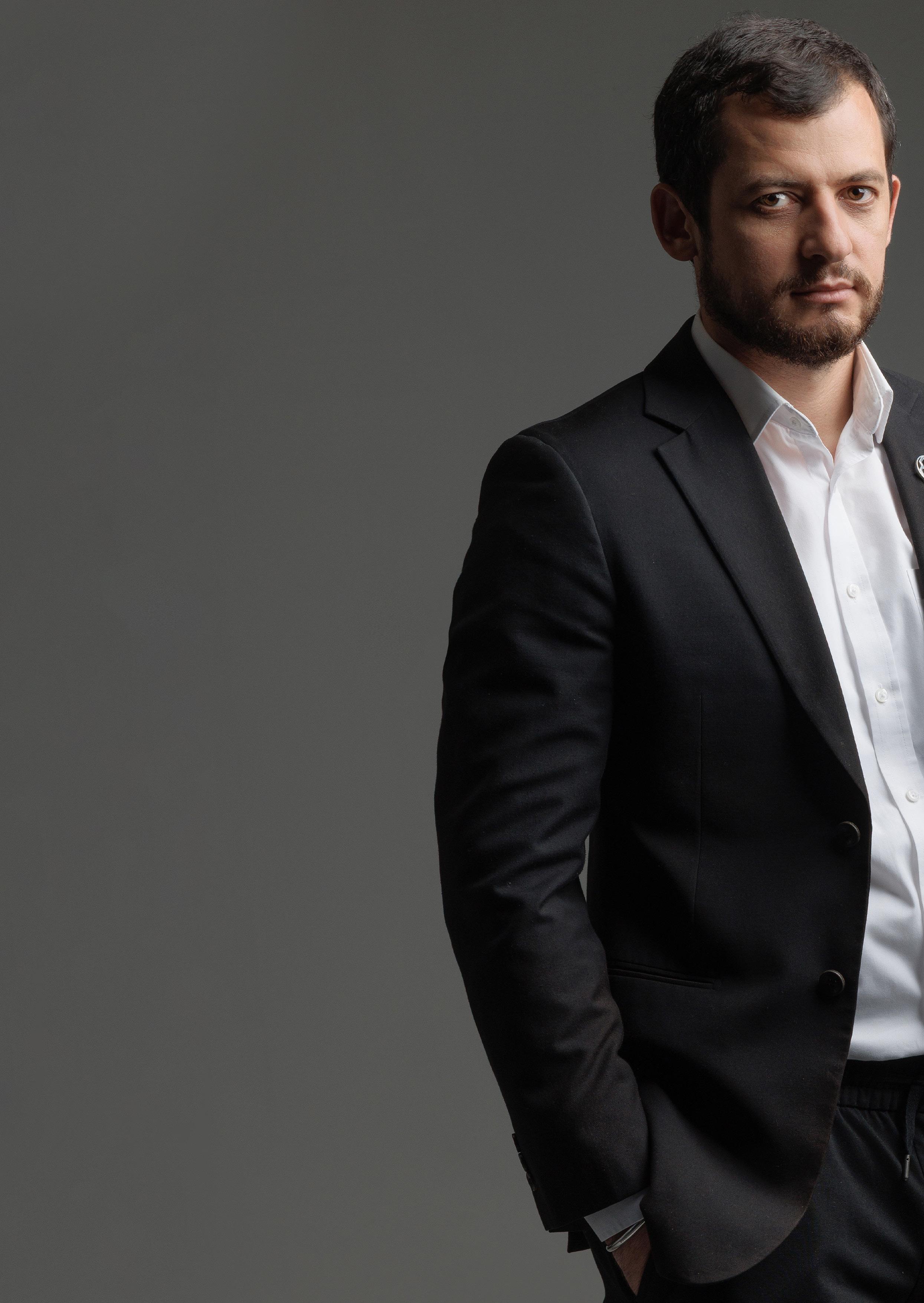
Following your insightful contribution during the recent iGaming AFRIKA webinar on the future of slot games, how do you see player preferences across African markets shaping the design and development of future slot games and their titles?
In many of the markets we entered, we didn’t just follow trends, we helped shape them. We introduced players to a variety of game types, explained how they work, and created a space where they could explore and find what they love. Over time, it became clear what resonates: Jackpot slots, Hold & Win mechanics, 3x3 classic formats, and games with strong, frequent bonus triggers. These are not passing trends - they’re the future of slots in Africa.
Players now actively look for these features. They want simple, rewarding, and exciting gameplay - and we’re committed to giving them more of exactly that.
You mentioned some exciting trends during the session. Could you share more about the innovative technologies or mechanics that Game Providers should start exploring to stay ahead in Africa’s fast-evolving iGaming landscape?
If you want to succeed in Africa, the first thing to keep in mind is data optimisation - and by that, I mean keeping games light and internet-friendly. Many players still face limited connectivity and expensive mobile data, so your games need to load fast and run smoothly, even on basic devices.
Next, focus on giving players a real sense of control over their gameplay and winnings. Games that allow users to feel they’re managing their money and progress, not just spinning for luck, perform much better.
Also, bonus mechanics matter a lot here, especially the second and third bonus triggers. That’s when players are already involved, and the emotional engagement is higher. Design your reward structure with that rhythm in mind.
In short, my advice: build simple, smart, and build with Africa in mind. If you respect the local player’s experience, the market will respond.
Kufuatia mchango wako wa maarifa wakati wa mtandao wa hivi majuzi wa iGaming AFRIKA kuhusu mustakabali wa michezo ya kamari, unaonaje mapendeleo ya wachezaji kote katika masoko ya Afrika yakichagiza muundo na ukuzaji wa michezo ya baadaye ya slot na mada zao?
Katika masoko mengi tuliyoingia, hatukufuata mitindo tu, tulisaidia kuyaunda. Tuliwajulisha wachezaji aina mbalimbali za michezo, tukaeleza jinsi wanavyofanya kazi, na kuunda nafasi ambapo wangeweza kuchunguza na kupata kile wanachopenda.
Baada ya muda, ilionekana wazi ni nini kinachohusika: Nafasi za Jackpot, Mitambo ya Shikilia na Ushinde, miundo ya kawaida ya 3x3, na michezo iliyo na vichochezi vikali vya bonasi vya mara kwa mara. Hizi si mitindo ya kupita - ni mustakabali wa nafasi katika Afrika.
Wachezaji sasa hutafuta vipengele hivi kikamilifu. Wanataka uchezaji rahisi, wa kuridhisha na wa kusisimua - na tumejitolea kuwapa zaidi ya hayo.
Uliangazia baadhi ya mitindo ya kusisimua wakati wa kikao. Je, unaweza kushiriki zaidi kuhusu teknolojia bunifu au mitambo ambayo Watoa Michezo wanapaswa kuanza kuchunguza ili kubaki mbele katika mazingira ya iGaming yanayobadilika kwa haraka barani Afrika?
Ikiwa unataka kufanikiwa barani Afrika, jambo la kwanza kukumbuka ni uboreshaji wa data - na kwa hilo, ninamaanisha kuweka michezo kuwa nyepesi na rafiki wa mtandao. Wachezaji wengi bado wanakabiliwa na uhusiano dhaifu na gharama kubwa za data za simu, hivyo michezo yako inahitaji kupakia haraka na kufanya kazi vizuri, hata kwenye vifaa vya msingi.
Kwa kifupi, ushauri wangu: jenga rahisi, mahiri, na ujenge ukiwa na Afrika akilini. Ikiwa unaheshimu uzoefu wa mchezaji wa eneo hilo, soko litajibu.
You’ve prioritised responsible gaming and regulatory compliance. What tools, policies, or systems have you implemented to ensure player safety and trust?
At BetFounders, we believe that gaming should always be safe and enjoyable. That’s why we’ve built our platform with player protection in mind from day one.
We give players simple tools to stay in control, like setting their limits on how much they deposit or play, tracking their activity, and even taking a break whenever they feel it’s needed. These features help make sure gaming stays fun and doesn’t become a problem.
We also work closely with our partners to meet local rules and regulations. But for us, it’s more than just meeting requirements; it’s about building trust with players and showing that we care about their well-being.
In short, responsible gaming is part of who we are. We want to grow the industry in a way that’s smart, safe, and sustainable, for everyone involved.
Finally, what exciting next steps or projects are you planning as you look to the future?
A lot is happening behind the scenes, and while we can’t reveal everything just yet, I can promise this: something big is on the way.
We’re expanding into new markets, forming new partnerships, and most importantly, launching new products that are built with our customers at the centre. These upcoming releases are not just updates; they’re designed to solve real needs, improve the player experience, and offer even more value to our partners.
What we’re building now is bolder, smarter, and more localised than anything we’ve done before. And we’re doing it with one goal in mind: to raise the standard across the entire iGaming experience.
What makes a game work in the African iGaming market specifically?
In Africa, players want games that are fast, fun, and light. The themes should be relatable, the rewards should come often enough to keep it exciting, and the game should work well on low-data connections.
The best-performing games here are often the simplest ones, done well.
How do you keep your team motivated during rapid growth?
I believe motivation comes from ownership and clarity. Everyone on our team knows the “why” behind what we do, not just the “what.” We set clear goals, but we also give people the freedom to find creative ways to reach them.
We celebrate progress, we share feedback openly, and we remind each other that we’re building something meaningful, not just a company, but an experience players will love.
What advice would you give to others entering the African iGaming market?
Start by listening. Every market is different, and assumptions don’t work here. Talk to local players, work with local partners, and be ready to adapt fast.
Focus on simplicity, trust, and reliability. Get the basics rightpayments, support, user flow. Don’t overcomplicate. If you show players that you understand their needs and you’re here to stay, they’ll respond.

Umeweka kipaumbele kwenye michezo inayohusika na kufuata sheria. Ni zana, sera, au mifumo gani umetekeleza ili kuhakikisha usalama na uaminifu wa wachezaji?
Katika BetFounders, tunaamini kwamba michezo inapaswa kuwa salama na ya kufurahisha kila wakati. Ndio maana tumejenga jukwaa letu kwa kuzingatia ulinzi wa wachezaji tangu siku ya kwanza.
Tunawapa wachezaji zana rahisi za kubaki na udhibiti, kama kuweka mipaka yao kuhusu kiasi wanachoweka au kucheza, kufuatilia shughuli zao, na hata kuchukua mapumziko wakati wowote wanapohisi inahitajika. Vipengele hivi vinasaidia kuhakikisha michezo inabaki kuwa ya kufurahisha na haifanyi kuwa tatizo.
Pia, tunafanya kazi kwa karibu na washirika wetu ili kukidhi sheria na kanuni za eneo hilo. Lakini kwetu, ni zaidi ya kukidhi mahitaji; ni kuhusu kujenga uaminifu na wachezaji na kuonyesha kwamba tunajali kuhusu ustawi wao.
Kwa kifupi, michezo inayohusika ni sehemu ya sisi. Tunataka kukuza sekta hiyo kwa njia ambayo ni mahiri, salama, na endelevu, kwa kila mtu anayehusika.
Hatimaye, ni hatua au miradi gani ya kusisimua unayopanga unapoangalia mbele?
Mambo mengi yanatokea nyuma ya pazia, na ingawa hatuwezi kufichua kila kitu bado, naweza kuahidi hivi: kitu kikubwa kiko njiani.
Tunapanua katika masoko mapya, tunaunda ushirikiano mpya, na muhimu zaidi, tunazindua bidhaa mpya ambazo zimejengwa kwa wateja wetu katikati. Uzinduzi huu ujao si tu masasisho; zimeundwa kutatua mahitaji halisi, kuboresha uzoefu wa mchezaji, na kutoa thamani zaidi kwa washirika wetu.
Kile tunachojenga sasa ni cha ujasiri zaidi, mahiri zaidi, na cha ndani zaidi kuliko chochote tulichofanya hapo awali. Na tunafanya hivyo kwa lengo moja akilini: kuinua kiwango katika uzoefu mzima wa iGaming.
Ni nini kinachofanya mchezo ufanye kazi katika soko la iGaming la Afrika hasa?
Barani Afrika, wachezaji wanataka michezo ambayo ni ya haraka, ya kufurahisha, na nyepesi. Mada zinapaswa kuwa za kueleweka, zawadi zinapaswa kuja mara nyingi vya kutosha ili kuendelea kuwa ya kusisimua, na mchezo unapaswa kufanya kazi vizuri kwenye uhusiano wa data ya chini.
Michezo inayofanya vizuri hapa mara nyingi ni zile rahisi zaidi, ikifanywa vizuri.
Unashughulije timu yako kuwa na motisha wakati wa ukuaji wa haraka?
Ninaamini motisha inatokana na umiliki na uwazi. Kila mtu kwenye timu yetu anajua "kwa nini" nyuma ya kile tunachofanya, si tu "nini." Tunaweka malengo wazi, lakini pia tunawapa watu uhuru wa kupata njia za ubunifu za kuyafikia.
Tunaadhimisha maendeleo, tunashiriki maoni kwa uwazi, na tunakumbushana kwamba tunajenga kitu chenye maana, si tu kampuni, bali uzoefu ambao wachezaji watapenda.
Ni ushauri gani ungeweza kuwapa wengine wanaoingia kwenye soko la iGaming la Afrika?
Anza kwa kusikiliza. Kila soko ni tofauti, na dhana hazifanyi kazi hapa. Zungumza na wachezaji wa ndani, fanya kazi na washirika wa ndani, na uwe tayari kubadilika haraka.
Zingatia urahisi, uaminifu, na kutegemewa. Pata misingi sahihimalipo, msaada, mtiririko wa mtumiaji. Usijifanye kuwa mgumu. Ikiwa unaonyesha wachezaji kwamba unaelewa mahitaji yao na uko hapa kubaki, watakujibu.
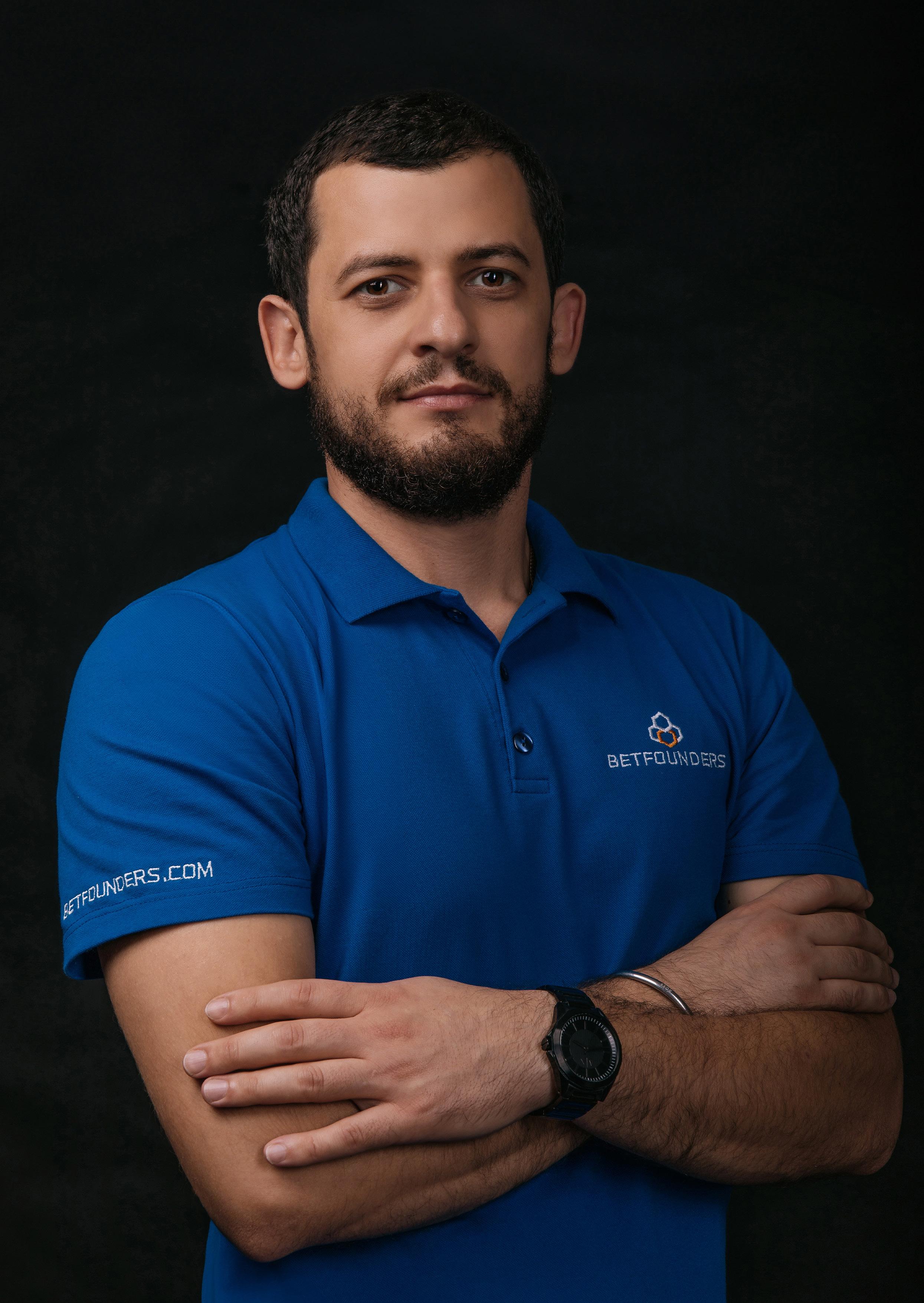
F ounder and CEO Betfounders





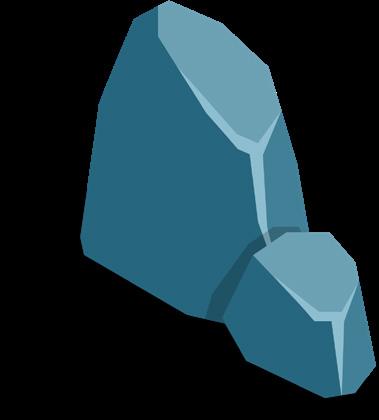







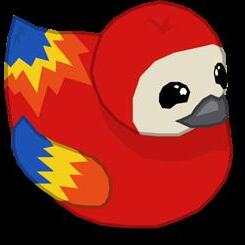

In this discussion Jeremiah Maangi, Founder and CEO of iGaming AFRIIKA, shares his insights on the fast evolving gaming landscape. From the role of technology in transforming player experiences to the rising adoption of cryptocurrency and the critical importance of responsible gaming, he paints a picture of both the opportunities and challenges that lie ahead for Africa’s gaming industry.
Who is Jeremiah? And can you share with us your journey in the iGaming industry? What inspired you to establish iGaming AFRIKA?
Jeremiah, also known as Mr. iGaming AFRIKA, is the CEO and founder of iGaming AFRIKA, the leading iGaming media and publication platform on the continent. My mission with iGaming AFRIKA is to shape the future of the gaming industry in Africa through our platform and various initiatives. These include engaging with African regulators to promote a unified industry regulation & licensing policy and encouraging operators to support responsible gaming campaigns such as self-exclusion. We have recently celebrated our 2nd anniversary at iGaming AFRIKA. I look forward to more growth and success for the industry in Africa.
As a leader in the iGaming sector, what principles do you live by that you think have made the biggest impact on your journey?
I live by zeal, motivation, and energy to stay at the top. Believing in oneself and working towards goals are essential. Continuous learning is also vital; I emphasize on listening, watching, and reading, leveraging readily available internet resources to develop skills and knowledge, which in turn elevates my growth.
Building iGaming AFRIKA must have had its own challenges. What were some of the toughest moments, and how did you overcome them?
The biggest challenge was financing a startup, often requiring personal funds to keep the business afloat in its early stages. I overcame this by having savings from my previous employment, which helped sustain the brand during its initial phase.
You’re also behind iGaming Consult Africa and AfriAdz Affiliates. Please tell us more about these brands?
iGaming Consult Africa is a platform for investors and businesses seeking opportunities in the African gaming industry. It offers services such as feasibility studies, market entry consulting, legislative and regulatory advice, license applications across African countries, market research, and strategic planning. iGaming Consult Africa also connects gaming businesses with leading affiliate marketing agents to enhance their competitiveness. Affiliates can register on the platform to access exclusive offers and negotiated deals from top sportsbooks and casinos in Africa.
iGaming AFRIKA recently launched Africa's first dedicated iGaming magazine with their latest issue published in April 2025. What made you come up with that idea, and what impact do you hope it will have on the industry? Are there more issues coming up?
The African iGaming industry is young, barely a decade old, and has lacked dedicated media coverage. This gap prompted the launch of Africa’s first iGaming magazine, now at issue 5, with plans for issue 6 in August/September 2025. The magazine has received positive feedback for its content and is published in English and Swahili, with plans to include more languages. The upcoming issue promises to be even more impactful.
Katika mjadala huu Jeremiah Maangi, Mwanzilishi na Mkurugenzi Mtendaji wa iGaming AFRIIKA, anashiriki maarifa yake kuhusu hali ya michezo ya kubahatisha inayoendelea kwa kasi. Kuanzia jukumu la teknolojia katika kubadilisha uzoefu wa wachezaji hadi kuongezeka kwa matumizi ya sarafu-fiche na umuhimu muhimu wa michezo ya kubahatisha yenye uwajibikaji, anatoa picha ya fursa na changamoto ambazo ziko mbele kwa sekta ya michezo ya Afrika.
Jeremiah ni nani? Na unaweza kushiriki nasi safari yako katika sekta ya iGaming? Ni nini kilichokuhamasisha kuanzisha iGaming AFRIKA?
Jeremiah, anayejulikana pia kama Bwana iGaming AFRIKA, ni Mkurugenzi Mtendaji na mwanzilishi wa iGaming AFRIKA, jukwaa linaloongoza la habari na uchapishaji wa iGaming barani. Lengo langu na iGaming AFRIKA ni kuunda mustakabali wa sekta ya michezo ya kubahatisha barani Afrika kupitia jukwaa letu na mipango mbalimbali. Hii ni pamoja na kushirikiana na waangalizi wa Kiafrika ili kukuza sera ya udhibiti na leseni ya sekta iliyoungana na kuhamasisha waendeshaji kusaidia kampeni za michezo ya kubahatisha kwa uwajibikaji kama vile kujitenga. Tumesherehekea hivi karibuni mwaka wetu wa pili katika iGaming AFRIKA. Natarajia ukuaji na mafanikio zaidi kwa sekta barani Afrika
Kama kiongozi katika sekta ya iGaming, ni kanuni gani unazoishi nazo ambazo unafikiri zimeleta athari kubwa katika safari yako?
Naishi kwa shauku, motisha, na nguvu kuendelea kua juu. Kujiamini na kufanya kazi kuelekea malengo ni muhimu. Kuendelea kujifunza pia ni muhimu; ninasisitiza kusikiliza, kutazama, na kusoma, nikitumia rasilimali za mtandaoni zinazopatikana kwa urahisi ili kuendeleza ujuzi na maarifa, ambayo kwa upande wake inakuza ukuaji wangu.
Kujenga iGaming AFRIKA lazima kumekuwa na changamoto zake. Ni zipi kati ya nyakati ngumu zaidi, na ulizishinda vipi?
Changamoto kubwa ilikuwa kupata fedha kwa ajili ya kuanzisha biashara, mara nyingi ikihitaji fedha za kibinafsi ili kudumisha biashara katika hatua zake za awali. Niliweza kushinda hili kwa kuwa na akiba kutoka kwa ajira yangu ya awali, ambayo ilisaidia kudumisha chapa wakati wa awamu yake ya mwanzo.
Pia uko nyuma ya iGaming Consult Africa na AfriAdz Affiliates. Tafadhali tuambie zaidi kuhusu chapa hizi?
iGaming Consult Africa ni jukwaa la wawekezaji na biashara zinazotafuta fursa katika sekta ya michezo ya kubahatisha barani Afrika. Inatoa huduma kama vile tafiti za uwezekano, ushauri wa kuingia sokoni, ushauri wa kisheria na udhibiti, maombi ya leseni katika nchi za Kiafrika, utafiti wa soko, na mipango ya kimkakati. iGaming Consult Africa pia inawashirikisha biashara za michezo ya kubahatisha na wakala wa masoko wa ushirika ili kuboresha ushindani wao. Washirika wanaweza kujiandikisha kwenye jukwaa ili kupata ofa za kipekee na makubaliano yaliyofikiwa kutoka kwa michezo ya kubahatisha na kasino bora barani Afrika.
iGaming AFRIKA hivi karibuni ilizindua jarida la kwanza la iGaming barani Afrika lenye toleo lao la hivi karibuni lilichapishwa mwezi Aprili 2025. Ni nini kilichokufanya ufikiri wazo hilo, na ni athari gani unatarajia litakuwa nayo katika sekta hiyo? Je, kuna matoleo zaidi yanayokuja?
Sekta ya iGaming barani Afrika ni changa, ikiwa na umri wa chini ya muongo mmoja, na imekosa uandishi wa habari wa kipekee. Upungufu huu ulisababisha uzinduzi wa jarida la kwanza la iGaming barani Afrika, sasa likiwa na toleo la 5, huku kukiwa na mipango ya toleo la 6 mwezi Agosti/Septemba 2025. Jarida hili limepokelewa vizuri kwa maudhui yake na linachapishwa kwa Kiingereza na Kiswahili, huku kukiwa na mipango ya kujumuisha lugha zaidi. Toleo lijalo linatarajiwa kuwa na athari kubwa zaidi.
With more people getting into iGaming across Africa, what steps are you taking to promote responsible gaming?
iGaming AFRIKA dedicates significant space within its publications to promote responsible gaming initiatives and campaigns. Additionally, many regulators share this commitment by advocating for responsible gaming through their platforms, aligning with the industry’s best practices.
You’ve been vocal about wanting a more uniform gaming regulation and centralized licensing structure for gaming across Africa. Why is the adoption of the same a good move?
A uniform legal framework would align African countries with leading nations that already have updated regulation policies. It would help lagging countries catch up and streamline operations. A centralized licensing system, similar to Curacao’s, would simplify market entry for operators, attract investment, and improve industry efficiency across the continent.
I know you’re also strongly advocating for the adoption of cryptocurrencies in the Fintech world. How do you see technologies such as blockchain changing the game for iGaming in Africa?
Embracing new technologies is crucial to keep pace with evolving times. Cryptocurrencies offer a fast, efficient, decentralized method of transferring virtual assets, appealing especially to tech-savvy young people who prefer platforms beyond traditional banking and mobile money. Early adoption can foster innovation and improve transaction efficiency in the iGaming industry.
Are there any new technologies you’re excited about that you think could transform the gaming industry?
Artificial Intelligence (AI) and Machine Learning are at the forefront. They promise increased efficiency in solving complex problems, reducing time-consuming tasks, and enhancing operational effectiveness. Adopting AI can lead to higher revenue and improved gaming experiences.
Looking ahead, what are your big dreams for iGaming AFRIKA in the next five years?
iGaming AFRIKA plans to host the largest gaming summits in Africa starting July 2026 at the Sarit Center Expo, with the inaugural event in Nairobi, Kenya. This annual summit aims to become the premier gaming conference on the continent, attracting the global gaming community. Over the next five years, the industry is expected to become more advanced and dynamic, driven by the momentum of these summits.
Lastly, what advice would you give to young entrepreneurs looking to enter the iGaming industry in Africa?
Africa is the next frontier for gaming. Many gaming businesses have already recognized the continent’s potential, making now the perfect time to invest. I encourage aspiring entrepreneurs to reach out for guidance and emphasizes that with the right support, success in the African iGaming industry is achievable.
Huku watu wengi wakiingia katika iGaming barani Afrika, ni hatua gani unachukua kukuza michezo ya kubahatisha kwa uwajibikaji?
iGaming AFRIKA inatoa nafasi kubwa ndani ya machapisho yake kukuza mipango na kampeni za michezo ya kubahatisha kwa uwajibikaji. Zaidi ya hayo, waangalizi wengi wanashiriki katika kujitolea huku wakihamasisha michezo ya kubahatisha kwa uwajibikaji kupitia majukwaa yao, wakijitahidi kufuata mbinu bora za sekta hiyo.
Umekuwa wazi kuhusu kutaka kanuni za michezo zinazofanana na muundo wa leseni ulio katikati kwa michezo kote Afrika. Kwanini kupitishwa kwa hiyo ni hatua nzuri?
Mfumo wa kisheria wa kawaida ungeweza kuoanisha nchi za Afrika na mataifa yanayoongoza ambayo tayari yana sera za kanuni zilizosasishwa. Itasaidia nchi zinazokosa kuweza kufikia na kuharakisha shughuli. Mfumo wa leseni ulio katikati, kama wa Curacao, ungeweza kurahisisha kuingia sokoni kwa waendeshaji, kuvutia uwekezaji, na kuboresha ufanisi wa sekta kote barani.
Najua pia unasisitiza sana kuhusu kupitishwa kwa sarafu za kidijitali katika ulimwengu wa Fintech. Unaona vipi teknolojia kama blockchain ikibadilisha mchezo kwa iGaming barani Afrika?
Kukumbatia teknolojia mpya ni muhimu ili kuendana na nyakati zinazobadilika. Sarafu za kidijitali zinatoa njia ya haraka, yenye ufanisi, na isiyo na kati ya kuhamasisha mali za kidijitali, ikivutia hasa vijana wenye ujuzi wa teknolojia ambao wanapendelea majukwaa zaidi ya benki za jadi na pesa za simu. Kupitishwa mapema kunaweza kuhamasisha uvumbuzi na kuboresha ufanisi wa muamala katika sekta ya iGaming.
Je, kuna teknolojia mpya unazofurahia ambazo unafikiri zinaweza kubadilisha sekta ya michezo?
Akili Bandia (AI) na Kujifunza Mashine ziko mbele. Zinatoa ahadi ya kuongeza ufanisi katika kutatua matatizo magumu, kupunguza kazi zinazochukua muda mrefu, na kuboresha ufanisi wa operesheni. Kupitisha AI kunaweza kuleta mapato ya juu na kuboresha uzoefu wa michezo.
Ukitazama mbele, ni ndoto zipi kubwa ulizonazo kwa iGaming AFRIKA katika miaka mitano ijayo?
iGaming AFRIKA inapanga kuandaa mkutano mkubwa zaidi wa michezo barani Afrika kuanzia Julai 2026 katika Kituo cha Sarit Expo, na tukio la uzinduzi litafanyika Nairobi, Kenya. Mkutano huu wa kila mwaka unakusudia kuwa mkutano bora wa michezo barani, ukivutia jamii ya michezo ya kimataifa. Katika miaka mitano ijayo, tasnia inatarajiwa kuwa ya kisasa zaidi na yenye nguvu, ikiongozwa na kasi ya mikutano hii.
Mwishowe, ni ushauri gani ungeweza kuwapa wajasiriamali vijana wanaotaka kuingia katika sekta ya iGaming barani Afrika?
Afrika ni mpaka unaofuata kwa michezo. Biashara nyingi za michezo tayari zimegundua uwezo wa bara hili, na kufanya sasa kuwa wakati mzuri wa kuwekeza. Ninawahimiza wajasiriamali wanaotamani kufikia mwongozo na kusisitiza kwamba kwa msaada sahihi, mafanikio katika sekta ya iGaming barani Afrika yanaweza kupatikana.

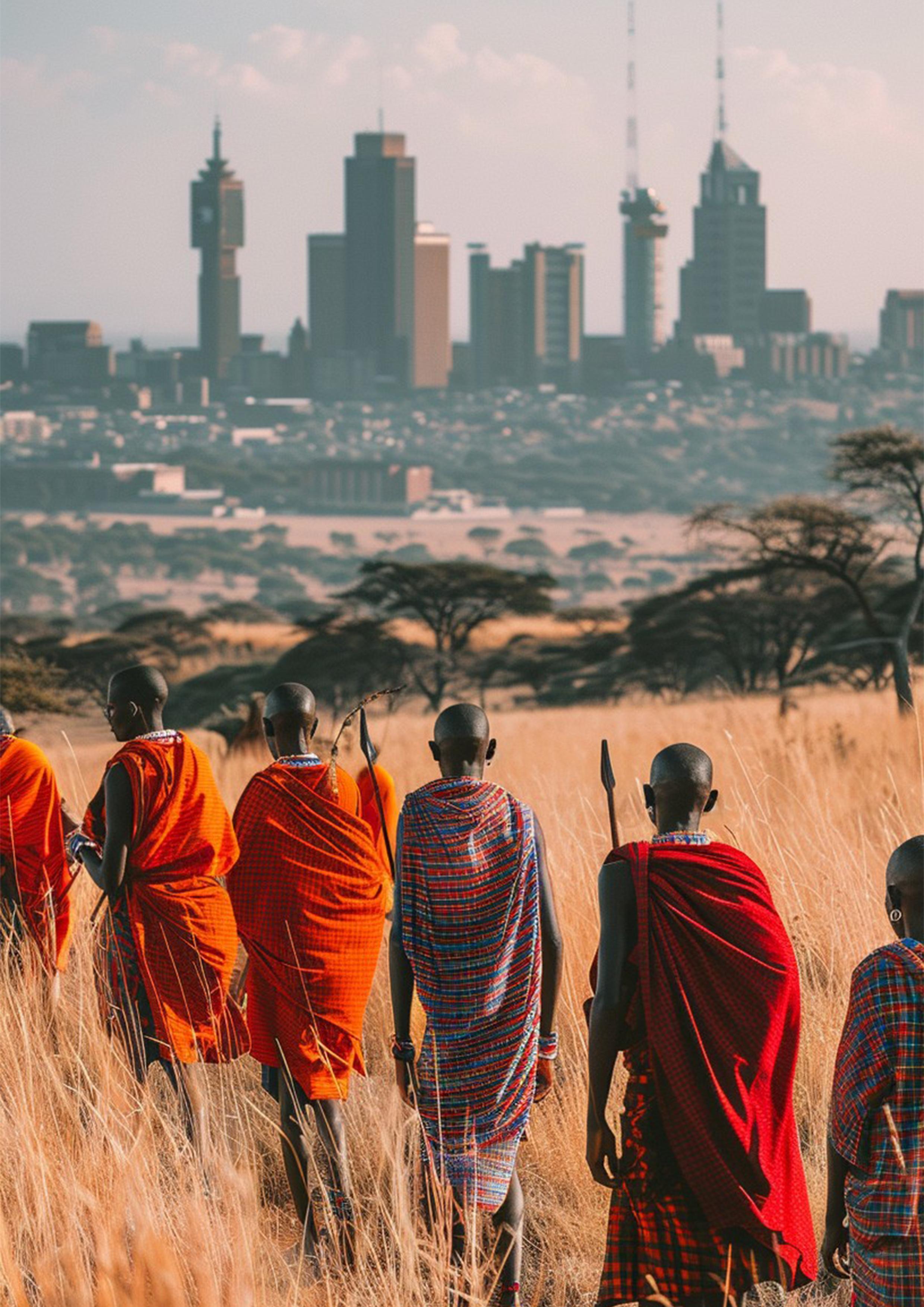

Job Weku, Business Development Manager for Africa at FAZI Company, takes us inside the dynamic world of iGaming, from the rise of crash games to the growing trend of cloning games, he shares his perspective on industry shifts while reflecting on his personal journey and growth in the gaming space.
Who is Job Weku? Could you tell us more about yourself and your journey in the industry?
I’m an iGaming specialist with ten years of experience, working in diverse sectors from local and international C2Bs to B2B projects. I’ve created successful partnerships over the years, working in various roles where the need to collaborate closely with other people is the norm.
I started my career in business Management, first as a Public Relations Assistant at Ogilvy Uganda while in Law School at Makerere University in Uganda and made up my mind about to delve much into business Management related roles but Litigation. That was easily the best decision I ever made. I was able to get a front-row seat to see how truly great products were made, and I was able to learn from some smart executives and creative professionals. So, after my final year in Law School, I jumped straight into it.
My passion for meaningful impact and efficiency in the gaming industry drives my work, and I’m excited about the opportunity to contribute my expertise.
You have now been in the gaming industry for over a decade, what was your overarching vision when you joined the industry and how far along do you feel you are in achieving it?
I have experienced the iGaming industry evolving rapidly, from early online casinos to today’s sophisticated platforms offering live dealer games, mobile gaming, and blockchain integration. The rise in mobile gaming and crypto casinos has been game-changing, allowing operators and providers to reach a wider audience and there is more to come which no one can anticipate, and this has been an achievement, and I look forward to more.
As the Business Development Manager Africa at FAZI Company, how does this role influence your career journey growth?
I was honored and extremely grateful and proud to step into the role as BDM at FAZI. Since I joined the company, I feel the gaming industry has significantly grown for the better, with the ever ending newly developed games by FAZI, encouraging inclusion and diversity on a global scale. I am proud to say that FAZI aspires to celebrate inclusion by breaking boundaries to move the industry forward. The role challenges me in a positive way daily and I am honored to Manage the African market proudly, with support from an amazing team in Serbia.
Job Weku, Meneja wa Maendeleo ya Biashara barani Afrika katika Kampuni ya FAZI, anatupeleka ndani ya ulimwengu unaobadilika wa iGaming, kutoka kwa kuongezeka kwa michezo ya crash hadi mwelekeo unaokua wa michezo ya kuiga, anashiriki mtazamo wake kuhusu mabadiliko ya sekta huku akitafakari kuhusu safari yake ya kibinafsi na ukuaji katika nafasi ya michezo ya kubahatisha.
Job Weku ni nani? Je, unaweza kutuambia zaidi kuhusu wewe mwenyewe na safari yako katika sekta hii?
Mimi ni mtaalamu wa iGaming na uzoefu wa miaka kumi, ninafanya kazi katika sekta mbalimbali kutoka kwa C2B za ndani na kimataifa hadi miradi ya B2B. Nimeunda ushirikiano wenye mafanikio kwa miaka mingi, nikifanya kazi katika majukumu mbalimbali ambapo hitaji la kushirikiana kwa karibu na watu wengine ni jambo la kawaida.
Nilianza taaluma yangu katika Usimamizi wa Biashara, kwanza kama Msaidizi wa Mahusiano ya Umma katika Ogilvy Uganda nikiwa katika Shule ya Sheria katika Chuo Kikuu cha Makerere nchini Uganda na niliamua kutafakari sana majukumu yanayohusiana na Usimamizi wa Biashara lakini madai. Huo ulikuwa uamuzi bora zaidi ambao nimewahi kufanya. Niliweza kupata kiti cha mstari wa mbele ili kuona jinsi bidhaa bora zilivyotengenezwa, na niliweza kujifunza kutoka kwa baadhi ya watendaji mahiri na wataalamu wabunifu. Kwa hivyo, baada ya mwaka wangu wa mwisho katika Shule ya Sheria, nilirukia moja kwa moja.
Shauku yangu ya matokeo ya maana na ufanisi katika sekta ya michezo ya kubahatisha huendesha kazi yangu, na ninafurahia fursa ya kuchangia ujuzi wangu.
Umekuwa kwenye tasnia ya michezo ya kubahatisha kwa zaidi ya muongo mmoja sasa, maono yako makuu yalikuwa yapi ulipojiunga na tasnia hii na unahisi unaifanikisha kwa umbali gani?
Nimepitia tasnia ya iGaming ikibadilika kwa kasi, kutoka kasino za mapema mtandaoni hadi mifumo ya kisasa inayotoa michezo ya wauzaji wa moja kwa moja, michezo ya kubahatisha ya simu na muunganisho wa blockchain. Ongezeko la michezo ya kubahatisha ya simu na kasino za crypto zimeeleta mabadiliko makubwa, hivyo kuruhusu waendeshaji na watoa huduma kufikia hadhira pana na kuna mengi yanakuja ambayo hakuna mtu anayeweza kutarajia, na haya yamekuwa mafanikio, na ninatazamia zaidi.
Kama Msimamizi wa Maendeleo ya Biashara Afrika katika Kampuni ya FAZI, jukumu hili linaathiri vipi ukuaji wa safari yako ya kazi?
Nilihisi heshima kubwa na kushukuru sana na kujivunia kuingia katika jukumu kama BDM katika FAZI. Tangu nilipojiunga na kampuni hii, ninahisi tasnia ya michezo ya kubahatisha imekua kwa kiwango kikubwa na kuwa bora zaidi, kwa michezo mipya inayozidi kubuniwa na FAZI kila wakati, ikihimiza ujumuishaji na utofauti katika kiwango cha kimataifa. Ninajivunia kusema kuwa FAZI inatamani kusherehekea kujumuishwa kwa kuvunja mipaka ili kuendeleza tasnia hiyo. Jukumu hili linanipa changamoto kwa njia chanya kila siku na nina heshima ya Kusimamia soko la Afrika kwa kujivunia, kwa usaidizi kutoka kwa timu ya ajabu nchini Serbia.
You also doubled up as the CEO of iGaming Consult Africa, tell us more about this brand and how it is supporting businesses across Africa.
At iGaming Consult Africa, we navigate partners through the complex licensing process in Africa, ensuring that your business is compliant with all necessary regulations and ready to operate in the African iGaming landscape. Whether you are interested in market research and intelligence, commercial advice, licensing, market entry, start-up services or other advisory services, the dedicated iGaming Consult Africa team will help in this massively growing industry in several ways.
Congratulations on your recent recognition as one of the top 50 men in Gaming industry, how did you receive this news and what does it mean for you?
Thank you so much for the kind words! It’s a great experience working in the gaming industry, and I really appreciate all the support and guidance throughout my career having gone through the best and working with the best. I am looking forward to enhancing my contribution to the industry and working together with all suitable partners. I’ll ensure to carry this momentum forward.
I received a congratulatory text from a friend in South Africa followed by 5 more texts from friends in the industry, only for me to check my Linkedin page full of notifications from the announcement. A pleasure to say the least.
In your opinion are there opportunities for young graduates in Africa in the gaming industry?
Yes. In this blooming global context, Africa is no longer a silent observer. It is emerging as an unexpected yet formidable frontier; a key driver of this growth being the proliferation of smartphones across the continent which has brought with it new and exciting employment opportunities.
As graduates from different fields of study look for employment opportunities, they should consider the gambling industry. There are numerous betting companies emerging every day, providing graduates with viable job opportunities. If you are a university graduate in search of a job, check out jobs like Graphic Design, Audit Investigator, Public Relations Specialist, Technology Auditor, Customer Service etc. that could be fascinating.
Furthermore, mobile gaming presents one of the most accessible entry points for African youth. Developing platforms like Android and iOS require fewer resources than traditional console or PC games, making it an ideal starting point for aspiring game developers. This lower barrier to entry allows youth to participate in the growing gaming ecosystem without needing extensive infrastructure.
Pia ulichukua jukumu la Mkurugenzi Mkuu wa iGaming Consult Africa, tuambie zaidi kuhusu chapa hii na jinsi inavyosaidia biashara kote Afrika.
Katika iGaming Consult Africa, tunasogeza washirika kupitia mchakato changamano wa utoaji leseni barani Afrika, na kuhakikisha kuwa biashara yako inatii kanuni zote zinazohitajika na iko tayari kufanya kazi katika mazingira ya Kiafrika ya iGaming. Iwe una nia ya utafiti wa soko na akili, ushauri wa kibiashara, utoaji leseni, kuingia sokoni, huduma za kuanzisha biashara au huduma zingine za ushauri, timu iliyojitolea ya iGaming Consult Africa itasaidia katika sekta hii inayokua kwa kiasi kikubwa kwa njia kadhaa.
Hongera kwa kutambuliwa hivi majuzi kama mmoja wa wanaume 50 bora katika tasnia ya Michezo ya Kubahatisha, ulipokeaje habari hizi na zina maana gani kwako?
Asante sana kwa maneno mazuri! Ni uzoefu mzuri sana kufanya kazi katika tasnia ya michezo ya kubahatisha, na ninathamini sana usaidizi na mwongozo katika kazi yangu yote baada ya kupitia bora na kufanya kazi na walio bora zaidi. Ninatazamia kuboresha mchango wangu kwa tasnia na kufanya kazi pamoja na washirika wote wanaofaa. Nitahakikisha kuendeleza msukumo huu mbele.
Nilipokea ujumbe wa pongezi kutoka kwa rafiki nchini Afrika Kusini na kufuatiwa na maandishi 5 zaidi kutoka kwa marafiki kwenye tasnia, ili tu niangalie ukurasa wangu wa Linkedin uliojaa arifa kutoka kwa tangazo hilo. Furaha kusema kidogo.
Kwa maoni yako, je, kuna fursa kwa vijana waliohitimu barani Afrika katikatasniaya michezo ya kubahatisha?
Ndiyo. Katika muktadha huu wa kimataifa unaochanua, Afrika sio tena mtazamaji wa kimya. Inajitokeza kama mpaka usiotarajiwa lakini wa kutisha; kichocheo kikuu cha ukuaji huu ni kuenea kwa simu mahiri katika bara zima ambalo limeleta fursa mpya na za kusisimua za ajira.
Wahitimu kutoka nyanja tofauti za masomo wanapotafuta fursa za ajira, wanapaswa kuzingatia tasnia ya kamari. Kuna kampuni nyingi za kamari zinazoibuka kila siku, zikiwapa wahitimu nafasi nzuri za kazi. Ikiwa wewe ni mhitimu wa chuo kikuu unaotafuta kazi, angalia kazi kama vile Ubunifu wa Picha, Mkaguzi wa Ukaguzi, Mtaalamu wa Mahusiano ya Umma, Mkaguzi wa Teknolojia, Huduma kwa Wateja n.k. ambazo zinaweza kuvutia.
Zaidi ya hayo, michezo ya kubahatisha kwa simu inawasilisha mojawapo ya sehemu zinazoweza kufikiwa kwa vijana wa Kiafrika. Kutengeneza majukwaa kama vile Android na iOS kunahitaji rasilimali chache kuliko kifaacha michezo ya video ya jadi au michezo ya Kompyuta, na kuifanya iwe mahali pazuri pa kuanzia kwa wanaotarajia kua wasanidi wa mchezo. Kizuizi hiki cha chini cha kuingia huruhusu vijana kushiriki katika mfumo unaokua wa michezo ya kubahatisha bila kuhitaji miundombinu ya kina.


Mobile gaming presents one of the most accessible entry points for African youth.
Cloning games is now rampant within the gaming industry, in your opinion why is this happening and how can it be avoided?
Relatively uncomplicated games are the most cloned, but sometimes more complex games are also attacked by clones. The developers of imitative games perceive creating a clone as a relatively safe and low risk investment. They target originals which are popular, with the hope that a very similar game will also become popular so they can earn money. The spread of this phenomenon is fostered by the frequent cloning of games created by indie developers, who usually do not have significant financial resources to pursue their rights and claims in court which allows cloners to operate with a sense of impunity.
How can this be avoided? Unfortunately, the answer is not obvious. Protection against cloning is usually sought under copyright law, which does not require any application or registration but is enjoyed by the operation of law. However, doubts may arise as to what elements of the game are subject to copyright protection, and to what extent. So, if the creator of a clone uses the idea of a popular game, but uses different graphics and music, and changes some of its elements, it will most likely be regarded as merely “inspired” by the original work. If the creator took the idea for the game and certain scenes from the original, and added other original elements, such a game should be classified as a derivative work or a work with borrowings.
Due to difficulties in obtaining effective protection against cloning under copyright law and Protection based on the Unfair Competition, the industry has come up with the idea of protecting elements of a game by registering it as an industrial design which acts as a deterrent to potential infringers and infringement of trade dress, because it shows that the owner of the game is aware of its rights and will enforce them in the event of a dispute.
When deciding to register designs, Developers should consider multiple countries where their design is most likely to be copied, or in which markets a given type of game is most popular.
Which are some of the upcoming gaming markets that investors should consider investing in and why are they right for investment?
I will vouch for Africa as a market rich in various factors fueling this rapid growth and critical considerations for anyone looking to invest in.
Africa has embraced the digital age with astonishing speed, driven largely by the rise of mobile technology firmly established as the preferred platform for betting with than 580 million mobile users in Sub-Saharan Africa, expected to grow significantly over the next decade. Propelled by the continent’s youthful demographic of 70% of sub-Saharan Africa under the age of 30, expanding internet and smartphone access, and widespread enthusiasm for sports, particularly football.
Michezo ya kuiga sasa imeenea katika tasnia ya michezo ya kubahatisha, kwa maoni yako kwa nini hii inafanyika na inaweza kuepukwaje?
Michezo ambayo sio changamano ndiyo iliyotungwa zaidi, lakini wakati mwingine michezo changamano zaidi pia hushambuliwa na nakala. Wasanidi wa michezo ya kuiga wanaona kuunda nakala kama uwekezaji salama na wa hatari kidogo. Wanalenga asili ambazo ni maarufu, kwa matumaini kwamba mchezo unaofanana sana pia utakuwa maarufu ili waweze kupata pesa. Kuenea kwa jambo hili kunachochewa na uundaji wa mara kwa mara wa michezo inayoundwa na wasanidi programu wa indie, ambao kwa kawaida hawana rasilimali nyingi za kifedha ili kutekeleza haki na madai yao mahakamani ambayo huwaruhusu wabunifu kufanya kazi bila kuadhibiwa.
Hii inaweza kuepukwaje? Kwa bahati mbaya, jibu si dhahiri. Kinga dhidi ya ujumuishaji hutafutwa chini ya sheria ya hakimiliki, ambayo haihitaji maombi yoyote au usajili lakini inafurahishwa na utendakazi wa sheria. Hata hivyo, mashaka yanaweza kutokea kuhusu ni vipengele vipi vya mchezo viko chini ya ulinzi wa hakimiliki, na kwa kiwango gani. Kwa hivyo, ikiwa muundaji wa nakili anatumia wazo la mchezo maarufu, lakini anatumia michoro na muziki tofauti, na kubadilisha baadhi ya vipengele vyake, uwezekano mkubwa utachukuliwa kuwa "umeongozwa" tu na kazi ya awali. Ikiwa mtayarishaji alichukua wazo la mchezo na matukio fulani kutoka kwa uhalisi, na kuongeza vipengele vingine vya asili, mchezo kama huo unapaswa kuainishwa kama kazi inayotokana au kazi ya kukopa.
Kwa sababu ya ugumu wa kupata ulinzi madhubuti dhidi ya uigaji chini ya sheria ya hakimiliki na Ulinzi kulingana na Shindano Lisilo la Haki, tasnia imekuja na wazo la kulinda vipengele vya mchezo kwa kusajili kama muundo wa viwanda ambao hufanya kama kikwazo kwa wanaoweza kukiuka na ukiukajiwa mavazi ya biashara, kwa sababu inaonyesha kuwa mmiliki wa mchezo anafahamu haki zake na atazitekeleza katika tukio la mzozo.
Wakati wa kuamua kusajili miundo, Wasanidi wanapaswa kuzingatia nchi nyingi ambapo muundo wao una uwezekano mkubwa wa kunakiliwa, au katika masoko ambayo aina fulani ya mchezo ni maarufu zaidi.
Je, ni baadhi yapi ya masoko yajayo ya michezo ya kubahatisha ambayo wawekezaji wanapaswa kuzingatia kuwekeza na kwa nini yanafaa kwa uwekezaji?
Nitaithibitisha Afrika kama soko lenye utajiri wa mambo mbalimbali yanayochochea ukuaji huu wa haraka na mazingatio muhimu kwa yeyote anayetaka kuwekeza.
Afrika imekubali enzi ya kidijitali kwa kasi ya kushangaza, ikichangiwa zaidi na kukua kwa teknolojia ya simu za mkononi iliyoimarishwa kama jukwaa linalopendelewa la kuweka kamari na watumiaji wa simu zaidi ya milioni 580 katika Afrika Kusini mwa Jangwa la Sahara, linalotarajiwa kukua kwa kiasi kikubwa katika muongo ujao. Imechochewa na idadi ya vijana ya bara la 70% ya Afrika Kusini mwa Jangwa la Sahara walio na umri wa chini ya miaka 30, kupanua ufikiaji wa mtandao na simu mahiri, na shauku kubwa ya michezo, haswa kandanda.
Mobile payments, through platforms like Kenya’s M-Pesa, Safaricom, MTN, Airtel etc., have revolutionized the financial landscape in Africa, particularly in rural areas where they lack access to traditional banking services, but mobile payment systems have allowed them to conduct transactions efficiently. For online casinos, this means there is already a trusted, widely used system in place to handle deposits and withdrawals.
The opportunity is clear: Africa’s mobile money ecosystem provides a ready-made solution to one of the biggest barriers for online gambling.
Crash games have taken the industry by a storm, how can they continue dominating the market at the time when there has been a public outcry about the safety of punters who play crash games?
The continuance of the game’s simplicity and excitement will make it a hit among players, who enjoy the rush of adrenaline that comes with the possibility of winning big. Improved bonus models and promotions will also attract players and lead to increased competition among casinos, which ultimately will benefit players by providing them with more options and better deals.
On the public outcry… players are cognizant to the fact that gambling is a complex and fascinating world where psychology plays a vital role. Unfortunately, the same players often overlook this aspect and go into the game without considering the risks. In Crash Gambling, the thrill of seeing the multiplier going up can be addictive, making it easy to become greedy and forget that the game could “crash” at any moment, resulting in a loss.
It’s essential for stakeholders to educate the player on how to approach the game with caution and practice responsible gambling habits to avoid the risks of addiction and significant financial losses, by understanding the advantages and disadvantages of playing a crash game and making the wise choices on reputable online casinos.
Following tips for responsible gambling, players can enjoy this game safely and responsibly and it’s crucial to remember that there are no guarantees of winning and that playing should be done for entertainment purposes only.
We have noted that you have worked for renowned brands such as Betika at a time when they were joining the market for the first time, some of these brands are now the leading in their local gaming market, what do you think inspired their massive growth in the markets they operate in?
Betika mastered the art through market research, building a strong brand through strategic partnerships with local football clubs and sponsorship of major sporting events successfully building a very strong brand presence across the market.
Malipo ya simu, kupitia majukwaa kama M-Pesa ya Kenya, Safaricom, MTN, Airtel n.k., yameleta mapinduzi makubwa katika hali ya kifedha barani Afrika, hasa katika maeneo ya mashambani ambako wanakosa huduma za kibenki za kitamaduni, lakini mifumo ya malipo ya simu imewaruhusu kufanya miamala kwa ufanisi. Kwa kasino za mtandaoni, hii inamaanisha kuwa tayari kuna mfumo unaoaminika, unaotumika sana kushughulikia amana na uondoaji.
Fursa iko wazi: Mfumo wa kiikolojia wa pesa za simu barani Afrika unatoa suluhisho lililo tayari kwa mojawapo ya vizuizi vikubwa vya kucheza kamari mtandaoni.
Michezo ya crash imechukua tasnia kwa dhoruba, inawezaje kuendelea kutawala soko wakati ambapo kumekuwa na kilio cha umma juu ya usalama wa wabashiri wanaocheza michezo ya crash?
Kuendelea kwa urahisi na msisimko wa mchezo kutaifanya kuwa maarufu miongoni mwa wachezaji, wanaofurahia msisimko wa adrenalini inayokuja na uwezekano wa kushinda kwa kiasi kikubwa. Miundo ya bonasi na ofa zilizoboreshwa pia zitavutia wachezaji na kusababisha ushindani mkubwa kati ya kasino, ambao hatimaye utawafaidi wachezaji kwa kuwapa chaguo zaidi na ofa bora zaidi.
Kwa malalamiko ya umma… wachezaji wanafahamu ukweli kwamba kamari ni ulimwengu mgumu na wa kuvutia ambapo saikolojia ina jukumu muhimu. Kwa bahati mbaya, wachezaji hao hao mara nyingi hupuuza kipengele hiki na kwenda kwenye mchezo bila kuzingatia hatari. Katika kamari ya crash, msisimko wa kuona kizidishi kikipanda juu kinaweza kuzidisha, na kuifanya iwe rahisi kuwa na pupa na kusahau kuwa mchezo unaweza "kuanguka" wakati wowote, na kusababisha hasara.
Ni muhimu kwa washikadau kuelimisha mchezaji kuhusu jinsi ya kuukabili mchezo kwa tahadhari na kujizoeza tabia za uwajibikaji za kamari ili kuepuka hatari za uraibu na hasara kubwa za kifedha, kwa kuelewa faida na hasara za kucheza mchezo wa crash na kufanya maamuzi ya busara kwenye kasino zinazotambulika mtandaoni.
Kwa kufuata vidokezo vya kucheza kamari kuwajibika, wachezaji wanaweza kufurahia mchezo huu kwa usalama na kwa kuwajibika na ni muhimu kukumbuka kuwa hakuna hakikisho la kushinda na kwamba kucheza kunapaswa kufanywa kwa madhumuni ya burudani pekee.
Tumebaini kuwa umefanya kazi kwa chapa mashuhuri kama vile Betika wakati walipokuwa wakijiunga na soko kwa mara ya kwanza, baadhi ya chapa hizi sasa ndizo zinazoongoza katika soko lao la michezo ya kubahatisha, unafikiri ni nini kilichochea ukuaji wao mkubwa katika masoko wanayofanyia kazi?
Betika ulimudu sanaa kupitia utafiti wa soko, kujenga chapa dhabiti kupitia ushirikiano wa kimkakati na vilabu vya soka vya nchini na ufadhili wa matukio makubwa ya michezo kujenga kwa mafanikio uwepo wa chapa yenye nguvu sana katika soko.
The Directors had a strong passion in technology which brought out the urge to explore challenges and it led to the firm, which was very tiny then, investing in robust technology by creation of a user-friendly website and a mobile app that catered to the specific needs of an African user seamlessly, gaining a substantial market share over time.
They offer diverse betting options with a comprehensive range of betting options like virtual sports, multiple casino games, and live betting etc. from carefully selected providers, continuously expanding and updating their betting options, catered to evolving customer preferences and capitalize on the projected growth in the African online gambling market.
We prioritized mobile betting, engaging customers effectively, and providing exceptional customer support and positioned the company for success in the dynamic African gambling market. Implementing these strategies helped capitalize on the emerging opportunities and established a profitable presence in the African market.
What would be your advice to gaming brands that are struggling to penetrate the market in Africa?
To thrive in this African diverse environment, Brands and platforms need to adopt several localization strategies, from multilingual support in multiple African languages, mobile and SMS channels to cultural sensitivity where they need to understand and respect local customs and traditions to package their promotions that resonate with players.
Failure to tailor content that adapts or aligns with local preferences can be punitive to a brand. They must feature popular sports, local teams, or culturally relevant themes and games.
They must provide diverse payment methods that cater to specific markets’ preferences and regulations. Mobile money and digital wallets are popular choices in this market.
Local partnerships are key. They must collaborate with local businesses, influencers, or sports teams to enhance a brand’s credibility and visibility.
Navigating the complex regulatory landscape in Africa requires a deep understanding of each market’s laws. Gaming companies must stay compliant to operate successfully.
Wakurugenzi walikuwa na shauku kubwa katika teknolojia ambayo ilileta hamu ya kuchunguza changamoto na ilipelekea kampuni hiyo, ambayo ilikuwa ndogo sana wakati huo, kuwekeza katika teknolojia thabiti kwa kuunda tovuti ambayo ni rafiki kwa watumiaji na programu ya simu ambayo ilikidhi mahitaji maalum ya mtumiaji wa Kiafrika bila mshono, kupata sehemu kubwa ya soko kwa muda.
Wanatoa chaguo mbalimbali za kamari zilizo na anuwai ya chaguzi za kamari kama vile michezo ya mtandaoni, michezo mingi ya kasino, na kamari ya moja kwa moja n.k. kutoka kwa watoa huduma waliochaguliwa kwa uangalifu, wakiendelea kupanua na kusasisha chaguo zao za kamari, zinazokidhi matakwa ya wateja yanayobadilika na kufaidika na ukuaji unaotarajiwa katika soko la kamari la mtandaoni la Afrika.
Tulitanguliza kamari kwa simu ya rununu, kuwashirikisha wateja kwa njia ifaayo, na kutoa usaidizi wa kipekee kwa wateja na kuweka kampuni katika nafasi nzuri katika soko linalobadilika la kamari la Kiafrika. Utekelezaji wa mikakati hii ulisaidia kutumia fursa zinazojitokeza na kuanzisha uwepo wa faida katika soko la Afrika.
Unaweza kuwa na ushauri gani kwa chapa za michezo ya kubahatisha ambazo zinatatizika kupenya soko barani Afrika?
Ili kustawi katika mazingira haya mbalimbali ya Kiafrika, Chapa na majukwaa yanahitaji kupitisha mikakati kadhaa ya ujanibishaji, kutoka kwa usaidizi wa lugha nyingi katika lugha nyingi za Kiafrika, njia za rununu na SMS hadi usikivu wa kitamaduni ambapo wanahitaji kuelewa na kuheshimu mila na desturi za wenyeji ili kufunga matangazo yao ambayo yanahusiana na wachezaji.
Kukosa kurekebisha maudhui ambayo hubadilika au kupatana na mapendeleo ya eneo lako kunaweza kuwa adhabu kwa chapa. Lazima ziangazie michezo maarufu, timu za ndani, au mandhari na michezo inayohusiana na utamaduni.
Ni lazima watoe mbinu mbalimbali za malipo zinazokidhi matakwa na kanuni mahususi za soko. Pesa za rununu na pochi za dijiti ni chaguo maarufu katika soko hili.
Ushirikiano wa ndani ni muhimu. Ni lazima washirikiane na biashara za ndani, washawishi, au timu za michezo ili kuimarisha uaminifu na mwonekano wa chapa.
Kupitia mazingira changamano ya udhibiti barani Afrika kunahitaji uelewa wa kina wa sheria za kila soko. Kampuni za michezo ya kubahatisha lazima zitii sheria ili zifanye kazi kwa mafanikio.
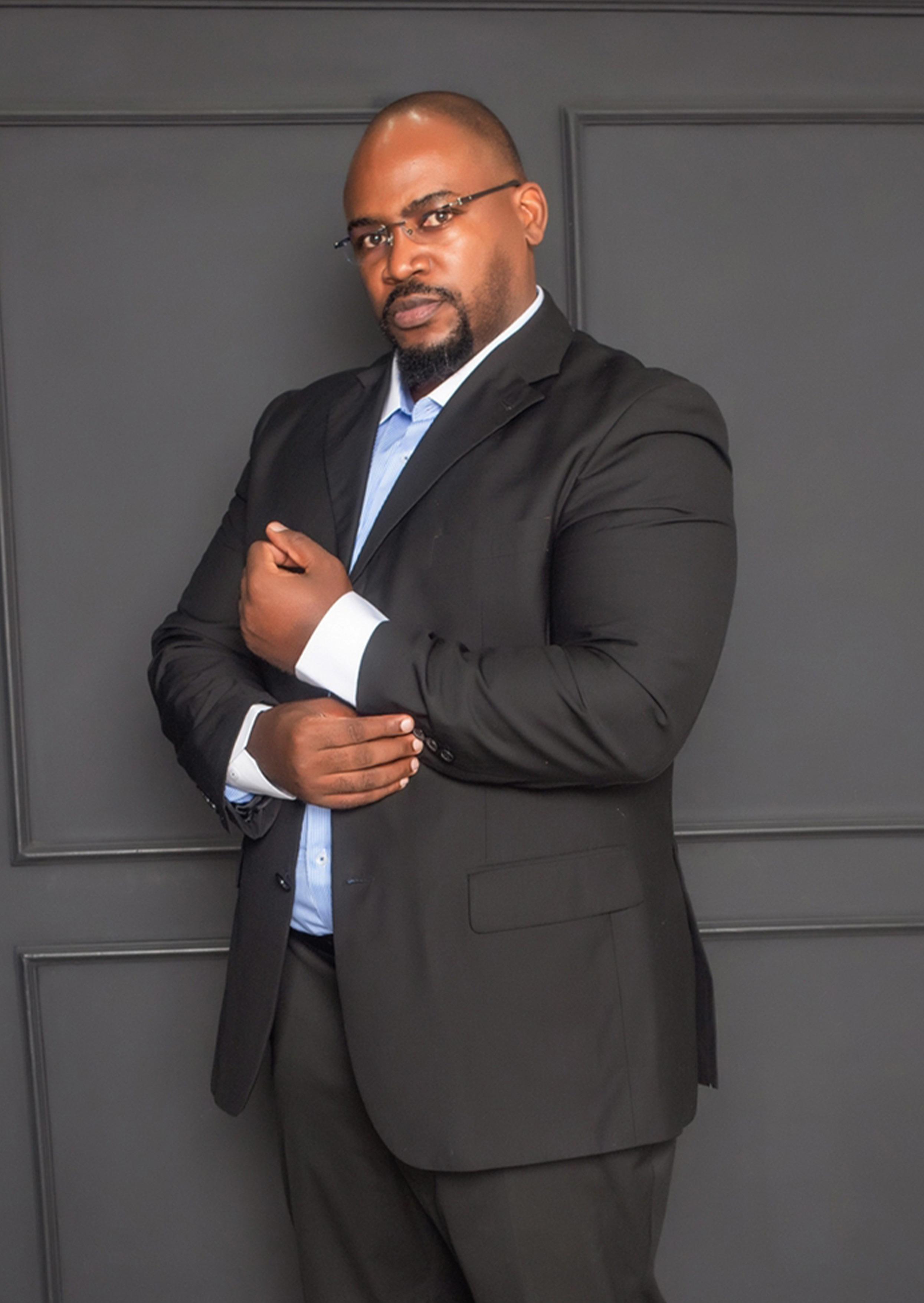
Business Development Manager Africa FAZI Compnay
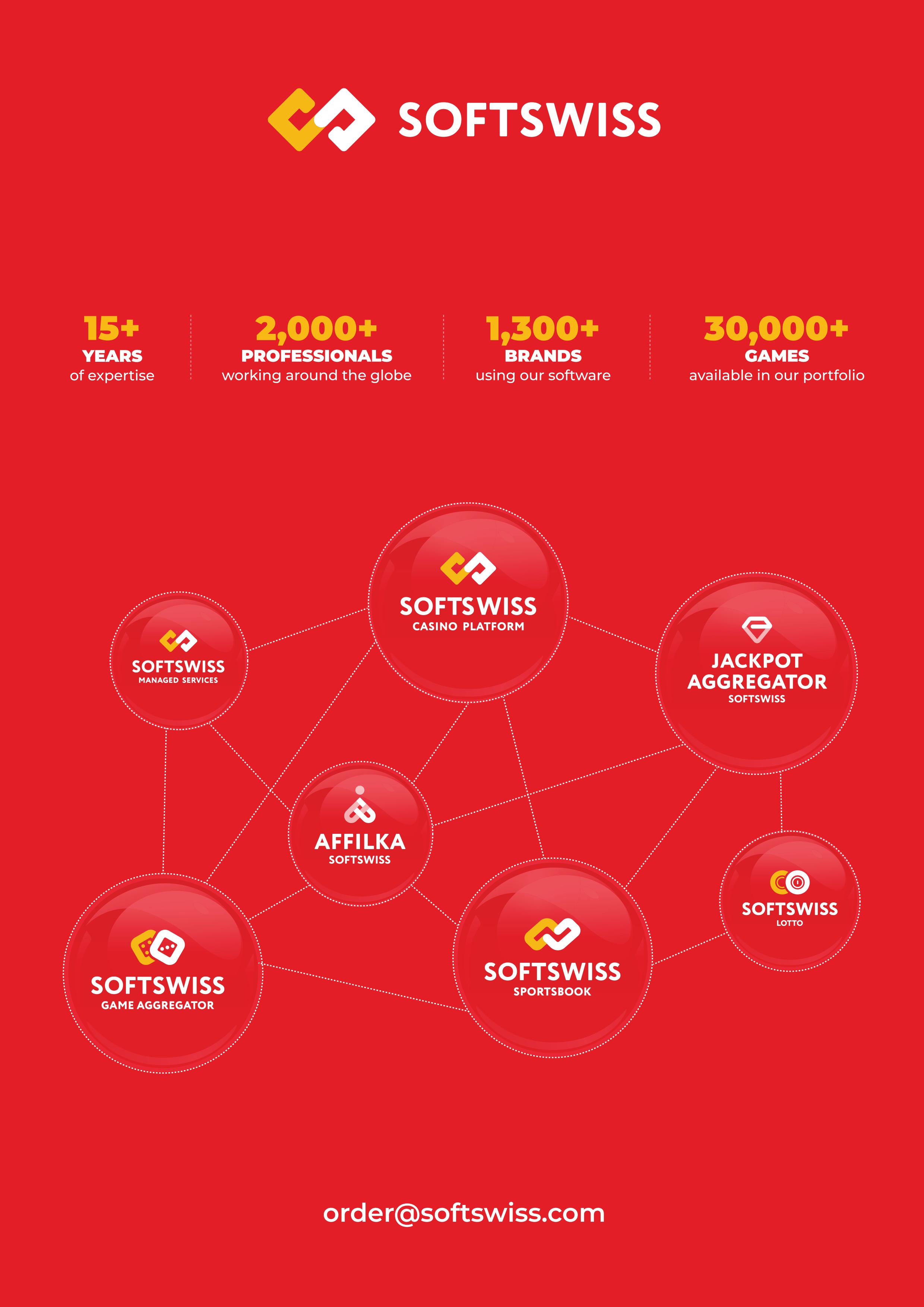
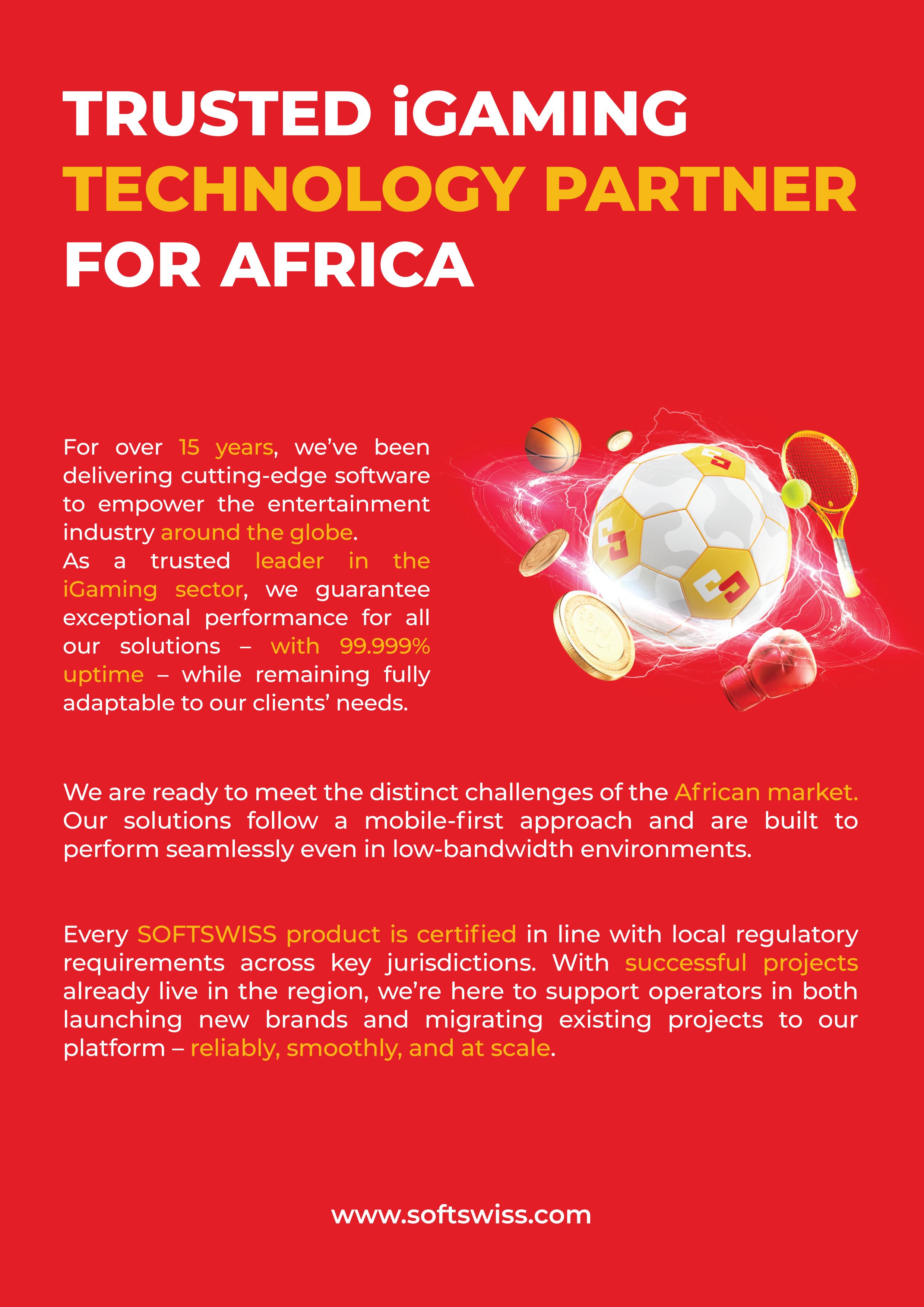

Charles Ekundayo
Chief Executive Officer of Africa Gaming Expo Limited, organisers of Africa Gaming Expo (AGE)

Africa’s gaming and fintech industries are evolving at an unprecedented pace, and at the heart of this transformation is the Africa Gaming Expo (AGE). In this conversation, Charles Ekundayo, CEO of Africa Gaming Expo Limited, shares the vision, challenges, and opportunities driving AGE’s mission to unite industry stakeholders, foster innovation, and create a truly Pan-African platform that will shape the future of gaming on the continent.
Could you tell us a little bit about yourself and your journey so far?
My name is Charles Ekundayo, Chief Executive Officer of Africa Gaming Expo Limited, organisers of Africa Gaming Expo (AGE). My background is in Operations Research and Systems Management. I have worked across diverse disciplines and multiple sectors. I deploy energy to deepen growth and add long-term value to sectors where I have worked. I believe in building platforms that solve real market needs, attract the right practitioners, and generate measurable outcomes. AGE is positioned to do exactly that for the Gaming and Fintech industry in Africa by creating a continental business ecosystem that allows for collaboration and togetherness amongst industry stakeholders. Above all, I am your regular, everyday person who prefers a simple, uncomplicated life.
Sekta za michezo na fintech za Afrika inaendelea kubadilika kwa kasi isiyo ya kawaida, na katika moyo wa mabadiliko haya ni Maonyesho ya Michezo ya Afrika (AGE). Katika mazungumzo haya, Charles Ekundayo, Mkurugenzi Mtendaji wa Africa Gaming Expo Limited, anashiriki maono, changamoto, na fursa zinazochochea dhamira ya AGE ya kuunganisha wadau wa sekta, kukuza uvumbuzi, na kuunda jukwaa la kweli la Pan-Afrika ambalo litatengeneza mustakabali wa michezo kwenye bara.
Je, unaweza kutuambia kidogo kuhusu wewe na safari yako hadi sasa?
Jina langu ni Charles Ekundayo, Mkurugenzi Mtendaji wa Africa Gaming Expo Limited, waandaaji wa Maonyesho ya Michezo ya Afrika (AGE). Msingi wangu uko katika Utafiti wa Uendeshaji na Usimamizi wa Mifumo. Nimefanya kazi katika nyanja mbalimbali na sekta nyingi. Ninatumia nguvu yangu kuimarisha ukuaji na kuongeza thamani ya muda mrefu katika sekta nilizofanya kazi. Ninaamini katika kujenga majukwaa yanayoshughulikia mahitaji halisi ya soko, kuvutia wataalamu sahihi, na kutoa matokeo yanayoweza kupimika.
AGE imejipanga kufanya hivyo hasa kwa sekta ya Michezo na Fintech barani Afrika kwa kuunda mfumo wa biashara wa bara unaoruhusu ushirikiano na umoja kati ya wadau wa sekta. Zaidi ya yote, mimi ni mtu wa kawaida, wa kila siku ambaye anapendelea maisha rahisi, yasiyo na matatizo.
What led you to the gaming industry, and what is it about this field that truly excites and motivates you?
I got drawn into the gaming industry based on the identified inherent potential and opportunities. The Gaming industry is no doubt a fast-growing sector with huge possibilities. It is exactly the type of environment where smart investors and strategic thinkers should be operating. What excites me most is the technological innovation opportunities that it engenders, think about the effect on the IT sector and game developers, payment systems, etc. The scale of the industry is another reason. Ultimately, the chance to build something that will not only drive revenue but also shape the future of digital entertainment and Fintech on the continent is also a big motivation.
The name "AGE Lagos" is quite distinctive. What's the story behind the brand name?
We were intentional about creating a Pan-African brand that truly represents Africa. "AGE" is an acronym for Africa Gaming Expo, reflecting its true status as the premier Gaming and Fintech Expo in Africa, thereby fulfilling its mission of uniting the global gaming stakeholders on the continent. "Lagos" on the other hand, is simply the name of the host city, so considering the Pan-African nature of AGE, it is designed to be hosted in various cities across Africa, so conversations about hosting AGE in different African cities going forward are ongoing.
AGE Nairobi, AGE Kigali, AGE Dakar or AGE Johannesburg could be possibilities when hosted in those cities. AGE is African; it belongs to Africa; it is put together by Africans and delivered on the continent. It is time we tell the African stories ourselves; no one can tell them better than we can.
Nini kilikufikisha katika sekta ya michezo, na ni nini kuhusu uwanja huu kinachokufurahisha na kukutia motisha?
Nilivutwa katika sekta ya michezo kutokana na uwezo na fursa zilizobainishwa. Sekta ya michezo bila shaka ni sekta inayokua kwa kasi yenye uwezekano mkubwa. Ni aina ya mazingira ambapo wawekezaji wenye akili na wafikiri wa kimkakati wanapaswa kufanya kazi. Kinachonifurahisha zaidi ni fursa za uvumbuzi wa kiteknolojia zinazozalishwa, fikiria kuhusu athari kwenye sekta ya IT na watengenezaji wa michezo, mifumo ya malipo, n.k. Kiwango cha sekta hiyo ni sababu nyingine. Hatimaye, nafasi ya kujenga kitu ambacho hakitakuwa tu kinachochochea mapato bali pia kitatengeneza mustakabali wa burudani ya kidijitali na Fintech barani ni motisha kubwa pia.
Jina "AGE Lagos" ni la kipekee. Ni hadithi gani nyuma ya jina la chapa?
Tulikuwa na nia ya kuunda chapa ya Pan-Afrika ambayo kwa kweli inawakilisha Afrika. "AGE" ni kifupi cha Maonyesho ya Michezo ya Afrika, kikionyesha hadhi yake halisi kama Maonyesho ya Kwanza ya Michezo na Fintech barani Afrika, hivyo kutimiza dhamira yake ya kuunganisha wadau wa michezo wa kimataifa kwenye bara. "Lagos" kwa upande mwingine, ni jina tu la jiji linalohudumia, hivyo kuzingatia asili ya Pan-Afrika ya AGE, imeundwa kuandaliwa katika miji mbalimbali barani Afrika, hivyo mazungumzo kuhusu kuandaa AGE katika miji tofauti ya Kiafrika ziendelea. AGE Nairobi, AGE Kigali, AGE Dakar au AGE Johannesburg zinaweza kuwa uwezekano wakati ikihudumiwa katika miji hiyo. AGE ni ya Kiafrika; inamilikiwa na Afrika; imeandaliwa na Waafrika na inatekelezwa kwenye bara. Ni wakati wa kuzungumza hadithi za Kiafrika sisi wenyewe; hakuna anayeweza kuziambia bora zaidi kuliko sisi.
It is my candid belief that it is only through collaborations and partnerships, not competition, that we will be able to create and sustain the gaming industry that Africa desires, hence the need for synergy amongst all stakeholders to come together and pull in one direction.
Congratulations on hosting two successful AGE events! What was the initial spark that inspired you to bring AGE to life?
Thank you so much. The inspiration behind AGE was to create a Pan-African community, platform or space, so to speak, where global Gaming and Fintech industry leaders, operators, regulators, investors, innovators, test labs, generally, global industry stakeholders could converge to discuss, share knowledge, engage in peer reviews across jurisdictions, cross fertilise ideas, display their inventions, engage in conversations that will shape and further deepen the Gaming and Fintech industry in Africa. It is important to point out that AGE is Africa-centric in concept, with the participation and cooperation of global Gaming stakeholders and leaders. Recognising the lack of such a forum, AGE was born to facilitate meaningful dialogue, showcase technological advancements and innovations, and promote industry’s best practices.
When you first envisioned AGE, did you anticipate the level of success and impact it has achieved?
While we were confident at the onset of the value that AGE would deliver, we are humbled by its overwhelming acceptance and the impact it has had. We appreciate everyone who has been part of this fantastic African success story so far, especially our sponsors and all the regulators who have supported us on this journey. Most importantly, the credit for the success goes to the incredible and tireless AGE team members that I have been privileged to work with. For instance, the 2025 edition attracted 7,000+ attendees over 3 days, 132+ global exhibitors, and 90+ Regulators/Speakers. This underscores the significance of the Expo on the industry, and the success so far validates our vision. It motivates us to continue to expand our reach and impact, but the logistical toll on our team is better imagined than experienced.
Looking ahead, what is the long-term vision and goal for AGE?
Our long-term goal is to sustain the establishment of AGE as the leading Gaming and Fintech convention on the African continent, a community that sets the bar high on quality and creativity. In addition, AGE is envisioned to aid the development of continental relationships and push policy advocacy that supports the industry's sustainable growth.
We've noticed your strong collaboration with regulatory bodies like the Lagos State Lotteries and Gaming Authority and others across Africa. Why is this partnership so crucial for the industry?
The partnership is extremely crucial for the industry because Regulators are the industry leaders; other stakeholders and practitioners look to them for direction. A thriving gaming industry cannot exist without a solid, transparent, and well-enforced regulatory framework. It is my candid belief that it is only through collaborations and partnerships, not competition, that we will be able to create and sustain the gaming industry that Africa desires, hence the need for synergy amongst all stakeholders to come together and pull in one direction. African Gaming stakeholders owe this to the industry, as no one else will do this for us. The bigger the market, the more valuable it becomes and the better for all practitioners. So yes, Regulatory collaboration is critical. These partnerships ensure that all stakeholders operate under established regulations, that consumers are protected, and that innovation can flourish responsibly. We are proud to work together with regulators to help shape policies that are forward-thinking and industry-friendly.
Hongera kwa kuandaa matukio mawili ya mafanikio ya AGE! Nini kilichokuwa motisha ya awali iliyokufanya ulete AGE kwenye maisha?
Asante sana. Motisha nyuma ya AGE ilikuwa kuunda jamii ya Pan-Afrika, jukwaa au nafasi, kwa kusema, ambapo viongozi wa sekta ya Michezo na Fintech wa kimataifa, waendeshaji, waangalizi, wawekezaji, wabunifu, maabara ya majaribio, kwa ujumla, wadau wa sekta ya kimataifa wangeweza kukusanyika kujadili, kushiriki maarifa, kuhusika katika mapitio ya wenzao kati ya mamlaka, kubadilishana mawazo, kuonyesha uvumbuzi wao, kuhusika katika mazungumzo ambayo yatatengeneza na kuimarisha zaidi sekta ya Michezo na Fintech barani Afrika. Ni muhimu kuonyesha kuwa AGE ina mtazamo wa Afrika katika dhana, ikiwa na ushiriki na ushirikiano wa wadau na viongozi wa michezo wa kimataifa. Kutambua ukosefu wa jukwaa kama hilo, AGE ilizaliwa ili kuwezesha mazungumzo yenye maana, kuonyesha maendeleo ya kiteknolojia na uvumbuzi, na kukuza mbinu bora za sekta.
Wakati ulipofikiria kwanza AGE, je, ulitarajia kiwango cha mafanikio na athari ambacho kimepata?
Ingawa tulikuwa na uhakika mwanzoni mwa thamani ambayo AGE ingetoa, tumenyenyekea na kukubalika kwake kwa wingi na athari ambayo imekuwa nayo. Tunawashukuru wote ambao wamekuwa sehemu ya hadithi hii nzuri ya mafanikio ya Kiafrika hadi sasa, hasa wadhamini wetu na wote waangalizi ambao wametuunga mkono katika safari hii. Muhimu zaidi, sifa za mafanikio zinapaswa kwenda kwa wanachama wa timu ya AGE ambao ni wa ajabu na wasiochoka ambao nimekuwa na bahati ya kufanya kazi nao. Kwa mfano, toleo la mwaka 2025 lilivutia washiriki zaidi ya 7,000 katika siku 3, waonyeshaji wa kimataifa zaidi ya 132, na waangalizi/wasemaji zaidi ya 90. Hii inaonyesha umuhimu wa Maonyesho kwenye sekta, na mafanikio hadi sasa yanathibitisha maono yetu. Inatuhamasisha kuendelea kupanua ufikiaji wetu na athari, lakini gharama za kiutawala kwa timu yetu ni bora kufikiria kuliko uzoefu.
Kuangalia mbele, ni nini maono ya muda mrefu na lengo la AGE?
Lengo letu la muda mrefu ni kuendeleza uanzishwaji wa AGE kama mkataba unaoongoza wa Michezo ya Kubahatisha na Fintech katika bara la Afrika, jumuiya ambayo inaweka ukomo wa ubora na ubunifu. Kwa kuongezea, AGE inatazamiwa kusaidia ukuzaji wa uhusiano wa bara na kusukuma utetezi wa sera ambao unasaidia ukuaji endelevu wa tasnia.
Tumeona ushirikiano wako mkubwa na mashirika ya udhibiti kama vile Bahati Nasibu na Mamlaka ya Michezo ya Kubahatisha ya Jimbo la Lagos na mengine kote Afrika. Kwa nini ushirikiano huu ni muhimu sana kwa tasnia?
Ushirikiano ni muhimu sana kwa tasnia kwa sababu Wadhibiti ndio viongozi wa tasnia; wadau wengine na watendaji wanatafuta mwelekeo kwao. Sekta inayostawi ya michezo ya kubahatisha haiwezi kuwepo bila mfumo thabiti, ulio wazi na unaotekelezwa vyema. Ni imani yangu ya dhati kwamba ni kwa ushirikiano na ushirikiano pekee, wala si ushindani, ndipo tutaweza kuunda na kuendeleza tasnia ya michezo ya kubahatisha ambayo Afrika inatamani, hivyo basi haja ya harambee miongoni mwa wadau wote kuja pamoja na kuvuta mwelekeo mmoja. Wadau wa Michezo ya Kubahatisha wa Kiafrika wana deni hili kwa tasnia, kwani hakuna mtu mwingine atakayetufanyia hivi. Kadiri soko linavyokuwa kubwa, ndivyo linavyokuwa na thamani zaidi na bora kwa watendaji wote. Kwa hivyo ndio, ushirikiano wa Udhibiti ni muhimu. Ushirikiano huu unahakikisha kwamba washikadau wote wanafanya kazi chini ya kanuni zilizowekwa, kwamba watumiaji wanalindwa, na kwamba ubunifu unaweza kustawi kwa kuwajibika. Tunajivunia kufanya kazi pamoja na wadhibiti ili kusaidia kuunda sera ambazo ni za kufikiria mbele na zinazofaa sekta.
At the inaugural AGE Lagos 2024, you spoke about promoting the African gaming market, fostering collaboration, and addressing industry challenges. From your perspective, what are some of the most significant hurdles facing the African gaming industry today, and what steps can be taken to overcome them?
As expected in every evolving industry, the African gaming industry has its challenges; proliferation of illegitimate and unlicensed operators should be tackled, regulatory frameworks need to be further dissected and deepened in the overall interest of the industry, taxation-related issues should be addressed such that there are no ambiguities, and infrastructural adequacy should be looked into. To overcome these hurdles, there is a need for harmonisation amongst regulators, investment in technological infrastructure, and initiatives that promote responsible gaming without necessarily stifling innovation. AGE provides a platform to address these issues by facilitating dialogue among stakeholders and advocating for policies that support industry advancement.
The recent AGE event focused on "Transforming Africa's Gaming & Fintech Market with AI." Why was this theme chosen, and why is technology, particularly AI, a critical driver for transformation in the African gaming landscape?
This theme was chosen to highlight the significance of AI in the transformation of the Finance and Gaming market. Enhancing user experiences, streamlining processes, and guaranteeing regulatory compliance are all made possible by AI technologies. More than ever before, businesses are leveraging emerging technologies to disrupt traditional business approaches and models, thereby creating new value propositions. In this age of the Internet of Things, any business or market that is not playing in and around the technological disruption space is romancing extinction, playing catch-up at best and will possibly get disrupted along the way. Focusing on superior user experience rather than mere service provision will distinguish market leaders going forward.
Most importantly, it was important to showcase what I call The African Advantage; the fact that 60%-65% of Africa’s population is under 25 years of age presents enormous opportunity for digital acceptance, penetration and technology adoption. AGE2025 discussed how blockchain, Fintech, and AI are revolutionising the Gaming industry on the continent. The significance of that session was to remind stakeholders of the need to adopt these technologies in promoting a more competitive, efficient, and inclusive African market that satisfies international standards.
What exciting plans do you have in the pipeline to make future AGE events even bigger and better? How confident are you that your team can build upon the success of the 2024 and 2025 events?
Without giving out too much in terms of details for obvious reasons, be assured that continual improvement is an integral part of our DNA at AGE. With all sense of modesty, it has been unanimously acknowledged that AGE2025 was a massive improvement over AGE2024. So, expect a better and bigger AGE2026 in line with the established AGE tradition.
The AGE team is structured to deliver efficiently, and we have the right partnerships and systems in place to support the growth and new ideas. Our focus remains on execution, consistency, and scaling this truly pan-African brand. This approach will allow us to reach more stakeholders, tap into different markets, and sustain the platform’s continental dominance.
For gaming brands considering participating in future AGE Lagos events, what message would you like to share with them?
The message is simple; AGE presents a strategic opportunity for gaming brands seeking meaningful engagement within Africa’s evolving Gaming and Fintech ecosystem. It is a carefully curated platform for forward-thinking brands to connect with policymakers, regulators, and key global industry players.
Katika uzinduzi wa AGE Lagos 2024, ulizungumza kuhusu kukuza soko la michezo ya kubahatisha barani Afrika, kukuza ushirikiano, na kushughulikia changamoto za sekta. Kwa mtazamo wako, ni vipi baadhi ya vikwazo muhimu vinavyokabili sekta ya michezo ya Kiafrika leo, na ni hatua gani zinaweza kuchukuliwa ili kuvishinda?
Kama inavyotarajiwa katika kila tasnia inayoendelea, tasnia ya michezo ya kubahatisha ya Kiafrika ina changamoto zake; kuenea kwa waendeshaji haramu na wasio na leseni kunapaswa kushughulikiwa, mifumo ya udhibiti inahitaji kugawanywa zaidi na kuongezwa kwa kina kwa maslahi ya jumla ya sekta hiyo, masuala yanayohusiana na kodi yanapaswa kushughulikiwa ili kusiwe na utata, na utoshelevu wa miundombinu unapaswa kuzingatiwa. Ili kuondokana na vikwazo hivi, kuna haja ya upatanishi kati ya wadhibiti, uwekezaji katika miundombinu ya kiteknolojia, na mipango ambayo inakuza uchezaji wa kuwajibika bila kukandamiza ubunifu. AGE hutoa jukwaa la kushughulikia masuala haya kwa kuwezesha mazungumzo kati ya washikadau na kutetea sera zinazounga mkono maendeleo ya sekta.
Tukio la hivi majuzi la AGE lililenga "Kubadilisha Michezo ya Kubahatisha ya Afrika na Soko la Fintech na AI." Kwa nini mada hii ilichaguliwa, na kwa nini teknolojia, haswa AI, ni kichocheo muhimu cha mabadiliko katika mandhari ya michezo ya Kiafrika?
Mada hii ilichaguliwa ili kuangazia umuhimu wa AI katika mabadiliko ya soko la Fedha na Michezo. Uboreshaji wa matumizi ya watumiaji, kurahisisha michakato, na uhakikisho wa utiifu wa udhibiti yote yanawezeshwa na teknolojia za AI. Zaidi ya hapo awali, biashara zinatumia teknolojia zinazoibuka ili kutatiza mbinu na miundo ya kitamaduni ya biashara, na hivyo kuunda mapendekezo mapya ya thamani. Katika enzi hii ya Mtandao wa Mambo, biashara au soko lolote ambalo halichezi ndani na karibu na eneo la usumbufu wa kiteknolojia ni kutoweka kwa mapenzi, kucheza mchezo wa kuvutia zaidi na ikiwezekana kukatizwa njiani. Kuzingatia uzoefu bora wa mtumiaji badala ya utoaji wa huduma tu kutawatofautisha viongozi wa soko kwenda mbele.
Muhimu zaidi, ilikuwa ni muhimu kuonyesha kile ninachokiita The African Advantage; ukweli kwamba 60% -65% ya wakazi wa Afrika ni chini ya miaka 25 inatoa fursa kubwa ya kukubalika kwa kidijitali, kupenya na kupitishwa kwa teknolojia. AGE2025 ilijadili jinsi blockchain, Fintech, na AI zinavyoleta mageuzi katika tasnia ya Michezo ya Kubahatisha barani. Umuhimu wa kikao hicho ulikuwa ni kuwakumbusha washikadau haja ya kutumia teknolojia hizi katika kukuza soko la Afrika lenye ushindani, ufanisi na shirikishi linalokidhi viwango vya kimataifa.
Je, una mipango gani ya kusisimua inayokaribia kufanya matukio ya AGE yajayo kuwa makubwa na bora zaidi? Je, una uhakika gani kwamba timu yako inaweza kuendeleza juu ya mafanikio ya matukio ya 2024 na 2025?
Bila kutoa maelezo mengi kwa sababu dhahiri, hakikisha kwamba uboreshaji unaoendelea ni sehemu muhimu ya DNA yetu katika AGE. Kwa hisia zote za kiasi, imekubaliwa kwa kauli moja kwamba AGE2025 ilikuwa uboreshaji mkubwa zaidi ya AGE2024. Kwa hivyo, tarajia AGE2026 bora na kubwa zaidi kulingana na mila iliyoanzishwa ya AGE.
Timu ya AGE imeundwa ili kutoa huduma kwa ufanisi, na tuna ushirikiano na mifumo ifaayo ili kusaidia ukuaji na mawazo mapya. Mtazamo wetu unasalia kwenye utekelezaji, uthabiti, na kuongeza chapa hii ya Kiafrika. Mbinu hii itaturuhusu kufikia washikadau zaidi, kugusa masoko mbalimbali, na kudumisha utawala wa jukwaa la bara.
Kwa chapa za michezo zinazozingatia kushiriki katika matukio ya baadaye ya AGE Lagos, ungependa kushiriki nao ujumbe gani?
Ujumbe ni rahisi; AGE inatoa fursa ya kimkakati kwa chapa za michezo ya kubahatisha zinazotafuta ushirikiano wa maana ndani ya Mfumo wa Kiafrika wa Michezo ya Kubahatisha na Fintech. Ni jukwaa lililoratibiwa kwa uangalifu kwa chapa zinazofikiria mbele kuunganishwa na watunga sera, wasimamizi, na wahusika wakuu wa tasnia ya kimataifa.
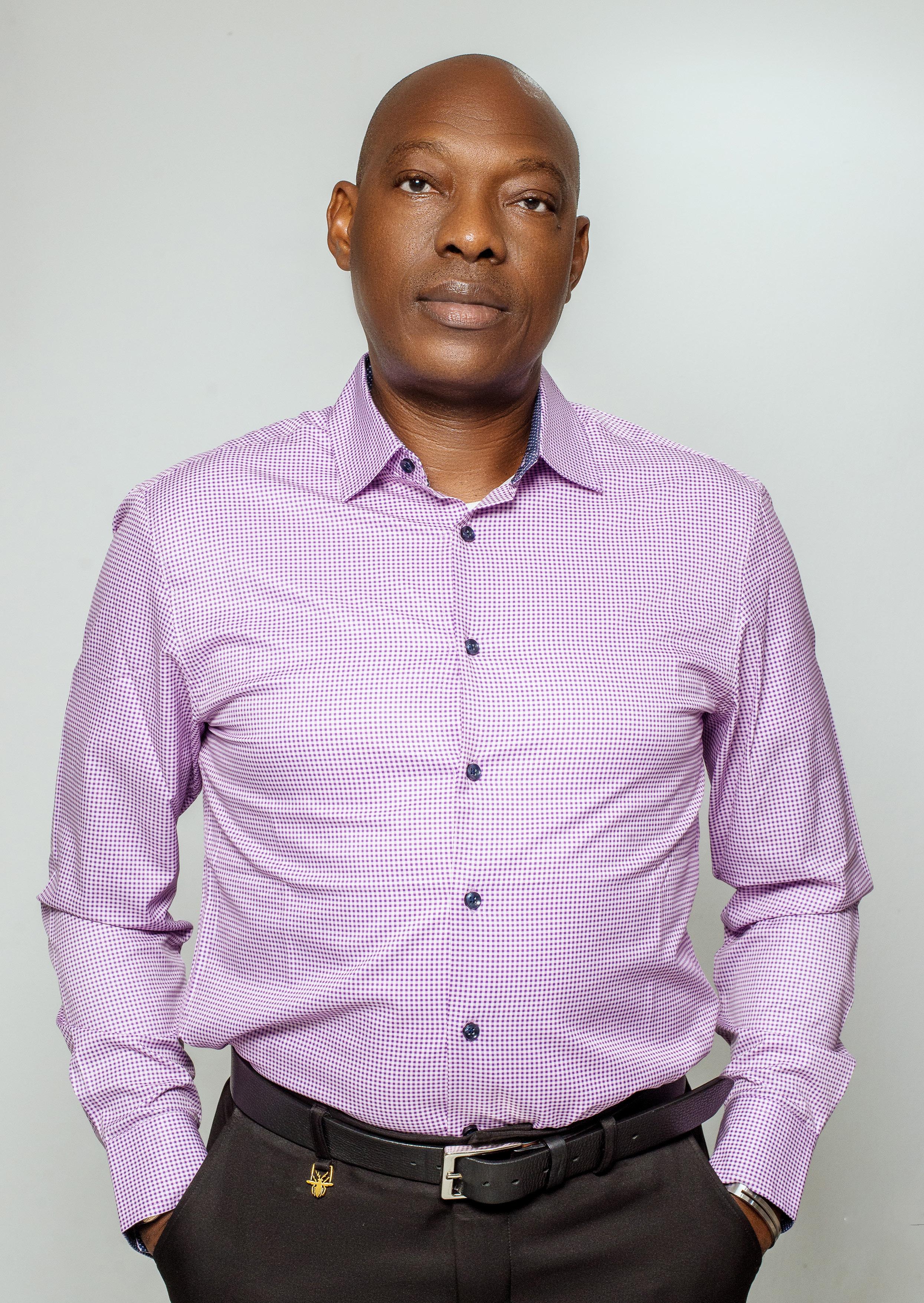
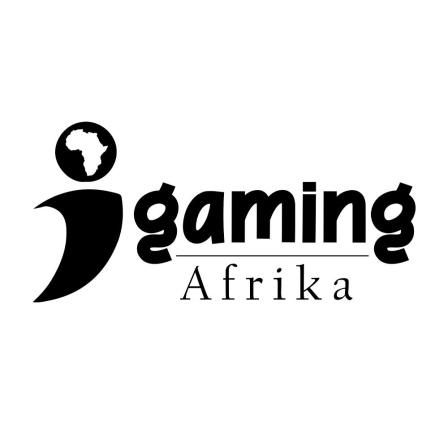
“In this age of the Internet of Things, any business or market that is not playing in and around the technological disruption space is romancing extinction, playing catch-up at best and will possibly get disrupted along the way.

Participation offers more than visibility; it provides access to informed discussions, investment opportunities, and regulatory insights that are essential for sustainable growth in this region. I would encourage brands to view AGE not merely as an expo, but as a long-term investment in Africa’s Gaming future.
In your opinion, what role do events like AGE play in shaping and advancing the future of the gaming industry in Africa?
Events like AGE serve as critical catalysts for industry growth. They provide a unified platform for stakeholders to engage in dialogue, share knowledge, and forge partnerships. By bringing together diverse voices from across the continent and beyond, we facilitate the exchange of ideas and best practices that drive innovation and policy development. Such gatherings are essential for aligning efforts and accelerating the maturation of Africa's gaming industry.
What advice would you give to young Africans who are considering a career in the gaming industry?
The Gaming industry in Africa is one of the fastest-growing sectors, expected to reach a multi-billion-dollar market within a few years. For young Africans looking to build a career in this industry, my advice is that start building relevant skills early, whether in coding, game design, animation, or digital marketing. Leverage online learning platforms like Coursera, Udemy, and industry-specific resources. Importantly, it is important to stay connected with the African gaming community through events like AGE, which provide critical networking and mentorship opportunities. Above all, be persistent, as Africa’s gaming industry is still developing, so pioneers like you have a chance to shape its future.
Kushiriki kunatoa zaidi ya mwonekano; hutoa ufikiaji wa mijadala iliyoarifiwa, fursa za uwekezaji, na maarifa ya udhibiti ambayo ni muhimu kwa ukuaji endelevu katika eneo hili. Ningehimiza chapa kutazama AGE sio tu kama maonyesho, lakini kama uwekezaji wa muda mrefu katika mustakabali wa Michezo ya Kubahatisha barani Afrika.
Kwa maoni yako, matukio kama AGE yana nafasi gani katika kuchagiza na kuendeleza mustakabali wa tasnia ya michezo ya kubahatisha barani Afrika?
Matukio kama AGE hutumika kama vichocheo muhimu kwa ukuaji wa tasnia. Wanatoa jukwaa la umoja kwa washikadau kushiriki katika mazungumzo, kushiriki maarifa, na kuunda ushirikiano. Kwa kuleta pamoja sauti mbalimbali kutoka katika bara zima na kwingineko, tunawezesha ubadilishanaji wa mawazo na mbinu bora zinazochochea uvumbuzi na maendeleo ya sera. Mikusanyiko kama hii ni muhimu kwa kuoanisha juhudi na kuongeza kasi ya kukomaa kwa tasnia ya michezo ya kubahatisha barani Afrika.
Ungewapa ushauri gani vijana wa Kiafrika ambao wanafikiria kujiajiri katika tasnia ya michezo ya kubahatisha?
Sekta ya Michezo ya Kubahatisha barani Afrika ni mojawapo ya sekta zinazokua kwa kasi, inayotarajiwa kufikia soko la mabilioni ya dola ndani ya miaka michache. Kwa vijana wa Kiafrika wanaotaka kujenga taaluma katika tasnia hii, ushauri wangu ni kwamba anza kujenga ujuzi unaofaa mapema, iwe katika kuweka misimbo, muundo wa mchezo, uhuishaji, au uuzaji wa kidijitali. Tumia majukwaa ya kujifunza mtandaoni kama vile Coursera, Udemy, na rasilimali mahususi za tasnia. Muhimu, ni muhimu kuendelea kushikamana na jumuiya ya michezo ya Kiafrika kupitia matukio kama vile AGE, ambayo hutoa fursa muhimu za mitandao na ushauri. Zaidi ya yote, kuwa na bidii, kwani tasnia ya michezo ya kubahatisha barani Afrika bado inaendelea, kwa hivyo waanzilishi kama wewe wana nafasi ya kuunda mustakabali wake.
You've emphasised the importance of collaboration within the industry. What advice would you offer to stakeholders on working together to further develop the African gaming industry and contribute to Africa's economic growth?
Collaboration is essential if we want to build a resilient and globally competitive Gaming industry in Africa. I urge stakeholders to break down silos, share ideas on the best global practices, and invest in cross-sector partnerships from telecom to educational institutions to government. We need inclusive policies, shared infrastructure, and joint innovation hubs, if possible. I have no doubt that together, we can grow not just a gaming industry, but an ecosystem that creates jobs, inspires young people, and drives sustainable economic growth across this continent.
Do you have any final thoughts or closing remarks you'd like to share?
Africa is rising, and the gaming industry is one of the most vibrant signals of this rise. What we are building with AGE is not just an event or a brand; it is a movement. A movement to amplify Africa’s voice in the global gaming conversation. A movement to unlock opportunities for our youth, modernise regulatory structures and inspire innovation at every level. I’m incredibly proud of how far we’ve come and even more excited about what’s next. Thank you for taking the time to engage with me.
Umesisitiza umuhimu wa ushirikiano katika tasnia. Je, ungependa kutoa ushauri gani kwa wadau kuhusu kufanya kazi pamoja ili kuendeleza zaidi tasnia ya michezo ya kubahatisha barani Afrika na kuchangia ukuaji wa uchumi wa Afrika?
Ushirikiano ni muhimu ikiwa tunataka kujenga tasnia ya Michezo ya Kubahatisha iliyo thabiti na yenye ushindani wa kimataifa barani Afrika. Ninawasihi wadau kuvunja silos, kubadilishana mawazo juu ya mbinu bora za kimataifa, na kuwekeza katika ushirikiano wa sekta mtambuka kutoka kwa mawasiliano ya simu hadi taasisi za elimu hadi serikali. Tunahitaji sera jumuishi, miundomsingi iliyoshirikiwa, na vitovu vya pamoja vya uvumbuzi, ikiwezekana. Sina shaka kuwa kwa pamoja, tunaweza kukuza sio tasnia ya michezo ya kubahatisha tu, bali mfumo wa ikolojia ambao unaunda nafasi za kazi, unawatia moyo vijana, na kuchochea ukuaji endelevu wa uchumi katika bara hili.
Je, una mawazo yoyote ya mwisho au maneno ya kufunga ambayo ungependa kushiriki?
Afrika inaongezeka, na sekta ya michezo ya kubahatisha ni mojawapo ya ishara mahiri za kuongezeka huku. Tunachojenga na AGE sio tu tukio au chapa; ni harakati. Harakati za kukuza sauti ya
Afrika katika mazungumzo ya kimataifa ya michezo ya kubahatisha. Harakati za kufungua fursa kwa vijana wetu, kuboresha miundo ya udhibiti na kuhamasisha uvumbuzi katika kila ngazi. Ninajivunia sana jinsi tumetoka mbali na kufurahishwa zaidi na kile kinachofuata. Asante kwa kuchukua muda wa kuwasiliana nami.
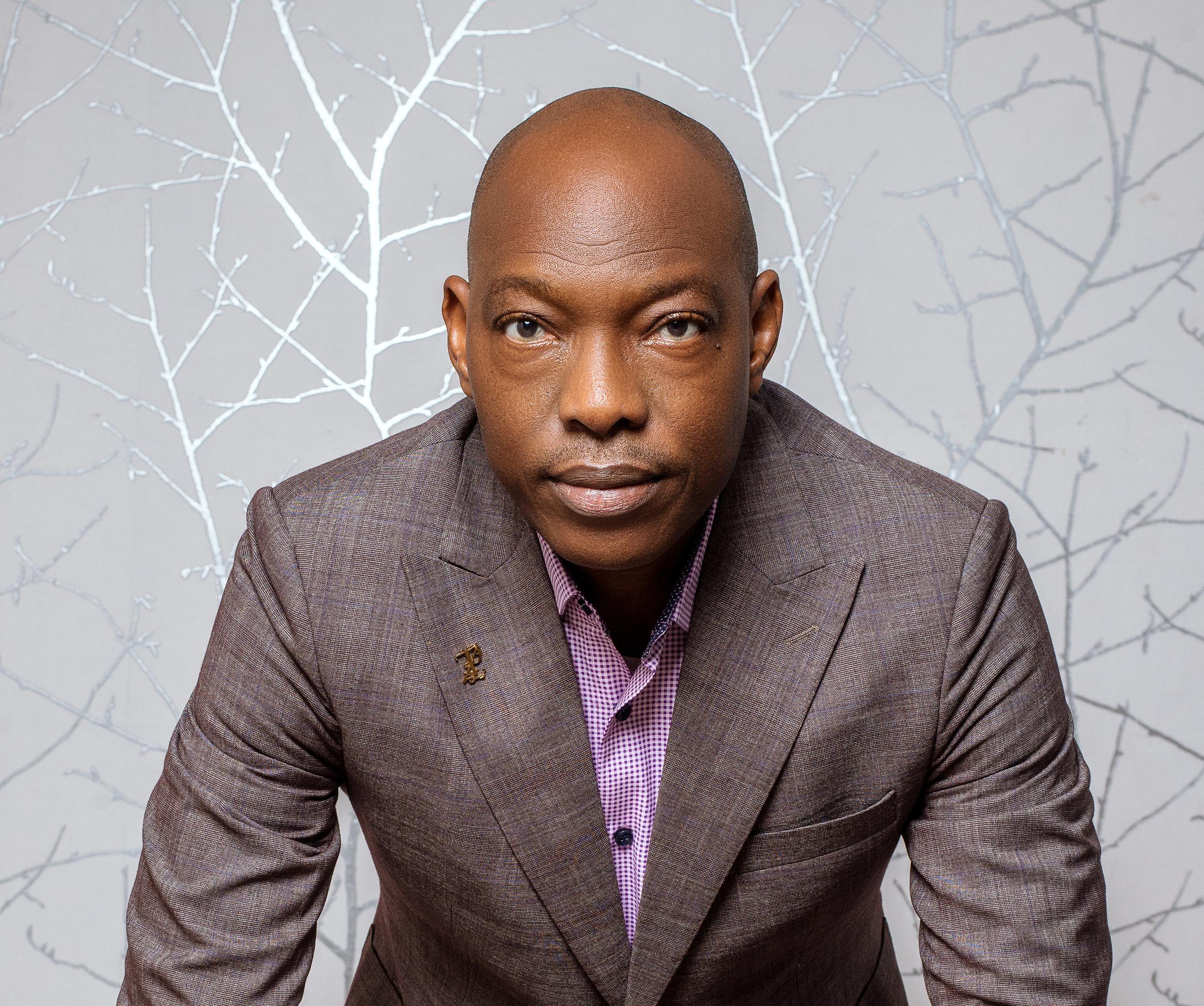

30,000 DELEGATES
550+ SPEAKERS
700 EXHIBITORS 16–18 SEPT
Agatha Wanjugu’s Journey to Success


Agatha’s career path in iGaming is a story of curiosity turned passion, and passion transformed into leadership. Having cut her teeth at iGaming AFRIKA and grown her expertise at Pragmatic Play, she now spearheads East African operations at QTech Games, one of the world’s leading aggregators for emerging markets. Along the way, she has not only navigated the complex challenges of fragmented regulations, diverse player behaviours, and evolving technologies, but also carved out a voice for innovation and inclusivity in an industry still finding its footing on the continent. In this conversation, she reflects on the experiences that shaped her, the role of innovation in Africa’s gaming future, and her vision for building trust, growth, and opportunity across East Africa’s iGaming landscape.
You’ve built a strong career in iGaming across Africa with roles at iGaming AFRIKA, Pragmatic Play, and now QTech Games. What key experiences shaped the professional you are today?
I’d have to say that my combined experiences – firstly with your good selves at iGaming AFRIKA, where I served as Business Development Manager, and then more recently at Pragmatic Play, where I spent several years as Account Manager for Africa – were truly foundational and instructive in both fuelling my passion for the iGaming space, alongside understanding its nuances and breakout potential across this exciting yet challenging landscape. After all, challenge and opportunity can often represent two sides of the same coin!
At iGaming AFRIKA, I started out in more business-development-focused roles, building and maintaining lasting client relationships, and collaborating with sales forces and technical departments to optimise the overall customer experience. Those formative interpersonal relationships were crucial to me learning the fundamentals and seeing the sector from both the operator and player perspective and priming me for more senior account-management at Pragmatic Play. I still have great relationships with those teams, both of whom encouraged me to adopt my trademark communicative and consultative approach.
Now, at QTech Games, I’m thrilled to be able to coalesce and apply these biz-dev and management skills, underpinned by hard-won experiences, at the industry’s leading aggregator for developing markets.
iGaming is not always the most obvious career path. What first drew you into this space, and what keeps you passionate about it?
To be honest, iGaming wasn’t something I ever saw as a career path, mainly because I didn’t even know it existed. Like many people, especially in Africa, I had no idea there was a whole industry behind betting. I was introduced to it by a good friend and former boss. At first, it was all new, confusing, a little overwhelming but also incredibly intriguing. The more I learned, the more curious I became. And the deeper I went, the more I realized just how much opportunity, innovation, and creativity this space holds. That’s what pulled me in and it’s what keeps me going.
You were recently recognised as the ‘Innovation Queen of East Africa’ at SBEA 2025. What does this recognition mean to you personally, and how do you see innovation shaping the future of iGaming in East Africa?
It was lovely to be recognised by my industry peers and colleagues in this regard – even if the title sounds too grand to my ear! Still, I do always love to think laterally, even outside the box, when it comes to defining new, flexible ways of operating, or promoting solutions that drive innovation and positive delineation for our clients from their competitors. Innovation, to me, is about relevance. It’s about understanding our markets, listening to users, and creating solutions that actually fit the local context.
Njia ya kazi ya Agatha katika iGaming ni hadithi ya udadisi iliyogeuka shauku, na shauku iliyobadilishwa kuwa uongozi. Akiwa amejiimarisha katika iGaming AFRIKA na kukuza ujuzi wake katika Pragmatic Play, sasa anaongoza shughuli za Afrika Mashariki kwenye Michezo ya QTech, mojawapo ya wajumlishi wakuu duniani wa masoko yanayoibukia. Njiani, hajapitia tu changamoto changamano za kanuni zilizogawanyika, tabia tofauti za wachezaji, na teknolojia zinazoendelea, lakini pia ametoa sauti ya uvumbuzi na ushirikishwaji katika tasnia ambayo bado inapata msingi wake katika bara. Katika mazungumzo haya, anaakisi juu ya uzoefu uliomtengeneza, jukumu la uvumbuzi katika siku zijazo za michezo ya kubahatisha barani Afrika, na maono yake ya kujenga uaminifu, ukuaji na fursa katika mazingira ya iGaming ya Afrika Mashariki.
Umejizatiti katika taaluma ya iGaming kote barani Afrika ukiwa na majukumu katika iGaming AFRIKA, Pragmatic Play na sasa QTech Games. Je, ni matukio gani muhimu yaliyounda taaluma uliyo nayo leo?
Ningependa kusema kwamba uzoefu wangu uliounganishwakwanza na nafsi yenu njema katika iGaming AFRIKA, ambapo nilihudumu kama Meneja wa Maendeleo ya Biashara, na kisha hivi majuzi zaidi katika Pragmatic Play, ambapo nilihudumu kwa miaka kadhaa kama Meneja wa Akaunti ya Afrika - yalikuwa ya msingi na ya kufundisha katika kuchochea shauku yangu kwa nafasi ya iGaming, pamoja na kuelewa tofauti zake za ndani na uwezekano wa kuibua katika mazingira haya ya kusisimua lakini yenye changamoto. Hata hivyo, changamoto na fursa mara nyingi zinaweza kuwakilisha pande mbili za sarafu moja!
Katika iGaming AFRIKA, nilianza katika majukumu yanayolenga zaidi maendeleo ya biashara, kujenga na kudumisha uhusiano wa kudumu wa wateja, na kushirikiana na vikosi vya mauzo na idara za kiufundi ili kuboresha uzoefu wa jumla wa wateja. Mahusiano hayo ya urafiki kati ya watu yalikuwa muhimu kwangu kujifunza mambo ya msingi na kuona sekta kutoka kwa mtazamo wa waendeshaji na wachezaji na kunipa kipaumbele kwa usimamizi mkuu wa akaunti katika Pragmatic Play. Bado nina uhusiano mzuri na timu hizo, ambazo zote zilinihimiza kupitisha mbinu yangu ya mawasiliano na mashauriano ya nembo ya biashara.
Sasa, kwenye QTech Games, ninafuraha kuweza kuungana na kutumia ujuzi huu wa biz-dev na usimamizi, unaochagizwa na uzoefu uliopatikana kwa bidii, katika kijumlishi kikuu cha sekta hiyo kwa masoko yanayoendelea.
iGaming si kila mara ndiyo njia iliyo wazi zaidi ya kazi. Ni nini kilikuvutia kwanza katika nafasi hii, na ni nini kinachokufanya uendelee kuipenda?
Kuwa mkweli, iGaming haikuwa kitu ambacho nimewahi kuona kama njia ya kazi, haswa kwa sababu sikujua hata kuwa iko. Kama watu wengi, haswa barani Afrika, sikujua kama kuna tasnia nzima nyuma ya kamari. Nilitambulishwa na rafiki mzuri na bosi wa zamani. Hapo awali, yote yalikuwa mapya, ya kutatanisha, ya kutisha kidogo lakini pia ya kushangaza sana. Kadiri nilivyojifunza ndivyo nilivyozidi kutaka kujua. Na kadiri nilivyozidi kwenda, ndivyo nilivyogundua ni fursa ngapi, uvumbuzi na ubunifu ambao nafasi hii inashikilia. Hilo ndilo lililonivuta na ndilo linalonifanya niendelee.
Hivi majuzi ulitambuliwa kama ‘Innovation Queen of East Africa’ katika SBEA 2025. Utambuzi huu unamaanisha nini kwako binafsi, na unaonaje ubunifu ukichagiza mustakabali wa iGaming katika Afrika Mashariki?
Ilipendeza kutambuliwa na wenzangu na wafanyakazi wenzangu katika suala hili - hata kama jina linasikika kuwa kuu sana sikioni mwangu! Bado, mimi hupenda kufikiria kila wakati, hata nje ya sanduku, linapokuja suala la kufafanua njia mpya, rahisi za kufanya kazi, au kukuza suluhisho ambazo huchochea uvumbuzi na ufafanuzi mzuri kwa wateja wetu kutoka kwa washindani wao. Uvumbuzi, kwangu, ni kuhusu umuhimu. Inahusu kuelewa masoko yetu, kusikiliza watumiaji, na kuunda masuluhisho ambayo yanalingana na muktadha wa ndani.
As a result, I actually think the award was equally reflective of the brilliant innovative work we’ve been doing at QTech Games over the past year, routinely providing product improvements to keep our partners ahead. We’re the only aggregator which is not just showcasing fantastic games but also adding engaging features (such as our AI-powered recommendation engine, alongside other Networked Jackpots and unique Rewards functionality) to illuminate QTech’s leadership position across emerging markets. It constitutes a wider tide of innovation that is helping to lift all boats.
QTech has made clear its ambition to expand its footprint across Africa. How do you see your role in East Africa feeding into the company’s larger continental strategy?
As I say, QTech Games is now so much more than just a leading aggregator, adding value and driving business at every consequential juncture for our client. And that flair to keep pushing the boundaries will be a force for growth, whether it’s in my specific East African domain or the wider purview of this rather fragmented continent as whole. While we’re talking innovation and ambitions to expand our broader footprint across Africa, we’re really excited by the response to our new retail solution, QTech Hybrid, which has been rolled out to instant acclaim with some of our pilot partners in Africa.
QTech Hybrid is a software service that merges QTech Games’ online lobby, a land-based (retail) management system, and a state-of-the-art integrated AMS (Agent Management System) to manage both retail outlets and agents. This allows the operator to scale their brick-and-mortar operation online which is really a game-changer in any African jurisdiction. It simplifies transactions by enabling deposits, withdrawals, and gameplay while allowing access to players both in-store and on personal devices. In short, it affords players the option to play at physical terminals or on their mobiles, and effortlessly migrate their journey and UX across any device. And for operators, there’s also now no need for expensive terminals since QTech Hybrid runs on cost-effective computers/tablets.
Needless to say, we think it’s going to prove a pathfinder in our broader strategic development across Africa.
Having transitioned from account management into a regional sales leadership role, what has been the most challenging and ultimately rewarding part of making that leap from managing clients to shaping market strategy?
Transitioning into regional sales leadership has pushed me to evolve from an operational mindset to a strategic one. In account management, I was directly responsible for client satisfaction and performance. But stepping into a leadership role has meant shifting to a much wider lens. I now have to think about cross-border expansion, regulatory nuances, team dynamics, and scalable revenue strategies across diverse African markets.
One of the key challenges is navigating the diversity of the African tech and gaming landscape. Each region has its own consumer behavior, legal frameworks, and competitive pressures. Developing strategies that scale, while remaining locally relevant, require deep market research, cross-cultural leadership, and adaptability. It is a steep but rewarding learning curve.
What makes it so rewarding is that now, I get to influence market direction, and ensure we’re building not just revenue, but relevance. And as someone navigating this space as an African woman, it’s deeply fulfilling to know I’m contributing to a more inclusive and innovative future in an industry that’s still finding its voice on the continent.
Kwa hivyo, nadhani tuzo hiyo iliakisi kazi nzuri sana ya ubunifu ambayo tumekuwa tukifanya kwenye QTech Games katika mwaka uliopita, tukitoa uboreshaji wa bidhaa mara kwa mara ili kuwaweka washirika wetu mbele. Sisi ndio kijumlishi pekee ambacho haionyeshi tu michezo mizuri bali pia tunaongeza vipengele vinavyovutia (kama vile injini yetu ya mapendekezo inayoendeshwa na AI, pamoja na Jackpots zingine za Mtandao na utendakazi wa kipekee wa Zawadi) ili kuangazia nafasi ya uongozi ya QTech katika masoko yanayoibuka. Inajumuisha wimbi pana la uvumbuzi ambalo linasaidia kuinua boti zote.
QTech imeweka wazi azma yake ya kupanua wigo wake kote barani Afrika. Je, unaonaje jukumu lako katika Afrika Mashariki likiingia kwenye mkakati mkubwa wa kampuni ya bara?
Kama ninavyosema, Michezo ya QTech sasa ni zaidi ya kijumlishi kinachoongoza, kuongeza thamani na kuendesha biashara katika kila hali inayofaa kwa mteja wetu. Na sifa hiyo ya kuendelea kuvuka mipaka itakuwa nguvu ya ukuaji, iwe ni katika kikoa changu mahususi cha Afrika Mashariki au mtazamo mpana wa bara hili lililogawanyika kwa ujumla. Tunapozungumza uvumbuzi na matamanio ya kupanua wigo wetu kote barani Afrika, tunafurahishwa sana na majibu ya suluhisho letu jipya la rejareja, QTech Hybrid, ambalo limetolewa kwa sifa ya papo hapo na baadhi ya washirika wetu wa majaribio barani Afrika.
QTech Hybrid ni huduma ya programu inayounganisha lobi ya mtandaoni ya QTech Games, mfumo wa usimamizi wa ardhi (rejareja), na AMS (Agent Management System) wa hali ya juu ili kudhibiti maduka na mawakala. Hili huruhusu mwendeshaji kuongeza utendaji wao wa matofali na chokaa mtandaoni ambayo kwa hakika ni kibadilishaji mchezo katika eneo lolote la mamlaka la Kiafrika. Hurahisisha miamala kwa kuwezesha amana, uondoaji na uchezaji huku kuruhusu ufikiaji wa wachezaji ndani ya duka na kwenye vifaa vya kibinafsi. Kwa kifupi, inawapa wachezaji chaguo la kucheza kwenye vituo vya kawaida au kwenye simu zao za mkononi, na kuhamisha kwa urahisi safari yao na UX kwenye kifaa chochote. Na kwa waendeshaji, pia sasa hakuna haja ya vituo vya gharama kubwa kwa kuwa QTech Hybrid huendesha kwenye kompyuta/kompyuta bapa za gharama nafuu.
Hata bila kusemwa, tunafikiri itathibitisha kitafuta njia katika maendeleo yetu ya kimkakati mapana kote Afrika.
Baada ya kuhama kutoka kwa usimamizi wa akaunti hadi jukumu la uongozi wa mauzo wa kikanda, ni sehemu gani ambayo imekuwa changamoto zaidi na hatimaye ya kuthawabisha ya kufanya hivyo kutoka kwa usimamizi wa wateja hadi kuunda mkakati wa soko?
Kuhamia kwa uongozi wa mauzo wa kikanda kumenisukuma kubadilika kutoka kwa mawazo ya kiutendaji hadi kuwa ya kimkakati. Katika usimamizi wa akaunti, niliwajibika moja kwa moja kwa kuridhika na utendaji wa mteja. Lakini kuingia katika nafasi ya uongozi kumemaanisha kuhamia kwenye lenzi pana zaidi. Sasa inabidi nifikirie juu ya upanuzi wa mipaka, tofauti ya sheria ya udhibiti, mienendo ya timu, na mikakati ya mapato ya juu katika masoko mbalimbali ya Afrika.
Mojawapo ya changamoto kuu ni kupitia utofauti wa teknolojia ya Kiafrika na mazingira ya michezo ya kubahatisha. Kila eneo lina tabia yake ya watumiaji, mifumo ya kisheria, na shinikizo za ushindani. Kuunda mikakati ambayo inakua, wakati inabaki kuwa muhimu ndani ya nchi, inahitaji utafiti wa kina wa soko, uongozi wa tamaduni tofauti, na kubadilika. Ni mkondo mwinuko lakini wenye kuridhisha wa kujifunza.
Kinachofanya iwe ya kuridhisha sana ni kwamba sasa, ninapata kushawishi mwelekeo wa soko, na kuhakikisha kuwa tunajenga sio mapato tu, bali umuhimu. Na kama mtu anayetumia nafasi hii kama mwanamke wa Kiafrika, inatimia sana kujua kwamba ninachangia mustakabali uliojumuisha zaidi na wa ubunifu katika tasnia ambayo bado inapata sauti katika bara hili.

Agatha Wanjugu
Sales and Account Manager, QTech Games
As Sales Manager for East Africa, one of your key responsibilities is nurturing QTech’s existing partnerships. What do you see as the most important ingredient in building long-term trust and growth with partners in this region?
As with many account-management roles, regardless of the sector to be honest, the vital component is connection via clear and consistent communication. It’s fundamental to fostering confidence and effective collaboration. And in the province of iGaming, particularly when you’re working across a patchwork quilt of clients and diverse requirements, it’s the cornerstone for building enduring, high-value relationships between platform providers and operators in developing regions. In Africa, perhaps above all, the personal touch and flexibility to meet up in the real-world, or jump on a call at the drop of a hat, is prized and rewarded with the trust that powers any good relationship.
Aside from that, it’s got to be localized know-how which invariably contributes to one’s success - or lack thereof! Happily, at QTech Games, we have an agile platform and way of operating that means our solutions are not just theoretically sound, they are also highly adaptable to make it work in reality for our customers. After all, a strategy bears fruit in Europe or LatAm won’t necessarily export seamlessly to Kenya or Nigeria. In fact, it usually won’t! So, whether it’s language options, content selection, or bonus strategies that reflect local player behaviour, you need to understand what goes with the specific territory or culture. Thanks to QTech’s wider 24/7 customer support and growing group of local support staff, we have the proactive and collaborative approach to nimbly navigate any landscape.
You operate in a region where every market has its own rules, regulatory frameworks, and taxation policies. How do you help QTech strengthen existing partnerships while opening doors to new markets across East Africa?
Scaling operations in fragmented regulatory environments can be a rocky road better left untravelled if you don’t have the local skills, team or flexible attitude. And as you suggest, barriers to entry, like Kenya’s currently prohibitive tax regime, can be enough to turn some operators away at the door. That’s not unique to East or West Africa, of course. It’s the same across other disjointed regions like LatAm, or the ongoing state-by-state regulatory rollout across North America.
At QTech, we don’t get bogged down in the factors we can’t control, particularly at the government level. Instead, it’s about equipping your clients with that aforementioned flexibility of product, or reliability in the areas that drive player retention. In Africa, as the continent in general becomes more connected and digitally mature, the importance of dependable payments, alongside avoiding any cyber-security risks, will be vital to engendering consumer confidence, regulatory approval and growth. Trust in any operator really hinges on their capacity to settle and payout swiftly. Especially because customers in Africa heavily favour the igaming jackpot or sportsbook parlay model.
Other partnership-strengthening aspects could revolve around the user experience and understanding that players in East Africa, for example, aren’t looking for you to reinvent the wheel for UX too much – say, with a dazzling new widget, or a supposedly clever-but-convoluted interface. Instead, if you want to scale and take on the leaders in any given territory, you want something distinct-yet-familiar to your players. And that message goes double if you’re a challenger brand looking to take on more established local champions. Fortunately, QTech Games proprietary platform technology can readily crystallise the right solution and provide any brand with everything they might need to run a fully flexible igaming offering, without getting mired in protracted processes of adaptation which impede growth.
Kama Meneja Mauzo wa Afrika Mashariki, moja ya majukumu yako muhimu ni kukuza ushirikiano uliopo wa QTech. Je, unaona nini kama kiungo muhimu zaidi katika kujenga uaminifu na ukuaji wa muda mrefu na washirika katika eneo hili?
Kama ilivyo kwa majukumu mengi ya usimamizi wa akaunti, bila kujali sekta hiyo nkiwa mwaminifu, kipengele muhimu ni muunganisho kupitia mawasiliano ya wazi na thabiti. Ni muhimu kukuza kujiamini na ushirikiano mzuri. Na katika mkoa wa iGaming, haswa unapofanya kazi kwenye safu ya viraka vya wateja na mahitaji tofauti, ndio msingi wa kujenga uhusiano wa kudumu, wa thamani ya juu kati ya watoa huduma wa jukwaa na waendeshaji katika maeneo yanayoendelea. Barani Afrika, labda zaidi ya yote, mguso wa kibinafsi na kubadilika kukutana katika ulimwengu wa kweli, au kupiga simu, inathaminiwa na hutuzwa kwa uaminifu unaosimamia uhusiano wowote mzuri.
Kando na hayo, ni lazima kuwa na ujuzi wa kienyeji ambao mara kwa mara huchangia mafanikio ya mtu - au ukosefu wake! Jambo la kufurahisha ni kwamba katika Michezo ya QTech, tuna mfumo wa kisasa na njia ya kufanya kazi ambayo inamaanisha kuwa masuluhisho yetu si ya kinadharia tu, yanaweza kubadilika sana ili kuifanya ifanye kazi katika uhalisia kwa wateja wetu. Hata hivyo, mkakati huzaa matunda Ulaya au LatAm haitalazimika kuuza nje kwa Kenya au Nigeria bila mshono. Kwa kweli, kwa kawaida haitakuwa! Kwa hivyo, iwe ni chaguo za lugha, uteuzi wa maudhui, au mikakati ya bonasi inayoakisi tabia ya wachezaji wa ndani, unahitaji kuelewa kinachoendana na eneo au utamaduni mahususi. Shukrani kwa usaidizi mkubwa wa wateja wa 24/7 wa QTech na kikundi kinachokua cha wafanyikazi wa usaidizi wa ndani, tuna mbinu tendaji na shirikishi ya kusogeza kwa urahisi mandhari yoyote.
Unafanya kazi katika eneo ambalo kila soko lina sheria zake, mifumo ya udhibiti na sera za ushuru. Je, unaisaidiaje QTech kuimarisha ushirikiano uliopo huku ikifungua milango kwa masoko mapya kote Afrika Mashariki?
Kuongeza shughuli katika mazingira yaliyogawanyika ya udhibiti inaweza kuwa barabara yenye miamba iliyo bora kuachwa bila kupitiwa ikiwa huna ujuzi wa ndani, timu au mtazamo unaobadilika. Na kama unavyopendekeza, vizuizi vya kuingia, kama vile mfumo wa ushuru wa Kenya unaokatazwa kwa sasa, vinaweza kutosha kuwazuia waendeshaji wengine mlangoni. Hiyo si ya kipekee kwa Afrika Mashariki au Magharibi, bila shaka. Ni sawa katika maeneo mengine yasiyounganishwa kama LatAm, au usambazaji unaoendelea wa udhibiti wa jimbo kwa jimbo kote Amerika Kaskazini.
Katika QTech, hatujisumbui katika mambo ambayo hatuwezi kudhibiti, hasa katika kiwango cha serikali. Badala yake, ni kuhusu kuwapa wateja wako unyumbulifu huo uliotajwa hapo juu wa bidhaa, au kutegemewa katika maeneo ambayo huchochea uhifadhi wa wachezaji. Barani Afrika, bara kwa ujumla linapokuwa limeunganishwa zaidi na kukomaa kidijitali, umuhimu wa malipo ya kutegemewa, pamoja na kuepuka hatari zozote za usalama wa mtandao, utakuwa muhimu katika kuleta imani ya watumiaji, idhini ya udhibiti na ukuaji. Kuamini mwendeshaji yeyote kunategemea sana uwezo wao wa kusuluhisha na kulipa haraka. Hasa kwa sababu wateja barani Afrika wanapendelea sana jackpot ya michezo ya kubahatisha au mtindo wa parlay wa kitabu cha michezo.
Vipengele vingine vya kuimarisha ushirikiano vinaweza kuhusisha uzoefu wa mtumiaji na kuelewa kwamba wachezaji katika Afrika Mashariki, kwa mfano, hawakutafuti ili uweze kuanzisha tena gurudumu la UX - tuseme, kwa wijeti mpya inayovutia, au kiolesura kinachodaiwa kuwa ni werevu lakini kilichochanganyikiwa. Badala yake, ikiwa unataka kuongeza na kuchukua viongozi katika eneo lolote, unataka kitu tofauti-bado kinachojulikana kwa wachezaji wako. Na ujumbe huo huenda maradufu ikiwa wewe ni chapa ya mpinzani unayetafuta kushindana na mabingwa walioimarika zaidi wa ndani. Kwa bahati nzuri, teknolojia ya mifumo ya umiliki ya Michezo ya QTech inaweza kung'arisha suluhu sahihi kwa urahisi na kuipa chapa yoyote kila kitu inachoweza kuhitaji ili kuendesha toleo la uchezaji linalonyumbulika kikamilifu, bila kuzama katika michakato ya muda mrefu ya urekebishaji ambayo inazuia ukuaji.
Managing multiple markets means spotting patterns. What similarities and differences have you observed between the East African gaming markets, and how do those insights shape your strategy?
One of the most valuable parts of overseeing multiple East African markets is being able to see both the common threads and the nuances that define each country. On the surface, there’s a lot of similarity: a young, mobile-first population, high digital engagement, and strong interest in sports—particularly football—which drives betting activity. Mobile money is also a unifying enabler across the region, making it easier to onboard users who may not have traditional banking access.
But when you go deeper, the differences are impossible to ignore—and they matter. For instance, Kenya has a mature and highly competitive market with strict regulatory oversight, which pushes operators to focus more on compliance, innovation, and user experience. In contrast, Uganda’s market is still growing, with more space for acquisition and brand building, while Tanzania has unique tax structures and licensing frameworks that impact pricing models and product rollouts.
These insights directly shape how we approach each market. We don’t copy-paste strategies—we localize them. Managing across East Africa means designing strategies that are flexible, hyper-local, and informed by both data and on-the-ground feedback.
When it comes to business development, advancing the sales cycle and populating its pipeline with new leads, you need to be alive to evolving trends or divergent differences.
In Africa, from a player perspective, it’s hard to shake the bias for the iGaming jackpot or sportsbook accumulator model that we touched on earlier. The trend is firmly rooted. So, it’s about working with it and being creative in order to separate yourself from the flock as an operator. That could mean more credible winning triggers for your jackpots - even if their payouts are a little lower, at least they drop more regularly. Or if it’s a sportsbook acca, where the odds grow increasingly against the customer with every leg/team they add, make sure they’re getting a fairer margin or value - maybe a money-back offer if just one of their teams lets them down.
The rise of crash games is also unmistakable. This once-overlooked domain routinely punches above its weight and has almost become its own mini-vertical. This fast-game format is no craze with a limited phase. Instead, it will thrive, not just survive, thanks to its quick-fire thrills that satisfy audiences demanding something different from your traditional slot titles. Consequently, at QTech Games, we moved swiftly to keep our portfolio in the vanguard of this relentless industry demand. We now have nearly 20 such providers with their own unique takes on this evergreen niche.
Ultimately, QTech is laser-focussed and expanding into Africa with great content that works well wherever you set your scene on this flourishing continent, finding solutions even when low data consumption or lightweight operations are a priority. Accordingly, we’ve also integrated even more “light” games for East Africa and beyond, which guard against technological barriers to engagement, such as handset quality limitations, restricted access to fast networks, or high data costs. You must solve these challenges without sacrificing delivery of a high-quality product.
What advice would you give to young women in Kenya or Africa at large who want to break into the iGaming space?
iGaming in Africa is becoming a force to be reckoned with and we are seeing more women getting into this space - the energy is being felt far and beyond. To the young women, especially in underrepresented spaces: you don’t need to ask for permission to join this industry. You only need to learn the game, play smart, build your network, position yourself as a force not just a participant and watch things work out for you. Your perspective is not a weakness, it’s your superpower. The industry needs it.
Kusimamia masoko mengi kunamaanisha kutambua mifumo. Je, ni ufanano gani na tofauti gani umeona kati ya masoko ya michezo ya kubahatisha ya Afrika Mashariki, na maarifa hayo yanaunda mkakati wako vipi?
Mojawapo ya sehemu muhimu zaidi ya kusimamia masoko mengi ya Afrika Mashariki ni kuweza kuona mambo yanayofanana na mambo yanayofafanua kila nchi. Kwa juu juu, kuna mengi ya kufanana: vijana, idadi ya kwanza ya simu, ushiriki wa juu wa kidijitali, na shauku kubwa katika michezo - haswa kandanda - ambayo huendesha shughuli za kamari. Pesa kwa njia ya simu pia ni kuwezesha kuunganisha katika eneo lote, na kuifanya iwe rahisi kwa watumiaji wa ndani ambao huenda hawana ufikiaji wa kawaida wa benki.
Lakini unapoingia ndani zaidi, kupuuza utofauti haiwezekani-na ni muhimu. Kwa mfano, Kenya ina soko lililokomaa na lenye ushindani mkubwa na usimamizi mkali wa udhibiti, ambao unasukuma waendeshaji kuzingatia zaidi kufuata, uvumbuzi, na uzoefu wa watumiaji. Kinyume chake, soko la Uganda bado linakua, na nafasi zaidi ya ununuzi na ujenzi wachapa, wakati Tanzania ina miundoya kipekeeya ushuru na mifumo ya leseni ambayo inaathiri miundo ya bei na usambazaji wa bidhaa.
Maarifa haya yanaunda moja kwa moja jinsi tunavyokaribia kila soko. Hatunakili-kubandika mikakati—tunaiweka ndani. Kusimamia kote Afrika Mashariki kunamaanisha kubuni mikakati ambayo inaweza kunyumbulika, ya ndani, na kuongozwa na data na maoni ya moja kwa moja.
Linapokuja suala la ukuzaji wa biashara, kuendeleza mzunguko wa mauzo na kujaza mkondo wake na miongozo mipya, unahitaji kuwa hai ili kufikia mitindo inayobadilika au tofauti tofauti.
Barani Afrika, kwa mtazamo wa wachezaji, ni vigumu kutikisa upendeleo wa jackpot ya iGaming au kikusanyia kitabu cha michezo ambacho tuligusia hapo awali. Mwelekeo huo umekita mizizi. Kwa hivyo, ni juu ya kufanya kazi nayo na kuwa mbunifu ili kujitenga na kundi kama mwendeshaji. Hiyo inaweza kumaanisha vichochezi vinavyoaminika zaidi vya kushinda kwa jackpots zako - hata kama malipo yao ni ya chini kidogo, angalau yanashuka mara kwa mara. Au ikiwa ni kitabu cha michezo cha acca, ambapo uwezekano wa uwezekano unaongezeka dhidi ya mteja kwa kila mguu/timu wanayoongeza, hakikisha kwamba anapata kiasi au thamani inayolingana - labda ofa ya kurejesha pesa ikiwa timu moja tu itawaruhusu kushindwa.
Kuongezeka kwa michezo ya crash pia sio shaka. Kikoa hiki ambacho kilipuuzwa mara kwa mara umezidi uwezo wake wa kawaida na karibu kuwa wima wake mdogo. Muundo huu wa mchezo wa haraka sio wa kutamani na awamu ndogo. Badala yake, itastawi, si kuishi tu, kutokana na misisimko yake ya haraka-haraka ambayo inakidhi watazamaji wanaodai kitu tofauti na mada zako za kawaida. Kwa hivyo, kwenye Michezo ya QTech, tulisonga mbele haraka ili kuweka jalada letu katika nafasi ya mbele ya mahitaji haya ya tasnia ya kudumu. Sasa tuna karibu watoa huduma kama hao 20 kwa kipekee yao wenyewe inachukua katika sekta hii endelevu.
Hatimaye, QTech inaangazia leza na inapanuka hadi Afrika ikiwa na maudhui bora ambayo hufanya kazi vyema popote unapoweka mandhari yako kwenye bara hili linalositawi, kutafuta suluhu hata wakati matumizi ya data ya chini au utendakazi mwepesi ni kipaumbele. Kwa hiyo, pia tumeunganisha michezo mingi zaidi "nyepesi" kwa Afrika Mashariki na kwingineko, ambayo hulinda dhidi ya vikwazo vya kiteknolojia vya ushirikishwaji, kama vile vikwazo vya ubora wa vifaa vya mkononi, vikwazo vya ufikiaji wa mitandao ya kasi, au gharama kubwa za data. Ni lazima kutatua changamoto hizi bila kutoa sadaka ya utoaji wa bidhaa ya ubora wa juu.
Je, ni ushauri gani unaweza kuwapa wanawake vijana nchini KenyaauAfrikakwaujumlawanaotakakuingiakatikanafasiya iGaming?
iGaming barani Afrika inazidi kuwa nguvu ya kuzingatiwa na tunaona wanawake zaidi wakiingia katika nafasi hii - nishati inahisiwa mbali na mbali. Kwa wanawake wachanga, haswa katika nafasi ambazo hazijawakilishwa: hauitaji kuomba ruhusa ya kujiunga na tasnia hii. Unahitaji tu kujifunza mchezo, kucheza kwa busara, kujenga mtandao wako, kujiweka kama nguvu sio tu mshiriki na kutazama mambo yakienda kwa ajili yako. Mtazamowakosio udhaifu, ni uwezowako mkuu. Sekta inaihitaji.


When it comes to business development, advancing the sales cycle and populating its pipeline with new leads, you need to be alive to evolving trends or divergent differences.

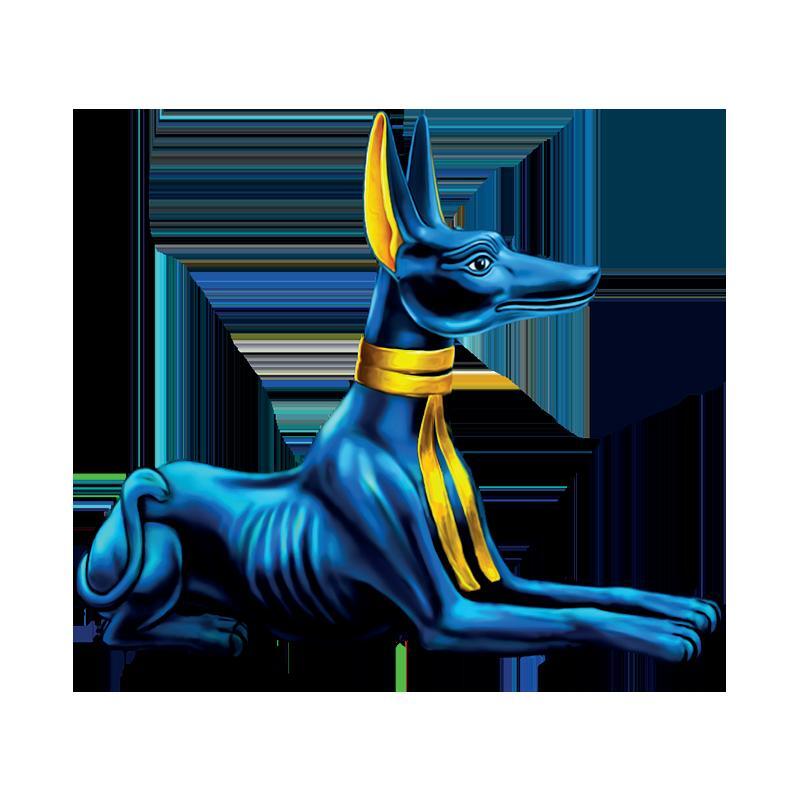





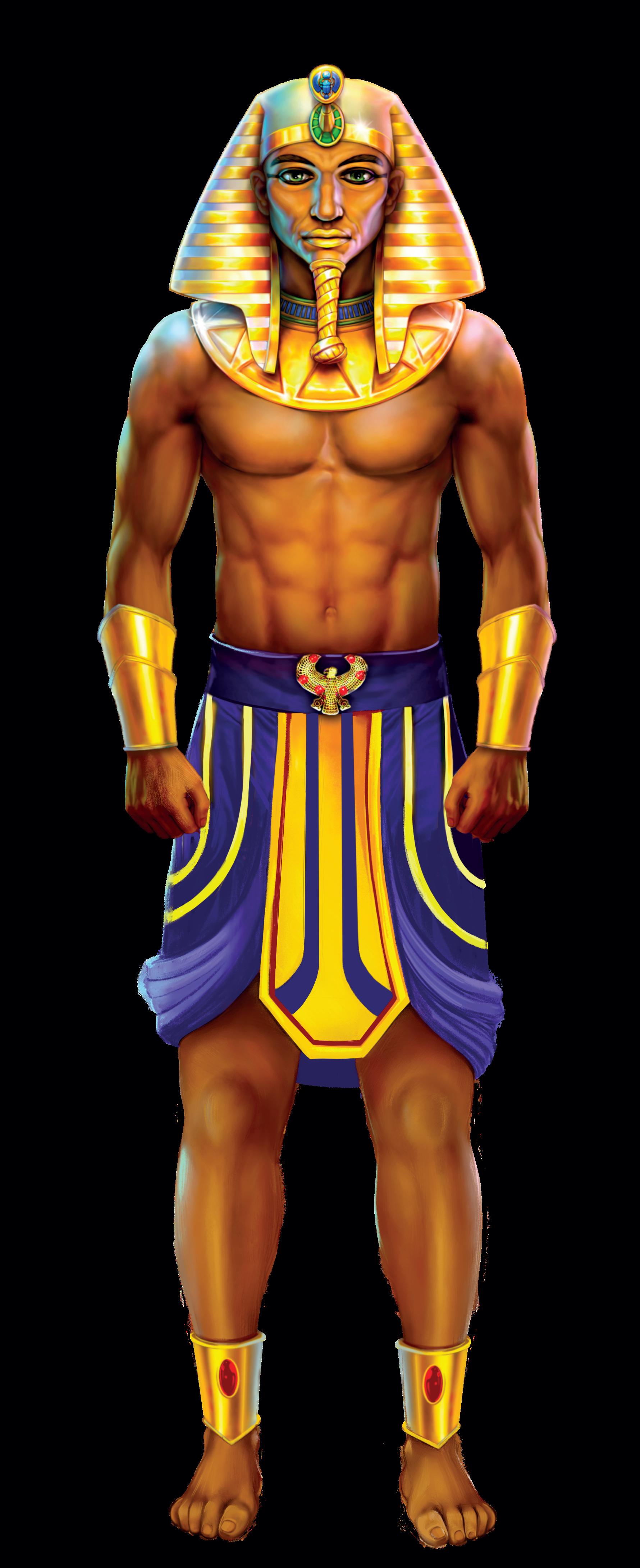



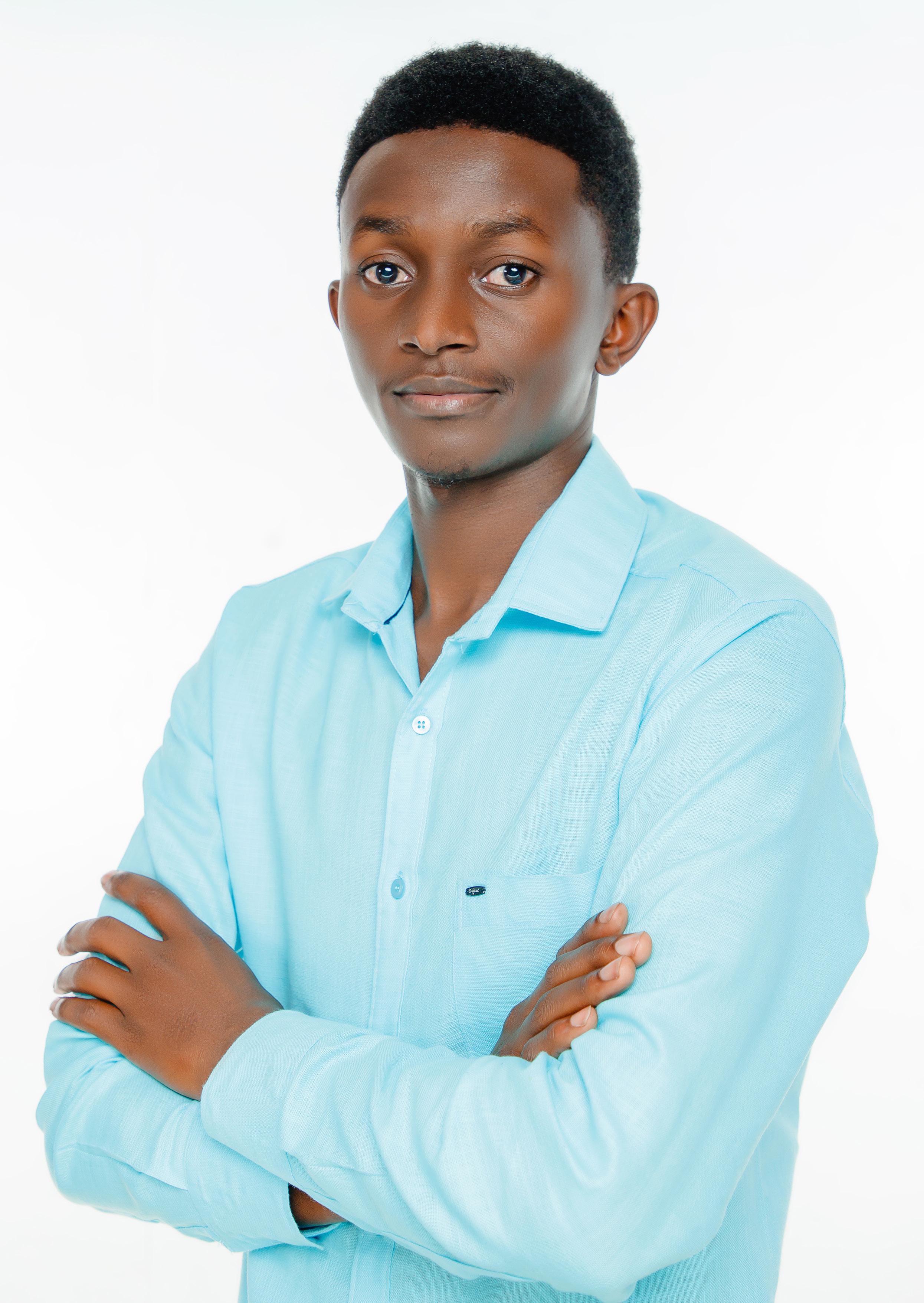
In just a few years, Nasif K. Balinda has gone from manning the tills of a local betting shop to co-founding Gaming Port Uganda, a platform reshaping the country’s gaming landscape through transparency, education, and responsible gambling advocacy. With a background in marketing and a passion for building trust between players, operators, and investors, Nasif is on a mission to empower Uganda’s gaming community with credible insights, practical tools, and forward-thinking strategies. In this exclusive conversation, he shares his journey, the inspiration behind Gaming Port, and his vision for the future of Africa’s iGaming industry.
Who is Nasif K. Balinda and how did you start a career in gaming?
My full name is Nasifu Kaboyo Balinda, and I like to think of myself as a passionate student of marketing, living in Kampala, Uganda, where I was born and raised. My journey in the gaming industry began in 2018 when I took on a role as a customer service representative at a local betting shop. Starting as a cashier, I learnt the ins and outs of the industry, which eventually led me to become a branch manager for one of Uganda's biggest betting brands.
Fast forward to 2020, I made the exciting leap into the digital side of gaming, joining an iGaming consulting firm in Kampala as the Head of Digital Marketing. This role deepened my understanding of the iGaming world and all its nuances. Later, I moved to Buffalo Consultants Limited as the head of marketing, where I further honed my skills and co-founded Gaming Port, a venture that has been both challenging and rewarding.
When I'm not discussing marketing strategies, you can find me writing articles on LinkedIn, where I enjoy sharing insights and experiences from my career. Outside of work, I'm a sports fan, particularly a passionate supporter of Manchester City. So, that's me in a nutshell.
You recently launched Gaming Port Uganda. What is it all about and what are your key objectives with this brand?
We recently launched Gaming Port Uganda, and it’s really exciting to see how it’s taking off. Essentially, Gaming Port is your go-to source for everything related to gambling in Uganda. We’ve created a directory that covers sports betting, casinos, lotteries, and more. We share news, publish blogs, and discuss important topics like regulations and responsible gambling. Plus, we do detailed reviews of betting and casino platforms to help people make informed choices.
The response so far has been amazing, much more than I expected. People are reaching out all the time asking us to review betting sites to give them peace of mind that these platforms are legitimate. And that’s exactly what we’re here for: to build trust.
Our main goal with Gaming Port is to act as a central platform that connects three key groups: the players (or punters), the operators (betting and casino companies), and the investors looking to get involved in Uganda’s gaming industry. We want to empower players by giving them in-depth reviews, expert tips, and the latest information on regulations so they can make safe and informed decisions. For operators, we provide market insights and proven marketing strategies to help them grow competitively. And for investors, we offer data-driven reports and forecasts to guide their decisions.
Ultimately, we’re all about fostering transparency, trust, and responsible gaming. We believe in maintaining high journalistic standards, breaking down complex regulations, and promoting sustainable practises throughout the industry. It’s a lot to juggle but seeing how much people trust us already has me even more excited for the future of Gaming Port Uganda.
Katika miaka michache tu, Nasif K. Balinda amehamia kutoka kuwa muuzaji katika duka la kamari la eneo hadi kuwa mwanzilishi mwenza wa Gaming Port Uganda, jukwaa linalobadilisha mandhari ya kamari ya nchi kupitia uwazi, elimu, na utetezi wa kamari inayohusika. Akiwa na uzoefu katika masoko na shauku ya kujenga kuaminiana kati ya wachezaji, waendeshaji, na wawekezaji, Nasif yuko katika misheni ya kuwawezesha jamii ya kamari ya Uganda kwa maarifa ya kuaminika, zana za vitendo, na mikakati ya mbele. Katika mazungumzo haya ya kipekee, anashiriki safari yake, msukumo nyuma ya Gaming Port, na maono yake kwa ajili ya tasnia ya iGaming barani Afrika.
Nasif K. Balinda ni nani na ulianza vipi kazi katika kamari?
Jina langu kamili ni Nasifu Kaboyo Balinda, na napenda kujiona kama mwanafunzi mwenye shauku wa masoko, nikiishi Kampala, Uganda, ambapo nilizaliwa na kulelewa. Safari yangu katika tasnia ya kamari ilianza mwaka 2018 niliposhika nafasi ya mwakilishi wa huduma kwa wateja katika duka la kamari la eneo. Nikiwa muuzaji, nilijifunza mambo yote ya tasnia, ambayo hatimaye ilinileta kuwa meneja wa tawi la moja ya chapa kubwa za kamari nchini Uganda.
Tukiruka hadi mwaka 2020, nilifanya hatua ya kusisimua katika upande wa kidijitali wa kamari, nikijiunga na kampuni ya ushauri ya iGaming huko Kampala kama Kiongozi wa Masoko ya Kidijitali. Nafasi hii ilinifanya kuelewa zaidi kuhusu ulimwengu wa iGaming na nyanja zake zote. Baadaye, nilihamia Buffalo Consultants Limited kama kiongozi wa masoko, ambapo nilikamilisha ujuzi wangu na kuanzisha Gaming Port, mradi ambao umekuwa changamoto na wa kufurahisha.
Wakati sijadili kuhusu mikakati ya masoko, unaweza kuniona nikandika makala kwenye LinkedIn, ambapo napenda kushiriki maarifa na uzoefu kutoka kwa kazi yangu. Nje ya kazi, mimi ni shabiki wa michezo, hasa mfuasi mwenye shauku wa Manchester City. Hivyo, huyo ndio mimi kwa ufupi.
Hivi karibuni umeanzisha Gaming Port Uganda. Ni kuhusu nini na malengo yako makuu na chapa hii ni yapi?
Hivi karibuni tulianzisha Gaming Port Uganda, na ni ya kusisimua kuona jinsi inavyoanza kukua. Kimsingi, Gaming Port ni chanzo chako cha kila kitu kinachohusiana na kamari nchini Uganda. Tumetengeneza orodha inayohusisha kamari ya michezo, kasino, bahati nasibu, na mengineyo. Tunashiriki habari, kuchapisha blogu, na kujadili mada muhimu kama vile kanuni na kamari inayohusika. Zaidi ya hayo, tunafanya mapitio ya kina ya majukwaa ya kamari na kasino ili kuwasaidia watu kufanya maamuzi sahihi.
Mwitikio hadi sasa umekuwa wa kushangaza, zaidi ya nilivyotarajia. Watu wanawasiliana kila wakati wakituomba tupitie tovuti za kamari ili kuwapa amani ya akili kwamba majukwaa haya ni halali. Na hiyo ndiyo sababu tulipo: kujenga kuaminiana.
Lengo letu kuu na Gaming Port ni kufanya kama jukwaa kuu linalounganisha makundi matatu muhimu: wachezaji (au wabashiri), waendeshaji (makampuni ya kamari na kasino), na wawekezaji wanaotaka kushiriki katika tasnia ya kamari ya Uganda. Tunataka kuwawezesha wachezaji kwa kuwapa mapitio ya kina, vidokezo vya wataalamu, na habari za hivi punde kuhusu kanuni ili waweze kufanya maamuzi salama na ya kuaminika. Kwa waendeshaji, tunatoa maarifa ya soko na mikakati ya masoko iliyothibitishwa ili kuwasaidia kukua kwa ushindani. Na kwa wawekezaji, tunatoa ripoti zinazotegemea data na makadirio ili kuongoza maamuzi yao.
Hatimaye, tunajikita katika kukuza uwazi, kuaminiana, na kamari ya uwajibikaji. Tunaamini katika kudumisha viwango vya juu vya uandishi wa habari, kuvunja kanuni ngumu, na kukuza mazoea endelevu katika tasnia. Ni mengi ya kushughulikia lakini kuona jinsi watu wanavyotuamini tayari kunanifanya niwe na shauku zaidi kwa ajili ya siku zijazo za Gaming Port Uganda.
What was the motivation behind you launching Gaming Port Uganda?
I launched Gaming Port because I saw a real gap in Uganda’s gaming landscape: players were navigating a maze of unverified platforms and outdated information, operators lacked local market intelligence, and investors struggled to find reliable data. As someone who’s spent years consulting for sportsbooks and casinos, I knew firsthand how much smarter, safer, and more sustainable our industry could be if everyone had access to impartial insights and practical guidance.
Gaming Port was born out of my conviction that by centralising trusted reviews, regulatory analysis, marketing playbooks, and financial reports in one free-to-access hub could elevate the entire ecosystem. It would empower players to make confident choices, equip operators to compete with clarity, and enable investors to back growth with conviction, all while championing transparency and responsible gaming.
How does Gaming Port Uganda contribute to promoting responsible gaming promotion within the Ugandan gaming industry?
Personally, I am a strong advocate of responsible gaming, and Gaming Port is really championing this cause in the industry. One main approach is creating in-depth guides and resources to help people gamble safely. We also spotlight important campaigns like Uganda’s Gaming Board’s Nationwide Responsible Gambling Campaign, covering training programmes and regulatory updates to ensure safe-play initiatives stay top of mind.
We go further by issuing timely alerts about unlicensed or fraudulent operators through our news feed, helping to keep players informed and protected. We embed clear reminders about responsible gaming across all reviews and blogs, so it’s always top of mind for our readers.
Collaboration is another pillar. We’re working with organisations like the GamCare Initiative Uganda on awareness campaigns, creating self-assessment tools, and offering support services for those affected by problem gambling. The aim is to foster transparency and trust in the industry while promoting sustainable, socially conscious practices.
Ultimately, we want to create a positive impact: empowering players to make better choices, support operators in running responsible businesses, and help the entire industry grow in a healthy, ethical way.
We have noted the countless efforts by the National Lotteries and Gaming Regulatory Board of Uganda to promote responsible gaming among universities in the country. In your opinion, what strategies do you believe the board should adopt in kerbing this trend?
I believe educating students about the dangers of gambling is key, and the board can play a significant role in making that happen. One approach is partnering with university administration and student leaders to organise workshops, seminars, and awareness campaigns. These kinds of events can help students understand the risks of gambling in a way that feels real and relatable.
But it shouldn’t stop there. The board should also ensure students have quick and easy access to counselling and support services for those who might be struggling with gambling addiction. It’s about creating a safety net that’s both accessible and stigma-free.
Another important step is conducting research to better understand how widespread gambling is among students and what specific challenges they’re facing. This way, we can tailor our solutions to address the real issues on the ground.
Ni nini kilichokuchochea kuanzisha Gaming Port Uganda?
Nilianzisha Gaming Port kwa sababu niliona pengo halisi katika mandhari ya kamari ya Uganda: wachezaji walikuwa wakipitia labirinthi la majukwaa yasiyo na uthibitisho na habari za zamani, waendeshaji walikosa maarifa ya soko la ndani, na wawekezaji walikumbana na changamoto ya kupata data ya kuaminika. Kama mtu ambaye amepitia miaka mingi akishauri kwa ajili ya michezo na kasino, nilijua kwa karibu jinsi tasnia yetu ingeweza kuwa na akili zaidi, salama zaidi, na endelevu zaidi ikiwa kila mtu angeweza kupata maarifa yasiyo na upendeleo na mwongozo wa vitendo.
Gaming Port ilizaliwa kutokana na imani yangu kwamba kwa kuunganisha mapitio ya kuaminika, uchambuzi wa kanuni, vitabu vya masoko, na ripoti za kifedha katika kituo kimoja cha bure kinachoweza kufikiwa, tunaweza kuinua mfumo mzima. Itawapa wachezaji uwezo wa kufanya maamuzi ya kujiamini, kuwapa waendeshaji uwezo wa kushindana kwa uwazi, na kuwapa wawekezaji uwezo wa kuunga mkono ukuaji kwa ujasiri, huku tukikumbatia uwazi na kamari ya uwajibikaji.
Gaming Port Uganda inachangia vipi katika kukuza kamari inayohusika ndani ya tasnia ya kamari ya Uganda?
Binafsi, mimi ni mtetezi mwenye nguvu wa kamari ya uwajibikaji, na Gaming Port kwa kweli inakumbatia sababu hii katika tasnia.Njia moja kuu ni kuunda mwongozo wa kina na rasilimali kusaidia watu kubashiri kwa usalama. Pia tunasisitiza kampeni muhimu kama Kampeni ya Kitaifa ya Kubashiri kwa Uwajibikaji ya Bodi ya Michezo ya Uganda, ikijumuisha programu za mafunzo na masasisho ya kisheria ili kuhakikisha mipango ya kucheza salama inabaki kuwa kipaumbele.
Tunazidi kwa kutoa tahadhari za wakati kuhusu waendeshaji wasio na leseni au waongo kupitia habari zetu, kusaidia kuwafanya wachezaji wabaki na ufahamu na kuldwa.Tunajumuisha vikumbusho wazi kuhusu michezo ya uwajibikaji katika hakiki zote na blogu, ili kila wakati iwe kipaumbele kwa wasomaji wetu.
Ushirikiano ni nguzo nyingine. Tunafanya kazi na mashirika kama GamCare Initiative Uganda kwenye kampeni za uhamasishaji, kuunda zana za kujitathmini, na kutoa huduma za msaada kwa wale walioathirika na tatizo la kubashiri. Lengo ni kukuza uwazi na kuaminiana katika sekta hiyo huku tukichochea mazoea endelevu na ya kijamii.
Hatimaye, tunataka kuleta athari chanya: kuwawezesha wachezaji kufanya maamuzi bora, kusaidia waendeshaji katika kuendesha biashara za uwajibikaji, na kusaidia sekta nzima kukua kwa njia yenye afya na maadili.
Tumebaini juhudi nyingi za National Lotteries and Gaming Regulatory Board of Uganda katika kukuza michezo ya uwajibikaji miongoni mwa vyuo vikuu nchini. Kwa maoni yako, ni mikakati gani unadhani bodi inapaswa kuchukua katika kudhibiti mwenendo huu?
Naamini elimu ya wanafunzi kuhusu hatari za kubashiri ni muhimu, na bodi inaweza kuchukuajukumu muhimu katika kufanya hivyo. Njia moja ni kushirikiana na utawala wa chuo na viongozi wa wanafunzi kuandaa warsha, semina, na kampeni za uhamasishaji. Matukio haya yanaweza kusaidia wanafunzi kuelewa hatari za kubashiri kwa njia ambayo inahisi halisi na inahusiana.
Lakini haipaswi kukoma hapo. Bodi pia inapaswa kuhakikisha wanafunzi wanapata ufikiaji wa haraka na rahisi wa ushauri na huduma za msaada kwa wale wanaoweza kuwa wanakabiliwa na uraibu wa kubashiri. Ni kuhusu kuunda mtandao wa usalama ambao ni rahisi kufikiwa na bila aibu.
Hatua nyingine muhimu ni kufanya utafiti ili kuelewa vyema jinsi kubashiri ilivyoenea miongoni mwa wanafunzi na changamoto maalum wanazokabiliana nazo. Kwa njia hii, tunaweza kubinafsisha suluhu zetu ili kushughulikia masuala halisi yaliyoko.
Using social media campaigns is also a smart move, since that’s where students spend a lot of their time. We can create content that resonates with them and spreads awareness about responsible gambling.
The best approach is to involve the students themselves. When students lead the charge, whether through peer-to-peer education or by becoming ambassadors for responsible gambling, it creates a ripple effect that’s far more powerful. It’s all about empowering them to create a supportive environment where they can look out for one another.
How important is collaboration amongst the Ugandan gaming industry stakeholders such as operators, regulators and punters alike in enhancing responsible gaming practises?
There is a Luganda saying that “Agali awamu gegaluma enyama” meaning the teeth are only able to tear the meat because of their combined effort, every stakeholder brings a unique contribution to the table. Operators provide operational insights and can implement measures like betting limits and self-exclusion programmes, while regulators supply the legal framework to ensure compliance and fairness. Punters, as the end-users, offer crucial feedback and benefit from educational campaigns that promote safe gambling. Through open communication and mutual respect, these stakeholders can overcome challenges such as resistance to regulations and lack of awareness. By working together, they can create a balanced and sustainable approach that protects punters, ensures regulatory effectiveness, and supports the growth of the gaming industry in Uganda.
What role does public education play in responsible gaming, and how does Gaming Port facilitate this?
When it comes to responsible gaming, public education is the cornerstone, it’s all about equipping people with the knowledge they need to make informed, safer choices. At Gaming Port, we’ve made it our mission to provide everyone with the tools and resources they need to play responsibly.
We’ve put together a bunch of free, easily accessible articles and step-by-step guides that break everything down in a way that’s simple to understand. Whether it’s helping someone assess their gambling habits or providing tips on how to set boundaries, we want to make sure people feel empowered to take control of their gaming experience.
One thing I’m really excited about is our soon-to-be-launched self-exclusion tools. These will give players even more control over their gaming activities, which is a big step forward in promoting responsible gaming. Plus, we’re proud to be partnering with the GamCare Initiative Uganda, because we know that having the right support systems in place is crucial for anyone who might be struggling.
If I’m being honest, it’s all about creating a safe and supportive environment where people can enjoy gaming without it taking over their lives. We’re here to educate, to inform, and to make sure everyone has the resources they need to play responsibly
How can technology be leveraged to promote responsible gaming and identify problematic gambling behaviours?
Technology can be leveraged to promote responsible gaming and flag risky behaviour by harnessing AI-driven analytics to monitor betting patterns in real time. These tools quietly track play patterns, spots when someone’s chasing losses or speeding through bets, and step in with a friendly nudge. For example, if a player doubles their average stake three times an hour, AI flags that spike and a pop-up might say, ‘Hey there, want to pause and check in on how you’re feeling?’ It can then offer instant links to self-assessment quizzes or let them set cooling-off limits on the spot. In this way, technology isn’t just about detection; it’s about gentle, real-time support that empowers people to gamble safely and reach out for help before problems escalate.
Kutumia kampeni za mitandao ya kijamii pia ni hatua ya busara, kwani hapo ndipo wanafunzi hutumia muda wao mwingi. Tunaweza kuunda maudhui yanayowagusa na kueneza uhamasishaji kuhusu kubashiri kwa uwajibikaji.
Njia bora ni kuwajumuisha wanafunzi wenyewe. Wakati wanafunzi wanapokuwa viongozi, iwe kupitia elimu ya rika kwa rika au kwa kuwa mabalozi wa kubashiri kwa uwajibikaji, inaunda athari kubwa zaidi. Ni kuhusu kuwawezesha kuunda mazingira ya msaada ambapo wanaweza kujali kuhusu kila mmoja.
Ushirikiano kati ya wadau wa sekta ya michezo ya Uganda kama waendeshaji, waangalizi na wachezaji ni muhimu kiasi gani katika kuimarisha mazoea ya kubashiri kwa uwajibikaji?
Kuna methali ya Luganda inasema kwamba "Agali awamu gegaluma enyama" ikimaanisha meno yanaweza tu kupasua nyama kwa sababu ya juhudi zao za pamoja, kila mshiriki huleta mchango wa kipekee mezani. Waendeshaji hutoa maarifa ya kiutendaji na wanaweza kutekeleza hatua kama mipaka ya kubashiri na programu za kujitenga, wakati waangalizi wanatoa mfumo wa kisheria kuhakikisha utii na haki. Wachezaji, kama watumiaji wa mwisho, wanatoa maoni muhimu na kunufaika na kampeni za elimu zinazohamasisha kubashiri salama. Kupitia mawasiliano wazi na heshima ya pamoja, wadau hawa wanaweza kushinda changamoto kama upinzani kwa kanuni na ukosefu wa ufahamu. Kwa kufanya kazi pamoja, wanaweza kuunda njia iliyosawazishwa na endelevu inayolinda wachezaji, kuhakikisha ufanisi wa kisheria, na kusaidia ukuaji wa sekta ya michezo nchini Uganda.
Jukumu gani elimu ya umma inayo katika kubashiri kwa uwajibikaji, na Gaming Port inachangia vipi katika hili?
Linapokuja katika suala la kubashiri kwa uwajibikaji, elimu ya umma ni msingi, ni kuhusu kuwapa watu maarifa wanayohitaji kufanya maamuzi sahihi na salama. Katika Gaming Port, tumefanya kuwa dhamira yetu kutoa kila mtu zana na rasilimali wanazohitaji kucheza kwa uwajibikaji.
Tumekusanya makala kadhaa za bure, zinazopatikana kwa urahisi na mwongozo wa hatua kwa hatua unaovunja kila kitu kwa njia ambayo ni rahisi kueleweka. Iwe ni kusaidia mtu kutathmini tabia zao za kubashiri au kutoa vidokezo juu ya jinsi ya kuweka mipaka, tunataka kuhakikisha watu wanajisikia kuwa na uwezo wa kudhibiti uzoefu wao wa michezo.
Jambo moja ambalo nina furaha nalo ni zana zetu za kujitenga zitakazozinduliwa hivi karibuni. Hizi zitaweza kuwapa wachezaji udhibiti zaidi juu yashughuli zaoza michezo, ambayo ni hatua kubwa mbele katika kukuza kubashiri kwa uwajibikaji. Zaidi ya hayo, tunajivunia kushirikiana na GamCare Initiative Uganda, kwa sababu tunajua kuwa kuwa na mifumo sahihi ya msaada ni muhimu kwa yeyote anayeweza kuwa na shida.
Kama nikiwa mkweli, yote ni kuhusu kuunda mazingira salama na ya kusaidia ambapo watu wanaweza kufurahia michezo bila kuingilia maisha yao. Tuko hapa kuelimisha, kutoa taarifa, na kuhakikisha kila mtu ana rasilimali wanazohitaji kucheza kwa uwajibikaji
Jinsi gani teknolojia inaweza kutumika kuhamasisha michezo ya kuwajibika na kubaini tabia za kamari zinazoweza kuwa na matatizo?
Teknolojia inaweza kutumika kuhamasisha michezo ya kuwajibika na kuashiria tabia hatari kwa kutumia uchanganuzi unaoendeshwa na AI kufuatilia mifumo ya kubashiri kwa wakati halisi. Vifaa hivi vinafuatilia kwa kimya mifumo ya mchezo, vinabaini wakati mtu anafuatilia hasara au anapokimbilia kubashiri, na kuingilia kwa kuwasihi kwa urafiki. Kwa mfano, ikiwa mchezaji anazidisha dau lake la wastani mara tatu kwa saa, AI inashughulikia ongezeko hilo na ujumbe wa pop-up unaweza kusema, 'Habari, unataka kupumzika na kuangalia unavyohisi?' Inaweza kisha kutoa viungo vya papo hapo kwa maswali ya kujitathmini au kuwapa nafasi ya kuweka mipaka ya kupumzika mara moja. Kwa njia hii, teknolojia si tu kuhusu kugundua; ni kuhusu msaadawa upole, wakati halisi unaowapawatu nguvu za kamari salama na kuwasiliana kwa msaada kabla ya matatizo kuongezeka.

“Embracing technologies like AI and crypto currencies are not just an option; it’s a necessity. These innovations are reshaping the global gaming landscape, and if Africa wants to keep up, we need to hop on this train sooner rather than later.
In your experience, what digital marketing strategies have proven most effective in the iGaming industry, particularly in the African context?
From what I’ve learnt and experienced, the most effective digital marketing strategies in the iGaming industry, especially in Africa, depend on understanding the local market and tailoring your approach. For me, one standout strategy has been social media marketing, but it’s all about how you execute it. For example, I remember working with a brand that focused heavily on partnering with local influencers on platforms like Facebook and X in Uganda. These influencers weren’t just random celebrities; they were people who genuinely understood the culture and could connect with their audience in a way that felt authentic.
Another strong strategy is combining social media with display advertising to target users based on their search behaviour and interests. I also think affiliate marketing is underrated, partnering with local bloggers or sports tipsters who already have trust within their communities can drive real results. And let’s not forget mobile optimisation. In Africa, most people access the internet via mobile, so if your site or ads aren’t mobile-friendly, you’re missing out on a huge opportunity.
One lesson I’ve learned the hard way is the importance of cultural and regulatory understanding. For instance, running a campaign in Nigeria versus Uganda requires a completely different approach, not just in language but in the messaging and the platforms you choose. It’s also crucial to balance promotional activities with responsible gambling initiatives; players appreciate it when you care about their well-being.
What has made these strategies successful for me is focusing on localisation and ensuring every campaign is tailored to the specific country or region I’m targeting. It’s not a one-size-fits-all approach, and that’s what makes it so effective.
You've emphasised the significance of SEO in previous discussions. How does SEO impact customer acquisition and retention in the gaming sector?
First off, SEO, or Search Engine Optimisation, is all about making your website more visible on search engines like Google. For an online casino, this means that when people search for things like "best online slots" or "online poker games," your site appears near the top of the results. Higher visibility translates to more visits, and more visits mean more potential customers. It's like having a neon sign in a busy street; people are more likely to walk into a place they can easily find.
But SEO isn't just about attracting new customers; it's also about retaining the ones you have. By consistently ranking high in search results, your site becomes a go-to destination for repeat visitors. A well-optimised site often provides a better user experience, which can encourage people to stay longer and explore more of what you offer. Imagine someone finding your site through a search for "betting strategies," reading a helpful blog post you've optimised, and then sticking around to try out your games. That's the power of SEO in retaining customers.
It's also worth noting the competitive edge SEO can give you. In a crowded market, unique, high-quality content can set you apart from competitors. For example, creating educational guides or tips on gaming strategies can attract a specific audience looking for more than just games, they want knowledge and value. This not only brings people in but also keeps them coming back for more. So, in essence, SEO is your online casino's best friend. It helps you stand out, attract new players, and keep them engaged, all while staying ahead of the competition.
Kulingana na uzoefu wako, ni mikakati gani ya masoko ya kidijitali ambayo imeonekana kuwa na ufanisi zaidi katika sekta ya iGaming, hasa katika muktadha wa Afrika?
Kutokana na kile nilichojifunza na uzoefu wangu, mikakati ya masoko ya kidijitali yenye ufanisi zaidi katika sekta ya iGaming, hasa Afrika, inategemea kuelewa soko la ndani na kubadilisha mbinu yako. Kwangu, mkakati mmoja wa kipekee umekuwa masoko ya mitandao ya kijamii, lakini yote ni kuhusu jinsi unavyotekeleza. Kwa mfano, nakumbuka kufanya kazi na chapa ambayo ilijikita sana katika kushirikiana na waathiriwa wa ndani kwenye majukwaa kama Facebook na X nchini Uganda. Waathiriwa hawa si watu maarufu wa bahati nasibu; walikuwa watu ambao kwa kweli walielewa utamaduni na wangeweza kuungana na hadhira yao kwa njia ambayo ilihisi kuwa ya kweli.
Mkakati mwingine mzuri ni kuunganisha mitandao ya kijamii na matangazo ya kuonyesha ili kuwafikia watumiaji kulingana na tabia zao za utafutaji na maslahi. Nadhani pia masoko ya washirika hayathaminiwi vya kutosha, kushirikiana na wanablogu wa ndani au watoa ushauri wa michezo ambao tayari wana uaminifu ndani ya jamii zao kunaweza kuleta matokeo halisi. Na tusisahau kuboresha simu. Nchini Afrika, watu wengi wanapata intaneti kupitia simu, hivyo ikiwa tovuti yako au matangazo yako haikubaliani na simu, unakosa fursa kubwa.
Somo moja nililojifunza kwa njia ngumu ni umuhimu wa kuelewa utamaduni na kanuni. Kwa mfano, kuendesha kampeni nchini Nigeria tofauti na Uganda kunahitaji mbinu tofauti kabisa, si tu katika lugha bali pia katika ujumbe na majukwaa unayochagua. Ni muhimu pia kulinganisha shughuli za matangazo na mipango ya kamari inayowajibika; wachezaji wanathamini inapokuwa unajali kuhusu ustawi wao.
Kile kilichofanya mikakati hii kuwa na ufanisi kwangu ni kuzingatia uhamasishaji na kuhakikisha kila kampeni inatengenezwa kwa nchi au eneo maalum ninayolenga. Si mbinu ya aina moja kwa wote, na hiyo ndiyo inafanya iwe na ufanisi.
Umeweka mkazo juu ya umuhimu wa SEO katika majadiliano ya awali. SEO inaathirije upatikanaji wa wateja na uhifadhi katika sekta ya michezo?
Kwanza kabisa, SEO, au Uboreshaji wa Injini za Utafutaji, ni kuhusu kufanya tovuti yako iwe na mwonekano zaidi kwenye injini za utafutaji kama Google. Kwa kasino ya mtandaoni, hii inamaanisha kwamba wakati watu wanatafuta mambo kama 'michezo bora ya mtandaoni' au 'michezo ya poker mtandaoni,' tovuti yako inaonekana karibu na kilele cha matokeo. Kuonekana zaidi kunamaanisha ziara zaidi, na ziara zaidi zinamaanisha wateja wengi zaidi. Ni kama kuwa na alama ya neon katika barabara yenye shughuli nyingi; watu wana uwezekano mkubwa wa kuingia mahali wanapoweza kulipata kwa urahisi. Lakini SEO si tu kuhusu kuvutia wateja wapya; pia ni kuhusu kuhifadhi wale uliyonao. Kwa kuendelea kuwa na nafasi ya juu katika matokeo ya utafutaji, tovuti yako inakuwa mahali pa kutembelea kwa wageni wa mara kwa mara. Tovuti iliyoboreshwa vizuri mara nyingi hutoa uzoefu bora wa mtumiaji, ambao unaweza kuwahamasisha watu kubaki kwa muda mrefu na kuchunguza zaidi kile unachotoa. Fikiria mtu anayepata tovuti yako kupitia utafutaji wa 'mikakati ya kubashiri,' akisoma chapisho la blogu ambalo umeboreshwa, na kisha kubaki kujaribu michezo yako. Huo ndiyo nguvu ya SEO katika kuhifadhi wateja.
Pia ni muhimu kutaja faida ya ushindani ambayo SEO inaweza kukupa. Katika soko lililojaa, maudhui ya kipekee na ya ubora wa juu yanaweza kukutofautisha na washindani. Kwa mfano, kuunda miongozo ya elimu au vidokezo juu ya mikakati ya michezo kunaweza kuvutia hadhira maalum inayoangalia zaidi ya michezo tu, wanataka maarifa na thamani. Hii haileti tu watu bali pia inawafanya warudi kwa ajili ya zaidi.
Hivyo, kwa msingi, SEO ni rafiki bora wa kasino yako mtandaoni. Inakusaidia kujitofautisha, kuvutia wachezaji wapya, na kubaki wakihusishwa, huku ukiendelea kuwa mbele ya washindani.
What key performance indicators do you prioritise when assessing the success of a marketing campaign in the iGaming industry?
When assessing the success of a marketing campaign in the iGaming industry, I focus on a mix of KPIs that give me a clear picture of both customer acquisition and retention. For me, conversion rate is one of the most important metrics because it tells me how many people are taking the desired action, like signing up or making a deposit. But I don’t stop there, I also look at customer acquisition cost (CAC) to make sure I’m not overspending on bringing in new players; If CAC is too high, it might indicate that my targeting or messaging isn’t as effective as it could be and may need refinement.
Another key metric is average revenue per user (ARPU), which helps me understand how much revenue each player is generating. This, combined with return on ad spend (ROAS), gives me a clear idea of whether my marketing dollars are being used efficiently. If my ROAS is high, it means my campaigns are not only bringing in new players but also driving real revenue.
I also keep an eye on churn rate because retaining players is just as important as acquiring them. If I see a high churn rate, it could mean that my platform isn’t engaging enough or that players aren’t finding value in what I’m offering. To combat this, I focus on improving lifetime value (LTV) by creating personalised experiences and offering incentives that keep players coming back.
From a campaign performance perspective, click-through rate (CTR) and bounce rate are crucial. A high CTR means my ads are resonating with my audience, while a low bounce rate tells me that my landing pages are relevant and engaging. I also monitor search engine rankings to ensure that my organic efforts are paying off and driving free traffic to my site.
Of course, there are challenges, like navigating regulatory restrictions and understanding player behaviour, which can be unpredictable. But by keeping a close eye on these KPIs and regularly testing and optimising my campaigns, I’m able to make data-driven decisions that keep my strategies on track. At the end of the day, it’s all about striking the right balance between driving new acquisitions and nurturing the players I already have.
How important is content creation for influencers in raising organic traffic for the various gaming brands they promote?
Content creation by influencers is increasingly important for gaming brands aiming to boost organic traffic. When you watch a stream or a video from someone you follow, you’re more likely to trust their opinion, it feels like advice from a friend rather than a hard sell. That trust is especially valuable in an era of ad fatigue.
Influencers also know their audience inside out, so they can tailor their content to exactly what their followers care about. For example, if an influencer creates a video reviewing a new game, they’re not just promoting it, they’re giving their audience real value by sharing tips, honest feedback, and maybe even some exclusive insights. This kind of content ranks well on search engines, helping more people organically find the brand’s website over time.
Influencers also diversify their content, videos, live streams, blog posts, and more, keeping their audience engaged in different ways. And here’s the cherry on top: unlike paid ads that stop driving traffic to the website once the budget runs out, influencer content can keep attracting traffic long after it’s posted, as long as it stays relevant and gets shared around.
Ni viashiria gani muhimu vya utendaji unavyopendelea unapokadiria ufanisi wa kampeni ya masoko katika sekta ya iGaming?
Wakati wa kutathmini mafanikio ya kampeni ya masoko katika sekta ya iGaming, ninazingatia mchanganyiko wa KPIs ambazo zinanipa picha wazi ya upatikanaji wa wateja na uhifadhi. Kwangu, kiwango cha kubadilisha ni moja ya vipimo muhimu zaidi kwa sababu kinaniambia ni watu wangapi wanachukua hatua inayotakiwa, kama kujiandikisha au kuweka amana. Lakini siishii hapo, pia ninalinganisha gharama ya upatikanaji wa wateja (CAC) ili kuhakikisha siitumi fedha nyingi sana kuleta wachezaji wapya; Ikiwa CAC iko juu sana, inaweza kuashiria kwamba malengo yangu au ujumbe siyo bora kama inavyoweza kuwa na inaweza kuhitaji kuboreshwa.
Vipimo vingine muhimu ni mapato ya wastani kwa mtumiaji (ARPU), ambayo yananiwezesha kuelewa ni kiasi gani cha mapato kila mchezaji anazalisha. Hii, pamoja na kurudi kwa matumizi ya matangazo (ROAS), inanipa wazo wazi ikiwa fedha zangu za masoko zinatumika kwa ufanisi. Ikiwa ROAS yangu iko juu, inamaanisha kampeni zangu sio tu zinaingiza wachezaji wapya bali pia zinaendesha mapato halisi.
Ninashughulikia pia kiwango cha kuondoka kwa wachezaji kwa sababu kuhifadhi wachezaji ni muhimu kama kuwapata. Ikiwa naona kiwango cha juu cha kuondoka, inaweza kumaanisha kwamba jukwaa langu halihusishi vya kutosha au kwamba wachezaji hawapati thamani katika kile ninachotoa. Ili kukabiliana na hili, ninazingatia kuboresha thamani ya maisha (LTV) kwa kuunda uzoefu wa kibinafsi na kutoa motisha zinazowafanya wachezaji warudi.
Kutoka kwa mtazamo wa utendaji wa kampeni, kiwango cha kubofya (CTR) na kiwango cha kuruka ni muhimu. CTR ya juu inamaanisha matangazo yangu yanapiga mzizi na hadhira yangu, wakati kiwango cha chini cha kuruka kinaniambia kwamba kurasa zangu za kutua zina maana na ya kuvutia. Pia ninasimamia viwango vya injini za utafutaji ili kuhakikisha kwamba juhudi zangu za kikaboni zinazaa matunda na kuleta trafiki ya bure kwenye tovuti yangu.
Kwa hakika, kuna changamoto, kama vile kuzingatia vizuizi vya kisheria na kuelewa tabia za wachezaji, ambazo zinaweza kuwa zisizoweza kutabirika. Lakini kwa kuzingatia kwa karibu KPIs hizi na kujaribu na kuboresha kampeni zangu mara kwa mara, naweza kufanya maamuzi yanayotokana na data ambayo yanashikilia mikakati yangu kwenye njia sahihi. Mwishowe, ni kuhusu kupata usawa mzuri kati ya kuendesha upatikanaji mpya na kulea wachezaji nilionao tayari.
Je, umuhimu wa uundaji wa maudhui kwa washawishi katika kuinua trafiki ya asili kwa chapa mbalimbali za michezo wanazozitangaza ni upi?
Uundaji wa maudhui na washawishi unakuwa muhimu zaidi kwa chapa za michezo zinazolenga kuongeza trafiki ya kikaboni. Unapokuwa unatazama mtiririko au video kutoka kwa mtu unayemfuatilia, unakuwa na uwezekano mkubwa wa kuamini maoni yao, inahisi kama ushauri kutoka kwa rafiki badala ya mauzo magumu. Imani hiyo ni ya thamani hasa katika enzi ya uchovu wa matangazo.
Washawishi pia wanajua hadhira yao vizuri, hivyo wanaweza kubinafsisha maudhui yao kwa kile ambacho wafuasi wao wanakijali. Kwa mfano, ikiwa waathiriwa wanaunda video ya kukagua mchezo mpya, hawatangazi tu, wanawapa hadhira yao thamani halisi kwa kushiriki vidokezo, mrejesho wa kweli, na labda hata baadhi ya maarifa ya kipekee. Aina hii ya maudhui inapata viwango vizuri kwenye injini za utafutaji, ikisaidia watu wengi zaidi kupata tovuti ya chapa hiyo kwa njia ya kikaboni kwa muda.
Washawishi pia wanapanua maudhui yao, video, matangazo ya moja kwa moja, machapisho ya blogu, na zaidi, wakishirikisha watazamaji wao kwa njia tofauti. Hii ndyo tamu zaidi: tofauti na matangazo ya kulipwa ambayo yanaacha kuendesha trafiki kwenye tovuti mara bajeti inapokwisha, maudhui ya waathiriwa yanaweza kuendelea kuvutia trafiki muda mrefu baada ya kuchapishwa, mradi tu yanabaki kuwa muhimu na yanashirikiwa.
What are some unique challenges operators face within the iGaming industry, and how can they be addressed?
The iGaming space is exciting, but it comes with its own set of challenges. Churn is a big one, players sign up but then leave and never come back. It’s frustrating because you spend so much time and resources attracting them, only to lose them. Another struggle is converting players into depositors. Even if you’ve got the traffic, turning that into actual revenue can be tough. High taxes also squeeze margins and affect profitability.
To address these issues, I think collaboration with regulators is key. By working together, operators can find solutions that balance business needs with regulatory requirements. It’s not just about complying with rules; it’s about creating a sustainable environment where both the industry and the government can thrive. For example, if operators can find ways to reduce churn by improving retention strategies or creating more engaging experiences, they can keep players around longer and build loyalty. And when it comes to taxes, finding a middle ground where the industry can still operate profitably while contributing to the economy is important.
Ultimately, it’s about finding creative ways to tackle these challenges head-on while keeping the player experience at the heart of everything.
You recently commented on the need for gaming industry operators to attend gaming conferences. Why do you think this is important?
In my opinion, attending gaming conferences is important for operators, even though it can be costly for event tickets, travel, and accommodation. The benefits outweigh the expenses: strong networking is a huge plus; it's a great way to connect with industry leaders and like-minded professionals. You get access to the latest technologies and trends, which helps you stay ahead in the game. Discovering new markets is another big advantage, as it opens up opportunities for growth and expansion.
One thing that really stands out for me is how these conferences can help cut the middlemen. For instance, when operators want to switch their software or gaming platforms, they often rely on brokers who add their own markups, increasing costs. By attending conferences, operators can forge direct relationships with providers, potentially saving money and streamlining their operations. It's all about building those connections and staying informed to make smart, strategic decisions for the future.
In short, while the initial costs might seem daunting, the long-term benefits of networking, accessing new tech, and finding ways to reduce costs make attending these conferences a worthwhile investment.
What regulatory changes do you anticipate, and how might they impact the gaming industry in Africa?
I think we’re on the brink of some significant shifts that could really shape how things operate. In my view, one of the big things coming down the line is increased taxation, especially on casino and sportsbook software providers. I think it’s only a matter of time before more countries like Uganda start implementing these taxes, and when they do, it could really impact operators who are already operating on tight margins.
Another area I see getting a lot of attention is stricter regulations aimed at combating gambling addiction, protecting minors, and preventing money laundering. Governments are going to want to see stronger measures in place to address these issues, and that could mean big changes for operators who will need to adapt to new rules and compliance standards.
Ni changamoto zipi za kipekee ambazo waendeshaji wanakutana nazo ndani ya sekta ya iGaming, na zinaweza kushughulikiwa vipi?
Nafasi ya iGaming ni ya kusisimua, lakini inakuja na changamoto zake. Kuondoka ni kubwa, wachezaji wanajiandikisha lakini kisha wanaondoka na hawarudi tena. Inakera kwa sababu unatumia muda na rasilimali nyingi kuwavutia, tu kuwapoteza. Changamoto nyingine ni kubadilisha wachezaji kuwa wawekaji amana. Hata kama una trafiki, kubadilisha hiyo kuwa mapato halisi inaweza kuwa ngumu. Kodi kubwa pia zinakandamiza faida na kuathiri faida.
Ili kushughulikia masuala haya, nadhani ushirikiano na waangalizi ni muhimu. Kwa kufanya kazi pamoja, waendeshaji wanaweza kupata suluhisho zinazohakikisha mahitaji ya biashara yanakubaliana na mahitaji ya kisheria. Si tu kuhusu kufuata sheria; ni kuhusu kuunda mazingira endelevu ambapo sekta na serikali zinaweza kustawi. Kwa mfano, ikiwa waendeshaji wanaweza kupata njia za kupunguza kuondoka kwa kuboresha mikakati ya uhifadhi au kuunda uzoefu wa kuvutia zaidi, wanaweza kuwashikilia wachezaji kwa muda mrefu na kujenga uaminifu. Na linapokuja suala la kodi, kupata njia ya kati ambapo sekta inaweza bado kufanya kazi kwa faida huku ikichangia kwenye uchumi ni muhimu.
Mwishowe, ni kuhusu kupata njia za ubunifu za kukabiliana na changamoto hizi moja kwa moja huku ukihifadhi uzoefu wa mchezaji kuwa katikati ya kila kitu.
Hivi karibuni umetoa maoni kuhusu umuhimu wa waendeshaji wa sekta ya michezo kuhudhuria mikutano ya michezo. Kwa nini unafikiri hii ni muhimu?
Kwa maoni yangu, kuhudhuria mikutano ya michezo ni muhimu kwa waendeshaji, ingawa inaweza kuwa na gharama kubwa kwa tiketi za matukio, usafiri, na malazi. Faida zinazidi gharama: mtandao mzuri ni faida kubwa; ni njia nzuri ya kuungana na viongozi wa tasnia na wataalamu wenye mawazo sawa. Unapata ufikiaji wa teknolojia na mitindo ya kisasa, ambayo inakusaidia kubaki mbele katika mchezo. Kugundua masoko mapya ni faida nyingine kubwa, kwani inafungua fursa za ukuaji na upanuzi.
Jambo moja ambalo linanijia akilini ni jinsi mikutano hii inavyoweza kusaidia kupunguza wakabidhi. Kwa mfano, wakati waendeshaji wanapojisikia kubadilisha programu zao au majukwaa ya michezo, mara nyingi wanategemea wapatanishi ambao huongeza faida zao, na kuongeza gharama. Kwa kuhudhuria mikutano, waendeshaji wanaweza kuunda uhusiano wa moja kwa moja na watoa huduma, ambayo inaweza kuokoa pesa na kuboresha shughuli zao. Ni kuhusu kujenga uhusiano huo na kubaki na taarifa ili kufanya maamuzi ya busara na ya kimkakati kwa ajili ya siku zijazo.
Kwa kifupi, ingawa gharama za awali zinaweza kuonekana kuwa ngumu, faida za muda mrefu za kuungana, kupata teknolojia mpya, na kutafuta njia za kupunguza gharama zinafanya kuhudhuria mikutano hii kuwa uwekezaji wa thamani.
Ni mabadiliko gani ya kisheria unayotarajia, na yanaweza vipi kuathiri tasnia ya michezo barani Afrika?
Nadhani tuko kwenye ukingo wa mabadiliko makubwa ambayo yanaweza kweli kubadilisha jinsi mambo yanavyofanya kazi. Kwa maoni yangu, moja ya mambo makubwa yanayokuja ni kuongezeka kwa ushuru, hasa kwa watoa huduma wa programu za kasino na michezo. Nadhani ni suala la muda tu kabla nchi zaidi kama Uganda zianze kutekeleza ushuru hizi, na wakati zitakapofanya hivyo, inaweza kuathiri waendeshaji ambao tayari wanafanya kazi kwa faida ndogo.
Eneo lingine ninaloona likipata umakini mkubwa ni sheria kali zaidi zinazolenga kupambana na uraibu wa kamari, kulinda watoto, na kuzuia fedha haramu. Serikali zitahitaji kuona hatua kali zaidi zikichukuliwa ili kushughulikia masuala haya, na hiyo inaweza kumaanisha mabadiliko makubwa kwa waendeshaji ambao watahitaji kuendana na sheria mpya na viwango vya kufuata.


We’re already seeing some of this play out in countries like Kenya and Uganda, where taxes on the industry have gone up. And in places like Nigeria, there are tighter restrictions on advertising, which makes it harder for operators to reach their audiences. Additionally, I anticipate more governments using geo-blocking technology to crack down on unlicensed operators and ensure that only regulated platforms are accessible.
In the end, I think these changes are necessary to ensure the industry operates responsibly and sustainably. But I also hope that regulators will strike a balance between protecting the public and not suffocating the industry with overly restrictive measures. The key will be finding that middle ground where everyone, players, operators, and governments, can benefit.
Technologies like AI and cryptocurrencies are already shaping the global gaming industry. Why is it important for African gaming industry players to start adopting some of these innovations for the betterment of the industry?
Embracing technologies like AI and crypto currencies are not just an option; it’s a necessity. These innovations are reshaping the global gaming landscape, and if Africa wants to keep up, we need to hop on this train sooner rather than later.
AI is a game-changer. It simplifies so many aspects of the industry, from analysing player behaviour to creating personalised content. Imagine being able to tailor experiences for players in a way that feels intuitive and engaging; AI makes that possible. It’s not just about making things easier; it’s about making them smarter and more efficient.
As for cryptocurrencies, the potential is big. I’m no expert, but I do know that crypto opens doors to a whole new level of security and accessibility. In Africa, where traditional banking systems can be a hurdle for many, crypto offers a way to reach a broader audience and create more inclusive financial opportunities. Plus, the added layer of security that comes with blockchain technology is a huge plus in building trust with players.
The world isn’t waiting for us to catch up. Every other region is already diving headfirst into these technologies. If Africa doesn’t embrace this revolution soon, we risk being left behind. The sooner we adopt, the better positioned we’ll be to thrive in this fast-changing industry.
At the end of the day, it’s all about evolution. Technology is the future, and it’s time for the African gaming industry to step into that future with confidence and curiosity. The sky truly is the limit, and I’m excited to see what this new chapter holds.
What advice would you offer to individuals looking to enter the iGaming industry in Africa?
If someone wants to break into the iGaming industry in Africa, my advice would be this: first, figure out where you want to focus, whether it’s marketing, sales, or another area. Once you’ve narrowed it down, get a mentor who can guide you through the ins and outs of the industry. Learning as much as you can, staying curious, and soaking up knowledge is crucial.
Networking is also key. Make the most of platforms like LinkedIn to connect with people in the field and build relationships. If you can, attend industry events, it’s a great way to meet people, learn about opportunities, and stay updated on trends. And if you want to move even faster, focus on building a track record of success. Experience and a proven ability to deliver will take you far.
Tayari tunaona baadhi ya haya yakitokea katika nchi kama Kenya na Uganda, ambapo ushuru kwenye tasnia umeongezeka. Na katika maeneo kama Nigeria, kuna vizuizi vikali zaidi juu ya matangazo, ambayo yanawafanya waendeshaji kuwa na ugumu wa kuwafikia watazamaji wao. Zaidi ya hayo, natarajia serikali zaidi kutumia teknolojia ya kuzuia maeneo ili kukabiliana na waendeshaji wasio na leseni na kuhakikisha kwamba ni majukwaa yaliyodhibitiwa pekee yanayopatikana.
Mwisho wa siku, nadhani mabadiliko haya ni muhimu ili kuhakikisha tasnia inafanya kazi kwa njia inayofaa na endelevu. Lakini pia natumai kwamba waangalizi wataweza kupata uwiano kati ya kulinda umma na kutoshinikiza tasnia kwa hatua za kukandamiza. Muhimu itakuwa kupata eneo hilo la kati ambapo kila mtu, wachezaji, waendeshaji, na serikali, wanaweza kunufaika.
iTeknolojia kama AI na sarafu za kidijitali tayari zinaathiri tasnia ya michezo duniani. Kwa nini ni muhimu kwa wachezaji wa tasnia ya michezo barani Afrika kuanza kupokea baadhi ya uvumbuzi hivi kwa ajili ya kuboresha tasnia?
Kukumbatia teknolojia kama AI na sarafu za kidijitali si chaguo tu; ni hitaji. Uvumbuzi huu unabadilisha mandhari ya michezo duniani, na ikiwa Afrika inataka kuendelea, tunahitaji kujiunga na treni hii mapema badala ya baadaye.
AI ni mabadiliko ya mchezo. Inarahisisha vipengele vingi vya tasnia, kutoka kwa kuchambua tabia za wachezaji hadi kuunda maudhui ya kibinafsi. Fikiria kuwa na uwezo wa kubinafsisha uzoefu kwa wachezaji kwa njia ambayo inajisikia kuwa ya kawaida na ya kuvutia; AI inafanya hiyo iwezekane. Si tu kuhusu kufanya mambo kuwa rahisi; ni kuhusu kuyafanya kuwa ya akili na yenye ufanisi zaidi. Kuhusu sarafu za kidijitali, uwezo ni mkubwa. Mimi si mtaalamu, lakini najua kuwa crypto inafungua milango kwa kiwango kipya cha usalama na upatikanaji. Barani Afrika, ambapo mifumo ya benki za jadi inaweza kuwa kikwazo kwa wengi, crypto inatoa njia ya kufikia hadhira pana na kuunda fursa za kifedha zinazojumuisha zaidi. Zaidi ya hayo, safu ya ziada ya usalama inayokuja na teknolojia ya blockchain ni faida kubwa katika kujenga uaminifu na wachezaji.
Ulimwengu haitungoji sisi tufikie. Kila eneo lingine tayari linaingia kwa nguvu katika teknolojia hizi. Ikiwa Afrika haitakumbatia mapinduzi haya hivi karibuni, tunakabiliwa na hatari ya kuachwa nyuma. Kadri tunavyoanza mapema, ndivyo tutakavyokuwa katika nafasi bora ya kustawi katika tasnia hii inayobadilika haraka.
Mwisho wa siku, ni kuhusu mabadiliko. Teknolojia ndyo mustakabali, na ni wakati wa tasnia ya michezo barani Afrika kuingia katika siku zijazo hizo kwa ujasiri na udadisi. Anga kwa kweli ni mipaka, na nina furaha kuona kile sura hii mpya inachokileta.
Ni ushauri gani ungeweza kutoa kwa watu wanaotaka kuingia katika tasnia ya iGaming barani Afrika?
Ikiwa mtu anataka kuingia katika sekta ya iGaming barani Afrika, ushauri wangu ungekuwa huu: kwanza, tambua unataka kuzingatia wapi, iwe ni masoko, mauzo, au eneo lingine. Mara tu unapokuwa umepunguza chaguo, pata mshauri ambaye anaweza kukuelekeza katika mambo ya ndani na nje ya sekta hiyo. Kujifunza kadri uwezavyo, kuwa na hamu ya kujifunza, na kunyonya maarifa ni muhimu.
Kujenga uhusiano pia ni muhimu. Tumia vyema majukwaa kama LinkedIn kuungana na watu katika uwanja huo na kujenga mahusiano. Ikiwa unaweza, hudhuria matukio ya sekta, ni njia nzuri ya kukutana na watu, kujifunza kuhusu fursa, na kubaki na habari kuhusu mwelekeo. Na ikiwa unataka kusonga haraka zaidi, zingatia kujenga rekodi ya mafanikio. Uzoefu na uwezo ulioonyeshwa wa kutoa matokeo utakupeleka mbali.
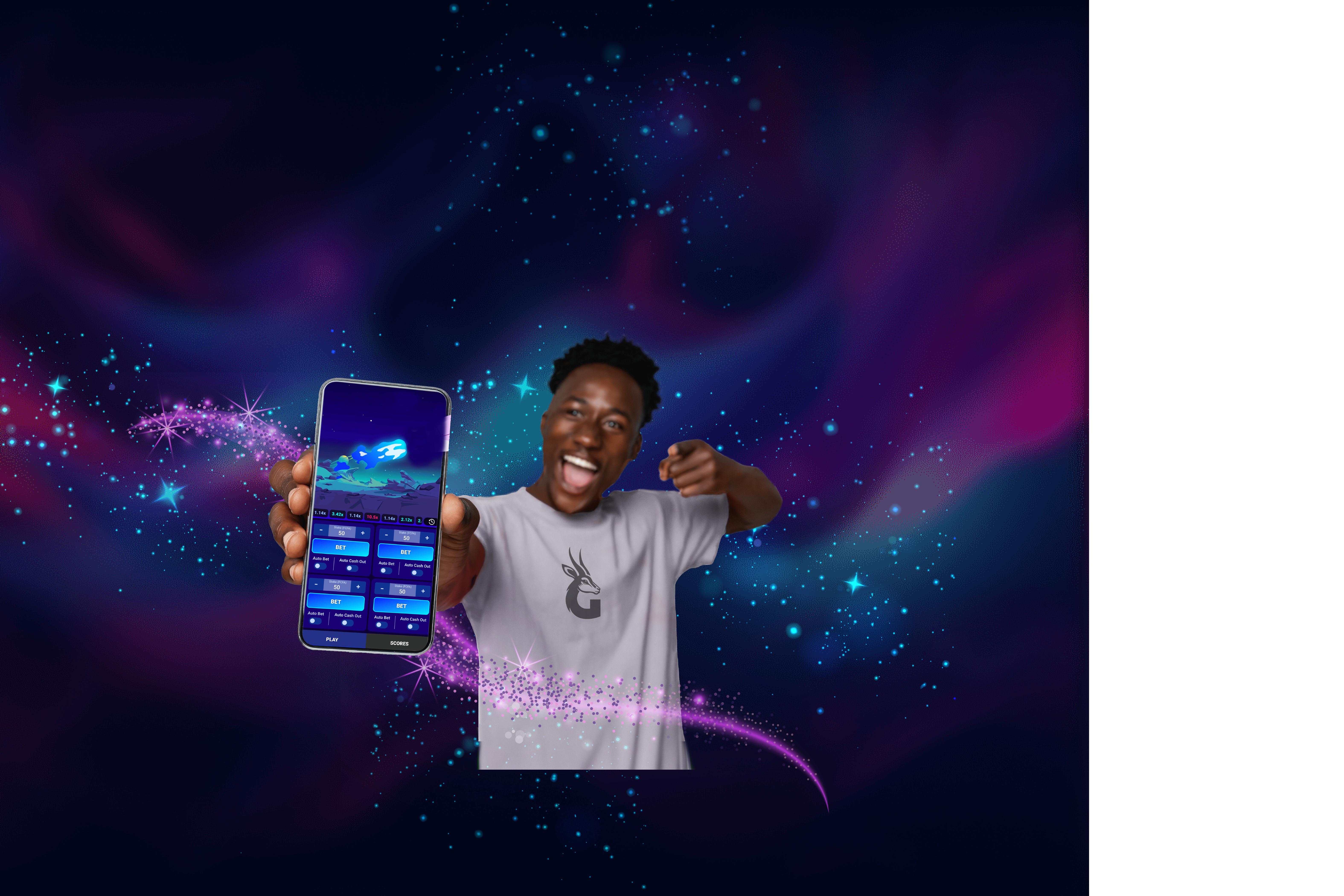








Marek Suchar stands out in iGaming for his deliberate approach to connecting global innovation with the specific needs of local markets. As Managing Director and Co-founder of Oddin.gg, he’s spent the past seven years building what he calls “the industry’s only true end-to-end Esports ecosystem.” From high-integrity odds feeds to interactive BetBuilder tools, Oddin.gg’s approach has redefined how operators can engage a new generation of bettors, especially in emerging markets like Africa. In this exclusive iGaming Afrika Magazine interview, Marek shares how eSims could be the continent’s breakthrough product, why localisation is the key to long-term success, and what African operators can learn from the most mature esports markets around the globe.

Please tell us more about yourself and your role at Oddin.gg.
I co-founded Oddin.gg in 2018 after several years in finance and business development, including time at Citi. My background is in financial management, but I’ve always been drawn to innovation and disruption, and Esports betting presented both.
At Oddin.gg, I lead our global partnership initiatives and market strategy, working closely with iGaming operators and platforms to help them build competitive, engaging, and profitable Esports offerings. I focus on strategic partnerships, market expansion, and aligning our technology with the evolving needs of bookmakers, particularly in emerging markets, such as Africa.
Can you describe how Oddin.gg has evolved since its founding, and what makes your approach to esports betting unique in the B2B space?
We launched Oddin.gg with a clear goal: to build an esports betting solution from the ground up, rather than retrofitting traditional sports betting models. Today, we offer the industry’s only end-to-end Esports ecosystem, covering odds feed, widgets, risk management, BetBuilder, iFrame, 24/7 content, and more.
What makes our approach unique, especially in emerging markets like Africa, is that we don’t treat Esports as one-size-fits-all. We cover both core esports titles like Counter-Strike 2 and League of Legends, and electronic simulators, what we call “eSims”, such as eFootball and eBasketball.
For Africa, eSims are often the more immediately relevant product. They’re familiar to bettors because of their similarity to virtual sports, but with real human players instead of RNG, offering a higher level of integrity. That’s where we see the biggest opportunity for African operators today: using eSims to offer 24/7, fast-cycle content backed by real competition and proven risk management.
Marek Suchar anang’aa katika iGaming kwa mbinu yake ya makusudi ya kuunganisha uvumbuzi wa kimataifa na mahitaji maalum ya masoko ya ndani. Kama Mkurugenzi Mtendaji na mwanzilishi-Mwenza wa Oddin.gg, ametumia miaka saba iliyopita kujenga kile anachokiita "mfumo pekee wa kweli wa Esports wa mwisho hadi mwisho." Kuanzia milisho ya uaminifu wa hali ya juu hadi zana shirikishi za BetBuilder, mbinu ya Oddin.gg imefafanua upya jinsi waendeshaji wanaweza kushirikisha kizazi kipya cha wadau, hasa katika masoko yanayoibukia kama Afrika. Katika mahojiano haya ya kipekee ya Jarida la iGaming Afrika, Marek anashiriki jinsi eSims inaweza kuwa bidhaa bora ya bara, kwa nini ujanibishaji ndio ufunguo wa mafanikio ya muda mrefu, na waendeshaji wa Kiafrika wanaweza kujifunza nini kutoka kwa masoko ya esports yaliyokomaa zaidi ulimwenguni.
Tafadhali tuambie zaidi kuhusu wewe na nafasi yako katika Oddin.gg.
Nilianzisha Oddin.gg mwaka 2018 baada ya miaka kadhaa katika fedha na maendeleo ya biashara, ikiwa ni pamoja na wakati katika Citi. Historia yangu ni katika usimamizi wa fedha, lakini nimekuwa nikivutiwa na uvumbuzi na kuvuruga, na kamari ya Esports ilileta yote mawili.
Katika Oddin.gg, ninaongoza mipango yetu ya ushirikiano wa kimataifa na mkakati wa soko, nikifanya kazi kwa karibu na waendeshaji na majukwaa ya iGaming kuwasaidia kujenga bidhaa za Esports zinazoshindana, zinazovutia, na zenye faida. Ninazingatia ushirikiano wa kimkakati, upanuzi wa soko, na kuoanisha teknolojia yetu na mahitaji yanayobadilika ya waendeshaji, hasa katika masoko yanayoibuka, kama Afrika.
Je, unaweza kuelezea jinsi Oddin.gg imekua tangu kuanzishwa kwake, na ni nini kinachofanya mbinu yako ya kamari ya esports kuwa ya kipekee katika nafasi ya B2B?
Marek: Tulizindua Oddin.gg kwa lengo wazi: kujenga suluhisho la kamari ya esports kutoka mwanzo, badala ya kubadilisha mifano ya kamari ya michezo ya jadi. Leo, tunatoa mfumo wa mwisho wa Esports katika sekta, unaoshughulikia viwango vya uwiano, vidude, usimamizi wa hatari, BetBuilder, iFrame, maudhui ya 24/7, na zaidi.
Kile kinachofanya mbinu yetu kuwa ya kipekee, hasa katika masoko yanayoibuka kama Afrika, ni kwamba hatuichukui Esports kama bidhaa moja inayofaa wote. Tunashughulikia vichwa vya msingi vya esports kama Counter-Strike 2 na League of Legends, na vichochezi vya kielektroniki, kile tunachokiita "eSims", kama eFootball na eBasketball.
Kwa Afrika, eSims mara nyingi ni bidhaa inayohusiana zaidi mara moja. Wamekuwa wakijulikana kwa wachezaji wa kamari kwa sababu ya kufanana kwao na michezo ya pepe, lakini na wachezaji halisi badala ya RNG, wakitoa kiwango cha juu cha uaminifu. Hapo ndipo tunapoona fursa kubwa zaidi kwa waendeshaji wa Kiafrika leo: kutumia eSims kutoa maudhui ya 24/7, ya haraka yanayoungwa mkono na ushindani halisi na usimamizi wa hatari ulio thibitishwa.
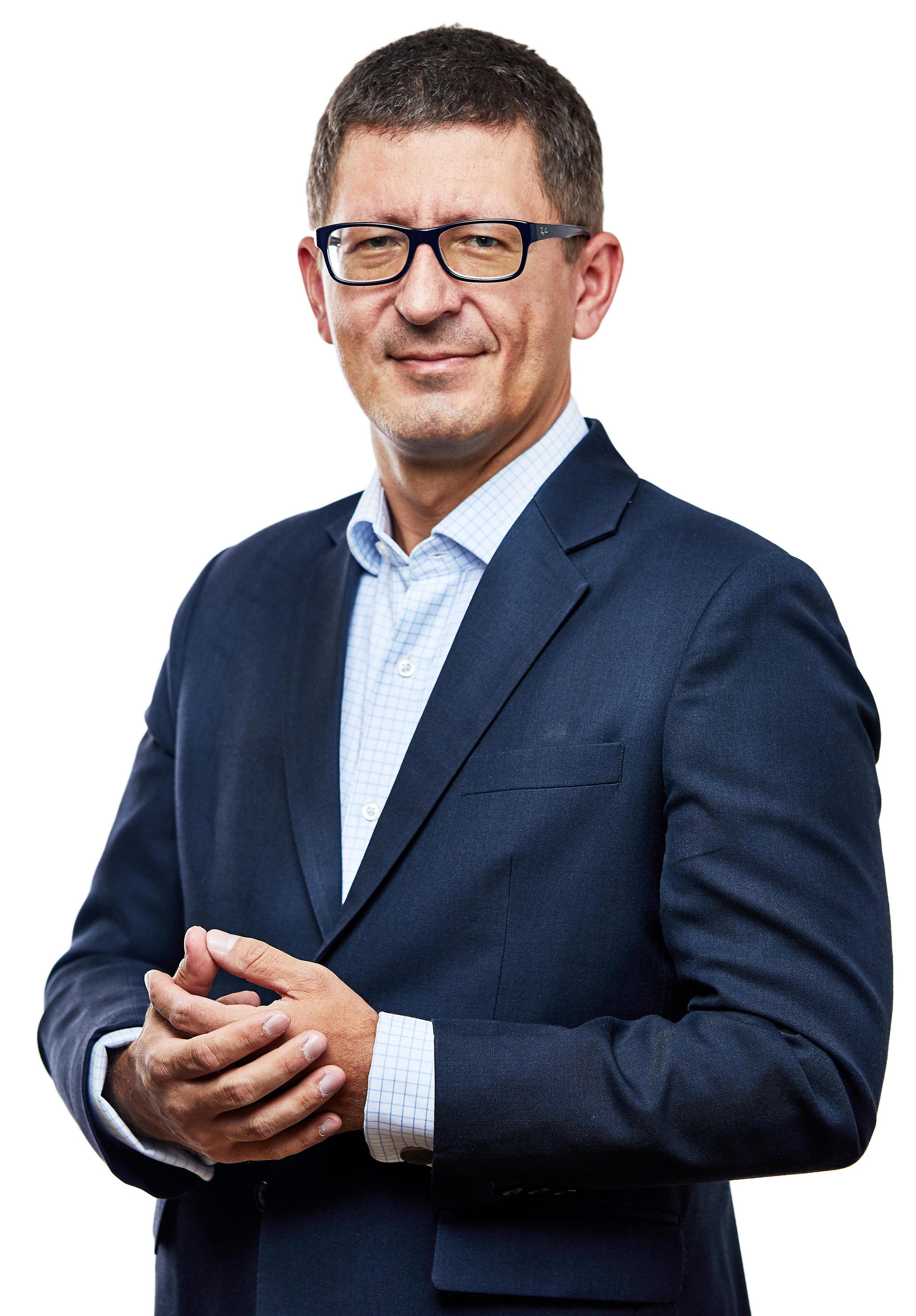
With esports betting revenue projected to reach $2.8 billion globally in 2025, what do you see as the key drivers behind this explosive growth?
It’s driven by a generational shift. Younger audiences are native to digital content, and, in many cases, Esports are their sports of choice. Millennials and Gen Z want fast, interactive entertainment. They’re used to streaming, gaming, and social media, not waiting for scheduled matches. Esports and eSims mirror that consumption pattern perfectly.
But for regions like Africa, we see the immediate driver being eSims specifically. Virtual sports have long been established across the continent, and eSims build on that by offering the same 24/7 availability but with real human players and streamed matches. That makes them more engaging, with a higher level of integrity. For our partners, eSims now represent 8–15% of real sports handle globally, so it’s not just a filler product. It’s a proven growth channel, especially in markets where Esports are still emerging and where player behaviour leans toward familiar formats.
Add to that improved infrastructure, better data feeds, more engaging markets, and products like our BetBuilder, and you’ve got a recipe for growth. Many of our global partners already rank esports among their top five sports by handle, with up to three-figure year-over-year percentage growth in betting volume.
How do new features from gaming software providers such as Bet Builder products make gaming even more interesting for bettors in Africa?
Personalisation is key, especially in mobile-first markets, like Africa. Our BetBuilder lets bettors create virtually unlimited unique bet combinations within a single match, whether in Counter-Strike 2 or eFootball.
But it’s not just about predicting a winner; it’s about allowing bettors to express how they think the match will unfold. That level of engagement leads to higher retention and bigger stakes. It’s flexible, scalable, and built for the next generation of bettors, and we’ve already seen double-digit percentage increases in margin for our partners using it.
A significant challenge for African Esports players is the limited access to reliable infrastructure necessary for full participation in the sport. How can operators and service providers collaborate to improve infrastructure, thereby fostering the growth of Esports across Africa?
The core Esports ecosystem, big tournaments and teams, will take time to grow in Africa. But betting-focused content like eSims doesn’t depend on that infrastructure in the same way, which is part of its appeal. eSims provide 24/7 content streamed from professional international studios, so African operators can tap into high-integrity esports content without waiting for local scenes to mature.
That said, local investment is still important. Operators and providers can collaborate by supporting grassroots Esports hubs, sponsoring events, and engaging regulators in honest conversations about building a healthy, sustainable ecosystem. It’s a step-by-step process, but eSims help bridge that gap today while core esports grow in parallel.
Africa’s Esports betting market is projected to reach $37.5 million in 2025, according to Statista. How do you see this market evolving over the next five years, and what opportunities does it offer for operators?
Africa is one of the most promising long-term regions for Esports. With over 70% of sub-Saharan Africa’s population under 30, a fast-growing mobile-first audience, and local competitive gaming gradually gaining traction, the foundations are already in place.
Huku mapato ya kamari ya esports yakitarajiwa kufikia
$2.8 bilioni duniani mwaka 2025, unaona nini kama vichocheo muhimu nyuma ya ukuaji huu wa kushangaza?
Inasababishwa na mabadiliko ya kizazi. Hadhira vijana ni asili ya maudhui ya kidijitali, na, katika kesi nyingi, Esports ndiyo michezo yao ya uchaguzi. Millennials na Gen Z wanataka burudani ya haraka na ya mwingiliano. Wamezoea kutazama, kucheza michezo, na mitandao ya kijamii, si kusubiri mechi zilizopangwa. Esports na eSims zinaakisi muundo huo wa matumizi kwa ukamilifu.
Lakini kwa maeneo kama Afrika, tunaona kichocheo cha haraka kuwa eSims mahsusi. Michezo ya pepe imekuwa ikijulikana kwa muda mrefu katika bara hili, na eSims inajenga juu ya hilo kwa kutoa upatikanaji sawa wa 24/7 lakini kwa wachezaji halisi na mechi zinazotazamwa. Hiyo inafanya kuwa za kuvutia zaidi, zikiwa na kiwango cha juu cha uaminifu. Kwa washirika wetu, eSims sasa zinawakilisha 8–15% ya mkakati wa michezo halisi duniani, hivyo si bidhaa ya kujaza tu. Ni njia ya ukuaji iliyothibitishwa, hasa katika masoko ambapo Esports bado zinainuka na ambapo tabia ya wachezaji inakabiliwa na mifano inayojulikana.
Ongeza kwa hiyo miundombinu iliyoboreshwa, viwango bora vya data, masoko yanayovutia zaidi, na bidhaa kama BetBuilder yetu, na unayo mapishi ya ukuaji. Wengi wa washirika wetu wa kimataifa tayari wameorodheesha esports miongoni mwa michezo yao tano bora kwa mkakati, wakiwa na ukuaji wa asilimia wa mwaka hadi mwaka wa hadi mara tatu katika kiasi cha kamari.
Vipengele vipya kutoka kwa watoa huduma wa michezo ya kubahatisha kama vile bidhaa za Bet Builder vinawezaje kufanya michezo kuwa ya kuvutia zaidi kwa wabashiri barani Afrika?
Uwezo wa kubinafsisha ni muhimu, hasa katika masoko yanayoangazia simu, kama Afrika. BetBuilder yetu inawawezesha wabashiri kuunda mchanganyiko wa bashiri zisizo na kikomo ndani ya mechi moja, iwe katika Counter-Strike 2 au eFootball.
Lakini si tu kuhusu kutabiri mshindi; ni kuhusu kuwapa wabashiri nafasi ya kuonyesha jinsi wanavyofikiria mechi itakavyokuwa. Kiwango hicho cha ushiriki kinapelekea uhifadhi wa juu na dau kubwa. Ni rahisi, inapanuka, na imejengwa kwa kizazi kijacho cha wabashiri, na tayari tumeshuhudia ongezeko la asilimia mbili za faida kwa washirika wetu wanaotumia.
Changamoto kubwa kwa wachezaji wa Esports barani Afrika ni upatikanaji mdogo wa miundombinu ya kuaminika inayohitajika kwa ushiriki kamili katika mchezo. Je, waendeshaji na watoa huduma wanaweza kushirikiana vipi kuboresha miundombinu, hivyo kusaidia ukuaji wa Esports barani Afrika?
Mfumo wa msingi wa Esports, mashindano makubwa na timu, utachukua muda kukua barani Afrika. Lakini maudhui yanayoangazia kubashiri kama eSims hayategemei miundombinu hiyo kwa njia ile ile, ambayo ni sehemu ya mvuto wake. eSims hutoa maudhui ya 24/7 yanayosambazwa kutoka kwa studio za kimataifa za kitaaluma, hivyo waendeshaji wa Kiafrika wanaweza kupata maudhui ya esports yenye uaminifu bila kusubiri kwa mazingira ya ndani kukua.
Hata hivyo, uwekezaji wa ndani bado ni muhimu. Waendeshaji na watoa huduma wanaweza kushirikiana kwa kusaidia vituo vya Esports vya msingi, kufadhili matukio, na kuhusisha waangalizi katika mazungumzo ya dhati kuhusu kujenga mfumo mzuri, endelevu. Ni mchakato wa hatua kwa hatua, lakini eSims husaidia kuziba pengo hilo leo wakati esports kuu zinakua kwa sambamba.
Soko la kubashiri la Esports barani Afrika linatarajiwa kufikia $37.5 milioni mwaka 2025, kulingana na Statista. Je, unaona soko hili likikua vipi katika miaka mitano ijayo, na ni fursa gani inatoa kwa waendeshaji?
Afrika ni moja ya maeneo yenye ahadi kubwa ya muda mrefu kwa Esports. Pamoja na zaidi ya 70% ya idadi ya watu wa sub-Saharan Afrika wakiwa chini ya umri wa miaka 30, hadhira inayokua kwa kasi inayotumia simu, na michezo ya ushindani wa ndani ikipata umaarufu taratibu, misingi tayari ipo.
Over the next five years, I expect two parallel tracks: operators scaling up their eSims offerings, and a gradual rise in local Esports activity, most likely through tournaments, influencer engagement, and increased investment in tech infrastructure. Operators who approach this with a localised strategy and focus on UX, payment flows, and relevant content will build long-term loyalty rather than chasing quick wins.
What are the biggest challenges you foresee for esports betting operators looking to expand into African markets?
Regulation is still the toughest nut to crack. In many African markets, Esports betting exists in a grey area, it’s either not mentioned at all in legislation, or it’s lumped into broader sports betting categories without any nuance. That makes licencing and compliance a challenge. Then there’s the fragmented payment landscape, onboarding friction, and the need to educate bettors who might not be familiar with esports as a betting vertical.
But these are solvable problems. With the right UX, local partnerships, and a thoughtful approach to education, what looks like a barrier today can become a long-term advantage for first movers.
How can providers work with regulators and integrity providers to ensure a safe and compliant esports betting environment, especially in regions where regulation is still developing?
It starts with education. Regulators need to understand how Esports work, how matches are structured, how betting behaviour differs from traditional sports, and what safeguards are already in place. That’s why we regularly engage in conversations with regulators across markets, also sharing the lessons we’ve learnt from more mature jurisdictions.
Oddin.gg's risk management tools are designed to monitor patterns in real time, flag irregularities, and provide operators with actionable data to protect both their margins and their bettors. It’s not just about compliance, it’s about giving regulators and operators the confidence to grow the market responsibly.
What lessons can African operators learn from more mature esports betting markets in Europe, Asia, and North America?
One lesson is that Esports fans are not the same as traditional sports fans. You can’t just copy-paste a football sportsbook setup and expect it to work for CS2 or eFootball. Operators need to meet esports bettors with the right UI, streaming integrations, and bet types. You also can’t rely on manual processes, automation is key to delivering the speed and scale that Esports demands. If African operators build out with these lessons in mind, they’ll already be ahead of the curve.
What are the main barriers to entry for international esports betting platforms in Africa, and how does Oddin.gg help partners overcome them?
Localisation is a major hurdle. What works in Europe won’t necessarily work in Kenya, Nigeria, or South Africa. From front-end interfaces to supported payment systems, everything needs to be tailored. Oddin.gg’s modular end-to-end ecosystem allows partners to localise with minimal friction, whether that’s adjusting odds models, integrating local favourites when it comes to esports titles, or offering front ends in local languages. We also bring experience from other emerging markets around the world, which helps when it comes to licensing and integrations, allowing our partners to avoid any of the typical rookie mistakes when starting out.
Katika miaka mitano ijayo, nakisia njia mbili zinazokua kwa sambamba: waendeshaji wakiongeza huduma zao za eSims, na kuongezeka taratibu kwa shughuli za Esports za ndani, kwa uwezekano mkubwa kupitia mashindano, ushirikiano na waathiriwa, na kuongezeka kwa uwekezaji katika miundombinu ya teknolojia. Waendeshaji wanaokabiliana na hili kwa mkakati wa ndani na kuzingatia UX, mchakato wa malipo, na maudhui yanayohusiana watajenga uaminifu wa muda mrefu badala ya kufuata ushindi wa haraka.
Ni changamoto gani kubwa unazoziona kwa waendeshaji wa kubashiri esports wanaotaka kupanua katika masoko ya Afrika?
Udhibiti bado ni changamoto kubwa. Katika masoko mengi ya Afrika, kubashiri kwa Esports kunaishi katika eneo la sintofahamu, ama hakujatajwa kabisa katika sheria, au imewekwa katika makundi makubwa ya kubashiri michezo bila ufafanuzi wowote. Hii inafanya leseni na kufuata sheria kuwa changamoto. Kisha kuna mazingira yaliyovunjika ya malipo, matatizo ya kujiunga, na haja ya kuelimisha wabashiri ambao huenda hawajafahamiana na esports kama wima ya kubashiri.
Lakini hizi ni shida zinazoweza kutatuliwa. Kwa muundo sahihi wa UX, ushirikiano wa ndani, na mtazamo wa kufikiria kwa makini kuhusu elimu, kile kinachoweza kuonekana kama kizuizi leo kinaweza kuwa faida ya muda mrefu kwa wachezaji wa kwanza.
Waendeshaji wanaweza vipi kufanya kazi na waangalizi na watoa huduma wa uaminifu ili kuhakikisha mazingira salama na yanayofaa ya kubashiri esports, hasa katika maeneo ambapo udhibiti bado unakua?
Inaanza na elimu. Waangalizi wanahitaji kuelewa jinsi Esports inavyofanya kazi, jinsi mechi zinavyopangwa, jinsi tabia za kubashiri zinavyotofautiana na michezo ya jadi, na ni hatua zipi za usalama ambazo tayari zipo. Ndio maana mara kwa mara tunashiriki katika mazungumzo na waangalizi katika masoko, pia tukishiriki masomo tuliyojifunza kutoka kwa maeneo yaliyo na maendeleo zaidi.
Zana za usimamizi wa hatari za Oddin.gg zimedhaminiwa kufuatilia mifumo kwa wakati halisi, kuangazia tofauti, na kuwapa waendeshaji data inayoweza kutekelezwa ili kulinda faida zao na wabashiri wao. Si tu kuhusu kufuata sheria, ni kuhusu kuwapa waangalizi na waendeshaji ujasiri wa kukuza soko kwa njia inayofaa.
Ni masomo gani waendeshaji wa Kiafrika wanaweza kujifunza kutoka kwa masoko ya kubashiri esports yaliyo na maendeleo zaidi barani Ulaya, Asia, na Amerika Kaskazini?
Somo moja ni kwamba mashabiki wa Esports si sawa na mashabiki wa michezo ya jadi. Huwezi tu kunakili na kuweka mpangilio wa kubashiri wa soka na kutarajia itafanya kazi kwa CS2 au eFootball. Waendeshaji wanahitaji kukutana na wabashiri wa esports kwa UI sahihi, uunganisho wa utiririshaji, na aina za ubashiri. Huwezi pia kutegemea michakato ya mikono, uotomatishaji ni muhimu katika kutoa kasi na kiwango ambacho Esports inahitaji. Ikiwa waendeshaji wa Kiafrika watajenga kwa kuzingatia masomo haya, watakuwa tayari mbele ya mwelekeo.
Ni vizuizi gani vikuu vya kuingia kwa majukwaa ya kubashiri esports ya kimataifa barani Afrika, na Oddin.gg inasaidiaje washirika kushinda vizuizi hivyo?
Utafsiri ni kikwazo kikuu. Kile kinachofanya kazi barani Ulaya hakiwezi kufanya kazi nchini Kenya, Nigeria, au Afrika Kusini. Kuanzia kwenye viwasilishi za mbele hadi mifumo ya malipo inayoungwa mkono, kila kitu kinahitaji kuboreshwa. Mfumo wa moduli wa Oddin.gg unaruhusu washirika kuboresha kwa urahisi, iwe ni kurekebisha mifano ya viwango vya ubashiri, kuunganisha wapendwa wa ndani linapokuja suala la vichwa vya esports, au kutoa viwasilishi ya mbele katika lugha za ndani. Pia tunaleta uzoefu kutoka masoko mengine yanayoibuka duniani, ambayo yanasaidia linapokuja katika suala la leseni na uunganishaji, ikiruhusu washirika wetu kuepuka makosa ya kawaida ya wapya wanapozindua.
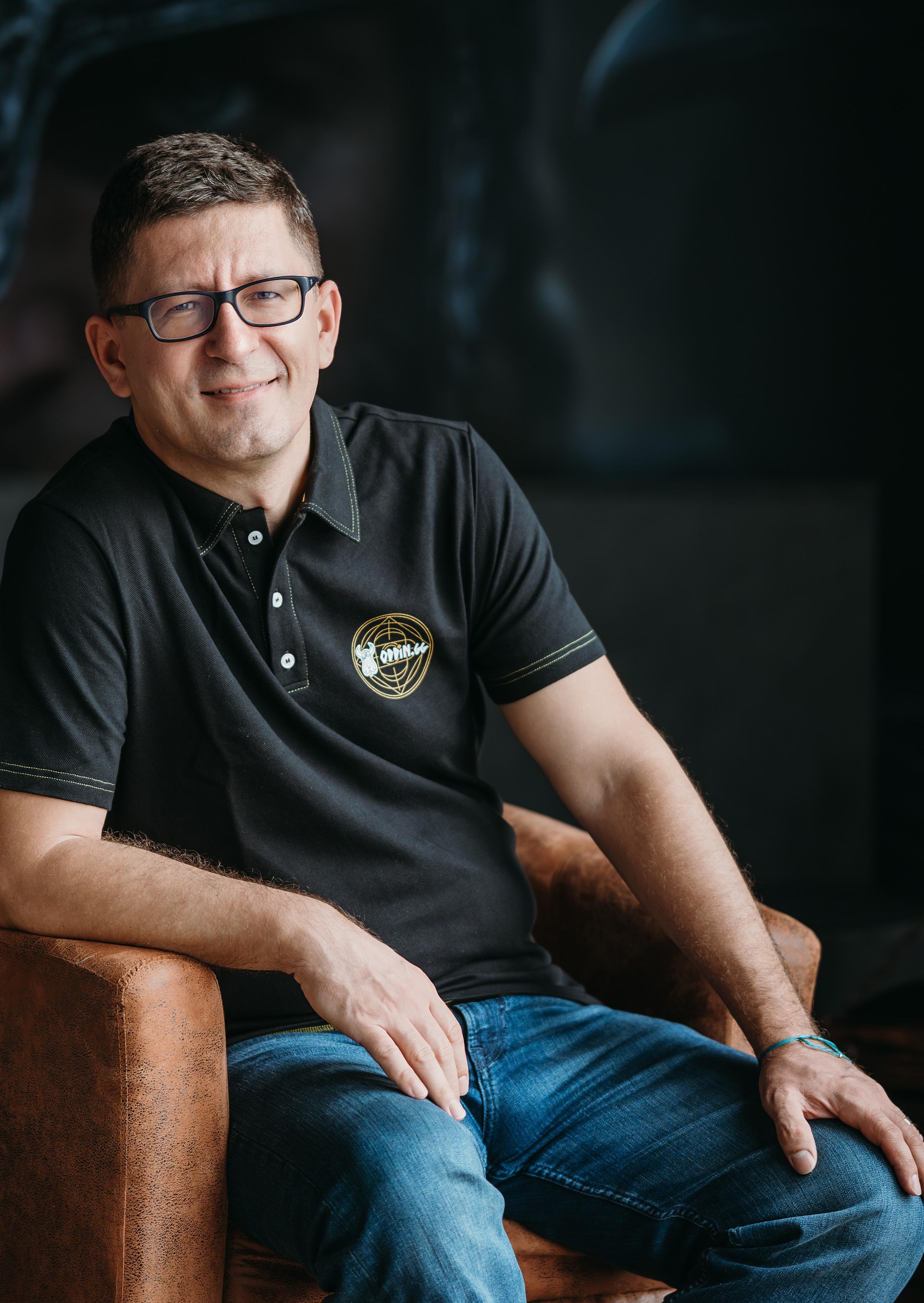
Esports fans are not the same as traditional sports fans. You can’t just copy-paste a football sportsbook setup and expect it to work for CS2 or eFootball.
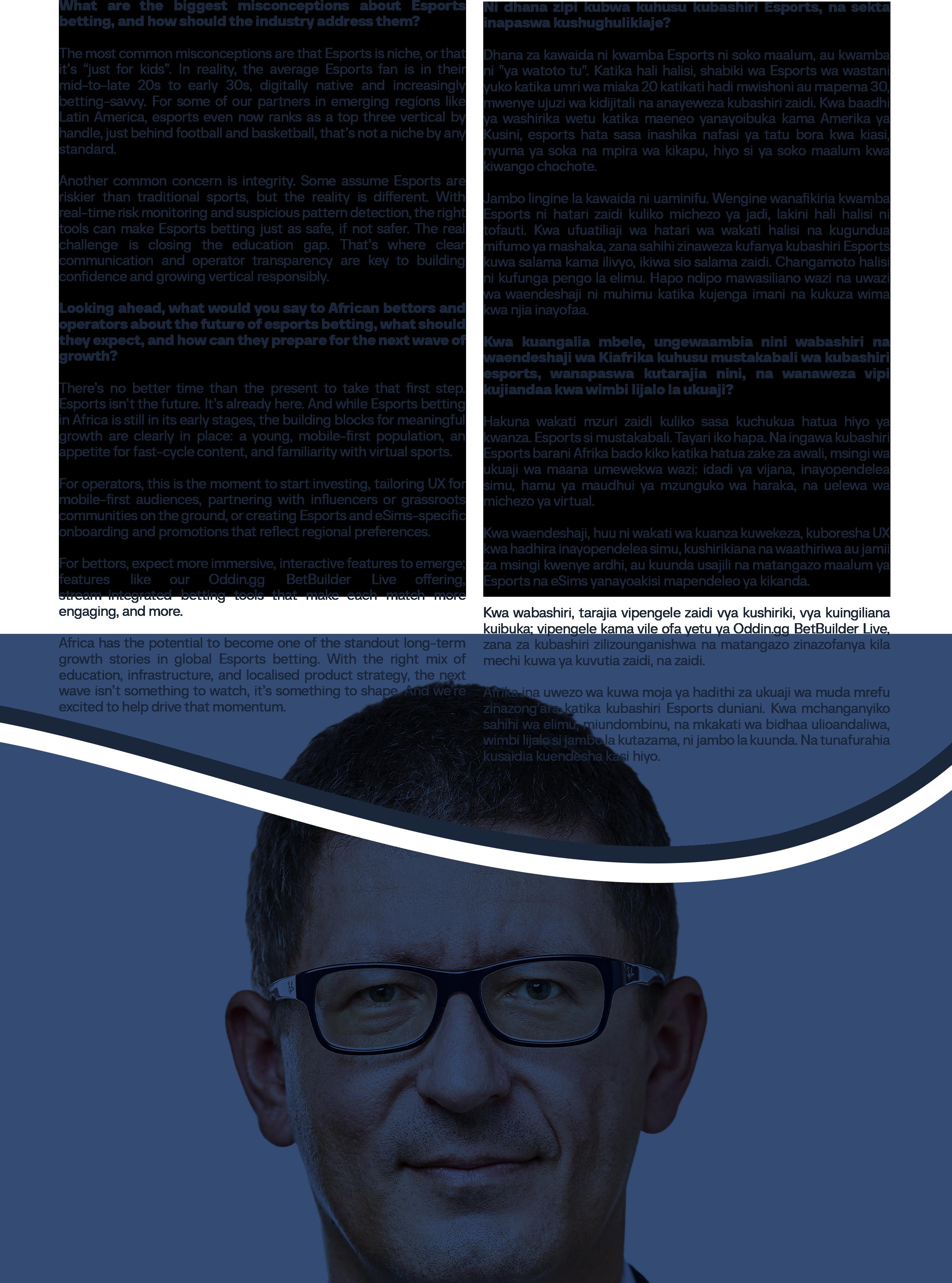
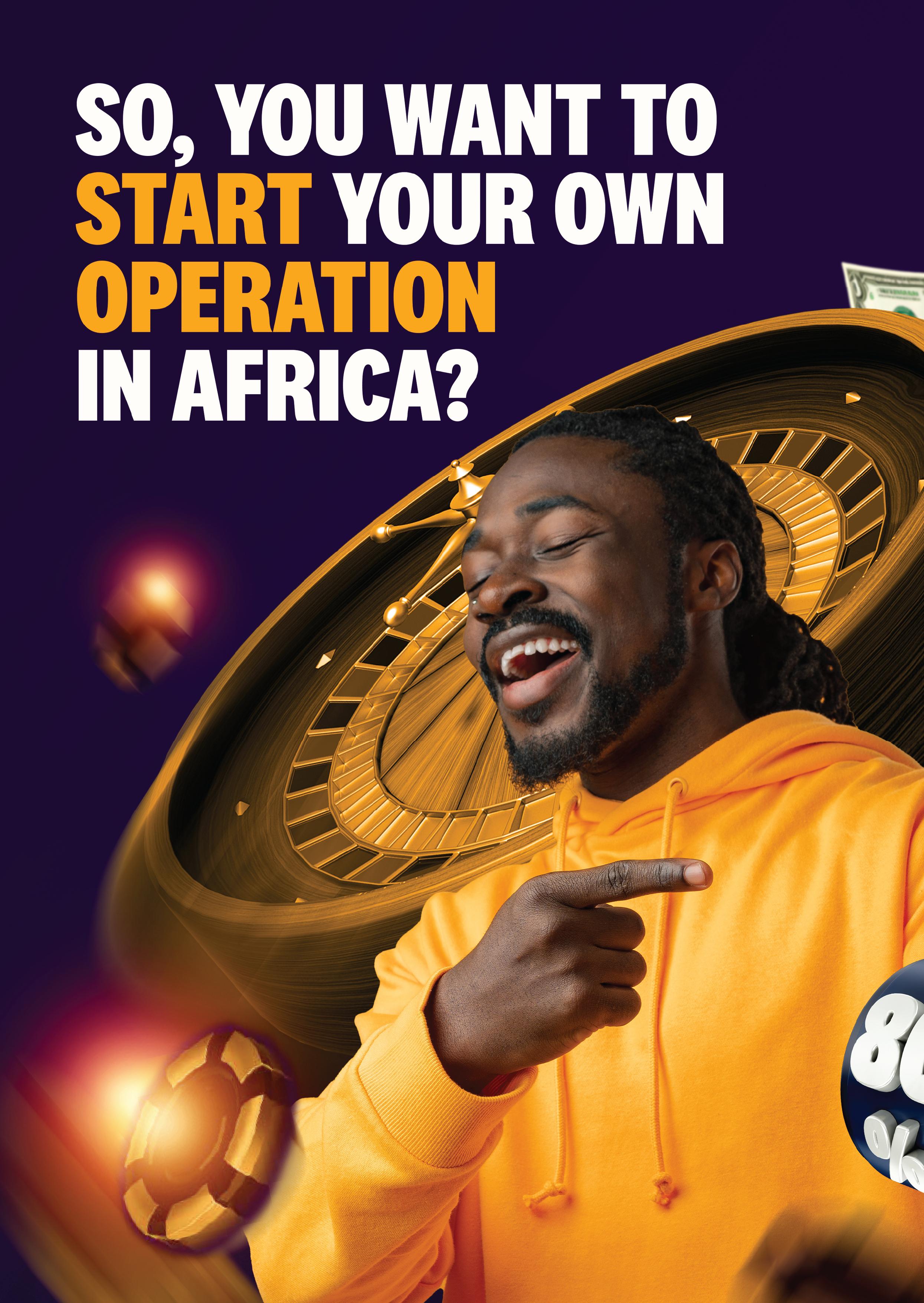



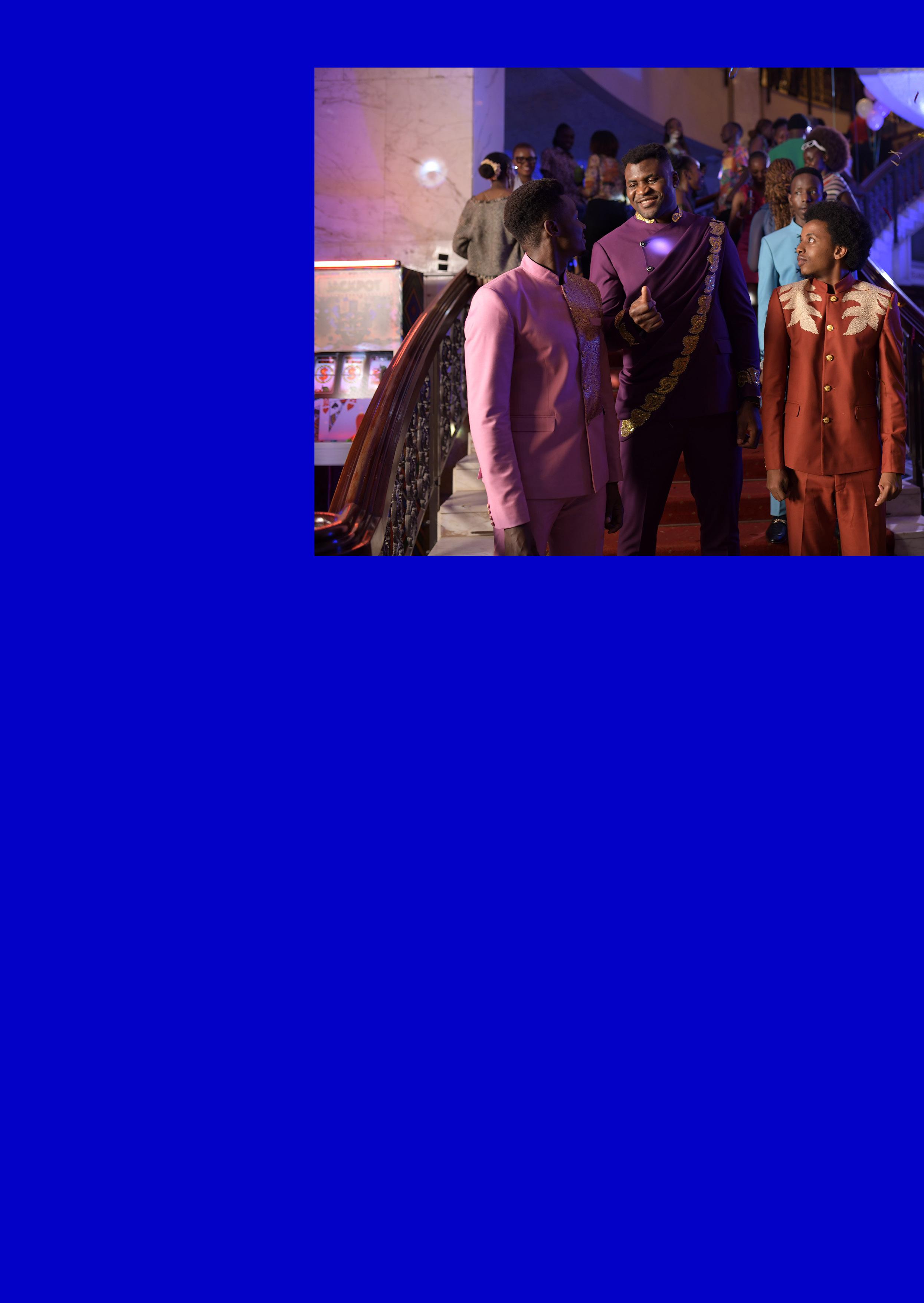
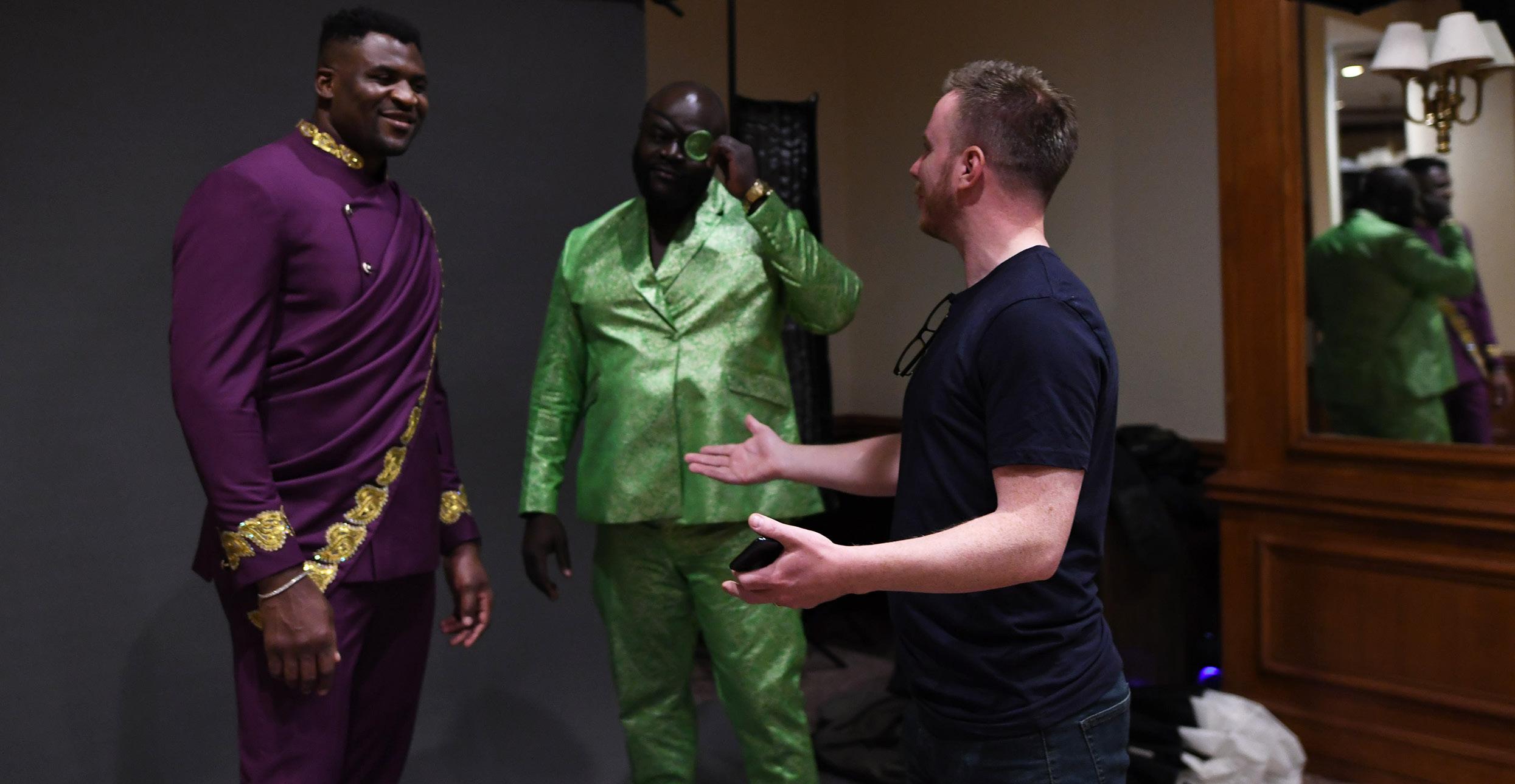
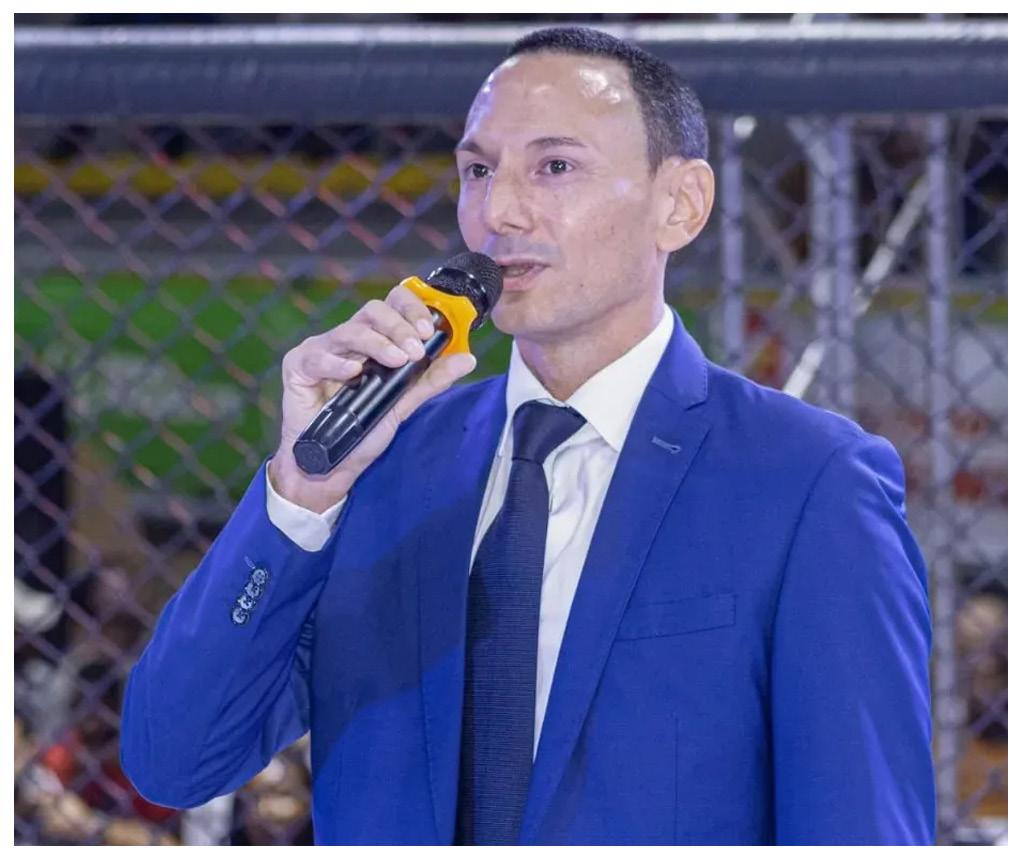
" We were thrilled to extend the collaboration with our great champion, Francis Ngannou, and broaden his connection to the Premier Bet family and beyond. I think we clearly share the same vision; we have the same ambitions in Cameroon and now on a Pan-African scale. Francis' passion, drive and humility make him an ideal partner for us as we continue to grow our brand and connect with our customers." - Alexandre Qader (Director of Operations at Premier Bet Cameroon)
As Premier Bet Brand Ambassador, Francis Ngannou will play an active role in promoting responsible gambling, participate in exclusive events, provide expert insights and champion CSR projects. All with the primary aim to uplift African communities.
Premier

The House of Premier Bet extends beyond just a TV advert. OOH and digital advertising campaigns have been rolled out across Premier Bet’s markets. There are also many more exciting things to come, including a content series that uses the characters within the advert to humanise Premier Bet’s online products, features and promotions. This will be supported in a multi-faceted social media campaign. The goals of the campaign are to further engage both new and existing customers with the brand, leveraging human content created by their staff, influencers, the ambassadors of the company, the official partners and of course, the well-treated customers.
“It’s all about building a brand that customers can connect with and have a relationship with. Something that feels real, something that they believe in and trust. Of course, it’s about winning money, but it’s also about escaping and having fun.”Jason Williams (Head of Brand Marketing, Goat Interactive)
There are also plans to run a host of local events where the ‘House of Premier Bet’ is recreated. Customers can win exclusive tickets to attend secret venues that will host a mix of local music, food, games and competitions with special guests to meet and prizes to be won.
To see the advert for yourself, head over to any one of Premier Bet’s YouTube accounts below:
For an English version: @premierbetmw
For a French version: @premierbetcm
For a Portuguese version: @premierbetao
For a Swahili version: @premierbettz
Premier Bet & Partner brands o er retail and online betting products in 20 African markets. With a 25-year legacy across the continent, they currently operate in Angola, Cameroon, Congo Brazzaville, DRC, Ethiopia, Gabon, Ghana, Guinea, Liberia, Malawi, Mali, Mozambique, Namibia, Nigeria, Senegal, Sierra Leone, Tanzania, Uganda, and Zimbabwe.
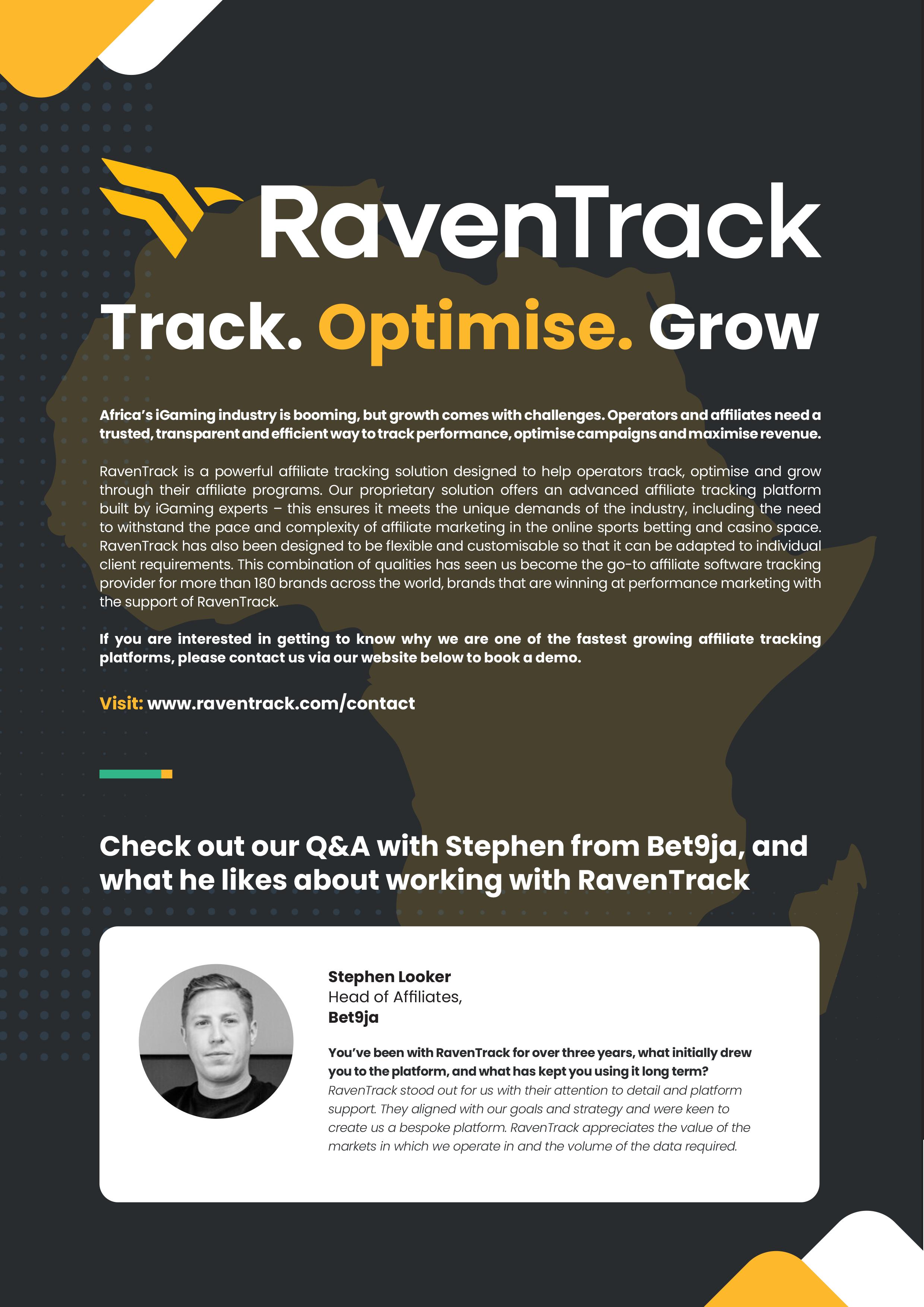
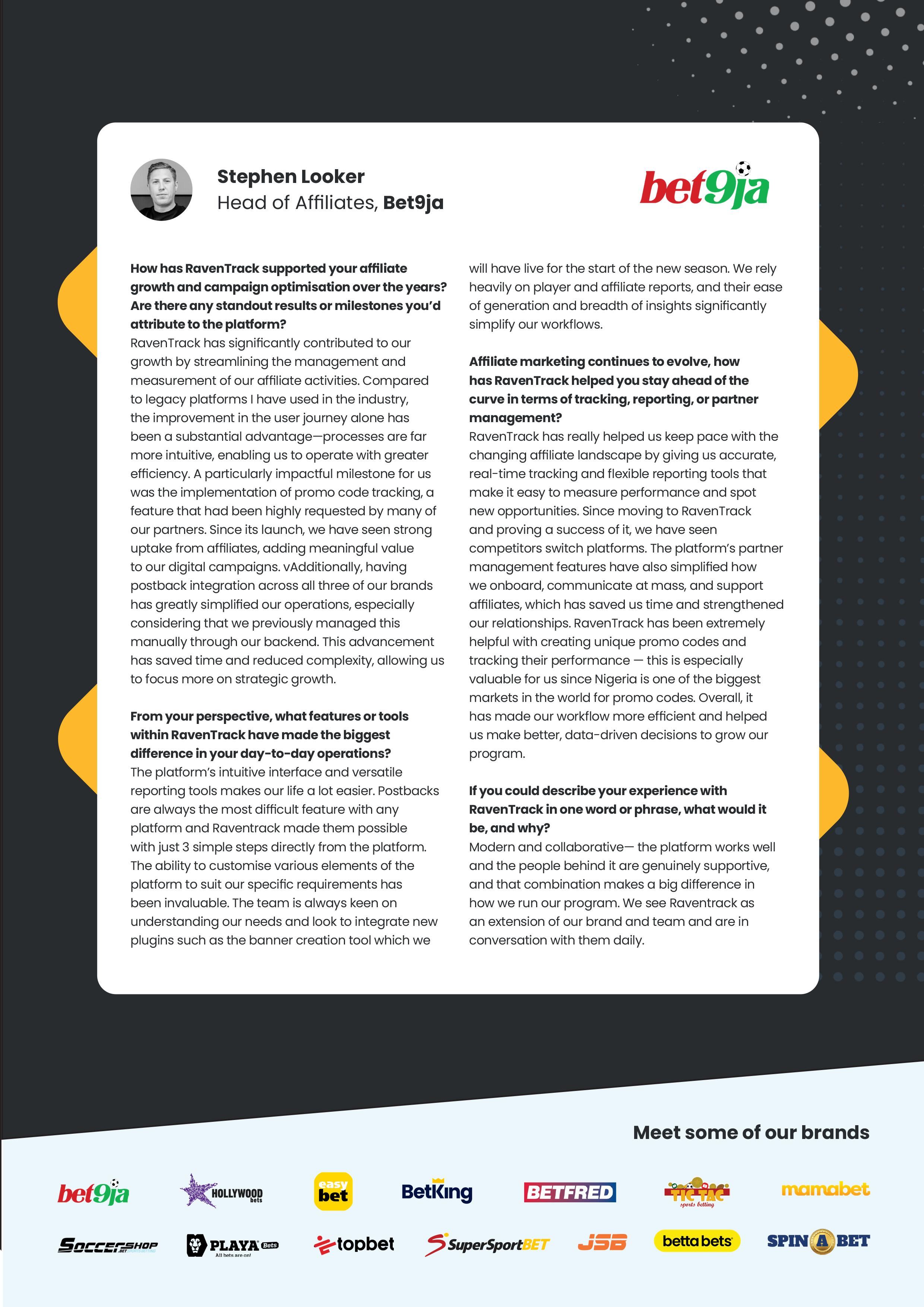


by Kenneth Mugambi
Affiliate Manager, Afriadz Affiliates

Mary Wanja
Content Manager, iGaming AFRIKA

In the fast-moving world of online gaming, something more than just flashy jackpots or leaderboard wins is reshaping the way we play: Artificial Intelligence. AI is actively reshaping the global iGaming industry. From automated game development and real-time personalization to responsible gaming tools and marketing optimization, AI is embedded in nearly every layer of the digital gaming experience.
While the potential is immense, so are the questions: Who benefits most from these advancements? How do we ensure AI is ethically implemented? And in regions like Africa, where infrastructure and data context differ from global norms, how can AI be adapted to serve local needs rather than replicate imported models? Depending on who you ask, it is either a game-changer or a warning sign or, in some cases, both.
These questions were at the heart of a recent webinar hosted by iGaming AFRIKA, where industry leaders explored both the promise and pressure that comes with integrating AI into iGaming.
“
Now, AI is helping platforms detect suspicious behavior before it causes real damage. AI systems can identify patterns that humans would miss, like hundreds of small deposits from the same IP, or subtle signals of account takeovers.

AI and Responsible Gambling
Interestingly, the same technology used to keep players engaged can also help protect them. According to an article by Gambling Insider in 2023, Companies like Mindway AI are leading the charge in responsible gambling solutions powered by machine learning. Their tools can detect signs of risky behavior before it spirals into full-blown addiction and suggest interventions in real time.
“Through AI we currently detect more than 6.5 million active players per month globally,” said Rasmus Kjaergaard, CEO of Mindway AI. “Our algorithm is trained to weigh different indicators of behavior to provide insights, which we call Explainable AI. This allows operators to easily and more individually identify players who are flagged as at-risk and intervene at an early stage before a problem escalates.”
This technology is already taking shape through the strategies of leading global providers like Playtech. Its platform, BetBuddy, leverages artificial intelligence to support responsible gambling by detecting behavioral patterns that may signal early signs of risk, enabling timely, targeted interventions to protect vulnerable players and strengthen trust across the ecosystem.
In Issue 5 of the iGaming AFRIKA Magazine, Shivika Singh, a seasoned gaming consultant with experience at Tsogo Sun and Sun International, shared her vision for how AI could shape the future of gaming across Africa.
“Artificial Intelligence is set to transform gaming from personalized recommendations and predictive analytics to fraud detection and responsible gaming tools that create a safer, smarter ecosystem,” For Singh, AI’s greatest promise lies in its capacity to foster safer, smarter, and more adaptive ecosystems tailored to the realities of emerging markets.
Behind the scenes, AI is also transforming how operators fight fraud. From bonus abuse to fake accounts, the iGaming space has long been a target for cheaters. Now, AI is helping platforms detect suspicious behavior before it causes real damage. AI systems can identify patterns that humans would miss, like hundreds of small deposits from the same IP, or subtle signals of account takeovers. It is faster, more scalable, and increasingly essential. But just like in player personalization, transparency and fairness matter. When AI flags a legitimate user incorrectly, it can be difficult for them to challenge or even understand what happened.
Conversations on AI and technology are already sparking lively debates, such as the June 2025 seminar held by the African Lotteries Association (ALA) in Abidjan, which focused on artificial intelligence and security for African lotteries.
Meanwhile, across social platforms like LinkedIn, some users’ feel it is “starting to feel a bit like the robots are taking over,” as Nathan Thompson of Copy.ai puts it. Professionals in gaming, tech, and digital strategy have continued to highlight AI’s creative potential, with designers and developers praising its ability to generate game assets, immersive environments, and dynamic storylines. Content strategists, however, caution that AI-generated communication may dilute authenticity, especially in brand storytelling.
AI
So, is AI good or bad for iGaming? In my view, that depends entirely on how it is used. There’s no doubt AI is transforming the industry, helping developers move faster, enabling players to enjoy personalized experiences, and allowing platforms to operate with greater efficiency and safety. But it is also opening the door to new risks: over-personalization, and ethical grey areas that regulators are only beginning to understand. Like any tool, AI can empower or exploit depending on who is holding the keys.
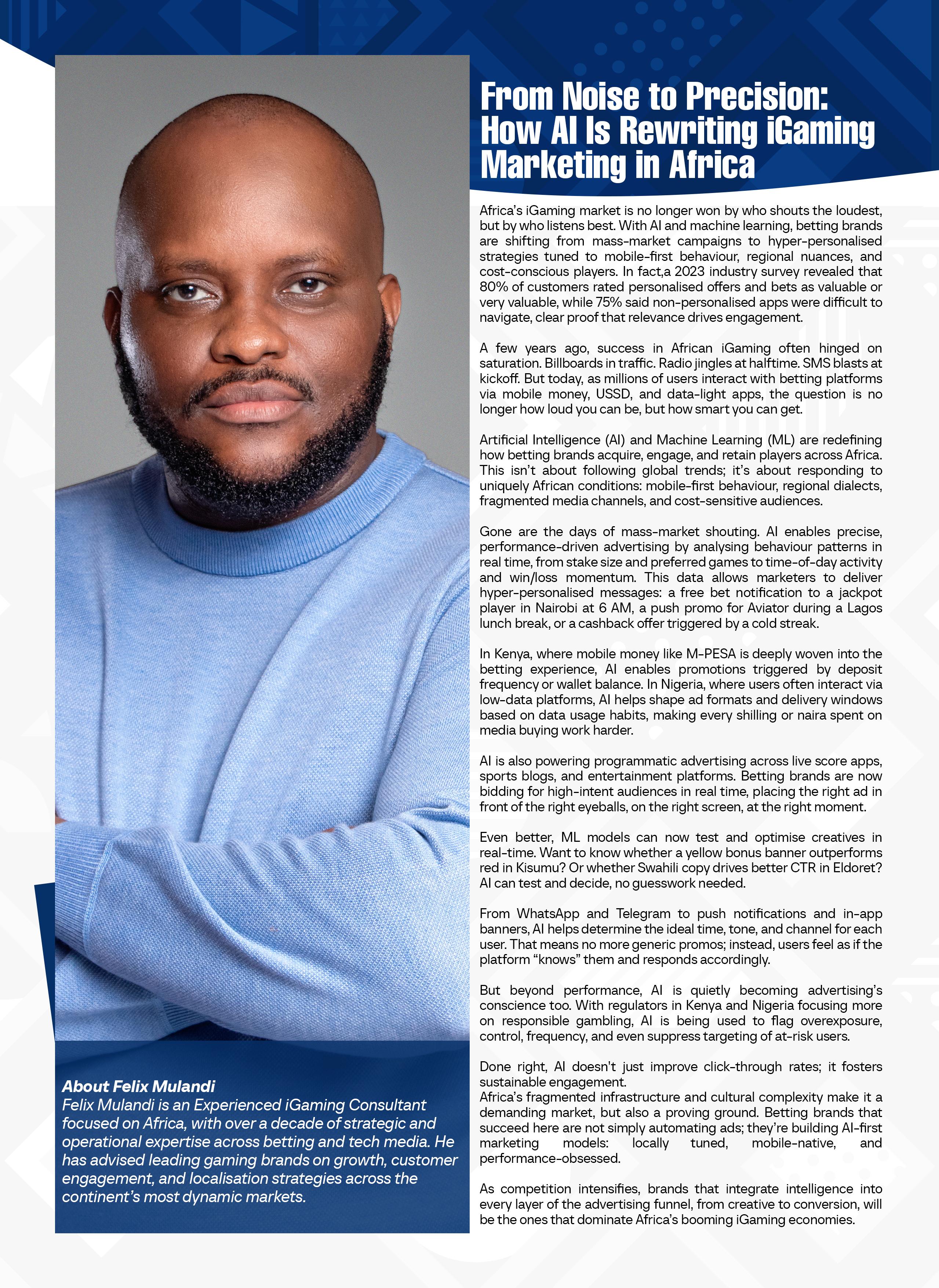


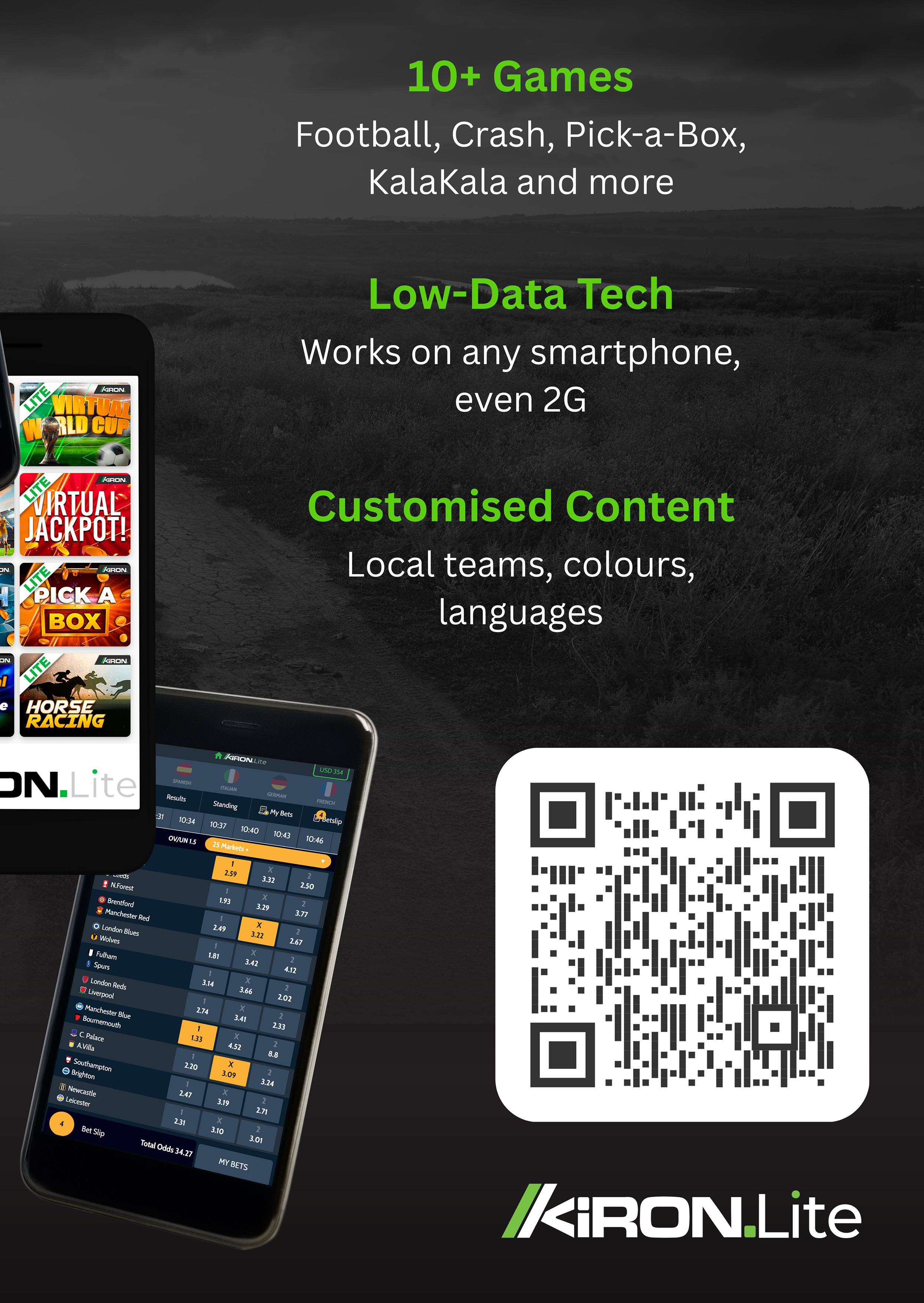

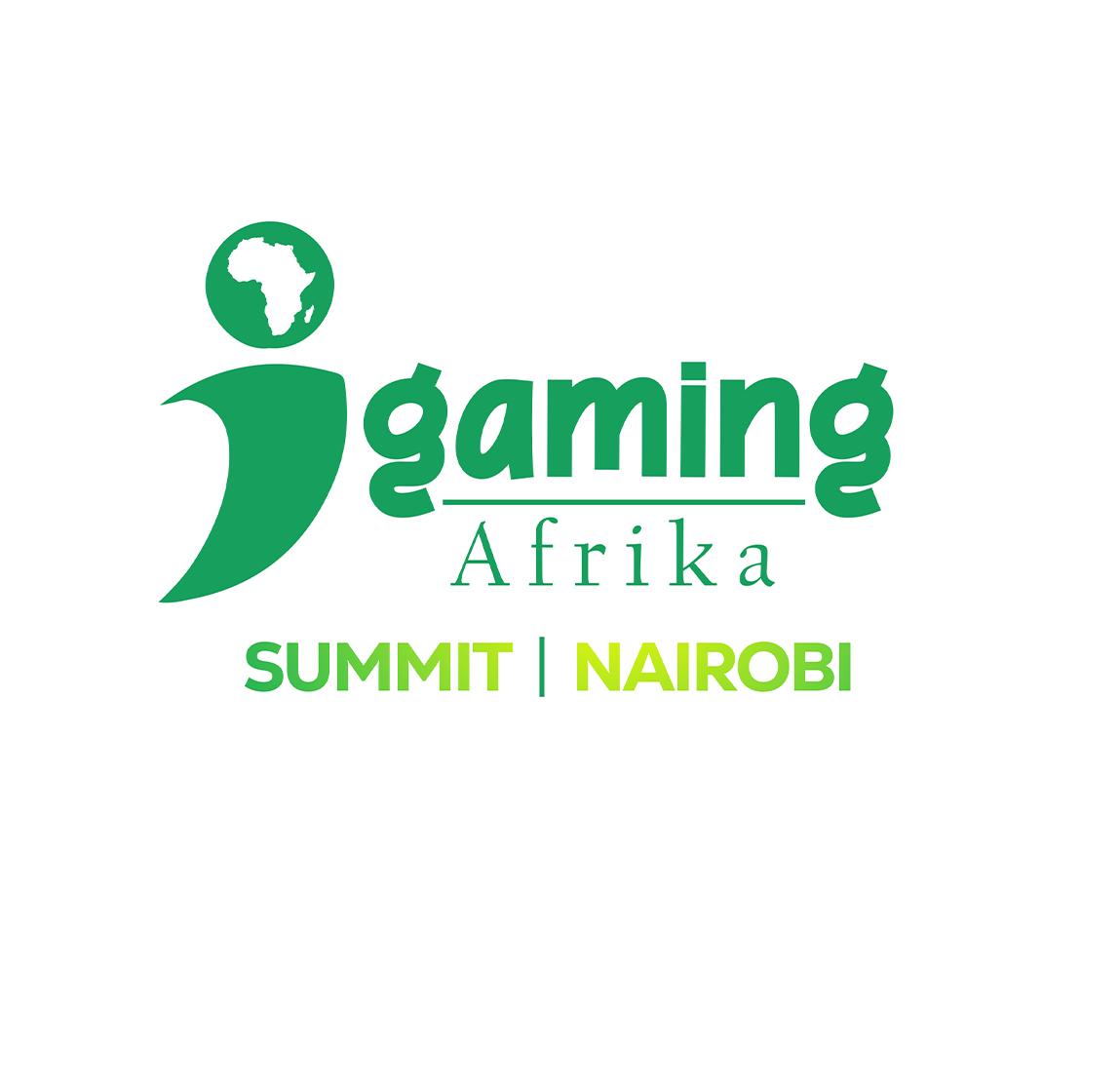

In May 2026, Nairobi will take center stage as it hosts the inaugural iGaming AFRIKA Summit (iGA Summit 2026) from May 4–6 at the Sarit Expo Centre. Under the slogan 'The Heart of Gaming in Africa,' this landmark event will unite gaming industry players from around the world, creating an unparalleled platform for networking, innovation and business in Africa’s booming gaming market.
The iGA Summit is breaking new ground as the first-ever event of its scale within the iGaming industry to offer a free entry pass on the continent. This bold and inclusive move is aimed at enhancing accessibility and opening doors to everyone in the industry. Kenya's recent decision to eliminate visa requirements for citizens of most African and Caribbean nations, further strengthens this accessibility, allowing attendees from over 100 countries to participate without Electronic Travel Authorization (ETA), lengthy forms, or visa fees.
With over 3,500 delegates, 100 speakers, 500 operators, and more than 100 exhibitors and sponsors expected, the iGaming AFRIKA Summit will serve as a pivotal convergence point for industry leaders and innovators. Attendees will gain vital insights across key verticals such as regulation, affiliate marketing, emerging technologies, fintech innovations, and more through curated sessions and expert panels. This diverse range of topics will ensure that Africa’s unique opportunities and challenges are addressed from both local and international perspectives, paving the way for long-term industry growth.
As Nairobi’s largest and most advanced exhibition venue, the Sarit Expo Centre spans an impressive 3,300 square meters, offering a world-class platform for exhibitors and delegates to connect, showcase their innovations and product offerings. The summit provides a variety of options and packages for exhibitors, who can choose between the ready-made Shell scheme and space-only options with booth sizes range from 2x2 meters to a spacious 6x5 meters.
Beyond opportunities for connecting and networking, attendees can elevate their brand visibility by choosing from our sponsorship packages. These packages provide maximum exposure to industry leaders across the continent, ensuring your brand stands out and leaves a lasting impression. With over 35 sponsorship packages to choose from, including opportunities for the soccer tournament, safari tour, awards categories, the closing night event, and expo venue branding, there is definitely something for everyone.

Delegates can now choose their Summit experience based on the event's tiered ticketing system that ranges from the Standard Pass which is perfect for first-time attendees and startups eager to explore opportunities, to premium VVIP packages tailored for seasoned professionals and executives seeking exclusive networking, private meetings, and elevated experiences.
With only a business email registration, first-time attendees can unlock a wide range of benefits at no cost. The Standard Ticket grants access to the welcome reception, the pre-registration and networking event, and even a soccer tournament ticket. Most importantly, free-ticket holders receive full access to the exhibition floor and the Main Stage, where some of the industry’s most insightful sessions will be held.
For those seeking a more comprehensive experience, the Premium Ticket, priced at $200, alongside all the free-ticket benefits, unlocks entry into Conference Hall 2, providing deeper insights through exclusive sessions. These ticket holders also enjoy access to the iGaming AFRIKA Closing Party, the iGaming AFRIKA Awards Dinner, and a \$50 meal voucher.
At the top tier, the Executive/VVIP Ticket, priced at $600, offers the ultimate summit experience. In addition to all the benefits included in the Free and Premium categories, VVIP attendees enjoy exclusive access to the iGaming AFRIKA Konnect Space, VIP Lounge, and VIP Networking Events, all designed to facilitate high-value interactions with over 200 C-Suite executives. This package also includes access to private meeting rooms and the exciting Safari Tour that will giving them a chance to experience Kenya’s incredible wildlife and stunning landscapes.
Affiliates and operators are eligible for the free pass. Operators will however get the VIP experience that is specially curated for them. What’s even more exciting is that delegates now have the flexibility to customize their experience by selecting the benefits they want for each ticket option and will only be billed for the features they choose.
Poised at the intersection of innovation, opportunity, and cultural vibrancy, the iGaming AFRIKA Summit 2026 is set to redefine the continent’s gaming narrative. With Nairobi as its dynamic backdrop, this landmark event promises a curated experience where global vision meets African ingenuity.

2,118 READS IMPRESSIONS: 208,140








In the expanse of iGaming media, one name stands out as a beacon of excellence iGaming AFRIKA. As a leading award winning iGaming media publication platform, we have redefined the narrative, delivering unparalleled coverage of iGaming news across the African continent. Our journey, marked by passion, integrity, and a commitment to excellence, has solidified our position as the go-to source for all things iGaming in Africa
ounded with a vision to elevate the iGaming conversation in Africa, iGaming AFRIKA embarked on its journey in 2024 Over the years, we have cultivated a rich history markedby insightful reporting, industry-shaping interviews, and a dedication to fostering a deeper understanding of the iGaming landscape. One of the key milestones is ourcommitment to reaching the entire continent withourcontent.
Our journey with the iGaming AFRIKA magazine a ground-breaking initiative that is quickly becoming the cornerstone of our commitment to providing localized, Africa-centric content.
istinguishing ourselves from the norm, we here at iGaming AFRIKA stand out not merely for the content we deliver but, more importantly, for the distinctive manner in which we approachreporting. At the heart of thisdistinctiveness lies our team of dedicated professionals, a collective force fuelled by a passion for iGaming and a commitment to journalistic excellence. Beyond the conventional boundaries of reporting, we delve into the intricacies of the iGaming space,presenting our readers with a depthof insight that surpasses surface-levelnarratives.
Moreover, our network of industry insiders, cultivated over time, enables us to go beyond the obvious and access exclusive perspectives, insider knowledge, and behind-the-scenes narratives that add a layer of richness to ourcoverage.

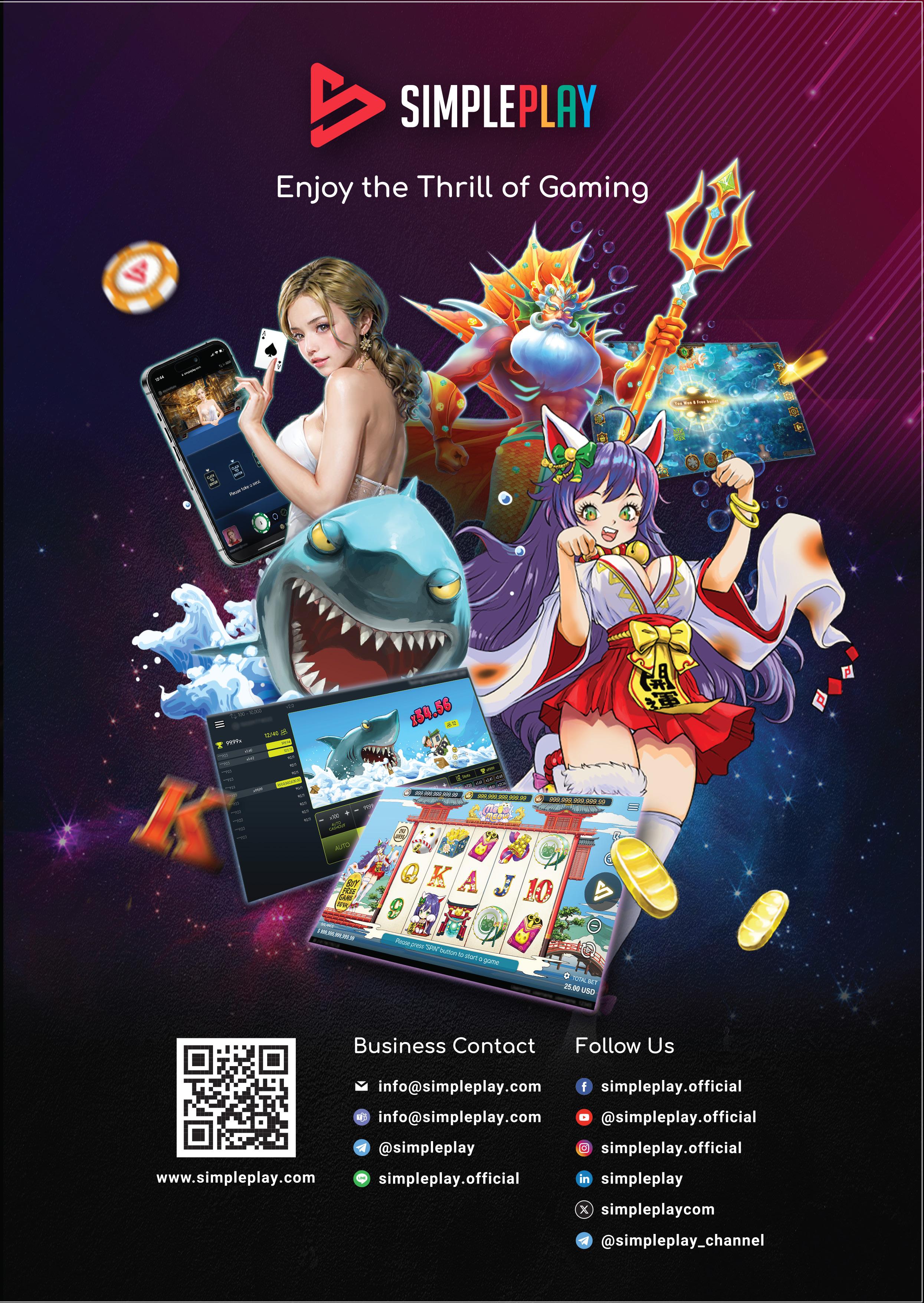


One of the most practical challenges discussed was implementation. According to Vishal, integrating AI starts with identifying where it adds the most valuethat is, CRM, loyalty systems, fraud detection, or player behaviour analysis. Platforms must then choose the right models and train internal teams accordingly. Future innovations could even include co-built sandboxes where developers, operators, and regulators jointly test AI features before deployment.
Despite the immense promise, panellists agreed that AI is a double-edged sword. Vishal cautioned that, like any powerful tool, AI can be used for both good and harmful purposes. “Like any tool, AI can be used for good or bad,” he explained. “Guns and bombs were also made with good intentions at some point, but look what happened. AI has no morals; it follows instructions. So, if someone wants to use it in the wrong way, they can.” This underscores the importance of ethical oversight and responsible implementation, ensuring that AI serves the industry’s goals without compromising fairness, integrity, or user safety.
The conversation also explored the evolving role of advanced AI models, particularly large language models (LLMs) and machine learning algorithms, in driving the future of iGaming. These models, trained on massive datasets, are capable of interpreting user behaviour, generating dynamic content, and delivering real-time personalisation at scale. Vishal described a future where AI doesn’t just calculate odds but actively enhances the betting experience.
“Imagine your favourite football team is down by two goals, and AI offers you a special bet with boosted odds because it knows you’ve placed similar bets before,” he said. “It’s almost like the game is talking to you.”
Hayley added that models like LLMs can also support user engagement through conversational interfaces, chatbots that do more than answer questions. These systems can provide tailored suggestions, guide users through the platform, and even deliver responsible gaming prompts. She also highlighted the need for mobile-first design and short, engaging gameplay to meet the expectations of a younger, app-native generation.
The panel agreed that cooperation between gaming operators and regulators is more crucial than ever in the age of AI-driven platforms. Leon emphasised the importance of building mutual trust, dispelling the notion of opposition between the two sides. “Operators aren’t trying to fight regulators,” he said. “We want rules that make sense. We want a level playing field.” Drawing parallels to the banking and mobile lending sectors, he suggested that platforms could adopt shared data practices to promote responsible gaming. “If someone is blocked for problem gambling on one site, they shouldn’t be able to just move to another,” he added. “There needs to be shared responsibility.”
To those concerned about AI replacing jobs, the panel offered reassurance. AI should not be seen as a threat, but rather as a tool to enhance human potential across industries. Just as the calculator didn't eliminate the need for mathematicians, AI isn’t here to replace professionals. It’s here to make them more efficient, innovative, and focused on higher-value work. While some roles may evolve or shift, new opportunities will emerge that require human judgment, creativity, and strategic thinking, elements that AI alone cannot replicate.

Nigeria’s gaming industry is undergoing a regulatory transformation following a landmark Supreme Court ruling on November 24, 2024, that resolved a long-standing jurisdictional battle between federal and state governments over the control of gaming and lottery regulation. The ruling declared that the regulation of gaming falls exclusively under state jurisdiction. It nullified the National Lottery Act of 2005, dismantled the longstanding authority of the National Lottery Regulatory Commission (NLRC) to licence and oversee gaming operations across the country.
On May 7, 2025, the member states of the Federation of State Gaming Regulators of Nigeria (FSGRN) formally signed the Subnational Reciprocity Licencing Framework, marking a historic milestone in the evolution of Nigeria’s gaming regulatory ecosystem. The signing ceremony brought together regulators from across the country to establish a unified structure for licencing Online Sports Betting, Online Casinos, Public Online Lotteries, and Promotional Competitions across member states. This agreement eliminates duplicative licencing burdens, enhances regulatory coordination, and fosters a more coherent, investor-friendly environment. Under this framework, any intending operator needs only to obtain a single Universal Reciprocity Certificate (URC) to operate in all participating states.
During a recent webinar hosted by iGaming AFRIKA on the New Gaming Licencing Framework in Nigeria, experts from the legal, regulatory, and compliance sectors examined the transformative potential of the Universal Reciprocity Certificate (URC). The panel discussed how this new framework is poised to simplify licencing, enhance interstate regulatory cooperation, and foster a more investor-friendly environment across Nigeria’s gaming market.
Mr. Olajide Boladuro, Vice Chairman of FSGRN and Director General of the Oyo State Gaming Board, opened the discussion by explaining the urgent need for a Unified Licensing Framework. Operators were previously forced to obtain licences from both the National Lottery Regulatory Commission (NLRC) and every state in which they operated. This burdensome system led to double taxation, legal uncertainty, and stifled market growth.
“The complexities and inefficiencies that have plagued the industry in the past will now be a thing of the past,” Boladuro stated. “Conflicting regulatory mandates are being cleared by the Supreme Court ruling, and the Federation’s new structure ensures that revenue loss from unregulated activity and administrative bottlenecks are addressed with a centralised monitoring system.” He noted that more than 24 states have already expressed support, with many more expected to sign on as awareness grows and the economic benefits become clearer.“This is not about relinquishing authority, but about leveraging collective strength for mutual growth,” Boladuro added.
The Supreme Court ruling that enabled this reform was the result of a 16-year legal battle, sparked in 2008 when Lagos State sued the federal government over overlapping licencing mandates. The judgement, delivered in November 2024, ruled that only states have the constitutional authority to regulate gambling within their borders. “Gaming is now a matter solely within the states’ purview,” noted Arinze Arum, CEO, Enugu State Gaming and Lotto Commission. “What we’ve done as a federation is to harness this power and use it collaboratively. The URC model provides convenience for operators and uniformity for regulators.”
A key clarification that emerged during the session was that the URC is not a one-size-fits-all licence. Rather, it is tiered and category-specific, covering verticals like sports betting, lotteries, and casino gaming individually. Operators can apply based on the scope of their operations. “If you want a URC for sports betting, you get that. If you want one for the lottery, it’s separate,” explained Arum. “We recognise the diversity in the market, and the URC reflects that.” Moreover, smaller operators with a localised presence in just one or two states may still opt for traditional state-issued licences, rather than the URC, as the federation aims to balance scalability with inclusivity.
Olafadeke Akeju, Managing Partner, WYS Solicitors, applauded the initiative but raised concerns about its operational transparency. “We don’t know which states have officially signed on, and the framework is not yet publicly available,” she said. “Operators need to make commercial decisions based on viability. If the participating states don’t offer access to strong markets, the URC loses value.” She emphasised the importance of clarity and guidance, especially for international investors and service providers trying to assess Nigeria’s regulatory structure.
Obinna Akpuchukwu, Senior Partner at Allen & Marylebone, provided legal clarity on how the new licencing framework interfaces with existing regulatory obligations, particularly around taxation, anti-money laundering (AML/CFT), and advertising compliance. He emphasised that the URC does not override operators’ responsibilities to federal bodies such as the Economic and Financial Crimes Commission (EFCC), the Federal Inland Revenue Service (FIRS), or the Advertising Regulatory Council of Nigeria (ARCON). “The URC doesn’t replace obligations under EFCC, FIRS, or ARCON,” Akpuchukwu stated. “Operators still have to comply with anti-money laundering policies. The only thing that’s changed is the jurisdiction of the gaming licence, not the obligations under Nigeria’s financial or consumer protection laws.” To strengthen oversight and improve transparency, the Federation is also introducing a central monitoring system that will track operator activity in real time, enabling fair tax distribution and minimising fraud. “We’re building a system that geotags every punter and transaction,” added Arinze.
Despite the strong support for the URC, speakers acknowledged that the framework is still a work in progress. Issues such as capital adequacy checks, transitioning from federal licences, and dispute resolutions are yet to be fully addressed. “We must avoid a situation where operators bite off more than they can chew,” said Akpuchukwu. “Some may be tempted to scale nationwide without the financial muscle to sustain large-scale operations. That’s dangerous for both punters and regulators.”
Nigeria’s gaming industry is clearly at a turning point. The introduction of the Universal Licencing Framework marks a new chapter that promises regulatory clarity, operational efficiency, and a better environment for both investors and consumers. But, as Olafadeke cautioned, “The world is watching. This is our moment to show that Nigeria can run a modern, credible, and investor-friendly gaming sector. Let’s get it right.”
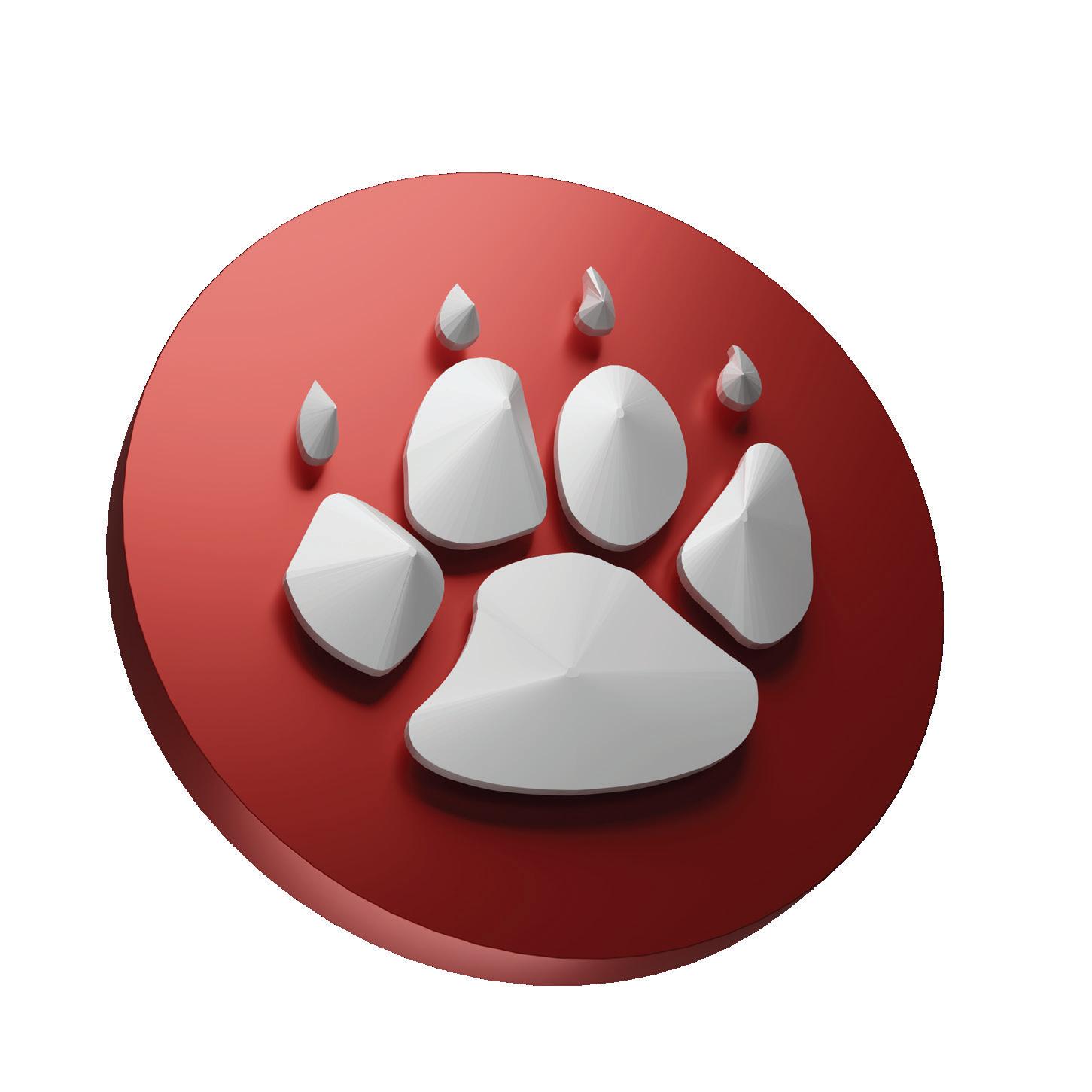








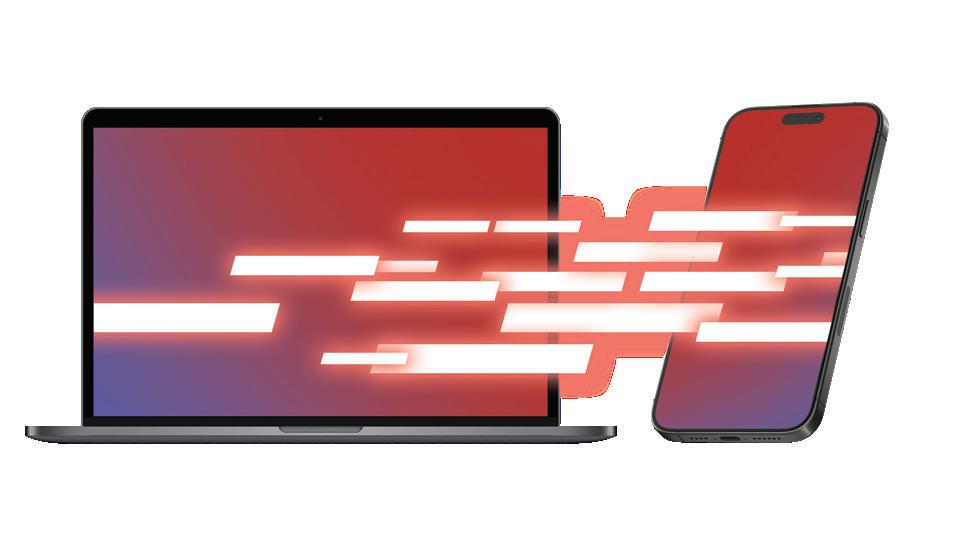

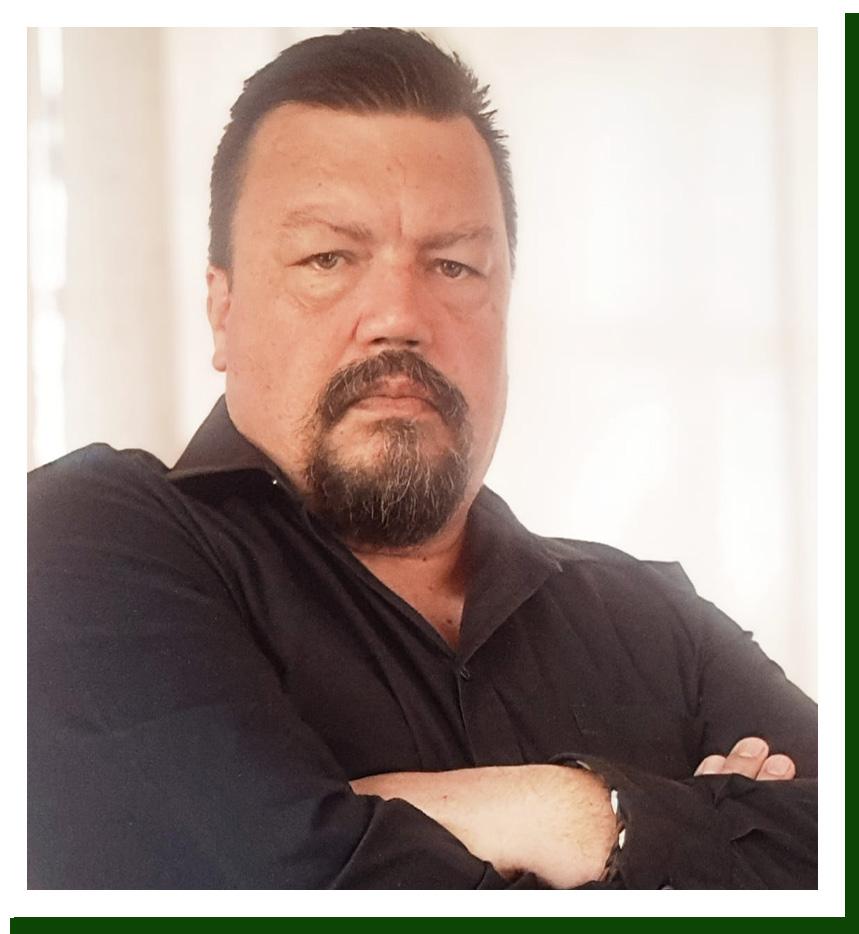
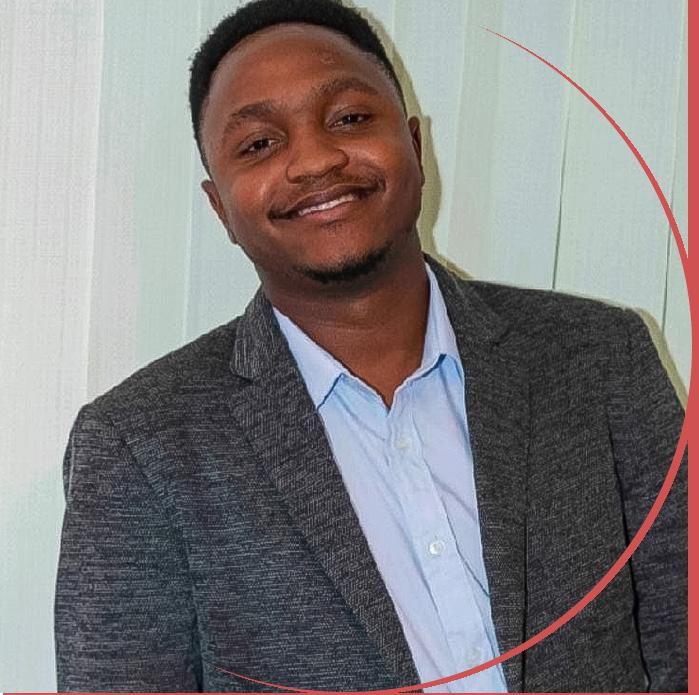
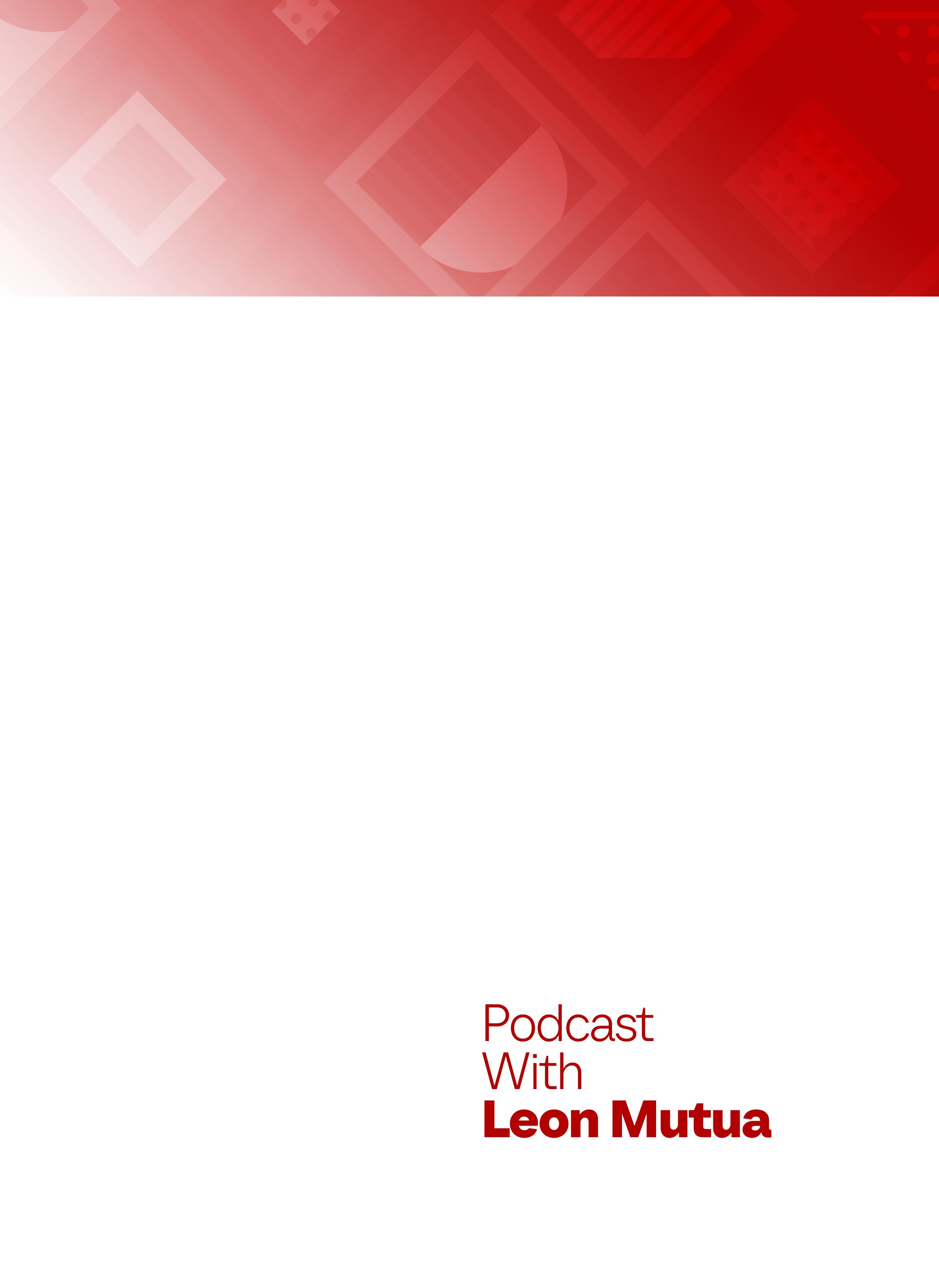
Africa’s iGaming space is growing fast, thanks to mobile phones, a young and tech-savvy population, and better digital infrastructure. But it is not without its challenges. In Episode 11 of the iGaming AFRIKA Podcast, we caught up with Leon Mutua, Key Account Manager at Sofascore, to unpack it all. Leon shared insights into what sets African players apart, why local strategies matter more than ever, and how AI and crash games are changing the game for operators and users alike.
market.He highlighted stark contrasts between two of Africa’s largest gaming markets. “I can use Nigeria and South Africa, which are South Africa is more value based. And what I mean by that is that the South African betting ticket size is four times higher than that in platforms.” These distinctions, he explained, demand tailored business development strategies.
“For Nigeria, you kind of want to go for a volume-based acquisition model because you are trying to reach wider people. So you will go same time explore the option of aggressive bonus structures because over there, it is a numbers game. You really just need as many people
approach, “You want to make sure that you have a VIP, retention focus. Because in a market like South Africa, what you would get in
explained. According to Leon, understanding these nuances is essential: “You cannot go in, blindly waving a sword because you
Beyond Africa’s more established iGaming markets, Leon sees Zambia, the DRC, and Ghana. According to him, these countries share a key strength in their young populations, which creates strong conditions for growth and is further supported by the ongoing technological developments. Both governments and private sectors in these countries are making substantial investments in digital infrastructure, particularly in enhancing internet accessibility which Leon explained will bring in some unaccounted volume of players.
Despite the strong growth indicators, many emerging African markets remain relatively untapped, with few dominant operators and limited platform competition. This lack of saturation presents a innovative services, data-driven tools, or specialized products analysis as a prime example of high potential meeting low adoption. technological integration.
For Leon Mutua, regulation is fundamental. “Regulation is not only important; I think it is necessary,” he asserted. He contrasted two real-world examples to make his point: Rwanda’s abrupt decision to
The takeaway, he said, is that mutual understanding is essential. “The regulator is looking at the operators like… they are just here to smash and grab. And then the operators are looking at their regulators like some kind of unrequested referee who's just come to spoil the game.” For the iGaming ecosystem to thrive, both sides must meet on common ground.
games. He emphasized that AI adoption is no longer optional, warning that operators who fail to integrate it into their systems risk falling
of wagers are now placed on real-time events like corners and as the continent largely bypassed the desktop era. Similarly, crash games, fast-paced and mobile-friendly are becoming increasingly popular in East Africa as players seek more dynamic and engaging betting experiences.
He also pointed to the disruptive role of cryptocurrency, highlighting its ability to enable seamless, cross-border transactions from mobile devices. He referenced platforms that now allow users in Africa to participate in international lotteries, which would have been nearly impossible through traditional payment channels. In addressing responsible gaming, he proposed a shared data model based on Kenya’s credit reference bureau system. This model would allow behavior and enforce self-imposed betting limits across platforms. He argued that such a system would protect both the players and the industry’s long-term integrity.
Leon Mutua noted that one of the biggest misconceptions about iGaming is the belief that it's unethical or shady. “People think it is like a bunch of people behind a building smoking cigarettes and, like, ‘Why do we steal some money?’ That is not really what it is,” he said. In reality, he explains, the industry is highly regulated, deeply operates and innovates.
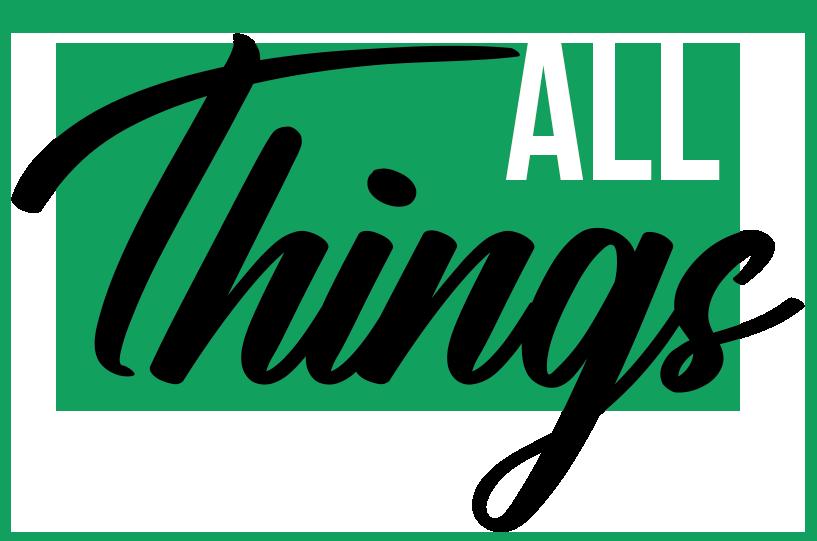
Undraping Excellence in iGaming Reporting: iGaming AFRIKA
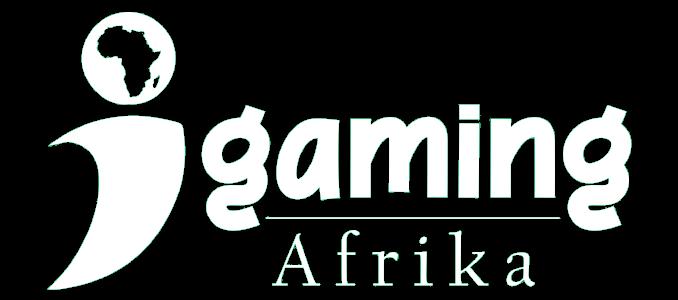
In the expanse of iGaming media, one name stands out as a beacon of excellence—iGaming AFRIKA. As a leading media publication, we have news across the African continent. Our journey, marked by passion, as the go-to source for all things iGaming in Africa.

Founded with a vision to elevate the iGaming conversation in Africa, iGaming AFRIKA embarked on its journey in 2022. Over the years, we have cultivated a rich history marked by insightful reporting, industry-shaping interviews, and a dedication to fostering a deeper understanding of the iGaming landscape. One of the key milestones is our commitment to reaching the entire continent with our content. Our journey with the iGaming AFRIKA magazine—a ground-breaking initiative that is quickly becoming the cornerstone of our commitment to providing localised, Africa-centric content.

Distinguishing ourselves from the norm, we here at iGaming AFRIKA stand out not merely for the content we deliver but, more importantly, for the distinctive way we approach reporting. At the heart of this distinctiveness lies our team of dedicated professionals, a collective force fuelled by a passion for iGaming and a commitment to journalistic excellence. Beyond the conventional boundaries of reporting, we delve into the intricacies of the iGaming space, presenting our readers with a depth of insight that surpasses surface-level narratives. Moreover, our network of industry insiders, cultivated over time, enables us to go beyond the obvious and access exclusive perspectives, insider knowledge, and behind-the-scenes narratives that add a layer of richness to our coverage.

Embedded within the foundational principles of iGaming AFRIKA lies an unwavering commitment—an earnest pledge to ascend to the pinnacle of iGaming journalism in Africa and stand as the undisputed leader within the continent. This commitment is not merely a proclamation but a deeply rooted vision that propels us forward, steering our endeavours toward a future where our platform goes beyond its current standing. In this envisioned future, iGaming AFRIKA emerges as the unparalleled primary source of information, a beacon that illuminates the iGaming landscape across the African continent.
Our vision extends beyond the dissemination of news; it encompasses a holistic role where we become architects of industry dialogue. We see
By assuming a central role in industry discourse, we aim to foster a celebrated, and challenges are met with collective solutions.
In this envisioned future, our platform becomes more than a news provider—it becomes a dynamic hub that facilitates a robust exchange of ideas, insights, and expertise, fostering an ecosystem that propels the growth and maturation of the iGaming sector on the African continent.

iGaming has become a global phenomenon, and our unwavering dedication to delivering localised, Africa-centric content is the cornerstone of our commitment. It ensures that our readers not only stay abreast of the latest developments in the dynamic realm of iGaming but also receive news and insights meticulously tailored to iGaming landscape.
facets of the African gaming industry, we go beyond the surface, providing a comprehensive and insightful understanding of the challenges, innovations, and opportunities that shape the ever-evolving iGaming sector within the African continent. In essence, our approach transcends the globalised norm, allowing our readers to engage with content that resonates with the rich tapestry of Africa’s gaming culture and industry trends.

As the premier iGaming media publication in Africa, we takeication to journalistic integrity, timeliness, and the highest editorial standards has garnered the trust of industry stakeholders, making iGaming AFRIKA the go-to platform for the latest and most reliable iGaming news on the continent.
In a world where iGaming is constantly evolving, iGaming AFRIKA remains steadfast in its mission to inform, educate, and inspire. We aim to have Africa and the rest of the world embark on this exciting journey with us as we continue to be the heartbeat of iGaming news in Africa, setting the standard for excellence in journalism.
By assuming a central role in industry discourse, we aim to foster a celebrated, and challenges are met with collective solutions.

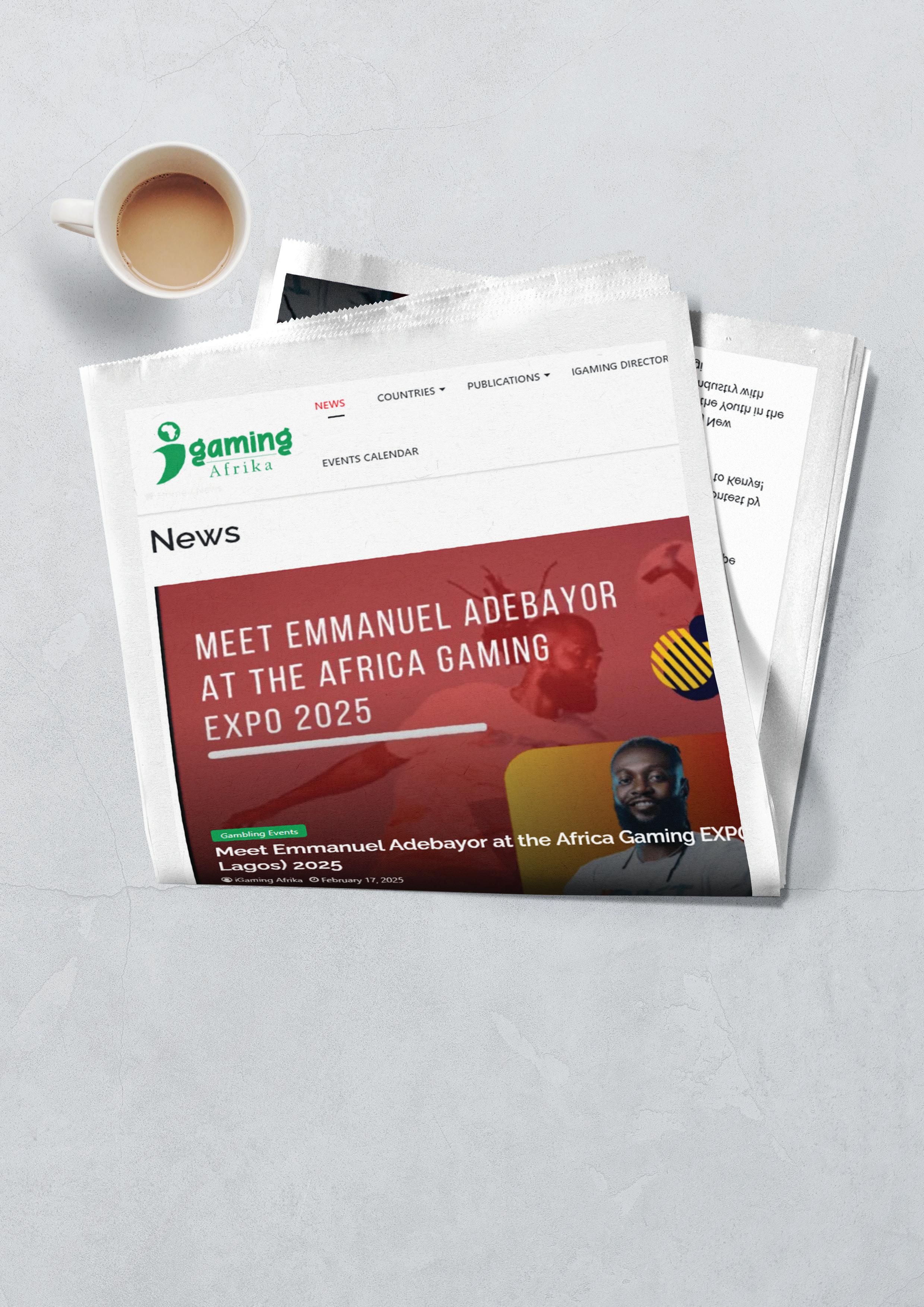

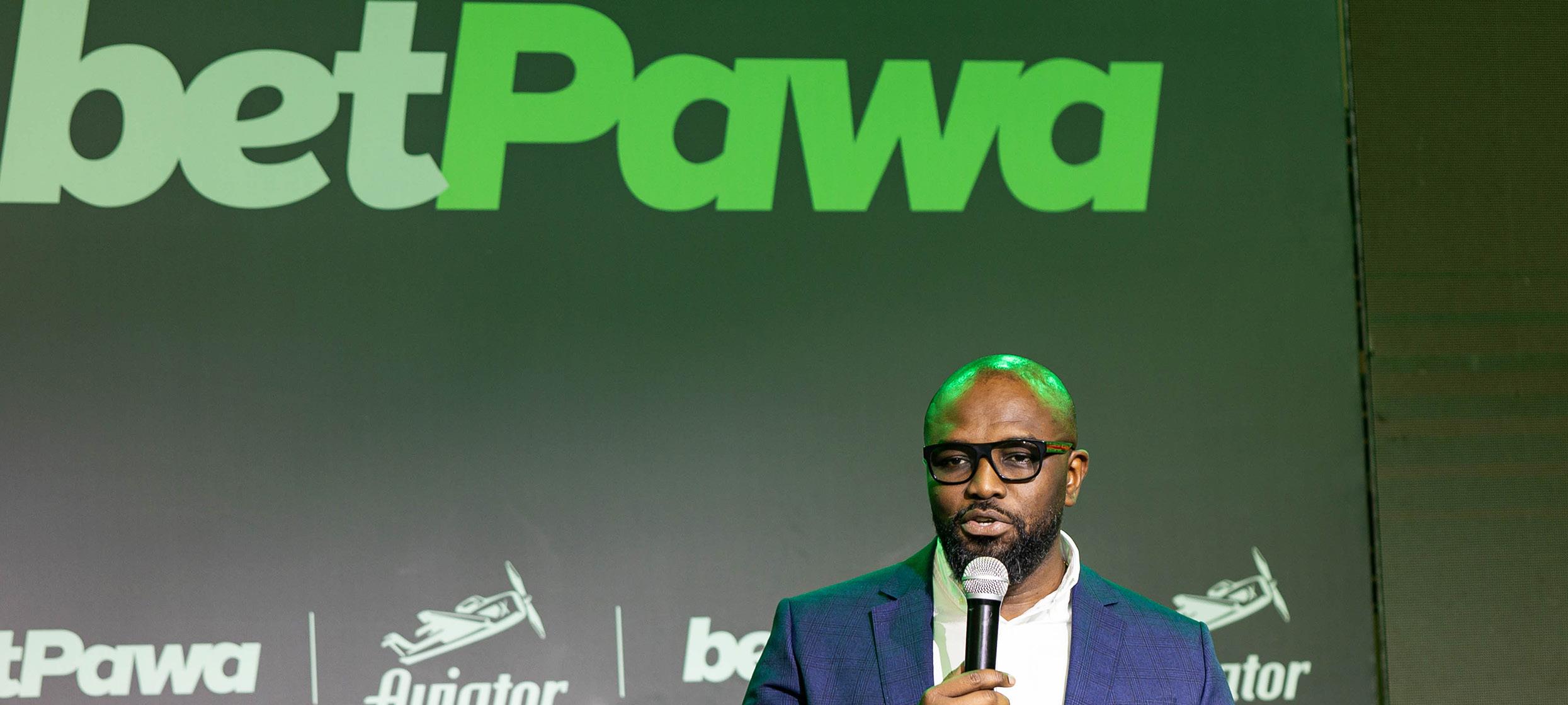
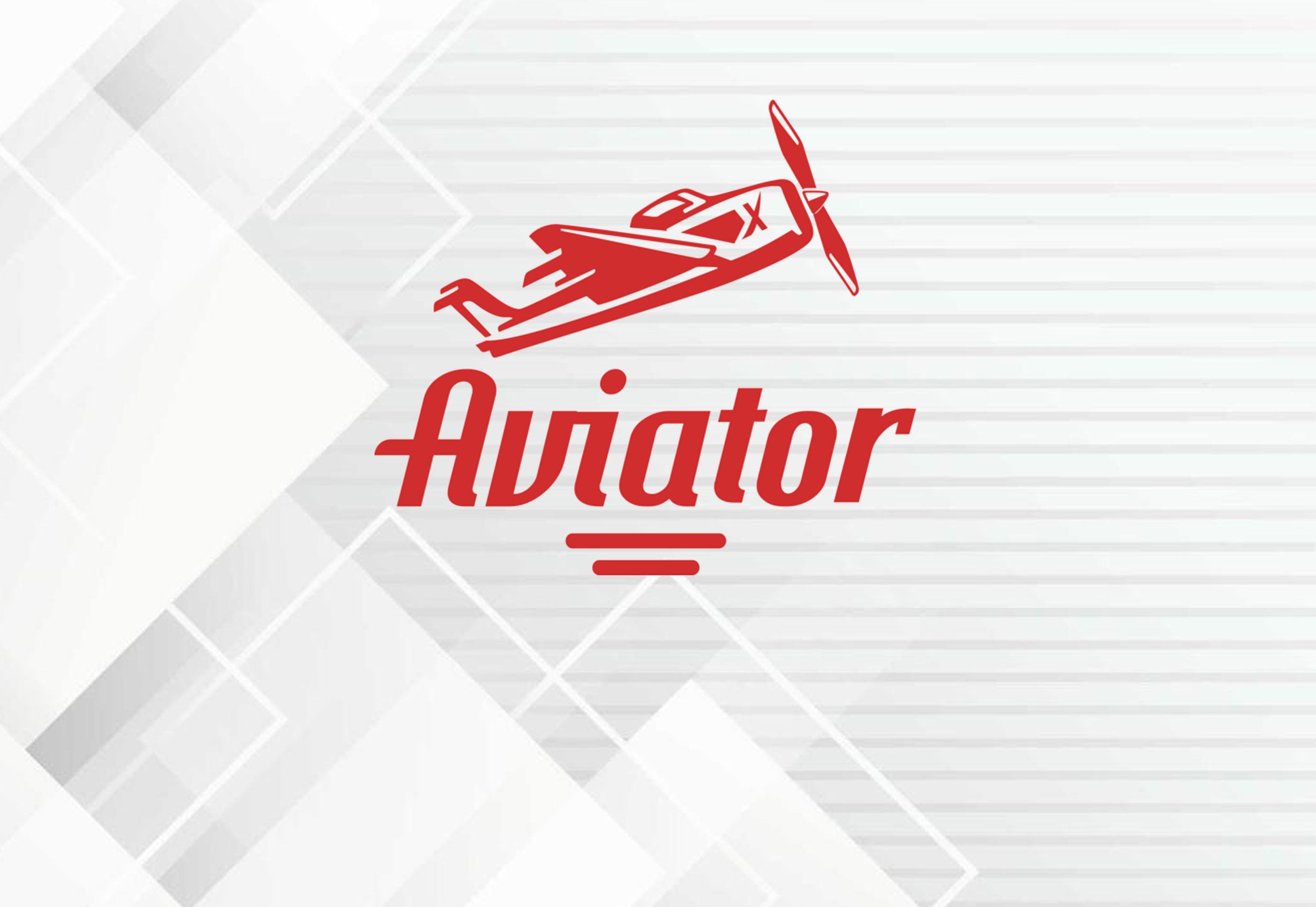
SPRIBE, the creator of the highly popular crash game "Aviator" raised alarms regarding unauthorised versions of its game being distributed by third parties.
For more than five years, Aviator has held the title of the number one crash game, thanks to its innovative gameplay and robust intellectual property protections.
“SPRIBE is the sole owner of the intellectual property rights in the Aviator game, which are protected in many countries where we operate,” the company stated, emphasising its commitment to protecting its brand. This includes extensive trademark registrations for the game’s logo and certification across more than 30 jurisdictions.
The surge in the game’s popularity has unfortunately led to unscrupulous entities attempting to exploit its success. “It has come to our attention that unauthorized third parties are trying to reach some of our clients and sell them an ‘Aviator’ game with a very similar concept and design, claiming that it is the authentic Aviator game,” SPRIBE noted, pointing out that PopOK Gaming is distributing some of these knock-offs.
Drastic measures are being considered, as SPRIBE is determined to safeguard its intellectual property. “We are taking these matters very seriously and will not tolerate any infringement of our intellectual property rights,” the statement added. The company warns that operators or partners hosting these unauthorised games face potential legal repercussions.
In conclusion, SPRIBE has urged industry partners to take immediate action against these counterfeit games. “We therefore hereby request that you: 1. Investigate whether your platform offers any unauthorised and infringing versions of ‘Aviator’; 2. If this is the case, remove any such games without delay.”
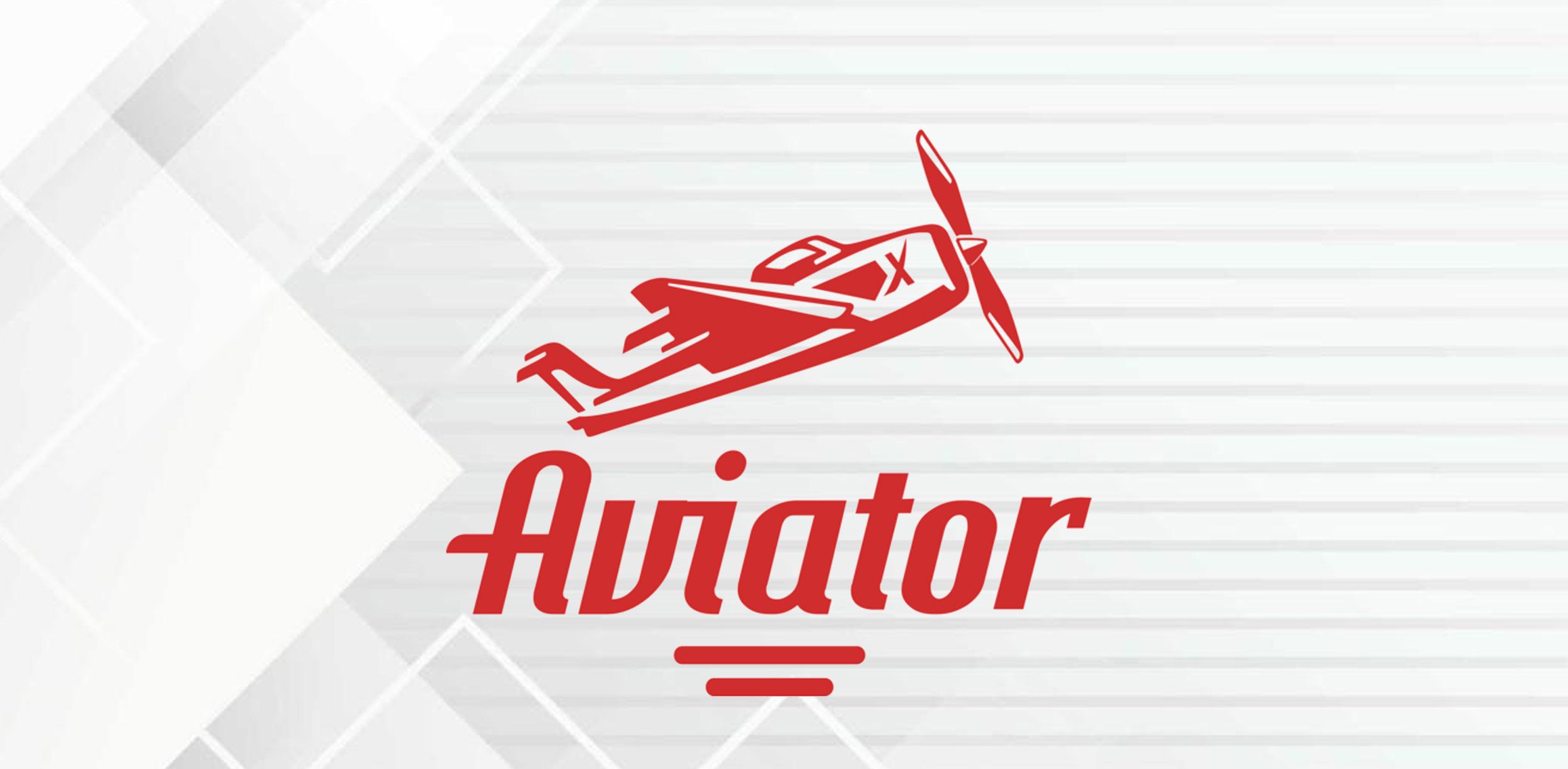

Africa and the Middle East have surpassed North America as the Betway owner’s most significant region.
South Africa – Super Group, the owner of the Betway brand, has announced its first-quarter results. Revenue increased by 25% year-over-year to a record $517 million. This growth was driven by robust expansion in Africa and the Middle East, which has now overtaken North America as the group’s primary source of revenue. Revenue from Africa and the Middle East reached $203 million, reflecting a 34.4% increase compared to the previous year despite a decline in the Middle East. This growth was attributed to expansion across several African markets and strong performance in South Africa, which accounted for 39% of all revenue for the quarter.
North American revenue also experienced year-on-year growth after Betway’s exit from the US market, rising by 18.3% to $181 million, largely driven by Canada. The region’s share of total revenue increased from 27% to 35%. In Europe, revenue grew by 52.4%, reaching $96 million.
North American revenue also experienced year-on-year growth after Betway’s exit from the US market, rising by 18.3% to $181 million, largely driven by Canada. The region’s share of total revenue increased from 27% to 35%. In Europe, revenue grew by 52.4%, reaching $96 million.
Revenue from the Asia-Pacific region declined by 15.8%, totalling $32 million. Similarly, revenue from Latin and South America decreased by 28.9% to $5 million. Overall, Betway’s revenue increased by 35.8%, with sports betting revenue up 25.5% to $404 million. Online casino revenue grew by 34.2% to $106 million, and brand licensing generated $5 million. Super group Betway Africa Net profit rose by 105.4% to $76 million, while EBITDA reached $107 million, up 46.6%. The company reaffirmed its full-year guidance of $2.01 billion in revenue and $421 million in adjusted EBITDA.
CEO Neal Menashe stated, “We started 2025 on a high note. We delivered a strong Q”.

Bonnie Kamau has emerged as the newest SportPesa Mega-jackpot millionaire after winning an incredible Ksh 424,660,618. He correctly predicted the outcomes of all 17 matches played on Sunday, March 3, 2025.
This victory marks the first time the SportPesa Mega Jackpot has been won since 2018. But who were the previous winners of this lucrative jackpot?
The inaugural Mega Jackpot was claimed by Samuel Abisai, who took home Ksh 221,301,602 in April 2017. That was followed by three joint winners—Daniel Rono, Geoffrey Keitany, and Florence Machogu—who shared Ksh 111,176,374 in May 2017.
Over the years, numerous individuals have become millionaires thanks to the SportPesa Mega Jackpot bonuses, highlighting its role as a game-changing opportunity for sports betting enthusiasts.
Gordon Ogada became the third jackpot winner with Ksh 230,742,881 in February 2018. The last winner before Kamau was Cosmas Korir, who pocketed Ksh 208,733,619 in September 2018.
Prior to his win, Ogada held the record for the highest football jackpot in the country, having won Ksh 230,742,881.
Abisai and Korir also secured significant wins of Ksh 221,301,602 and Ksh 208,733,619 respectively.


Betika announced the inauguration of its eSports tournament, providing local gamers with the chance to compete at multiple levels for lucrative cash prizes totalling KSh 1,500,000.
The tournament, referred to as the Betika eSports Showdown, will showcase competitive gameplay across popular titles like EA Sports FC24, Mortal Kombat, Call of Duty Mobile, and Tekken 8, which has gained increasing popularity in Kenya since its late January release. For the first time, the most skilled gamers and top-tier teams from across the nation will come together to participate in a groundbreaking two-day event, which aims to establish new benchmarks in the esports sector.
The eSports Showdown tournament invites participants of all skill levels, aiming to create an inclusive yet competitive platform for gamers. Both attendees and online viewers can expect high-quality production, featuring high-definition live streams, real-time analytics, and interactive viewing experiences. Fans will be treated to exclusive content, virtual meet-and-greets, behind-the-scenes footage, and interactive fan zones, making it an event that should not be overlooked.
The tournament will also feature LAN parties, with cash prizes of Sh25,000 for the winner, alongside Sh15,000 and Sh10,000 for the runner-up and second runner-up, respectively. The national finals will offer a top prize of Sh500,000, with the second-place winner receiving KESh350,000 and Sh200,000 for third place. Furthermore, cash prizes totalling KES 250,000 will be shared among finishers from fourth to tenth place.
"We are beyond excited to launch the very first Betika Esports Showdown. Our goal is to create an unforgettable experience for both players and fans, showcasing the very best in competitive gaming and esports entertainment. Through Betika Na Community, we have noticed that Kenya is an incubator for talented, spirited gamers poised to influence the global eSports landscape significantly.

Betika is dedicated to advancing the esports industry by organising top-tier competitive events and providing exceptional entertainment for gaming enthusiasts countrywide. We are at the forefront of the esports revolution. Esports can become a very lucrative career," stated Mutua Mutava, the Betika Kenya Group CEO and Managing Director.
The eSports sector in Kenya is seeing rapid expansion, with local gamers making significant strides in international contests. In 2023, Kenya experienced remarkable growth in eSports, largely due to its youthful population, which has helped solidify its status as the tech capital of Africa.
Recent data indicates that the global eSports industry has surpassed a valuation of $1 billion, attracting considerable viewership worldwide. Kenya is set to become a vital player in this swiftly growing sector, owing to its tech-savvy youth and advanced infrastructure.
Several notable figures in the professional gaming realm are expected to take part in the Betika eSports Showdown tournament. Among them is Brian Otieno Diang’a, known as Thee Beast, who has been engaged in professional gaming since 2015, participating in various local and international competitions.
"I look forward to showcasing my skills at the tournament and competing with amateur gamers, too. Their raw talent and determination can catch you by surprise, making for some truly exhilarating competition. I can’t wait to see what these underdogs bring to the table, and I am ready to give it my all on every level," remarked Thee Beast.
Throughout the tournament, Betika will not only offer generous cash incentives but will also enhance the experience with exclusive mentorship opportunities from experienced local and international eSports professionals. Participants can expect a well-organised tournament that adheres to international standards, ensuring a fair and competitive environment for both pro and amateur gamers.
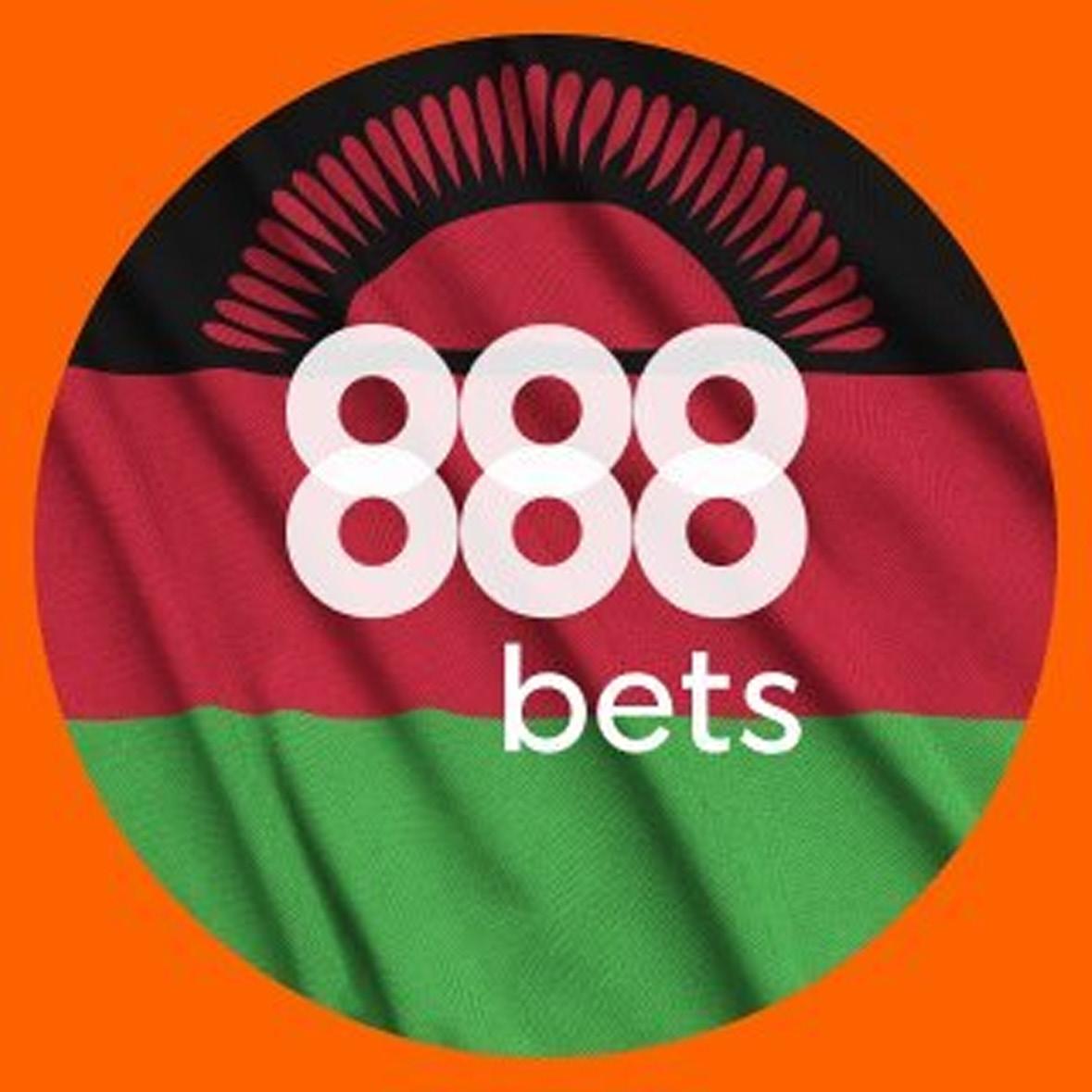
In a historic leap for the gaming industry in Malawi, 888bets has officially launched its operations, marking a significant milestone in the country’s iGaming sector.
This exciting development comes just days after the NE Group, a leading B2B iGaming software provider, partnered with online gambling operator 888 to launch 888bets for the Angolan market. With these moves, 888bets is expanding its footprint in the African gaming landscape, offering thrilling new opportunities for players and fostering growth within the region.
Players in Malawi can now look forward to a diverse assortment of games, including classic casino staples and innovative modern variations. From slots and poker to live dealer experiences that replicate the atmosphere of a physical casino, 888bets aims to cater to every gaming taste.
Additionally, the sportsbook will offer comprehensive coverage of local and international sporting events, establishing 888bets as a one-stop destination for betting enthusiasts.
Christopher Coyne, Chief Executive Officer of 888AFRICA, praised his team's outstanding efforts and highlighted the opportunities in the Malawi market as they announced the launch. He stated, "I am thrilled to announce that 888AFRICA has officially launched in our seventh African market, Malawi. I believe Malawi has the potential to become one of the standout markets for 888AFRICA in the coming years—stay tuned!"
Phoebe Njeri, Social Media Manager at 888AFRICA, commented during the launch, emphasising the company's mission to leverage social media channels to make a significant impact in the Malawian market. She stated, "As part of the social media team, I am committed to using a multi-channel strategy, crafting engaging localised content, launching exciting social media campaigns, and building an interactive community. Here's to bringing the 888bets experience to life in Malawi!"
The launch of 888bets represents a pivotal moment for the iGaming landscape in Malawi. It enhances the entertainment options available to players while contributing to the growth of the local economy.
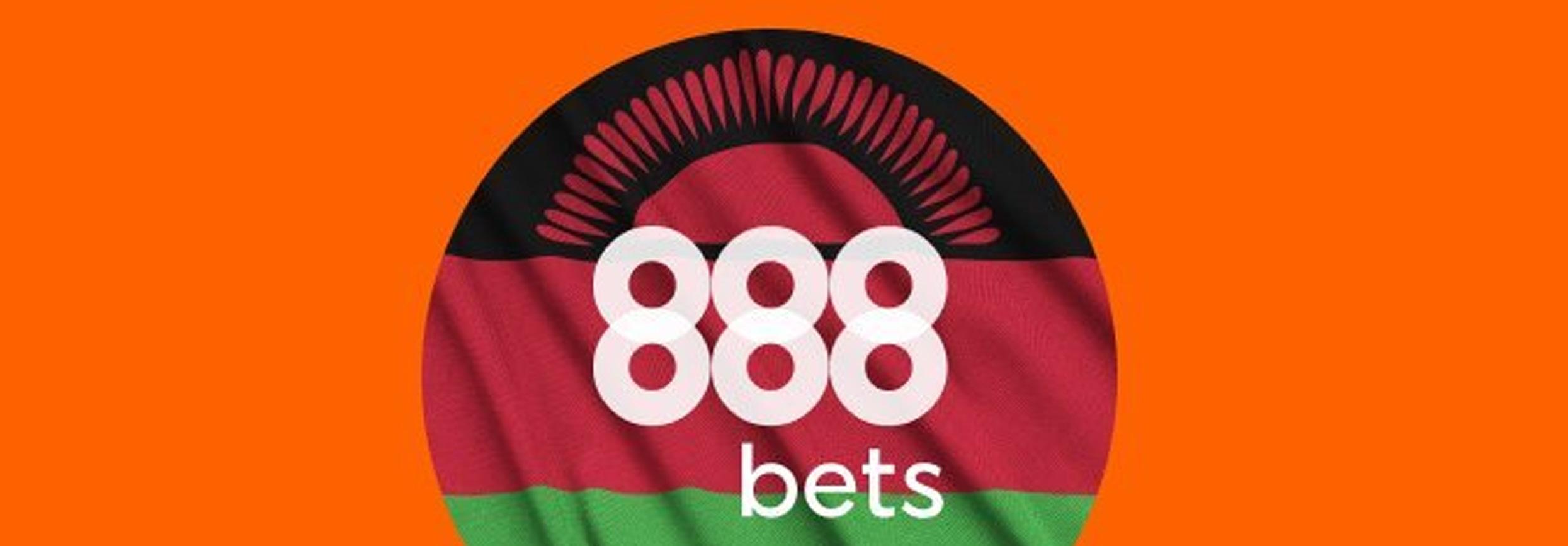

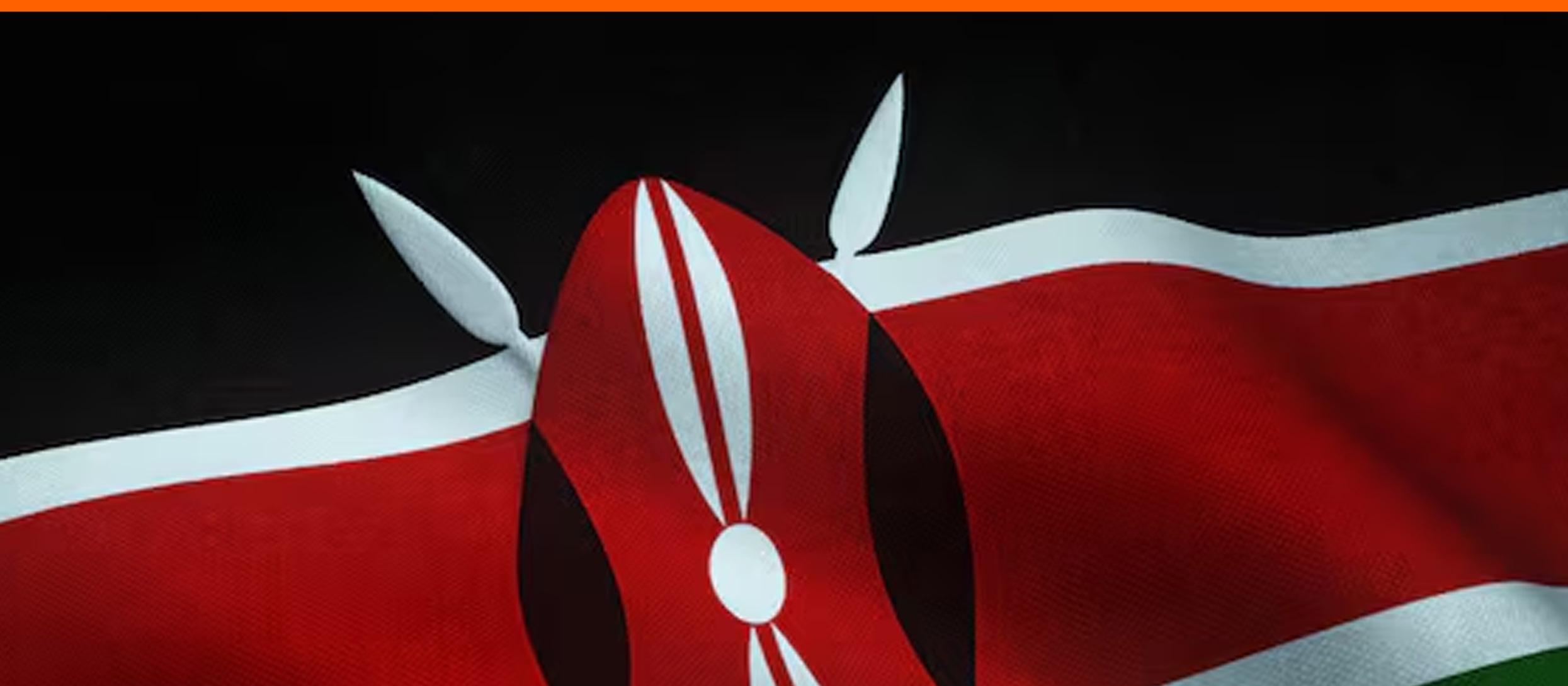

Undraping Excellence in iGaming Reporting: iGaming AFRIKA

In the expanse of iGaming media, one name stands out as a beacon of excellence—iGaming AFRIKA. As a leading media publication, we have news across the African continent. Our journey, marked by passion, as the go-to source for all things iGaming in Africa.

Founded with a vision to elevate the iGaming conversation in Africa, iGaming AFRIKA embarked on its journey in 2022. Over the years, we have cultivated a rich history marked by insightful reporting, industry-shaping interviews, and a dedication to fostering a deeper understanding of the iGaming landscape. One of the key milestones is our commitment to reaching the entire continent with our content. Our journey with the iGaming AFRIKA magazine—a ground-breaking initiative that is quickly becoming the cornerstone of our commitment to providing localised, Africa-centric content.

Distinguishing ourselves from the norm, we here at iGaming AFRIKA stand out not merely for the content we deliver but, more importantly, for the distinctive way we approach reporting. At the heart of this distinctiveness lies our team of dedicated professionals, a collective force fuelled by a passion for iGaming and a commitment to journalistic excellence. Beyond the conventional boundaries of reporting, we delve into the intricacies of the iGaming space, presenting our readers with a depth of insight that surpasses surface-level narratives. Moreover, our network of industry insiders, cultivated over time, enables us to go beyond the obvious and access exclusive perspectives, insider knowledge, and behind-the-scenes narratives that add a layer of richness to our coverage.

Embedded within the foundational principles of iGaming AFRIKA lies an unwavering commitment—an earnest pledge to ascend to the pinnacle of iGaming journalism in Africa and stand as the undisputed leader within the continent. This commitment is not merely a proclamation but a deeply rooted vision that propels us forward, steering our endeavours toward a future where our platform goes beyond its current standing. In this envisioned future, iGaming AFRIKA emerges as the unparalleled primary source of information, a beacon that illuminates the iGaming landscape across the African continent.
Our vision extends beyond the dissemination of news; it encompasses a holistic role where we become architects of industry dialogue. We see
By assuming a central role in industry discourse, we aim to foster a celebrated, and challenges are met with collective solutions.
In this envisioned future, our platform becomes more than a news provider—it becomes a dynamic hub that facilitates a robust exchange of ideas, insights, and expertise, fostering an ecosystem that propels the growth and maturation of the iGaming sector on the African continent.

iGaming has become a global phenomenon, and our unwavering dedication to delivering localised, Africa-centric content is the cornerstone of our commitment. It ensures that our readers not only stay abreast of the latest developments in the dynamic realm of iGaming but also receive news and insights meticulously tailored to iGaming landscape.
facets of the African gaming industry, we go beyond the surface, providing a comprehensive and insightful understanding of the challenges, innovations, and opportunities that shape the ever-evolving iGaming sector within the African continent. In essence, our approach transcends the globalised norm, allowing our readers to engage with content that resonates with the rich tapestry of Africa’s gaming culture and industry trends.

As the premier iGaming media publication in Africa, we takeication to journalistic integrity, timeliness, and the highest editorial standards has garnered the trust of industry stakeholders, making iGaming AFRIKA the go-to platform for the latest and most reliable iGaming news on the continent.
In a world where iGaming is constantly evolving, iGaming AFRIKA remains steadfast in its mission to inform, educate, and inspire. We aim to have Africa and the rest of the world embark on this exciting journey with us as we continue to be the heartbeat of iGaming news in Africa, setting the standard for excellence in journalism.
By assuming a central role in industry discourse, we aim to foster a celebrated, and challenges are met with collective solutions.

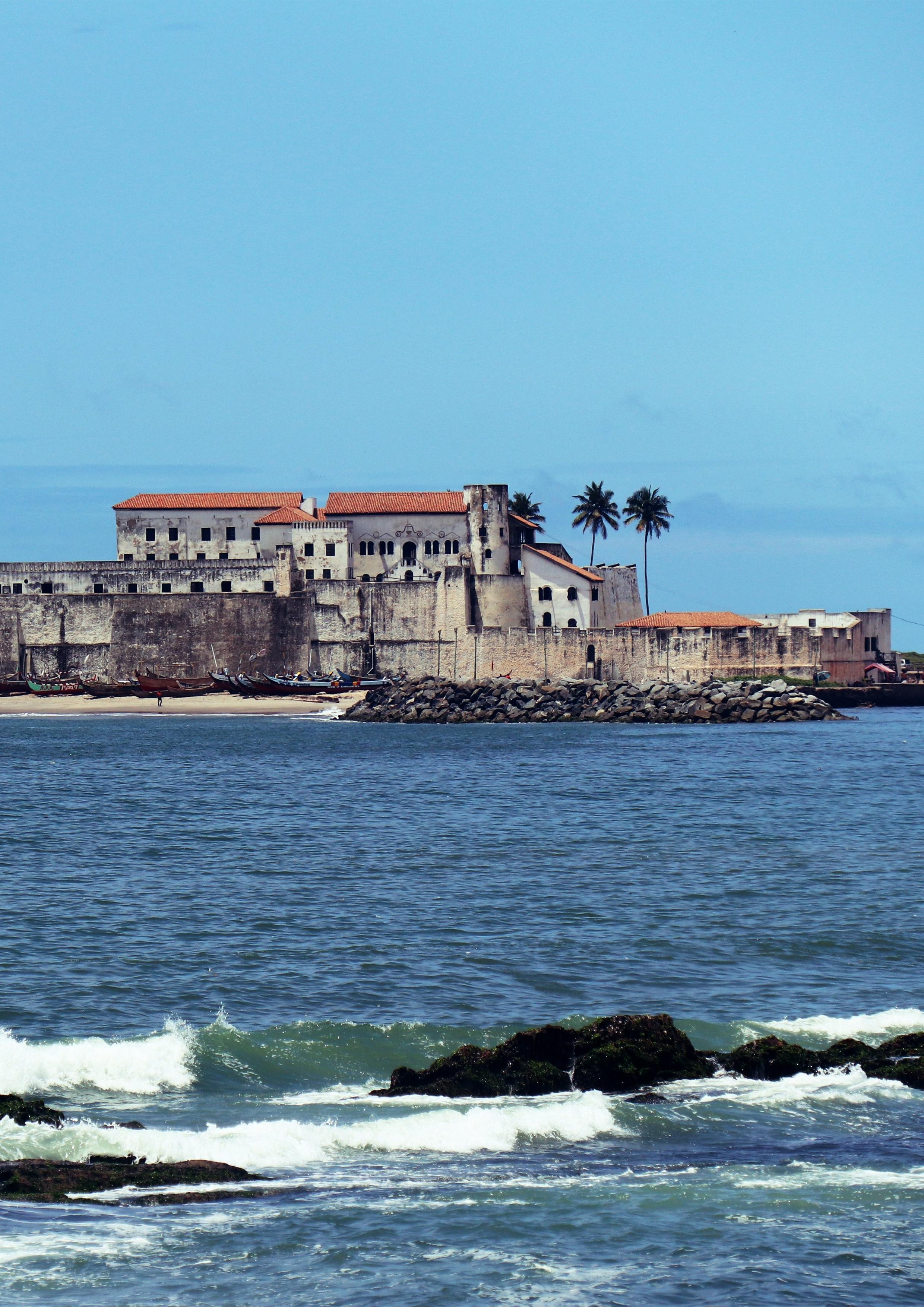



“The crypto gambling industry is in its early stage, but what we’re seeing right now with the population is really promising, especially in countries with high inflation and currency valuation issues like Kenya and Nigeria where people are already using crypto for P2P transactions.”
Francisco Bravo, LATAM Sales Director - TVBET / BETCORE
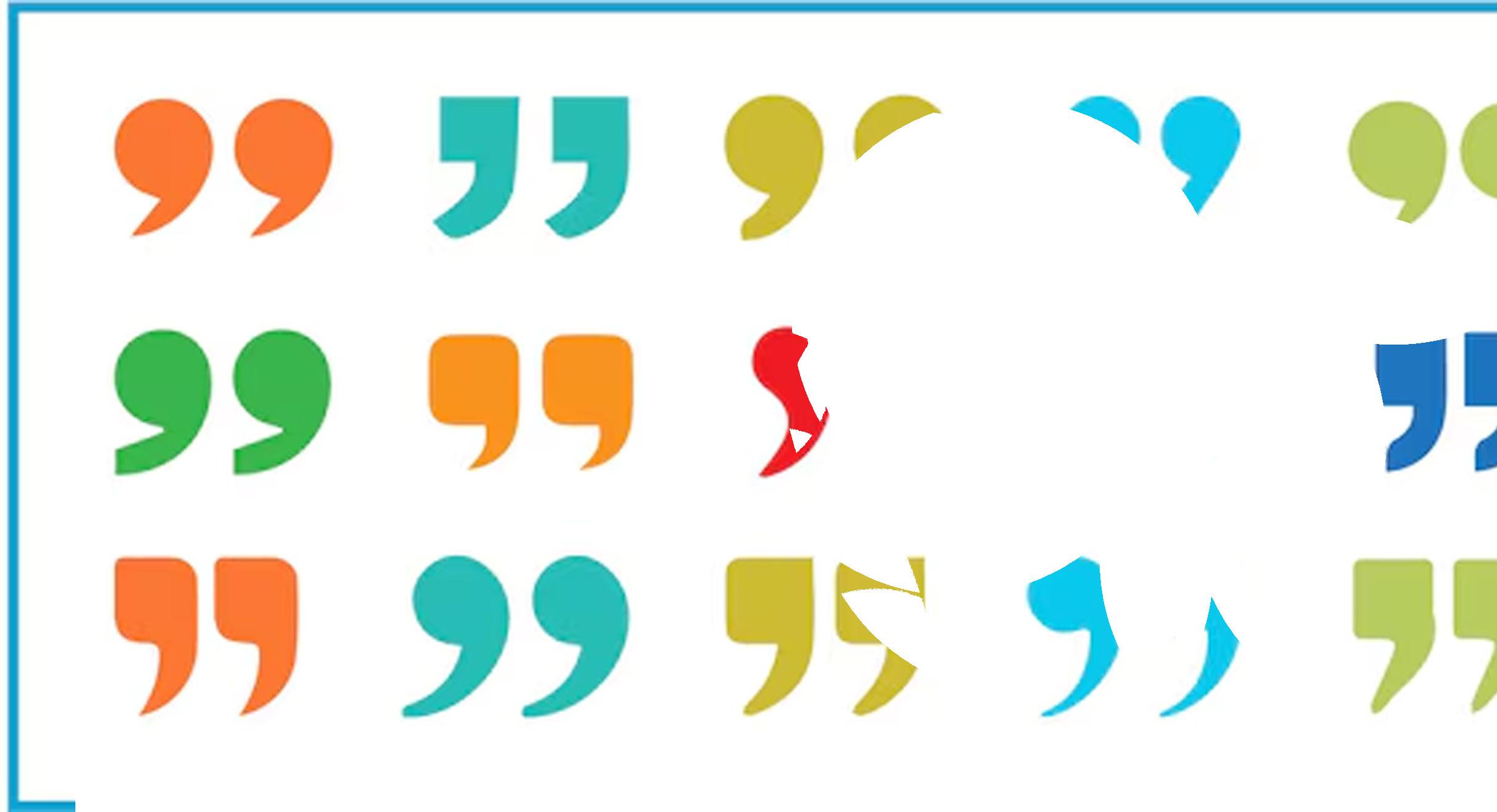
“Each market has its own set of rules and player preferences, requiring a highly localized approach to marketing and CSR. Opportunities, however, lie in tailoring our strategies to resonate deeply with local communities, fostering trust, and building long-term relationships.”
Borah Omary, Head of Local Marketing & CSR, betPawa


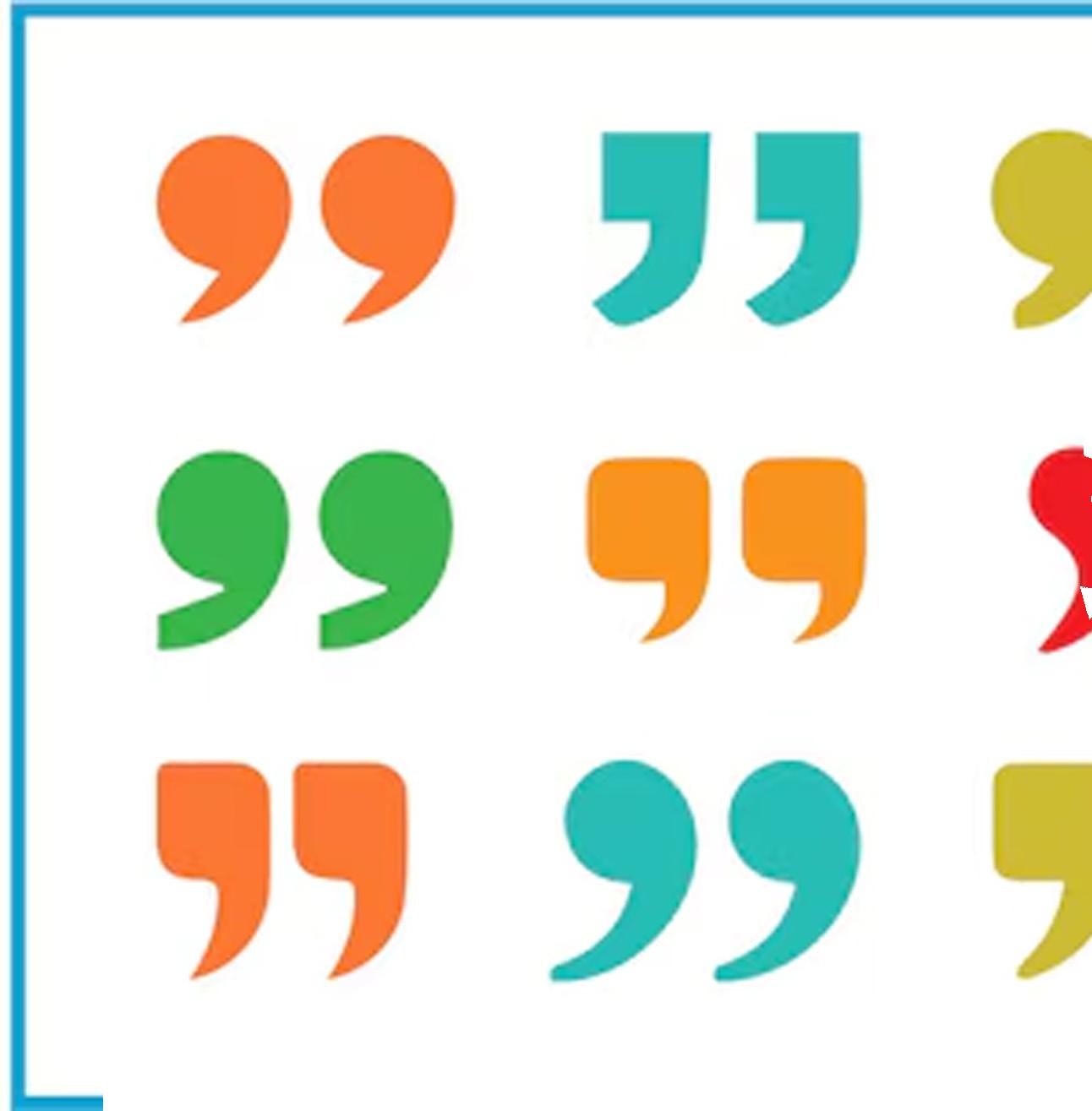
“I’ve noticed a new trend or actually not even a new trend I believe it’s always been there but on a different level, there’s now retail crash games specifically being utilized in the retail shops where players go to the cashier they credit their specific account and then they go into the screen and they just crash away.”
Aluwani Mukhudwana, Business Development Manager, SOFTSWISS


using machine learning which has been done for years, which is what CRM is based on and what AI is used for which is pulling a massive broad spectrum data from across the world and various platforms to build insights.”
Sasha Boerma, Commercial Director Africa, Split the Pot
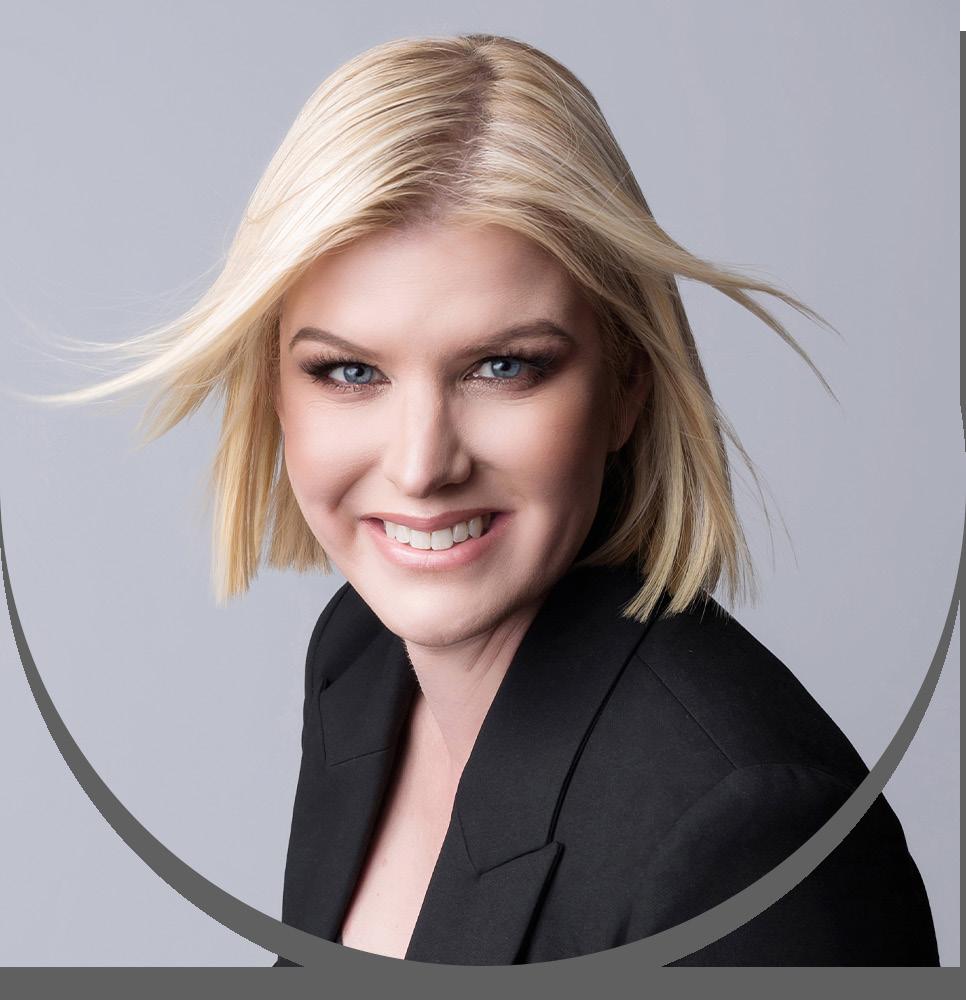
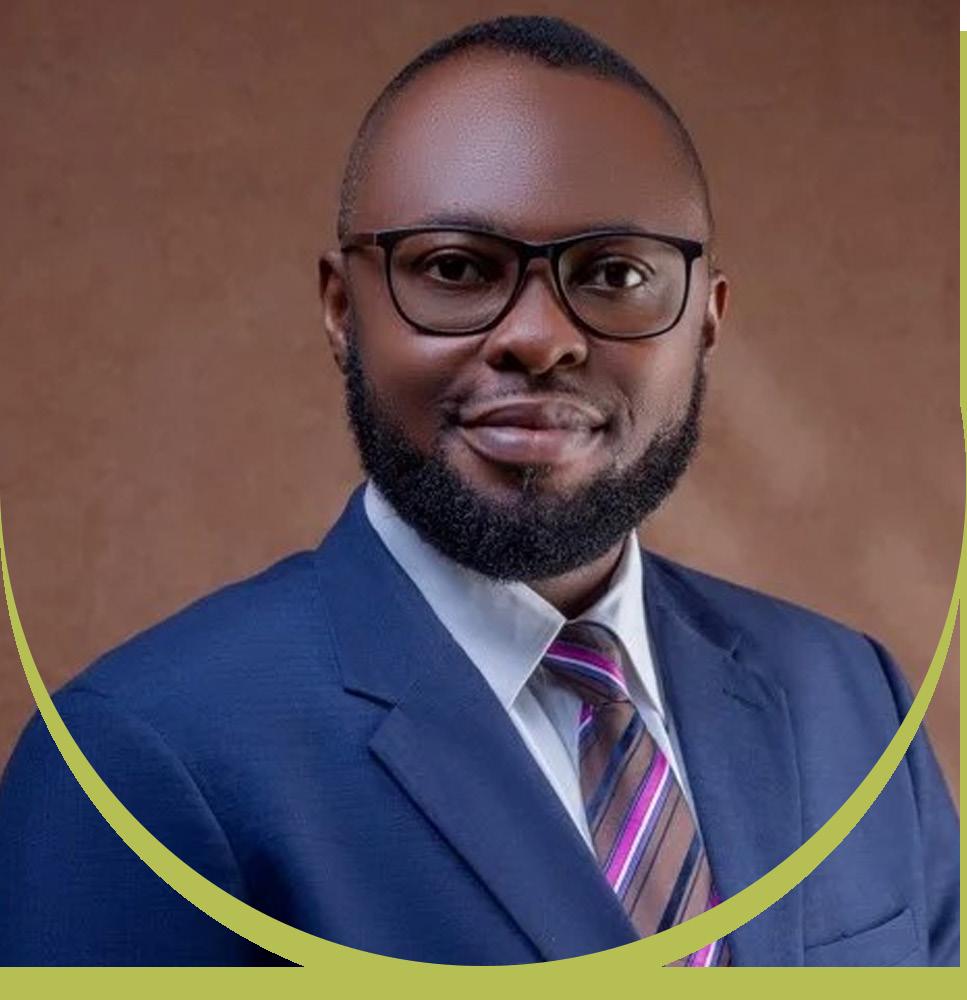
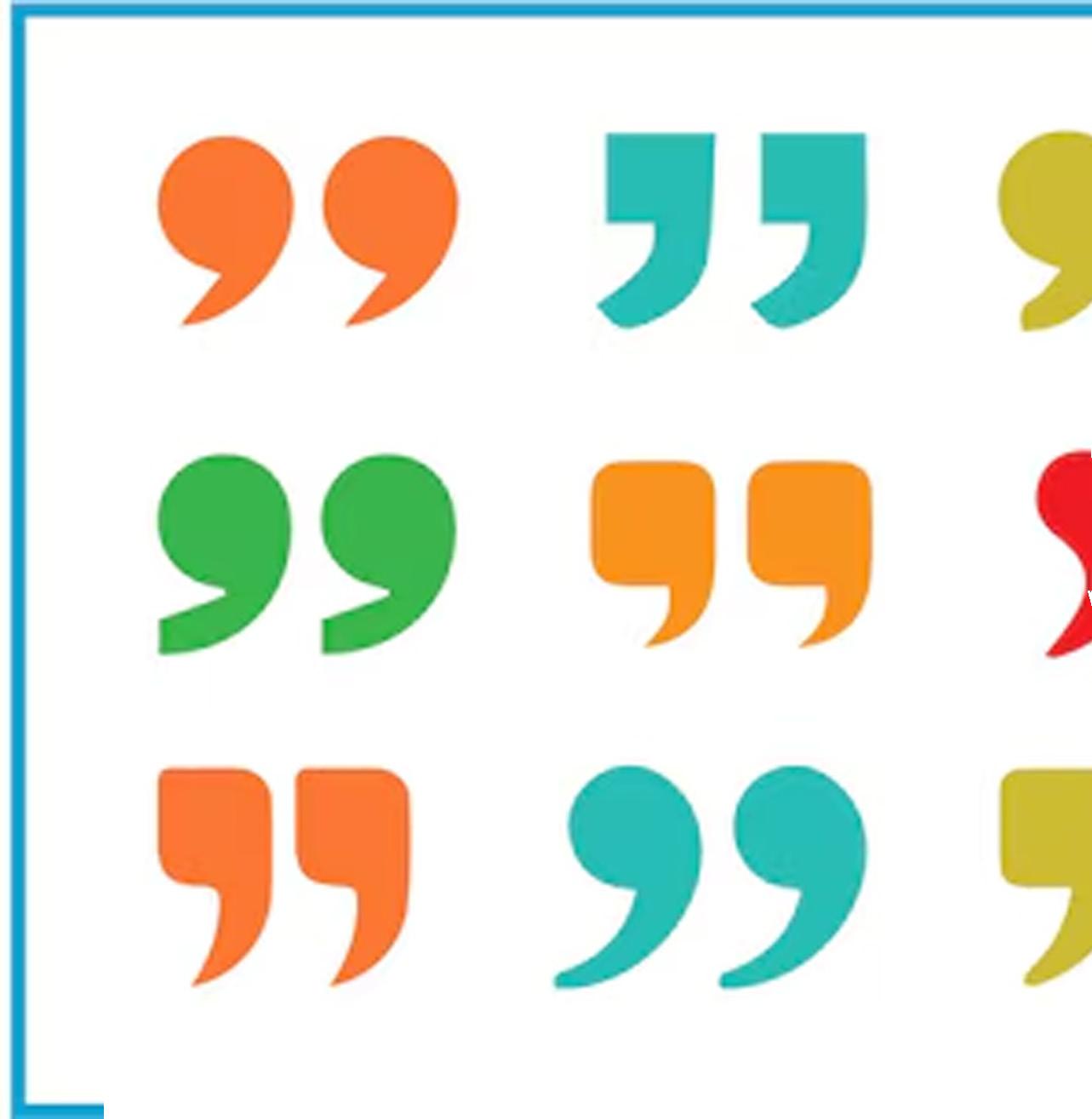
“The future of gaming in Nigeria looks bright, but the success of this new framework depends on how well the Association of State Gaming Regulators manages the implementation, ensuring clarity, simplicity, and fairness.”
Obinna Akpuchukwu, ACArb, ABR, Partner, Allen & Marylebone

“It is essential to view gambling addiction as part of the broader public health conversation and treat it with the same urgency as other behavioral addictions such as substance abuse”
Tumelo
Mokoena, Assistant Manager of Advocacy and Communications, at the South African Responsible Gambling Foundation

